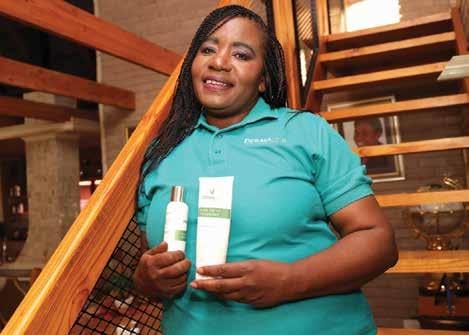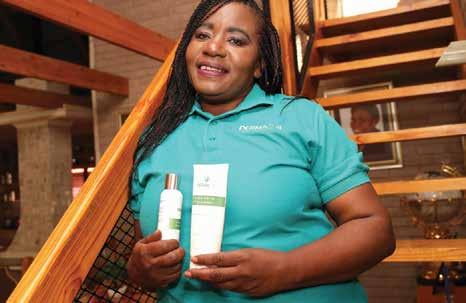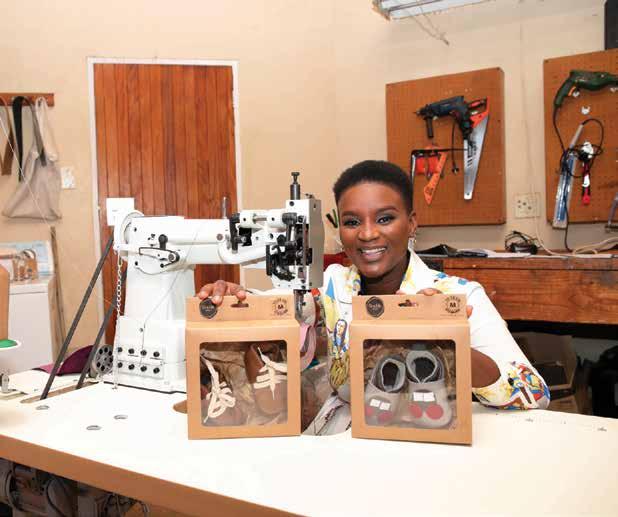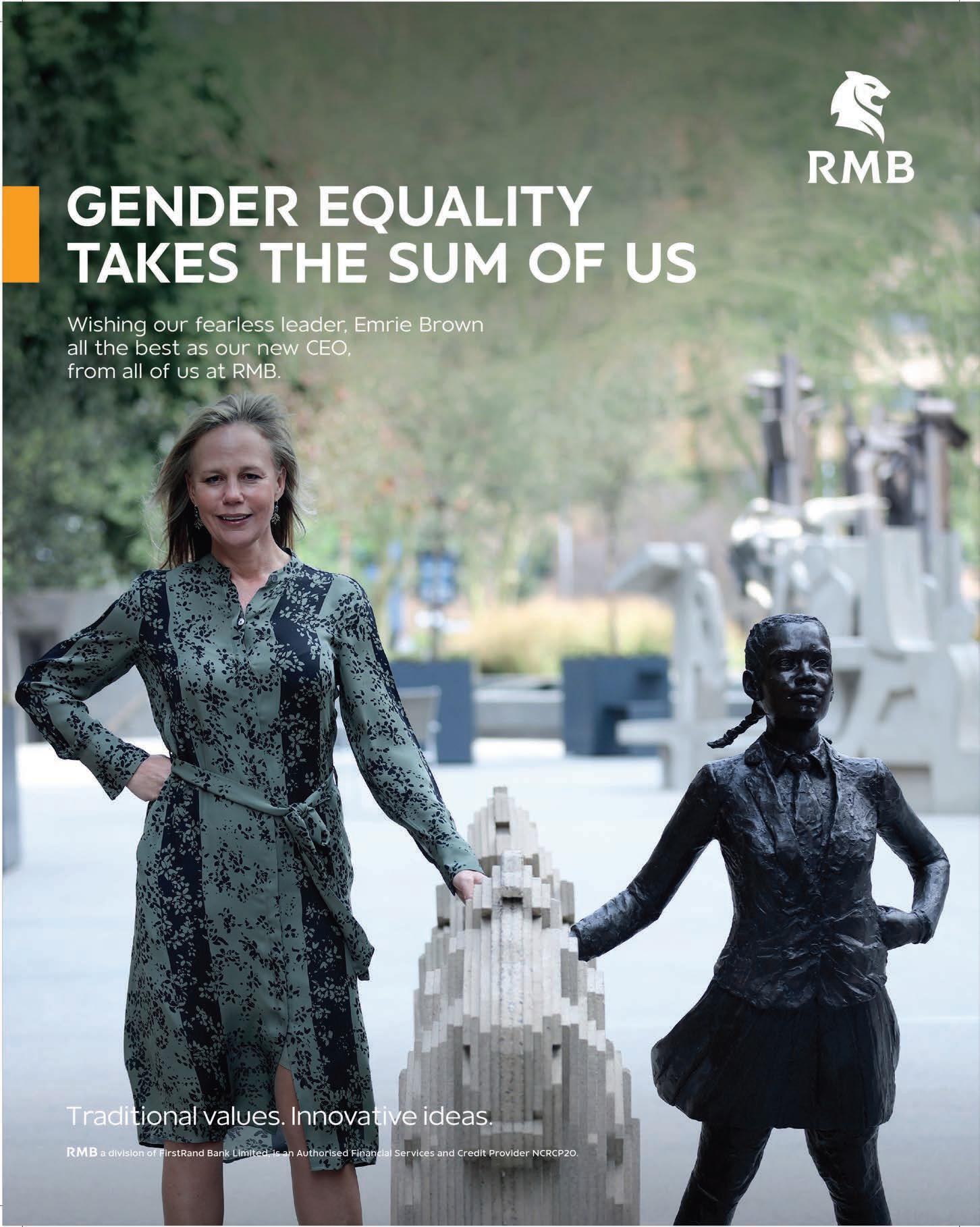










































































































At TransUnion, gender equality isn’t just a catchphrase or side project — it’s an integral part of our corporate mission.
We know successful organisations need inclusive leadership. Diverse teams deliver greater insights and innovation — which in turn adds more value for our clients and their customers.
But diversity and gender equality doesn’t happen overnight. It takes a clear vision, commitment and plan to remove biases and barriers, and actively bring more women and under-represented groups into the business.
We’ve already begun doing the work. As of May 2022, 72% of our new hires were female, as is 41% of senior management and 50% of exco.
It’s a good start, but we’re not done yet — because we believe when we’re equal, we all win.
Access Bank South Africa celebrates women with the annual Womenpreneur Pitch-ATon Initiative. As part of its commitment to continuously provide financial and business skills to female entrepreneurs, Access Bank South Africa launched the Womenpreneur Pitch-A-Ton Programme in August 2022.
Open to women entrepreneurs across South Africa, the programme is a women-in-business support initiative that provides the opportunity for progressive, motivated women in our country to pitch their business models and stand a chance to win a financial boost, as well as a R50 000 education voucher.

The monetary prizes will be awarded to the top three Womenpreneurs to use for furthering their business goals.
The amounts offered are life-changing: R100 000 for first place, R75 000 for second place, and R50 000 for third place. Access Bank SA was included in Womenpreneur Pitch-A-Ton Africa for the first time in 2021, with South African businesswomen pitching with their peers from Nigeria, Ghana, Rwanda, Zambia, Sierra Leone, Gambia, Kenya, Mozambique, and the Congo. To the delight of Access Bank South Africa, Rotondwa Musitha, owner and founder of Trash Converters in South Africa, took the fifth prize in the campaign.
As a company that strives to empower women, Access Bank South Africa is committed to backing women in leadership positions and assisting the broader female population to dream, build and achieve their business goals.
Access Bank Plc. is a leading full-service commercial bank operating through a network of more than 600 branches and service outlets, spanning 3 continents, 12 countries and 31 million customers. The bank employs 28 000 people in its operations in Nigeria and has subsidiaries in sub-Saharan Africa and the United Kingdom (with a branch in Dubai, United Arab Emirates) and representative offices in China, Lebanon and India.
Access Bank is a diversified financial institution that combines a strong retail customer franchise and digital
platform with deep corporate banking expertise and proven risk management and capital management capabilities. The bank serves its various markets through four business segments: Retail, Business, Commercial and Corporate. The bank has enjoyed what is arguably Africa’s most successful banking growth trajectory in the last 12 years. Following its merger with Diamond Bank in March 2019, Access Bank became one of Africa’s largest retail banks by retail customer base.
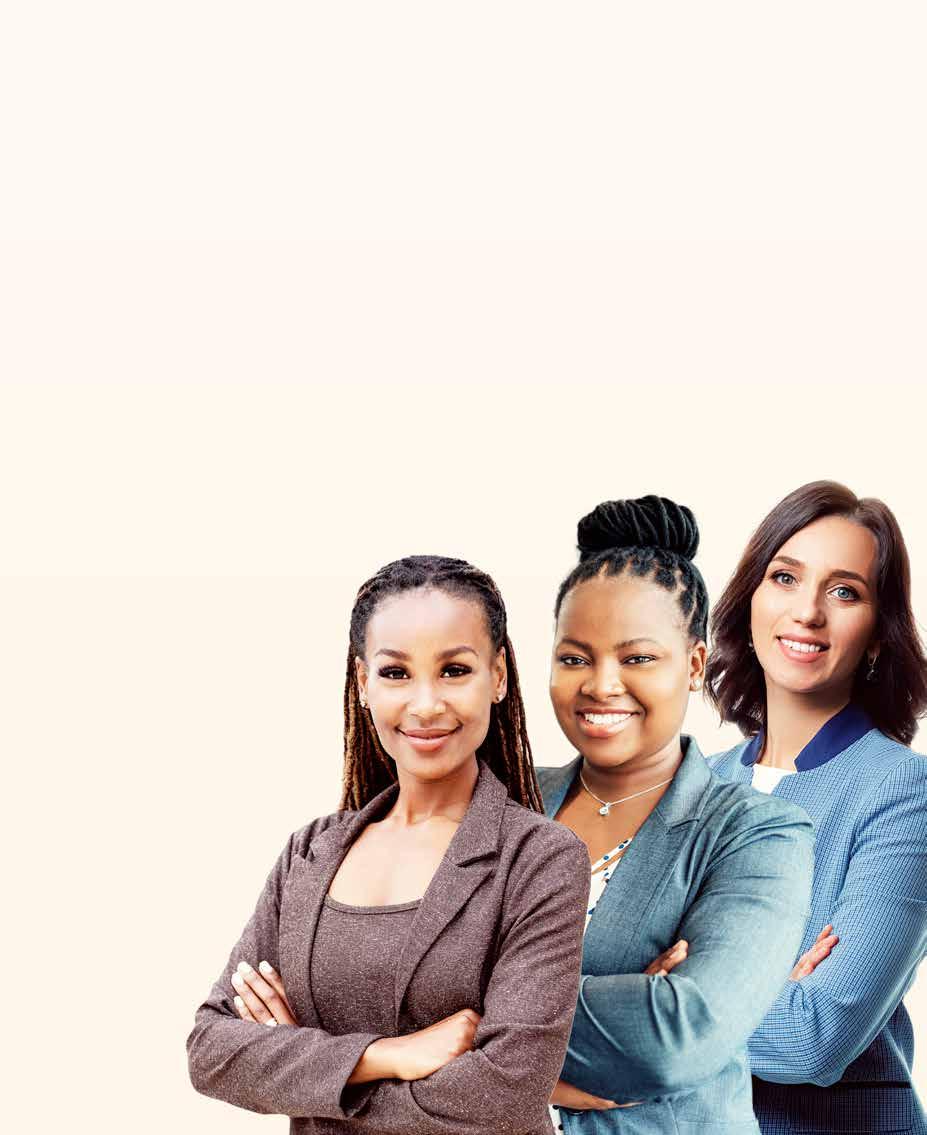

Could gender bonds provide a viable solution to issues hampering female advancement? Colleen Larsen, CE Business Engage, weighs up the pros and cons.
We look at how initiatives such as the Gender Mainstreaming Awards encourage corporate South Africa to embrace meaningful inclusivity.
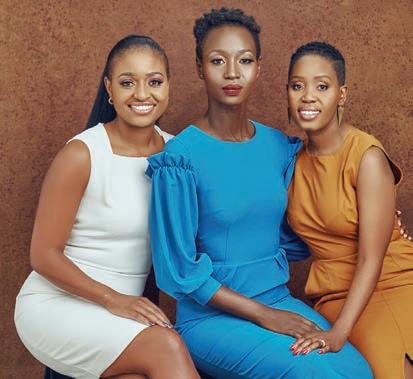





We unpack ways companies can go beyond policy and targets to achieve meaningful parity.
Business Engage developed the Gender Mainstreaming Awards to encourage the private sector to buy in to achieving more meaningful representation of women in the mainstream of business. The Awards include representation of companies in Southern, East and West Africa.
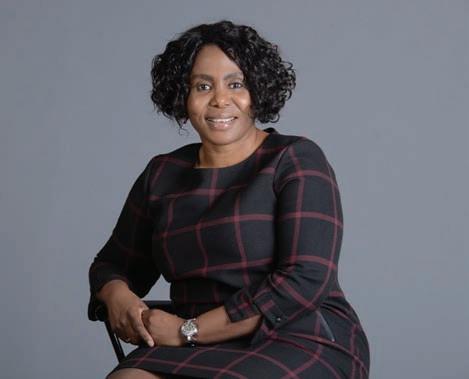
34 IN CONVERSATION WITH … Nonkululeko Gobodo, Dr Ntombi Mhangwani, Sharmi Surianarain, and Desiree Ellis share the challenges, opportunities, and lessons learned.

We talk to inspirational women leaders in diverse sectors about breaking stereotypes and challenging the status quo.
Women in the medical fi eld, science and innovation space share their journeys with us.

Why recruiting and hiring with purpose must become your corporate culture.
Having key strategic policies around equity, empowerment, diversity, inclusion, values, and culture gears your business for growth.
58 LESSONS IN LEADERSHIP
Leaders within the South African banking environment share how they tap into the power of their own authenticity.
Women must rise to the challenge of becoming authentic, fearless-thinking leaders.
Senior leaders within the retail industry share their experiences about the ease of doing business within the sector.
How entrepreneurship can play a critical role in elevating and supporting women to gain financial freedom.

Corporates hold the key to unlocking youth entrepreneurship.
Could financial and educational inclusion be the answer to fostering real, sustainable development in South Africa?
We chat to leaders in the sector about disrupting the gender bias.
Advice to the next generation of women entering the financial services industry.
We talk to industry professionals about the importance of advancing women in the sector.
The measures taken to maintain strong company culture and diversity goals in the face of economic uncertainty.
How women are progressing in this sector and the advice they offer to those entering the industry.
Karin Krause Wessels, MD Edward Snell & Co, shares why reshaping the conversation and leading the change within the food and beverage sector is key to its continued growth.
Industry leaders weigh in on the growing presence and role of women within the sector.
C elebrating the work and learning from the challenges of black female winemaker Ntsiki Biyele.
We unpack how tech will disrupt the future of the supply chain sector.
T he strides being made within the tech space to be more gender-balanced.
W hat South Africa needs to do to break the gender glass ceiling within the aviation space.
How the representation of women in media impacts gender equality.
W hy picking up the pace for gender balance matters to female engineers.
We ask two leaders within the built environment about the barriers to entry and what can and is being done to close the gender gap.
What we as individuals have to do to effect real positive change on the ground.
We share the experiences of two leaders within the nonprofit environment.
W hy corporate South Africa must partner with the most vulnerable to fight gender-based violence.
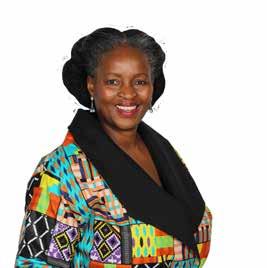
Africa is a strong indicator of the strides being made to create more gender-balanced corporate entities. The winners and finalists have shown a remarkable commitment to gender parity at both shop floor and management levels, but more must be done to ensure that issues around diversity, equity and inclusion don’t become a tick-box requirement, but are inculcated into the culture of South African public and private spaces.
Research from Grant Thornton and PwC shows that women represent only 20–29 per cent of senior management in South Africa, and Stats SA’s latest General Household Report shows that 42.1 per cent of South African households are headed by women and approximately 7.5 million South African women are either the sole or the main income-earners in their families. Ensuring we protect, promote and continuously advocate for gender parity at all levels within South African businesses, close the gender pay gap, and prioritise the upskilling of women is critical to ensuring that our households survive in an uncertain economic climate.
In this issue of Celebrating Women we talk to women committed to having the hard conversations, breaking the age-old barriers to entry, and inspiring and helping other women rise through the ranks.
Raina Julies
Published by:
PIcasso Headline, a proud division of Arena Holdings (Pty) Ltd Hill on Empire, 16 Empire Road (cnr Hillside Road), Parktown, Johannesburg, 2193 PO Box 12500, Mill Street, Cape Town, 8010 www.businessmediamags.co.za
Content Manager: Raina Julies rainaj@picasso.co.za Contributors: Jacinta Adrigwe, Leandi Beling, Bianca Botes, Jermaine Craig, Lindi Dlamini, Caryn Gootkin, Duma Gqubule, Buhle Hanise, Kerry Hoffman, Glynis Horning, Nonceba Koranteng, Colleen Larsen, Anél Lewis, Kim Maxwell, Denise Mhlanga, Itumeleng Mogaki, Palesa Mutshutshu, Ndivhu Nepfumbada, Elisabeth Nortje, Carrie Peter, Vanessa Rogers, Jared Ruttenburg, Tiisetso Tlelima, Karin Krause Wessels, Catherine Wijnberg, Lisa Witepski Copy Editor: Brenda Bryden Content Co-ordinator: Vanessa Payne Digital Editor: Stacey Visser vissers@businessmediamags.co.za
Head of Design: Jayne Macé-Ferguson
Senior Designer: Mfundo Archie Ndzo
Advert Designer: Bule Sotashe Cover Images: supplied
Project Manager: Tarrin-Lee
TransUnion is a global information and insights company that makes trust possible in the modern economy.

do this by providing an accurate picture of each person so they can be reliably represented in the marketplace.
a result, businesses and consumers
transact with
Professor Thoko Mayekiso is the vice chancellor of the University of Mpumalanga, she took up the position on 1 November 2014.

She obtained a BA, BA Honours, and MA in psychology from the University of Fort Hare. She furthered her studies at the Free University Berlin, in Germany, where she obtained her D Phil cum laude in psychology. She also holds a Higher Education Diploma (postgraduate) from the University of South Africa. She is a registered clinical psychologist with the Health Professions Council of South Africa.
In her sterling academic career, Mayekiso has held positions of senior lecturer, associate professor, professor, head of the Department of Psychology and vice dean at the then University of Transkei. She practised as an honorary clinical fellow at the Greenwood Institute of Child Health, University of Leicester, and simultaneously served as a clinical psychologist in the Department of Medical Psychology, Leicester General Hospital in the United Kingdom.
TransUnion provides solutions that help create economic opportunity, great experiences and personal empowerment for hundreds of millions of people in more than 30 countries. In South Africa,
have the nation’s largest vehicle database and our broad portfolio includes products that address fraud, identity and risk management, automated decisioning, and marketing.
customers include
of the largest banks, the top insurance companies, retailers, and
The South African University Vice Chancellors Association and the American Council on Education awarded her a fellowship, tenable at the University of Washington, Seattle.
She then joined the University of the Witwatersrand, Johannesburg in 2001 where she served as head of school, deputy dean, and then acting executive dean in the Faculty of Humanities. She proceeded to the Nelson Mandela Metropolitan University in 2007, as an executive dean in the Faculty of Arts, and then deputy vice chancellor (research and engagement) in 2009. Mayekiso is a C3-rated scientist by the National Research Foundation.
People matter. Our planet matters. We do business the right way by following our values and partnering for solutions that benefit us all.
providers.
Coca-Cola Beverages South Africa (CCBSA) is a proudly South African company that began operating as a legal entity in July 2016, after the merger of six non-alcoholic ready-to-drink bottling operations. We are a level 1 B-BBEE empowered company. We employ over 7 000 people at 13 manufacturing facilities across the country.
As a subsidiary of Coca-Cola Beverages Africa (CCBA) and a bottler for The Coca-Cola Company, our vision is to refresh Africa every day and make our continent a better place for all.

We manufacture and distribute Coca-Cola beverages that make life’s everyday moments more enjoyable while doing business the right way. The result is a shared opportunity for our customers, employees, communities, and shareholders.
We conduct our business ethically, transparently, and conscientiously. We espouse an inclusive business culture to reflect our African identity. We accelerate sustainable, profitable revenue growth across all categories and offer an innovative portfolio of products that respond to customer needs and consumer preferences. Profitability is important, but not at any cost.
African Bank Limited is a retail bank offering a range of financial products and services, serving both private and business customers. The bank is rated the overall leader in customer satisfaction in the banking industry. It has a countrywide branch distribution network, a full digital channel offering, and sales, collections, and customer
service contact centres. African Bank is a scalable, diversified, and sustainable business focused on its heritage journey of being a bank for the people, by the people, serving the people – with a clear vision and strategy, strong leadership, and an audacious drive to deliver on the promise of its founders.
Deloitte provides industry-leading audit and assurance, tax and legal, consulting, financial advisory and risk advisory services to nearly 90 per cent of the Fortune Global 500 and thousands of public and private organisations.

As a global professional services firm and one of the most iconic brands in Africa, Deloitte has a proud history of attracting top talent and delivering value to clients, and society. Over the course of more than 177 years, Deloitte has helped forge ecosystems that deliver breakthrough
solutions, which help our clients succeed in an era of complexity and disruption.
With more than 6 500 professionals across 12 countries in sub–Saharan Africa, Deloitte delivers measurable and lasting results that help reinforce public trust in capital markets, enable clients to transform and thrive, and lead the way toward a stronger economy, a more equitable society and a sustainable world. Learn how Deloitte’s more than 415 000 people worldwide make an impact that matters at www.deloitte.com.

Karin Krause Wessels was appointed managing director in 2021 and, with a management team that enjoys a healthy blend of experience and youth, has set about gearing the company for even more exciting growth. Over the last year, Snells has been rolling out its purpose, which is to pursue greatness for good, not only to realise its ambition, but also to create a sustainable, collective force for good. It is about being better and doing better every day, and the Snell team is facing the future with confidence.
There is clearly no glass ceiling here.
For over 120 years, Rand Mutual Assurance (RMA) has been compensating injured miners and ensuring that beneficiaries and their families receive the care they are entitled to following a work-related injury or occupational disease.
The social assurer is now extending its service into rehabilitation medicine. An area of medicine that is largely fragmented in South Africa’s healthcare system, notes Dr Miranda Moloto, head of rehabilitation at RMA.
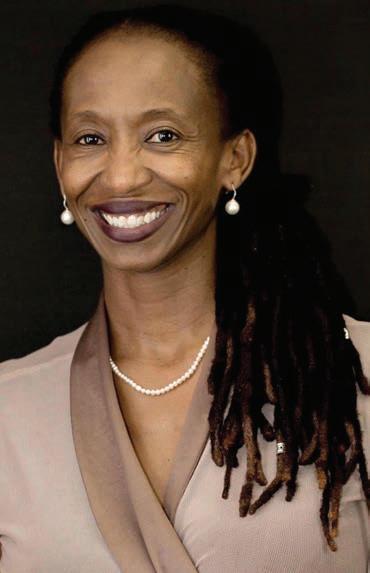
Most medics who end up in this field will have completed their medical studies plus a diploma in occupational medicine. By virtue of being an occupational medical practitioner, they become responsible for incapacity management and return-to-work programmes in many workplaces.
“A post-graduate diploma in occupational medicine offers an ideal space for women, as it is a field that mostly operates on a Monday-to-Friday basis, affording women a greater opportunity to balance their work and home life. It is certainly a far cry from most other healthcare options, which tend to demand doctors to be on call and do overnight shifts,” she says.
“Moreover, this field opens one’s eyes to how the various products end up in our homes and how the process to get them there affects the health of those that manufacture the goods.”
Moloto says this area of medicine is ideal for her, as she quickly realised after her medical training that she is not a “white coat and stethoscope” kind of doctor. She points out that she gravitated to occupational/ rehabilitation medicine shortly after starting her medical career. Before graduating, she did not appreciate the significance of preventive/ occupational medicine.
“For me, occupational medicine sits at an intersection where medicine, engineering, science, and legislation collide. Your focus is
not only on the medical aspects, but also on the factors that lead to an accident, the conditions on the factory floor, the labour relations, the impact of the injury on the psyche of the broader workforce, and the physical and mental impact on the victim.
“Our role in this space – should an injury be life-altering – is to assist them and the employer to adapt to their disability and to offer advice on reskilling, thereby providing the opportunity for them to re-enter the job market and become economically viable. Delivering this kind of critical intervention makes the field of occupational health, incapacity management, and rehabilitation so compelling for me.
“I believe many women would find a career here attractive because it is a multifaceted space with the key commonality that it requires caregiving and emotional support – attributes common among women. Occupational medicine interacts with several rehabilitative professions, such as physiotherapy, occupational therapy, dietetics, speech therapy, and psychotherapy. Of course, while there is a high need for empathy, knowledge of labour laws is a requirement, as is interacting between engineering and medical science, and skill in managing the various stakeholders in a workplace,” she explains.
“If I were to provide any advice to a young medic, it would be that if you are looking to apply medical science and you have an interest in engineering and, most importantly, interested in broader public health and human rights, consider occupational and rehabilitation medicine when you leave medical school. Prepare to have your world view of medicine stretched.”
Moloto adds: “South African workplaces have indeed contributed to a population of disabled people, who, with the right care, reskilling, right assistive device, and appropriate access to buildings or factories, can still be brought back from the margins of society into the mainstream. Imagine the sense of wellbeing for disabled workers when they can have their dignity restored by being productive members of society.” This, she says, talks directly to what RMA as a social assurer is about – restoring quality of life and reintegration into work, community, and family.
The fields of occupational health and injury prevention and rehabilitation offer unique benefits and options to young women entering the medical field. By RODNEY WEIDEMANN
“Many women would find a career here attractive because it is a multifaceted space with the key commonality that it requires caregiving and emotional support – attributes that are common among women.” – DR MIRAN DA MOLOTODr Miranda Moloto
To be the leading insurance provider

administrator of employment injury- and health-related benefits and niche insurance solutions through a world-class integrated IT system.
Dr Jessica Hutchings, head of prevention at RMA, says the company has introduced a new programme to help its members prevent and reduce incidents, accidents, and occupational diseases in the workplace. The programme aims to assist organisations to become more socially responsible and proactive in preventing injuries before they occur.
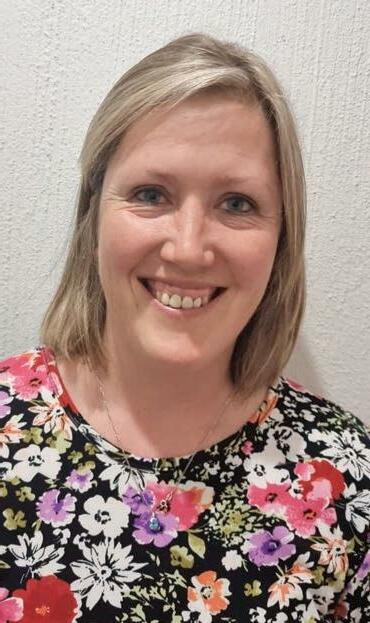
“When it comes to health and safety, prevention is better than cure. As I have a passion for helping people, being able to help ensure organisations create a safe place in which their employees can work is a dream come true,” she says.
“Our programme has several focus areas, including looking at improving workplaces, processes, equipment and environments to be safer for employees. In addition, we assist with things such as fi nancial wellness, as there is a link between employees struggling with severe fi nancial pressure and an increased number of accidents. Obviously, such stress has a psychological impact on them and their ability to keep their full attention on their job.”
She notes that a preventative approach to safety – where organisations need to reflect on their systems and how these may contribute to injuries and accidents – is better than a punitive one, which focuses on and punishes an individual for not following the rules or not wearing the correct personal protective equipment (PPE). These transgessions are often merely symptoms of larger organisational issues, where the employee is simply at the end of the chain created by these systemic issues.
“When I joined this industry, it was largely male-dominated, given that you are usually dealing with industries such as engineering, manufacturing and mining. Obtaining a PhD helped me gain the level of respect to be listened to when outlining what needed to be done from a safety perspective,” explains Hutchings. “From a female perspective, this was a sad realisation as I am not one for titles.
“Fortunately, things have changed over the years, and today the health and safety arena is far better complemented in terms of its gender balance. Nonetheless, industries are still a maledominated field, so it remains a constant battle to overcome the cultural attitude towards women. More can be done to change the culture and mindset around women’s ability in this field.”
Hutchings describes her work as quite challenging, as there is often a struggle to ensure safety is viewed as a critical business priority. Naturally, the more mature an organisation, the more easily it understands the benefi ts of this, as it recognises how proactive safety measures can save a business from financial, legal, and reputational damage. It makes good business sense!
“I feel it is important to have more women in this space to help motivate for equipment and facilities, designed with women in mind, to cater to the female employees in the workplace. We need to create workplaces that are as fair and just for women as men – meaning ensuring there is PPE designed specifi cally for women, and facilities, for example, for women who are breastfeeding. And it can even be more basic efforts to ensure fairness, such as ensuring that bathroom facilities on-site cater for both genders,” she explains.
“While a lot of work still needs to be done here, we are slowly gaining traction through the unions, but education is still very much

RMA is the warm African sunrise that welcomes warmth, comfort and care to the lives we touch. Just like parents who care for their children, the brand promise of RMA is to be caring and compassionate so that clients can go through life’s challenges a little bit easier.
required at a senior leadership level. Companies complain about not having the budget for such interventions, but they really should be asking whether they can truly expect staff to be motivated and on top of their game when they don’t feel valued as employees because their employer can’t be bothered to provide them with something as basic as the correct ablution facilities.”
Hutchings suggests that when it comes to this line of work, regardless of gender, you need knowledge, determination, and confidence, and must display willingness and passion to go the extra mile to fix things to save lives. Collaboration, compassion, and caring are also critical attributes.
“My advice to young women is to ensure that you love what you do. It is very important to be happy about coming to work every day. Occupational healthcare is a broad field, so there are many different opportunities – from health and safety to ergonomics and systems engineering. You will never be bored, you will have the opportunity to avoid being boxed into one career choice, and – most crucially – you will be in a position to help save and/or improve lives,” she concludes.







Could gender bonds provide a viable solution to issues hampering female advancement? COLLEEN LARSEN , chief executive, Business Engage, weighs up the pros and cons




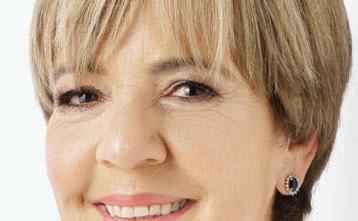

F emales now hold 12 per cent of board seats around the world, states a Deloitte’s report on women in the boardroom. It’s an unimpressive fi gure, and whatever merit it holds is undermined by the fact that only four per cent of these boards are chaired by women.




This is problematic because, if we are not making headway in this area, our overall progress in governance – as defined in terms of environmental, social and governance (ESG) – is compromised. This has signifi cant implications for responsible business conduct and sustainability.


While female advancement at the upper echelons of corporate life appears to remain stagnant, at the other end of the spectrum, basic financial access is a challenge, too.
This is why news of gender bonds has been received with signifi cant interest. Potentially, these financial instruments stand to provide an answer to both issues – to the extent that in November last year, the International Capital Markets Association joined forces with the International Finance Corporation and UN Women to publish a report on gender bonds. The Bonds to Bridge the Gender Gap: A practitioner’s guide to using sustainable debt for gender equity report explores how these bonds can be used most effectively as a tool for narrowing the gender gap.
It’s a crucial discussion, given that as much as US$28-trillion, or 26 per cent, could be added to the global gross domestic product in 2025 if gender representation in the economy becomes more equitable.
Simply put, gender bonds are like any other bond in that they can be purchased by public, private, domestic or international investors. However, they include considerations around gender issues as part of their objectives: the idea being to stimulate investor interest around these issues and thus create awareness around gender inequality and theneed for female advancement.
One of the ways they do this is by supporting projects, which, for example, promote equal pay for women or aim to help women move out of poverty, or offer a boost for female entrepreneurs. For example, the US$28.4-billion social bond issued by private bank MiBanco – the first publicly issued gender-focused bond in Colombia – will generate proceeds that are invested in a portfolio of local women-owned or -led micro enterprises, while proceeds from Banco Pinchincha’s US$100-million bond – the first to be released on
the Ecuadorian stock market – have been earmarked for the finance of more than 10 000 women-owned small and medium enterprises, representing an effort to increase economic development and productive investment for women.
And in Singapore, the Impact Investment Exchange has launched the Orange Bond Initiative. The Impact Investment Exchange is already known for its work in social and impact financing, and this bond is set to continue its work: a global coalition aiming to create the world’s first gender-lens investing asset class, it will empower around 100 million girls and women globally by mobilising US$10-billion in investments in Asia and Africa to support its goals – an objective it expects to reach by 2030.
Around the world, investors are taking note. According to data compiled by Bloomberg, the global sum of new debt linked to sustainability and social targets issued this year has almost equalled the total reached during 2020. And it’s unlikely to stop there. Global ESG bond issuances are expected to exceed US$1.5-trillion this year. What’s more, in May, the Luxembourg Stock Exchange signed a memorandum of understanding with UN Women, committing to strengthening co-operation and working to promote joint initiatives that advance gender finance.



Against this backdrop, global law firm Dechert LLP has indicated that sustainable investing is on the up, having achieved signifi cant growth in recent years. The firm attributes this trajectory to continued increasing focus on ESG factors by investors.

Locally, the concept is gaining traction, too. When Barloworld announced the sale of debt linked to gender diversity targets on 13 August (fi ttingly, mere days after Woman’s Day), the company added that it had set a target of R1-billion to be raised in three- and fi ve-year bonds, with rates linked to goals for women in leadership structures and participation of black women-owned businesses in the supply chain.
While this may have been a first in South Africa, in Tanzania, NMB Bank Plc’s sale
The Impact Investment Exchange Orange Bond Initiative is named after the colour symbolising the UN Sustainable Development Goal 5 “Achieving gender equality and empowering all women and girls”.
Source:ImpactInvestmentExchane
of shilling-denominated bonds aims to raise money to extend affordable loans for enterprises owned or controlled by females. The bond boasts the distinction of being the first offered in the East African region.
However, there is a but: although demand for sustainable and green financing is increasing, the availability of investment products dedicated to addressing gender issues and promoting gender equality isn’t keeping pace. Just US$17-billion in global assets – a small fraction of the total global sustainable investment market – relate to gender-labelled financial products.
It’s also worth pointing out that, as yet, there has not been a sovereign issue of a gender bond – until now, all issuances have primarily been through multilateral development banks and corporations. This looks set to change, though, with UN Women embarking on a series of partnerships with governments across Asia, Latin America, and Africa to develop frameworks allowing for sovereign issue. Moreover, some sovereign issuers have already gained approval to conduct an issuance.
Another criticism involves the target audience of gender bonds. Although it’s


certainly encouraging to see more investors paying attention to the issue of female advancement, does it translate into real gains if governments don’t sit up and take note?
It could be argued that the introduction of bonds is a step in the right direction – with suffi cient interest, the topic will inevitably find its way onto national agendas. And, indeed, this does seem to be the case. S&P Global has observed that governments – and regulators too – are clamping down on companies that uphold outdated gender norms. Key stakeholders are keeping an ever closer eye on gender empowerment practices, and those that fail to comply face severe penalties. In the UK, for example, a new law requires that organisations employing more than 250 staff members report on their gender pay gaps. The information elicited as a result has upped the outcry around discrimination, feeding the debate around the best methods to measure, and define, the gender pay gap.
It’s only a matter of time until more countries enforce similar legislation, which means that, in time, gender parity at board level and beyond may become a regulatory issue.
This development can’t come too soon. If female representation at board level continues to grow at its current rate, we can expect to reach board parity only in 2045. In the meantime, life for women outside of corporates continues to become more diffi cult in the wake of the COVID-19 pandemic. Estimates state that the global event has pushed 47 million women and girls into poverty, adding to an already concerning number. At the same time, data collected from 16 different countries shows that women performed, on average, 29 per cent more child care than men during the pandemic.
Clearly, then, gender equality, already limping along before the pandemic, has just stumbled – and a solution is required to get it back on track. But are gender bonds that solution? Only time will tell.
Governments – and regulators too – are clamping down on companies that uphold outdated gender norms. Key stakeholders are keeping an ever closer eye on gender empowerment practices, and those that fail to comply face severe penalties.
Although demand for sustainable and green financing is increasing, the availability of investment products dedicated to addressing gender issues and promoting gender equality isn’t keeping pace.
Research shows that gender parity drives economic prosperity, so why is South Africa lagging when it comes to gender parity? ANÉL LEWIS looks at how initiatives like the Gender Mainstreaming Awards encourage corporate South Africa to embrace meaningful inclusivity

With almost a third of organisations in South Africa having no women in senior management positions, according to Accenture, South Africa is lagging in achieving gender equality. It’s a situation that needs “urgent attention”, says Belinda Motshome, technology managing director and women’s forum lead for Accenture in Africa.

Equality should go beyond merely meeting targets and filling quotas. “Gender mainstreaming is about men and women becoming equal – being treated equitably, being given the same opportunities, privileges and pay,” explains Motshome. Yet, the gender gap globally is widening, with the World Economic Forum (WEF) saying it could take as long as 132 years to resolve. Locally, the situation is equally dire. “Accenture data shows that gender parity is happening slowly in pockets, and we need to find a way to accelerate it.”
Despite progressive legislation and initiatives such as the Gender Mainstreaming Awards, which for the past decade has acknowledged those in the private sector who have achieved meaningful gender representation, not much has changed for women at management level, says Motshome.
Furthermore, women earn between 23 and 35 per cent less than their male colleagues for similar work.
Unsurprisingly, South Africa is low on the list of countries when it comes to wage parity, ranking 123rd out of 146 countries, according to the WEF’s Global Gender Report (2022). “Mired in antiquated cultural and societal norms, South Africa is slipping behind much of the developed work in terms of achieving gender parity,” says Motshome. Part of the problem
is a tendency to view gender equality as a “women’s issue” with a focus on how to “fi x” women, she says. While women can certainly do their bit to increase their resilience and build their leadership style, organisations need to do more to level the playing fi eld.
Research in the United Kingdom by the 30% Club, a global business campaign to encourage greater representativity at executive level, identifi es three barriers to women in the workplace – societal, organisational, and personal. Motshome says societal barriers include the subtle societal and cultural cues that reinforce how men and women “ought” to behave. Stereotypes that typecast women as the primary caregivers, compounding the “double burden” they bear as professionals, often act as a barrier to their career advancement.
Structural barriers include experiences and networks that may be diffi cult to penetrate, says Motshome. The “boys’ club” mentality in some organisations can leave women on the periphery, making it almost impossible for them to be considered for leadership positions. “Structural obstacles interfere with women achieving the most important experiences and skills and building the most critical relationships and exposure necessary for career success.” She says organisations can deal with these challenges by communicating and celebrating women role models. They should also offer mentorship and sponsorship programmes to nurture junior female talent.

Women may also be reluctant to put themselves












Accenture South Africa aims to increase the representation of women managing directors to 50 per cent by 2025.



Currently, women account for 51.2 per cent of the workforce, and the percentage of women managing directors is 26.7 per cent.
forward for promotion or high-profile assignments, says Motshome. “Various studies have shown that women tend to understate their performance, while men often overstate their performance.” As such, women may present as being underconfi dent. In fact, in many cases, women are as ambitious as their male colleagues, but scepticism about their access to advancement opportunities forces them to hold back. She encourages organisations to motivate qualifi ed women to apply for promotions.


Gender parity is more than just a nice-to-have, to tick a box or meet the United Nations’ 5th Sustainable Development Goal (SDG) to achieve gender equality by 2030. “A workplace culture of equality is a powerful multiplier of innovation and growth, and the research proves it,” says Motshome. She says a report published by diversity and inclusion group The Pipeline found that Financial Times Stock Exchange

“Accenture data shows that gender parity is happening slowly in pockets, and we need to find a way to accelerate it.”
companies with no women board members are 10 times less profi table than those who have women holding one-third of positions. The economic impact of gender inclusivity in South Africa is as signifi cant. Accenture previously calculated that R319-billion1 could be added to the country’s gross domestic product (GDP) if businesses upskill as little as 13 per cent of the women they currently employ. “The stakes are therefore enormous, and it can be done,” Motshome says.
Diverse organisations have a better bottom line, adds Khethiwe Nkuna, CSI and responsible business lead for Accenture Africa. “If business leaders prioritise a culture of equality, they will create an environment more likely to
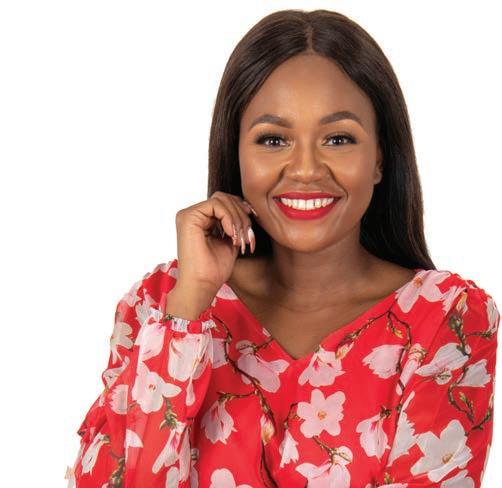
produce their desired financial results. Eventually, leaders will evolve to see profi t and culture not as separate endeavours, but as tightly interdependent goals equally crucial to success.”
collective effort that includes men, business leadership, and the support of communities.” She says even small actions, such as calling out sexist language, will have a positive impact. Bold leadership is needed to drive cultural change. “Best-in-class companies actively support and nurture inclusive cultures, beginning with a compelling change story that helps to foster understanding and conviction in what is being asked.”
Accenture’s Better to Belong research highlights how women’s experience of the workplace differs from their male colleagues, especially since the pandemic. A third of women employees surveyed said they did not feel as though they belonged in the workplace. This sentiment is related to influencing decisions, being respected by peers and managers, feeling comfortable about speaking out, and having a leader who can help them advance. Businesses that exclude women in this way risk losing out on valuable intellectual capital. Motshome says global research suggests that improving women’s everyday experiences can unlock up to fi ve times more potential. “I believe that to grow and remain competitive, businesses need women. It’s been proven that the more inclusive and equal businesses are, the more profi tability, innovation and economic growth are realised,” she says.
One of the reasons often cited for lack of gender diversity is a dearth of qualifi ed women. So Motshome urges companies to build a “pipeline of equal talent” that can add value to the business. “The corporate race is on (in South Africa) to innovate and find skilled specialist workers. Recruiting for a balanced workforce makes sense.” Visible leadership that promotes gender equality and development programmes for women will help nurture this talent pipeline. Furthermore, workplace systems should be “de-biased”, says Motshome. “Stripping out gendered language from job descriptions and ads, removing identifying information from CVs (race and gender), ensuring balanced interview and promotion panels, and analysing appraisal and salary data for different minority groups to ensure no inadvertent unfair treatment, are all powerful ways of removing bias from the employee cycle.”
she says.

Motshome is emphatic that gender equality in the workplace cannot be achieved without the active support of men. “To build a more economically inclusive future, we need a
Motshome says gender mainstreaming has long been a tenet of Accenture’s approach to business. “By empowering more women, we can create a culture of equality and lead the change that could help the country unlock billions into its GDP, creating more jobs to achieve gender parity in the workplace.”
Accenture has set a target to increase representation of gender, race, and ethnicity. More than 300 000 women work at Accenture globally, and 50 per cent of the company’s board of directors and 27 per cent of the management committee are women.
1. https://www.accenture.com/_acnmedia/ accenture/pdf/accenture-getting-to-equal-pov.pdf
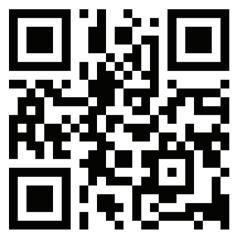

Accenture has several women-led initiatives to promote gender equality, including the Voices of Change movement. The movement was born at the 2017 One Young World Summit when Accenture and Thomson Reuters identified an opportunity to leverage their networks and experience to create a lasting and impactful change. Since then, the movement has partnered with well-established companies to help drive a more equal society; as well as Soar!, an initiative that empowers high school learners to make informed career decisions to bridge the gender gap. Accenture’s Women’s Forum Book Club is another initiative that encourages learning and growth through a series of events with inspirational speakers.

“If business leaders prioritise a culture of equality, they will create an environment more likely to produce their desired financial results.”
– KHETHIWE NKUNA
Even small actions, such as calling out sexist language, will have a positive impact. Bold leadership is needed to drive cultural change.Khethiwe Nkuna
Women account for half of South Africa’s population and about 45 per cent of the workforce, yet, according to the University of Stellenbosch Business School (USB), only 26.9 per cent of directors of JSE-listed companies are women. This is despite a stipulation instituted five years ago that JSE-listed companies are required to have a gender policy at board level.
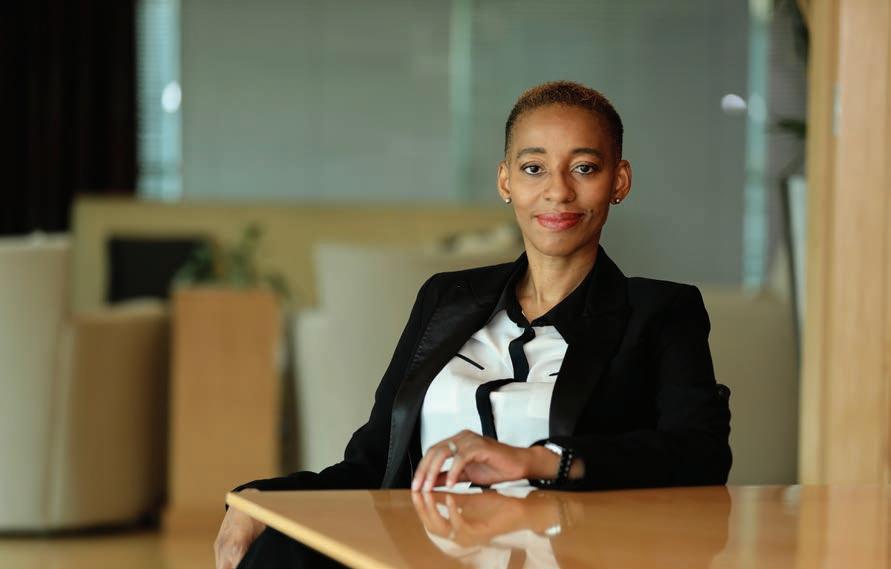
Women still represent less than 20 per cent of board members in publicly listed companies globally.
Source: Harvard Law School Forum on Corporate Governance
While there is no legislative imperative in South Africa to diversify boards, it is encouraged through voluntary organisational targets. As the Stellenbosch Business School’s Winds of Change report notes: “The King IV Corporate Governance Code recommends that companies should set their own targets for boardroom diversity and formally report on their progress. These codes are binding on JSE-listed companies, while unlisted companies are encouraged to adhere to them.”
However, there are no consequences for JSE-listed companies that do not meet their targets.
Vuyo Lee, director of marketing and corporate affairs for the JSE, says the board of
directors of listed companies must have a policy on the promotion of broader diversity at board level, specifically focusing on the promotion of the diversity attributes of gender, race, culture, age, field of knowledge, skills, and experience. The company must show shareholders in its annual report how the board of directors or the nomination committee, as the case may be, has considered and applied the policy of broad diversity in the nomination and appointment of directors. Lee goes on to say that, if applicable, the board of directors or the nomination committee must explain why any of these diversity indicators have not been applied.
But is such a policy requirement enough to improve gender parity at senior management level? Colleen Larsen, chief executive of Business Engage, an organisation driving gender mainstreaming in the private sector, argues that gender balancing on boards is just one aspect of balancing everything within a company, and society as a whole. “The question is not, and never has been, about if companies are doing enough, but whether society, in general, is doing enough. This starts with education and ends with the overall community. Companies are but a part of the equation.”
Lee says that gender representation needs to be set in a company’s recruitment strategy. “The nomination committees of boards need to develop policies supporting this and set firm targets for gender representation on their boards that they can track over time.”
Gender balance at board level is not only the right thing to do, but also good for business. ANÉL LEWIS looks at ways companies can go beyond policy and targets to achieve meaningful parity
“Having a diverse board comprising qualified people who offer different perspectives and experiences enriches the quality of ideas and decision-making.”
– VUYO LEE
“More programmes are required to train women on corporate governance and the responsibilities of being board members.”
– VUYO LEEVuyo Lee
According to Business Engage’s annual study, State of Gender on JSE Listed Boards(2020), very few J S E-listed companies had even set gender diversity targets, never mind reaching them during the January–December 2020 reporting period. Of the 295 companies analysed, 63 per cent had no specific gender targets, and only 20 per cent had achieved the targets they had set.
This is not to say that these companies are unwilling to change their gender profile at board level. As the study notes, reasons cited for the slow pace of transformation included the slow rate of resignation of existing nonboard members – with some remaining in their positions for consecutive terms – as well as concerns about the lack of skilled women to fulfil the role or the negative impact a focus on a target, rather than merit, could have on a company.
The Winds of Change report talks about the importance of training and mentorship to pave the way for more women to serve on boards. The authors argue that a diverse board will improve an organisation’s performance. Greater representation means better governance processes, better alignment with stakeholder interests, and a stronger focus on corporate social responsibility. “If you are not promoting women onto your board, you are only utilising about 50 per cent of a resource. A company would not do that with any other resource, such as capital,” says Larsen.
Lee argues that gender representation at board level is both a moral and a business imperative. “Having a diverse board comprising qualified people who offer different perspectives and experiences enriches the quality of ideas and decision-making.” It provides an opportunity for a gender lens to be applied to discussions throughout the company. She says that meaningful progress in efforts to move towards a gender-equal society will only be possible if boards have more women. “Boards with good women representation tend to pay more attention to gender-related issues in their respective organisations.”
There is no “one-size-fits-all” solution for companies wanting to improve board representation, says Larsen. She explains that any gender parity board will need to consider:
• The size of the board;
• The technical skills required;



• The opportunities for women to acquire those skills;
• The age of the current board members;
• The leverage of stakeholders and third parties on gender diversity; and
• The impact of the pandemic on the ambitions of women.
Lee says that a company’s recruitment strategy must underline that gender representation is as important as racial diversity when it appoints board members. The J S E has grown the number of women on its board, and there is currently 60 per cent representation, says Lee. “This was done through focused and deliberate recruitment action. The J S E has taken equality a step further by addressing the wage gap within the organisation. “We conducted a pay gap analysis by gender and set aside a budget to close pay disparities. We believe this practice
Business E ngage researches the status of gender on JSE-listed boards annually, using companies’ integrated annual reports.
Source: Business Engage
should be undertaken regularly to ensure that women and men get paid equally for doing the same work.”
As it is often said that there are not enough qualified women to fill board positions, Lee says that exposure and development are important to grow the pool of board candidates. “More programmes are required to train women on corporate governance and the responsibilities of being board members, and more companies need to lobby on the importance of recruiting more women on boards so that they get more experience.”
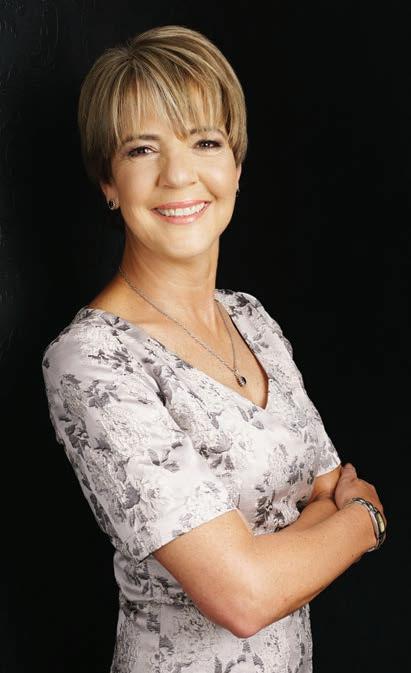
But for sustainable and meaningful change, boards considering greater representation should “fundamentally ignore the diversity issue per se, and make sure they have or can procure the best talent available for their various requirements – be it board, executive, senior management, pipeline or retention”, advises Larsen. The next step would be to stop bias and encourage diversity throughout the organisation.
This echoes the sentiment outlined in the Business Engage study that gender parity is best achieved with a culture shift, which recognises the benefits of having a representative board rather than focusing only on achieving quotas or targets.
“If you are not promoting women onto your board, you are only utilising about 50 per cent of a resource. A company would not do that with any other resource, such as capital.”
– COLLEEN LARSENUSB WOMEN REPRESENTATION ON BOARDS REPORT USB WINDS OF CHANGE REPORT STATE OF GENDER ON JSE-LISTED BOARDS Colleen Larsen
“The question is not, and never has been, about if companies are doing enough, but whether society, in general, is doing enough.”
– COLLEEN L ARSEN
After 28 years as a niche bank offering bespoke deposit facilities, property fi nance and investment banking, Grindrod Bank is expanding and pursuing South Africa’s small and medium enterprise sector.



















rindrod Bank was established in 1994 as a subsidiary of Grindrod Limited. Over the years, the bank developed a thriving core business in three areas. The treasury operations developed expertise in maximising returns for client deposit investments. The bank also became known for providing mezzanine finance (a hybrid of debt and equity finance) for commercial and industrial property deals. Investment banking provided working capital, short-term loans and finance for management buyouts, empowerment deals and to expand operations.











Grindrod Bank is now focusing on supporting the country’s small and medium enterprise (SME) sector, which can be a major driver of economic development over the next decade. The SME Banking division offers products and services designed to assist entrepreneurs in building value, managing growth, and maximising their company’s potential. Each client’s needs and circumstances are considered when tailor-making a solution. Products include short-term facilities to improve cash flow, asset-based growth finance to fund equipment, vehicles and inventory, as well as flexible, personalised services based on specifi c needs. Grindrod has big plans to expand its SME financing operations to support the growth of this sector, which contributes meaningfully to economic growth and job creation.
In March 2022, the bank appointed Zizipho Nyanga as managing executive responsible for strategy whose primary focus will be on SME and platform banking. A qualifi ed chartered






Zizipho Nyanga
“Our strength is the relationships we form with our SME clients where we get to understand their businesses. Our proposition includes overdrafts, working capital, and term loans. We are also expanding the products and services we provide to SMEs.”
– ZIZIPHO NYANGA
accountant with over 17 years of experience in external audit, finance management, entrepreneurship development and funding. Nyanga is a seasoned and accomplished professional who has been driving SME development and finance in various roles in her career. She brings new energy and a collaborative approach to the bank at a pivotal time in its history.
At the national level, the National Development Plan (NDP) held that SMEs would account for 90 per cent of the 11 million jobs that would be created until 2030. SMEs, however, continue to raise concerns that there is not enough access to capital and too much focus on large black economic empowerment (BEE) transactions. They say there should be a bottom-up movement of developing entrepreneurs who can grow the economy and create jobs.
Nyanga says there must be a national ecosystem that develops entrepreneurship. It should start at the level of the education system. “Entrepreneurship must be taught in schools. The option of becoming an employer by owning your own business should be emphasised as much as the option of studying to become an employee one day.
“The other element of the ecosystem is to scale up public-private collaboration to provide holistic interventions that combine financial and non-financial support. Many entrepreneurs are survivalists. The public sector can provide grants, incubation, access to markets and
mentorship in partnership with the private sector to help entrepreneurs to graduate to become growth-oriented SMEs that can access finance.”
Nyanga’s message is that there is a gap in the SME financing market and that Grindrod Bank can contribute in meeting the NDP targets by supporting SMEs that can grow the economy and create jobs. “Grindrod Bank SME Banking division is open for business and seeking to grow and diversify its client base. We have a nationwide footprint, though we have a strong presence in KwaZulu-Natal, Gauteng, and the Western Cape. We are agnostic about the sectors that we can support including franchises, logistics, manufacturing, and renewable energy.
“Entrepreneurs can come to us. We will walk the entrepreneurship journey with them. Our strength is the relationships we form with our SME clients where we get to understand their businesses. Our proposition includes overdrafts, working capital, and term loans. We are also expanding the products and services we provide to SMEs,” she says.
As a woman leader in this sector, Nyanga says: “You must surround yourself with the right people, men and women, who can have a positive impact on your career. When you are faced with challenges, there must be a boss, mentor or sponsor who can provide you with advice on your personal development. A good family support structure is also important.”

Portia Zilwa, the head of the Grindrod Bank SME Banking division, is another female leader at Grindrod Bank’s SME Banking division. She is passionate about economic development and SME finance and is responsible for growing the bank’s SME client base directly or through new strategic partnerships.
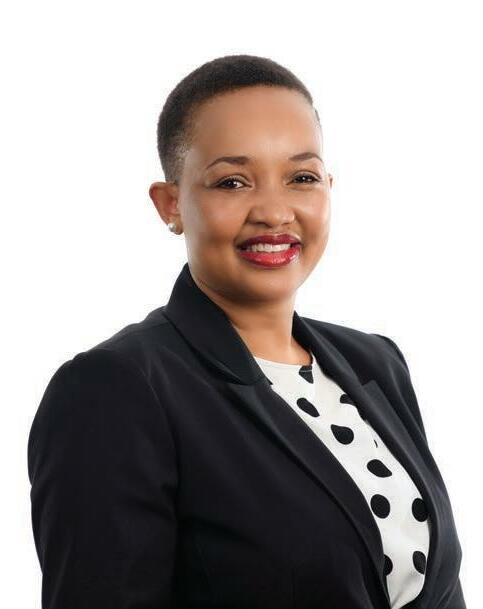
Zilwa is adamant that access to finance is not the main challenge facing SMEs. The key issue is to invest resources to prepare SMEs to meet a financier’s lending criteria. “As a country, we must provide better pre-investment support to SMEs. Many SMEs may not have collateral or skills and may not fully understand the requirements of banks and usually require assistance or hand-holding in areas such as preparing financial statements and business plans.
“We must provide customised support for each SME and not cut-and-paste solutions that chase volumes.“ She says one of Grindrod Bank’s major differentiators is its quick turnaround time to process SME lending applications. “The bank’s processes are accessible, simple, and geared to deliver with speed.”
Lynette Pillay, a senior lending consultant, has more than 25 years of experience in the
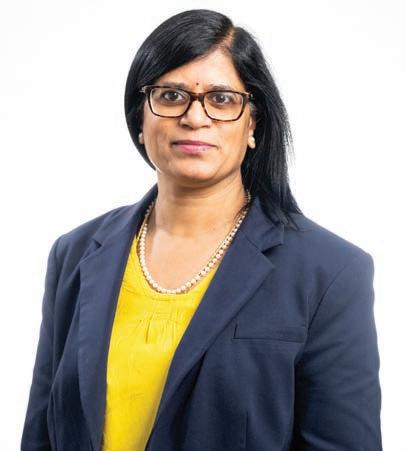
working capital environment. Pillay, an integral member of the team, has been responsible for driving the existing relationships with the bank’s clients and growing the division. She is passionate about building relationships and finding optimal solutions for her SMEs.
“At Grindrod Bank, we pride ourselves on understanding our client’s businesses. It does not matter which industry you are in, if you are looking for a working capital solution, we will find it for you,” she says.
For more information:

“At Grindrod Bank, we pride ourselves on understanding our client’s businesses. It does not matter which industry you are in if you are looking for a working capital solution, we will find it for you.”
– LYNETTE PI LL AY
“We must provide better pre-investment support to SMEs. Many SMEs may not have collateral or skills and may not fully understand the requirements of banks.”
– PORTIA ZI LWA
Engage
and
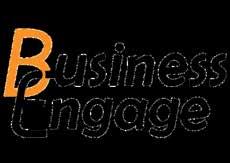


the forefront of
runs for one year from the date of payment of the membership
access to the
across
events
include
to
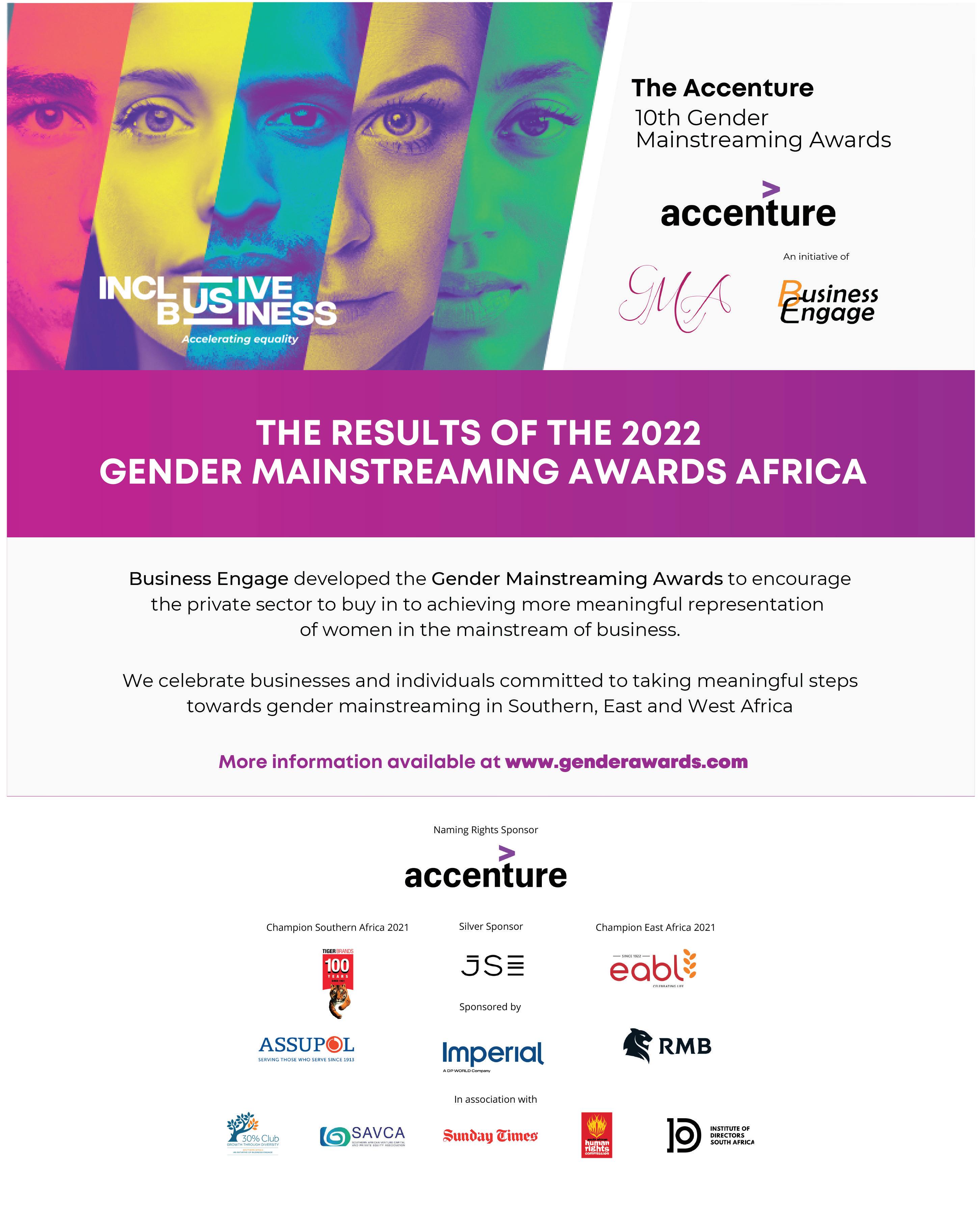

CRITERIA: The key focus of the 30% Club, an affiliate of Business Engage, is to encourage corporates to aim to achieve a minimum of 30 per cent female representation on boards. It is acknowledged that board diversity both in respect of gender and skill set leads to more successful boards. The board of an organisation considers the strategy of the business with management and has oversight of the implementation of that strategy.
The crux of this award is to recognise and acknowledge companies that have successfully transformed their boards and board subcommittees while ensuring that female directors are judged on their experience, contribution to and involvement in the board and not their gender. It seeks to acknowledge companies that challenge themselves to diversify their boards. In summary therefore, entries may be based on:
1. Number of nonexecutive women directors on the board;
2. Number of women on subcommittees and a list of which subcommittees;
3. Entrants to supply the board diversity policy/framework, which they are obliged to give the JSE; and/or
4. Pipeline development – details of the outlined hard plan to improve the number of women on the board.
CRITERIA: In a multinational, those in charge of governance in the respective regions are expected to play a major role in shaping business and economic activities. They are expected to come up with a framework that will underpin the principles, policies, laws and regulations they put in place to guide these economic and business activities and the compliance thereof. We are mindful, however, that to reach this status, a pipeline programme is required to make available this talent for consideration. This reward recognises those multinationals that have successfully put in place a programme/s to shift the statistics in terms of women on their executive committees and have made successful appointments or have developed a pipeline programme geared towards appointments in the future.
Judging will be based on the following:
1. Number of women in executive management.
2. How many of these are board directors on the board of that company?
3. What roles do they occupy?
4. What programmes have been put in place to provide support for the existing women on exco?
5. What programmes have been put in place to create a succession pipeline for women to break the glass ceiling and get onto the exco?
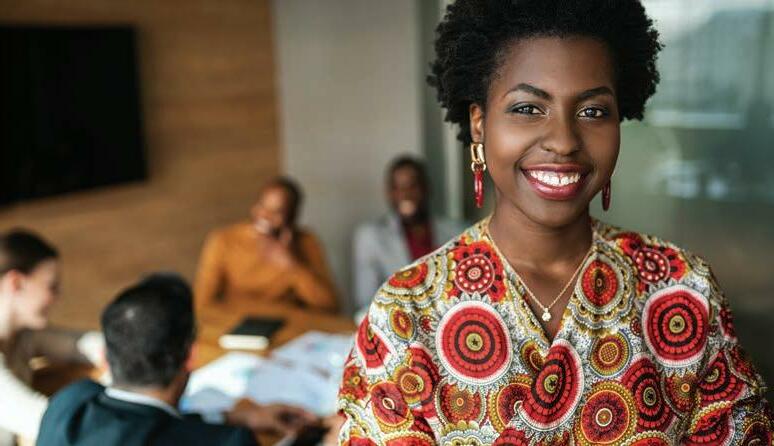
‘‘Gender mainstreaming means the process of identifying gender gaps and making women’s, men’s, girls’ and boys’ concerns and experiences integral to the design, implementation, monitoring and evaluation of policies, legislation and programmes in all sectors of life to ensure that they benefit equally.” – 30% Club.
CRITERIA: This award recognises organisations that have developed strategies or have already implemented measures for the progressive realisation of a greater representation and meaningful participation of women in decision-making structures, which must include:
Setting targets for such representation and participation;
Building women’s capacity to participate;
Enhancing the understanding and attitudes of men to accept the capabilities and participation of women as their equals;
support mechanisms for women.

CRITERIA: Empowerment of women in the workforce means allowing women to have more control over their lives. It means giving them the freedom to make their own schedules, learn new skills and gain self-reliance. This does not have to relate to your own company, but can be empowering women generally in the workplace. Empowerment is created when the strengths that women already bring to the company are recognised and utilised. Research provided by the United Nations has shown that businesses that promote women empowerment and gender equality are more profitable. As more businesses take part in gender equality measures and see their revenue increase as a result, the case for empowering women in the workplace is likely to become a more recognised goal. This award recognises and acknowledges organisations that have not only advanced women in their workplaces through training and capacity building, but have also successfully transformed corporate behaviour and practices.
CRITERIA: We consider women’s entrepreneurship development to be an important channel to women’s economic empowerment and a pillar on the road to sustainable development. Through setting up their own businesses, women can transform their opportunity to gain economic independence, overcome poverty and improve their wellbeing. Through this process, women can also become drivers of change and take a long-term perspective accounting for the consequences of our actions for our children and their children and grandchildren to secure a better future.
This award recognises and acknowledges organisations that have strategies in place to allow for future empowerment of women-owned or women-managed businesses or that have successfully used enterprise development as a mechanism to empower women-owned or women-managed businesses. It also includes organisations that source products and services from previously underused women-owned suppliers, resulting in a number of growth-orientated women entrepreneurs who are able to service various corporates.
Sustainable development cannot be achieved without more equitable distribution of resources and the eradication of poverty. Empowering women means giving the opportunity to thousands of women to get out of the poverty trap.
CRITERIA: Women with disabilities are particularly disadvantaged due to the multiple forms of discrimination they experience. For example, disabled girls are the least prioritised in terms of access to school and education. Development activities such as income-generating programmes for women are largely not accessible to women with disabilities and do not take active steps to include disabled women.
This award recognises and acknowledges companies that have strategies in place to allow for future disability programmes or that implemented sustainable disability programmes that have enhanced skills and provided employment opportunities for people with disabilities.
CRITERIA: Sustainable development cannot be achieved without a more equitable distribution of resources and the eradication of poverty. Empowering women means giving the opportunity to thousands of women to get out of the poverty trap. Women not only constitute the vast majority of the world’s poor, but they are at a higher risk of poverty compared to men. Poverty does not only refer to material resources such as money, food or housing, but also to social resources such as access to education, healthcare or meaningful relations with other people.
This award recognises and acknowledges organisations that have strategies in place to allow for future programmes or have implemented sustainable initiatives around poverty alleviation that have enhanced skills and provided income opportunities, which have positively impacted the lives of women and poor communities.
CRITERIA: Women are severely under-represented in decision-making processes across the continent, including South Africa and internationally. Education has been identified as the major obstacle to women’s access to leadership, and cost as the key barrier to girls’ education. Poverty and familial obligations end many girls’ hopes for education or the opportunity to fulfil their dreams.
This award recognises and acknowledges organisations that have strategies in place to allow for future education of young women or have implemented initiatives with the objective of addressing social inequities by educating and empowering young women leaders from diverse economic backgrounds. These initiatives have positively impacted the lives of young women who will become the next generation of women leaders.
CRITERIA: Male or female who is actively sponsoring others up the ranks. They have ingrained into their leadership style a recognition of the provable benefits to their business that diversity brings, with special emphasis on gender. The nomination is made by a person or group of people who know the nominee very well, primarily in a business role, and the nominee accepts the nomination in writing.
CRITERIA: As from January 2017, the board of directors or the nomination committee of all JSE-listed companies must have a policy on the promotion of gender diversity at board level. The company is required to report to shareholders in its annual report on how the board of directors or the nomination committee have considered and applied the policy of gender diversity in the nomination and appointment of directors. If applicable, the board of directors or the nomination committee must further report progress in respect thereof on agreed voluntary targets.
This award is to recognise and acknowledge companies that have embraced both the spirit and the letter of this new listing requirement. It also recognises organisations reporting on pipeline development and further recognises whether the organisation has referred to gender or gender policies in the previous year’s reports. At the same time, the award recognises that many organisations report on “transformation” or “diversity and inclusion”, which may include racial, gender and other transformation issues.
This is acknowledged that, like many of the other categories in the awards, the criteria for a winning award this year would naturally be set slightly lower than what would be expected in the following years as organisations get to grip with this new focus in their reporting requirements. In 2017, the organisers reserved the right to “recognise” an organisation or organisations and not bestow an award as such.
This is currently the only award where nominations are actively sought by the awards’ organisers. Organisations are, of course, welcome to apply to be included in this category.
The vision of the 30% Club is to ensure “that gender balance on boards not only encourages better leadership and governance, but diversity further contributes to better all-round board performance, and ultimately increased corporate performance for both companies and their shareholders”.


CRITERIA: A lady growing her career and who understands the responsibility that comes with being a role model and the need to inspire others to do the same. The nominee is nominated by a person or group of people who know her very well, primarily in a business role, and the nominee accepts the nomination in writing.
CRITERIA: This award seeks to identify an individual who is recognised among their colleagues and/or community for their groundbreaking, innovative thought leadership on tackling gender mainstreaming issues. The individual needs to be able to demonstrate confidence and steadfastness in the pursuit of those ideas. Their ideas must be/have been actionable by a broader audience. Implementation or actionability of ideas by either the individual or a broader group is key.
WOMEN ON BOARDS (including executive committees and pipeline development)
Winner EOH Holdings Limited
2nd Finalist
3rd Finalist Aon
• EOH launched the RiseUp Academy to assist in employee reskilling and upskilling.

• Women now account for 46 per cent of the EOH workforce, with 38 per cent at management level and 33 per cent at exco level.
• The company upskilled 455 employees at various business schools and providers in certified skills programmes, of which 58 per cent were female, for a total investment of R3.8-million.
Winner Cummins Africa Middle East
2nd Finalist Vodacom (Pty) Ltd
3rd Finalist Heineken South Africa
4th Finalist


Winner
2nd
3rd


(Pty)
With more than 150 employee resource groups (ERGs) worldwide, Cummins constantly seeks new ways to provide ample opportunities for leadership training, cross-cultural learning and professional development. Established around the world, ERGs are open to all employees and organised by different facets of diversity such as gender, age, disability, sexual orientation/gender identity, multicultural and military status. Cummins also created the Global Inclusion Leadership Council to more closely knit together the array of global ERGs to amplify the voices they represent and harness their collective power to effect positive change within the company. Through this global council, each dimension of diversity has a global executive sponsor and chair to help ERGs work across regions creating unprecedented, positive impact within Cummins.
Listed
In support of societal transformation, Pfizer is committed to a journey of diversity and inclusion. The company continually invests in people and strives to ensure that its workforce is representative of the demographics of the societies in which it operates. More than 60 per cent of Pfizer’s leadership team is black and over 60 per cent are women. Nearly three-quarters (74 per cent) of Pfizer’s entire workforce is made up of women.
Winner
2nd
3rd
4th
Non-listed
Winner
2nd
3rd
4th
CATEGORY
Southern Africa
Holdings

The total number of employees in South Africa is 968, with women making up 24 per cent of that population. There is a higher proportion of women at management level and above, compared to more men in junior TM&D roles, leading to a median pay gap in favour of women.
TransUnion is committed to advancing diversity, equity and inclusion at every stage of the associate lifecycle — from recruiting and hiring to developing and rewarding the variety of individuals who contribute their unique talents every day.

• 40 per cent of associates globally are women;
• 30 per cent of senior leaders globally are women;
• 33 per cent of directors globally are women; and
• 35 per cent of managers globally are women.
Listed
Winner RCL FOODS Limited
2nd Finalist AECI Limited - Women in Waste Management
3rd Finalist AECI Limited - Business Rescue 2021
Non-listed
Winner Pfizer Laboratories ( Pty) Ltd
2nd Finalist Precious & Partners
3rd Finalist Africa Women Innovation and Entrepreneurship Forum (AWIEF)

4th Finalist INO-Biodiesel
5th Finalist Pula (Pty) Ltd
CATEGORY WINNER RCL FOODS LImited
Small-scale growers, community-based joint ventures and long-term land reform partners are an integral part of RCL Foods’ supply chain. By promoting sustainable farming programmes and interconnected business models, they are empowering communities to improve their agricultural practices, increase their competitiveness and enhance their livelihoods – thereby creating shared value.
Winner Cummins Africa Middle East
2nd Finalist Vodacom (Pty) Ltd
3rd Finalist KPMG Services (Pty) Ltd
4th Finalist BAT Southern Africa
Listed
Winner
2nd Finalist
3rd Finalist
Non-listed
Winner
2nd Finalist
AECI Limited
Vodacom (Pty) Ltd
RCL FOODS Limited

Pfizer Laboratories ( Pty) Ltd
Regain Thirty Seven Private Limited
3rd Finalist Randela Wine (Pty) Ltd
4th Finalist Lushaka Wealth Solutions (Pty) Ltd
Non-profit
Winner ImPower’d Woman
2nd Finalist
Pan African Game Changers
3rd Finalist Southern Africa Embrace Foundation
4th Finalist JB Dondolo
5th Finalist Susters 4 life
6th Finalist African Section Ninety Nines International Organisation of Women Pilots
CATEGORY WINNER AECI Limited
In South Africa, the AECI Group allocates a minimum of one per cent of its net profits after tax toward community development in an ethical and responsible manner in adherence to the B-BBEE Codes of Good Practice. Social responsibility is a key driver in the company’s purpose of building a better world. In 2020, investments were dedicated to emergency relief in light of the COVID-19 pandemic. In 2021, AECI’s investments were still focused on COVID-19 relief, but a larger proportion was redirected to spending focused on education, skills development, and water and food security. There was a strong focus on income generation to ensure sustainable development. This resulted in more sustainable investments in 381 141 beneficiaries.
AECI’s R34.8-million investment in 2021 was from the following sources: R9-million mandated spend per the B-BBEE Codes of Practice; an additional R4.1-million from its international entities; R14.6-million from the AECI Community Education and Development Trust and R7.1-million from the Tiso AEL Development Trust.
ImPower’d Woman works for the rights and empowerment of women through a book club. This book club is a network of women who believe in their own strength. They have created a safe space for women to be able to empower and educate one another and celebrate each other’s successes.
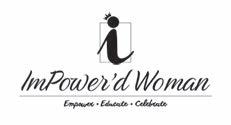
Winner AECI Limited
2nd Finalist SHEngineers
3rd Finalist Southern Africa Institute of Aviation Science and Technology
4th Finalist Bridge Building OpEx Solutions (Pty) Ltd
5th Finalist Botswana Women Lean In
6rd Finalist Webber Wentzel
7th Finalist Lead 360 Afrika Innovation and Research
Winner Coronation
2nd

Coronation strives to achieve gender diversity and equality throughout its business. It recognises the unique skills and viewpoints that women bring to the table, and actively fosters an ethos of inclusion. To date its key gender parity statistics show:
• 50 per cent of the company's board of directors is female.
• 51 per cent of the total workforce is female.

1st - Inclusive Leader: Southern Africa Martha Bessenger
2nd - Inclusive Leader: South Africa
Annakie Swanepoel
3rd - Inclusive Leader: Zambia Mukwandi Chibesakunda
Inclusive Leader
Finalist: Southern Africa
H.E. Prof Dr Ambassador Tal Edgars, QC
Inclusive Leader Finalist: Southern Africa Lee Naik
Young Inclusive Leader: Southern Africa Kayembe Ilunga
1st - Positive Role Model: Southern Africa
Mariam Tayob Cassim CA(SA)
2nd - Positive Role Model South Africa: Joint Winner Racheal Njoroge
3rd - Positive Role Model: Zambia Patricia Luhanga
4th - Positive Role Model South Africa: Joint Winner Vuyo Henda
Positive Role Model Finalist: Southern Africa Nontobeko Mathenjwa
Positive Role Model Finalist: Southern Africa Kalnisha Singh
Positive Role Model Finalist: Southern Africa Sinqobile Khuluse
Positive Role Model Finalist: Southern Africa Lwandile Simelane
Agriculture Products and Services Sector Kalnisha Singh Construction and Mining Sector Innocentia Mahlangu
Engineering and Technical Services Sector Racheal Njoroge Financial Services Sector Renata Galvao Maritime Sector
Sinqobile Khuluse
General Services Sector Remy Kloos
Health Services Sector Dr Augusta Dorning Management, Consulting and Legal Services Sector Noluthando Sigudu Personal Services Sector Julieth Gudo Manufacturing and Processing Sector
Professional Services Sector
Public Administration Sector
Property Sector
Telecommunication Sector
Mariam Tayob Cassim
Princess Mthombeni
Patricia Luhanga
Liezel Anderson
Lindi Maepa
Lungi Dludla Transport and Logistics Sector Chengetai Mujakachi
Tourism and Hospitality Sector
RMB’s Africa’s Fearless Thinker Dr Gladys Ngetich Kenya
2nd
3rd
4th
Venoranda Kuboka Kenya
Monalisa Zwambila South Africa
Blandine Umuziranenge Rwanda
5th Sally Hutton South Africa
Winner Women on Boards Network Kenya
2nd Finalist Lady Askari Limited
3rd Finalist NMB Bank Plc, Tanzania
4th Finalist Mswahili Electrical Services

The Women on Boards Network is an initiative aimed at promoting and encouraging women to board leadership. It provides a platform that brings together women from diverse fields and ranks, facilitates those already sitting on boards to effectively carry out their roles and responsibilities, and upskills and prepares for the boardroom those women who are already in senior leadership roles, but are not yet sitting on any boards.
The initiative is all about ensuring that the next generation of board members is more diverse and better balanced from a gender perspective.
Listed
Winner
2nd Finalist
NMB Bank Plc, Tanzania
Absa Bank Kenya Plc
3rd Finalist BIC World
4th Finalist
Non-profit
Winner
2nd Finalist
Bamburi Cement Plc

IDEO.Org
Samburu Girls Foundation
3rd Finalist IDEO.Org
4th Finalist
Winner Qabale Duba Foundation
2nd Finalist BAT East Africa
3rd Finalist IDEO.Org

The foundation’s strategy is to work with women and youth groups to create awareness that women and youth are the pillars in every society so they should not be left out.
OVERALL WINNER: 2022 GENDER
MAINSTREAMING CHAMPION
EAST AFRICA: NMB BANK PLC, TANZANIA
Women in Business Community Network
5th Finalist Youthup Global
Winner
2nd
CATEGORY WINNER
Lady Askari Limited

Greeneseal Company Limited
NMB BANK Plc, Tanzania
NMB
facilitates
that
creation and economic growth
digital and financial literacy training. The
change for communities.
offers comprehensive entrepreneurship support to youth, women and people living
The
including mama lishe, hairdressers, carpenters, tailors and boda bodas.
offered includes small business skill training and experience sharing, exposure to
through NMB Bank networking platforms such as the Business Club, Business Executive Networking Club, Jasirie Club, NMB Health Club and Mining.
In
has launched
solutions that improve people’s lives in
that helped communities access important information to
change in
the interventions it has
over
million people, including:
Lady Askari is an innovative, female-oriented security company dedicated to the advancement and capacity building of women in the security industry. In addition to meeting the demands of a competitive traditional security landscape, Lady Askari addresses a specific niche in the market, where the inherent capabilities of a woman are more relevant.
Winner BAT East Africa
2nd Finalist Lady Askari Limited
3rd Finalist NMB Bank Plc, Tanzania
4th Finalist Stanbic Bank Uganda
5th Finalist Bamburi Cement Plc

6th Finalist BIC World
BAT East Africa is committed to achieving its global 2025 diversity and inclusion ambition of 50 per cent female representation across the organisation and 45 per cent female representation at senior management level, which they have already surpassed.

• The Kenya board of directors comprises 36 per cent women and is one of the most gender diverse among the listed entities at the Nairobi Securities Exchange.
• Women comprise approximately 42 per cent of BAT East Africa’s total workforce.
• At senior management level, BAT East Africa reports a 50:50 male/female representation. This is a significant improvement from 32 per cent females in 2020.
Listed
Winner Standard Chartered Bank


2nd Finalist Safaricom Plc
Non-listed
Winner Lady Askari Limited
2nd Finalist Concern for the Girl Child
3rd Finalist Youth Changers Kenya
4th Finalist Nyayo Moms Sokos
CATEGORY WINNER Standard Chartered Bank

Investing in girls can result in increased prosperity and diversity. Futuremakers by Standard Charters’ Goal programme is a global initiative to tackle inequality and promote economic inclusion. Since its launch in 2006, Goal has grown into an internationally recognised global movement operating in more than 20 markets. Between 2006 and 2021, the programme reached more than 735 000 girls and young women. The target is to reach one million girls between 2006 and 2023.
Winner Bamburi Cement Plc
2nd Finalist NMB Bank Plc, Tanzania
3rd Finalist Standard Chartered Bank
4th Finalist Credit Bank Plc
5th Finalist SBM Bank Kenya Ltd
To boost the participation of women in the Kenyan supply chain, Bamburi Cement Plc partnered with the International Finance Corporation on a gender programme that supports the company’s increased procurement opportunities for women-owned enterprises in Kenya. Bamburi Cement has made three commitments under the partnership:
1. Develop and implement a gender-inclusive sourcing strategy;
2. Collect gender-disaggregated procurement data; and
3. Invest in a targeted supplier outreach programme that will raise awareness of procurement opportunities at the company among women-owned businesses.
1st - Inclusive Leader: East Africa Anne Dembah
2nd - Inclusive Leader: Kenya Dr Josephine Kulea
3rd - Inclusive Leader: Tanzania Ruth Zaipuna
Inclusive Leader Finalist: East Africa Betty Korir
Inclusive Leader Finalist: East Africa Susan Maingi
Young Inclusive Leader: East Africa Faith Opiyo
1st - Positive Role Model: East Africa Chaltu Marta
2nd Phyllis Gathoni Mathenge
3rd Paloma Lengema
4th Sienna Dutkowski
5th - Positive Role Model: Tanzania Ruth Zaipuna
Beatrace Mbeyu Joto Construction and Mining Sector
Chaltu Marta Engineering and Technical Services Sector
Dr Lakshmi Priya Manufacturing and Processing Sector
Ruth Zaipuna Financial Services Sector
Anne Dembah Health Services Sector
Naipanoi Lepapa News and Advertising Sector
Evelyn Ngatia Professional Services Sector
Christabel Chanda Ginsberg Public Administration Sector
Mariam Mellony Mpaata Tourism and Hospitality Sector
Paloma Lengema Trade and Development Sector

Guinness Ghana Breweries has a clear mandate on inclusion and diversity, which seeks to create the most inclusive and diversified culture that ensures its people thrive while shaping market-leading policies and practices that promote driving and accelerating diversity.
The company is committed to diversity and inclusion, with the goal of creating a workforce that is 50 per cent female. The business has also successfully transformed corporate behaviour and practices, and is taking leadership in Ghana on some groundbreaking initiatives to support women behind its brands. In an industry that is traditionally and predominantly male-dominated, Guinness Ghana has put in place the following practices and initiatives:
• Six months paid maternity leave for women. Traditionally, most businesses in Ghana observe three months paid maternity leave for women.
• Flexible working conditions have been instituted to ensure that employees, particularly women, across the business can have some flexible hours to work from home and attend to other equally important matters concerning them.
Old Mutual’s company culture has seen the number of women on the Ghana management team boost to seven, with four men, making a total of 63 per cent of women in leadership, which is unusually higher than corporate Ghana’s average.

Additionally, there is equal access to many coaching and mentorship opportunities for men and women within the company. Old Mutual Ghana also conducts continuous education of employees on unconscious gender bias, ensures transparency and equality in salaries, and provides development opportunities to enable women to transition to higher skilled roles as well as resources to improve wellbeing and mental health.
Winner
Old Mutual Life Assurance Company (Ghana) Ltd

2nd Finalist Guinness Ghana Breweries Plc
3rd Finalist Global Youth Leadership and Girl-child Foundation

Transcorp believes that the impact of the company’s activities across Africa reaches beyond the guests who walk through its doors. Through its businesses, it focuses on improving lives and transforming Africa one step at a time by driving positive social and environmental change in the communities where it serves, among its employees and through its supply chain businesses.
Transcorp is motivated by the need to create jobs for Nigeria’s youth. It launched, among other initiatives, the Business Empowerment Program for Women with the primary objective to empower young local women with basic sewing, business start-up and management skills.
1st - Inclusive Leader: West Africa
2nd - Inclusive Leader: Ghana
3rd - Inclusive Leader: Nigeria
4th - Inclusive Leader: SME
Doris Kafui Afanyedey
Jehoshaphat Abaya
Ifeoma Okafor-Obi
Rita Aku-Shika Diabah
Inclusive Leader Finalist: West Africa Emmanuel Morka
Inclusive Leader Finalist: West Africa Professor Mathew Egu
1st - Positive Role Model: West Africa Ida Faal
2nd - Positive Role Model: Nigeria Jumoke Olaniyan
3rd - Positive Role Model Finalist: Ghana Doris Kafui Afanyedey
4th

Since the inception of the business, 07 Foods Global Solutions has gainfully engaged over 31 youths in its value chain and empowered 23 women-owned businesses to thrive on their own. Most of the youth were sponsored with scholarship opportunities to complete their ICT training and/or Senior Secondary School Examination, while the young women were provided with training on running their own food processing business and were also given access to start with almost zero capital.
The company is on a mission to gainfully employ and provide training to 1 000 youth in the Alimosho community by 2024 through direct partnership with the local government and indirect partnership with other organisations around the community.
O7 Global Solutions strongly believes that it can change the narrative through the sustainable engagement of these youths in powering an economically viable community.

Positive Role Model: West Africa
Positive Role Model: West Africa
Positive Role Model Special Mention: West Africa
Wunmi Adelusi
Ernestina Mensah
Temitope Yusuff
Rita Aku-Shika Diabah
Rita Aku-Shika Diabah
Ida Faal
Olajumoke Olaniyan
Agriculture Products and Services Sector
Engineering and Technical Services Sector
Financial Services Sector
Chiamaka Beverly Amajirionwu Health Services Sector
Loretta Oduware Ogboro-Okor
Esther Forson
Kemi Ajumobi
Ewudiwa
Temitope Yusuff
Management, Consulting and Legal Services Sector
Construction and Mining Sector
News and Advertising Sector
Professional Services Sector
Telecommunication Services Sector
Joy-Marie Lawrence, Boardvisory, CEO

Parmi Natesan, IoDSA, CEO


Carina Wessels, Alexander Forbes, executive: Governance, Legal and Compliance
Malcolm Larsen, Business Engage, company secretary

Alison Badenhorst, RMB, chief marketing officer





Teryl Schroenn, business consultant
Adv Bokankatla Malatji, SAHRC, commissioner

Dionne Kerr, Siyakha Consulting, group CEO
Megs Naidu, Citi, head of Public Affairs
Helena Conradie, independent consultant
Jeanett Modise, Sanlam, group HR director


Michael Pryke, EQ Impact, CEO

William Surmon, Botswana Insurance Company, executive head: Sales and Marketing

Naomi Williams, Livingston Leandy Inc, director
Elmarie Bisett, Ndaba Consulting, director
Martie Janse van Rensburg, board member on various boards



Shameela Soobramoney, JSE, chief sustainability officer





Shirley Machaba, PwC, CEO
Gavin Fitmaurice, Webber Wentzel, managing partner, Cape Town


Dharshni Padayachee, RMB, Transformation, Inclusion and Equity lead

Linda Kachingwe-Sisya, RMB and FNB, Africa head of Marketing and Communications



Jo-Ann Pöhl, senior advisor, Kearney
Michael Judin, Judin Combrink Inc, senior partner
Naresh Ashok, Brawne Capital Holdings, CEO Dr Jerry Gule, Institute of People Management, CEO
Deidre King, Jacaranda FM, MD
Refiloe Nkadimeng African Rainbow Capital, CFO
Ntombi Mhangwani, Vodacom, executive head of Business Marketing
Rose Mamabolo, WDB Investment Holdings, CFO
“Having a diverse board comprising qualified people who offer different perspectives and experiences enriches the quality of ideas and decision-making.” – VUYO LEE, JSE
“We believe that the best way to influence change is to strengthen and grow the current conversations; then couple that with deliberate action.”
– COLLEEN LARSEN, BUSINESS ENGAGE
Scholastica Sylvan Kimaryo, Maadili Leadership Solutions, CE

Tendai Murahwa, Diversity Dividend Africa, managing consultant
Donna Phoebe Rege, Safaricom, chairperson of Safaricom Women in Technology

Eva Komba, Gender, Governance and Development specialist


Dr. Rejoice Wodomdedzi Foli, G-Wealth Consults, CEO
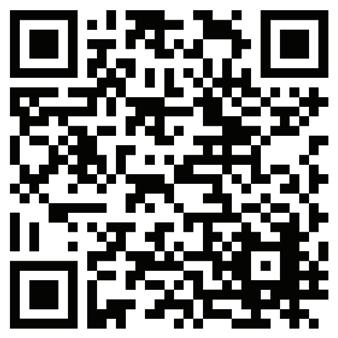
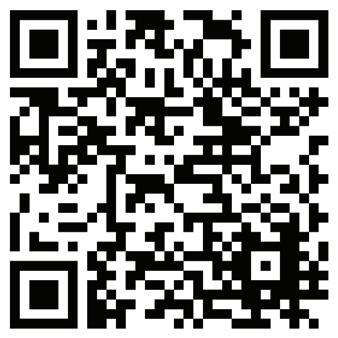
Glory Edozien, Inspired By Glory Academy, lead coach and consultant
Abimbola Agbejule, Wema Bank, head of Corporate Sustainability










Lenin Oyuga, Safaricom – Oracle, global director
Margaret Kimani, author and investment banker

Wambui Mbesa, Netcompany Intrasoft East Africa, CEO
Alice Oyaro, Independent consultant
Magdalene Mwende Mulandi, SBM Bank Kenya , vice president and head of Marketing, PR and Communications


Sienna Dutkowski, Lady Askari, director of Community and Social Affairs
Makabelo Malumane, East Africa Standard Chartered Bank, MD: head of Transaction Banking


Rosemary Okello-Orlale, Strathmore University Business School, director: Africa Media Hub



Annette Kimitei, Senaca East Africa, MD
Sylvia Mukasa, GlobalX Investments/ Innovation Hub, CEO
Nathalie Ngatia, IDEO.org Nairobi, MD: Partnerships and Strategy
Risper Genga Ohaga, EABL, group CFO

Janice Kemoli, Ignition Consortium, partner
Chimwemwe Ngwenya, Standard Chartered Bank, director: Transaction Banking Sales, Kenya and Zambia
Cecilia Akintomide, independent non-executive director
Susan Quist, Cummins Africa Middle East, director
Cynthia Ofori-Dwumfua, Hollard Ghana, group head, Marketing and Corporate Affairs




Lolade Awogbade, Development Bank of Nigeria, Ass. vice president
Nneka Eze, VestedWorld, MD

Mojolaoluwa Aderemi-Makinde, Google, head of Brand and Reputation

“If business leaders prioritise a culture of equality, they will create an environment more likely to produce their desired financial results.” – KHETHIWE NKUNA, ACCENTURE AFRICA
The Women’s Empowerment Principles (WEPs) are a set of Principles offering guidance to business on how to promote gender equality and women’s empowerment in the workplace, marketplace and community. Established by UN Global Compact and UN Women, the WEPs are informed by international labour and human rights standards and grounded in the recognition that businesses have a stake in, and a responsibility for, gender equality and women’s empowerment.
WEPs are a primary vehicle for corporate delivery on gender equality dimensions of the 2030 agenda and the United Nations Sustainable Development Goals. By joining the WEPs community, the CEO signals commitment to this agenda at the highest levels of the company and to work collaboratively in multistakeholder networks to foster business practices that empower women.

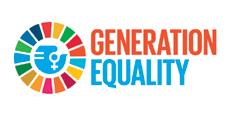
For more information on the UN Women 7 Women Empowerment Principles, visit www.weps.org.
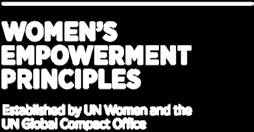

There is no cost for your registered company to become a signatory.


how
become


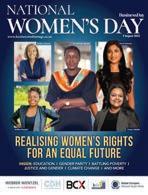


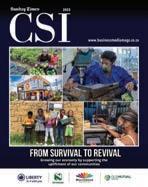
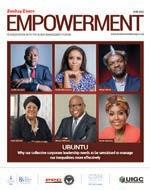







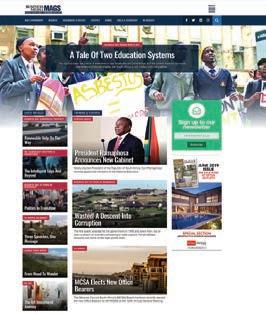

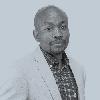
Energyis central to addressing nearly every major challenge and opportunity the world faces today – jobs, security, climate change, food production. Energy efficiency and energy saving have the potential to address the crippling impacts of the spike in energy prices, strengthening energy security and tackling climate change.
Energy efficiency is also of particular importance to South Africa, where the current Stage 4 loadshedding is estimated to cost the country R1bn per day. This again highlights the importance of ensuring equal participation by men and women in the sector to enhance the capacity of the country to address energy and climate challenges.
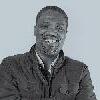

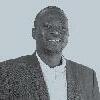






The international award-winning Industrial Energy Efficiency (IEE) Project is one of the initiatives in the country contributing to the increase in the number of women participating in the sector.
With gender mainstreaming cutting across all its activities, the project strongly supports the UN and SA’s focus on gender equality.
Since April 2011, 48% of the 6 000-plus candidates who successfully completed training courses in Energy Management Systems and Energy Systems Optimisation were women. Women also played a significant role in the overall impact and achievements of the project. To date, more than 450 industrial companies have been assisted to save 6.5 TWh of energy – equivalent to five years of load shedding at the 2019 level of 1.352 TWh. This translates to cumulative cost savings of R5.3 billion and GHG mitigation of 6.4 million tons of CO2e in these companies.
An independent study into the impact of the IEE project on gender mainstreaming in the industrial energy efficiency sector in South Africa confirmed that the project has made a substantial contribution to promoting gender equality and advancing

women’s participation and role in the sector. It also recommended that future projects should build on the foundation established by the project, and pursue transformative goals to address the structural gender barriers persisting in the sector.
The study also found that, although the SA government prioritises policies and programmes intended to promote gender equality and the empowerment of women, implementation is still lagging. The recently adopted Energy Sector Women’s Empowerment and Gender Equality Strategy developed by the DMRE is an important instrument to drive equality in the sector.
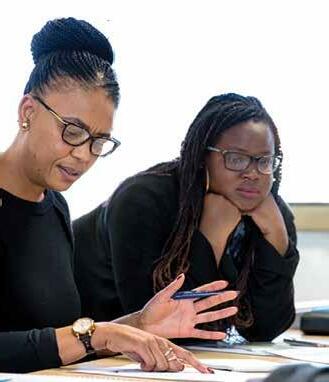
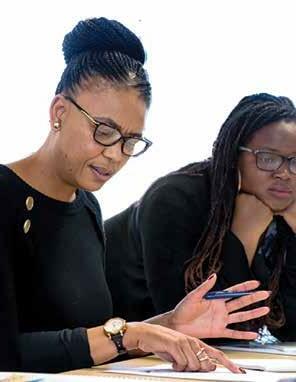

The energy sector is still male-dominated, but the study indicated that it has changed significantly over the past 10 years, mostly driven by policies, initiatives like the IEE project, global shifts to ESG, and requirements for financing. Companies are starting to see the benefits of having women on their teams, and women have more skills, confidence, and have increased their networks and access to opportunities.
According to the study, approaches to promote gender equality in the sector tend to focus on increasing women’s participation. However, this does not necessarily address the root causes of gender inequality and reshape unequal power relations, which are important requirements for transformative change.
There are also still significant differences in the view of men and women on the barriers facing women in the sector, including the lack of women in leadership positions, lack of women-headed projects, lack of time and resources, lack of access to finance,
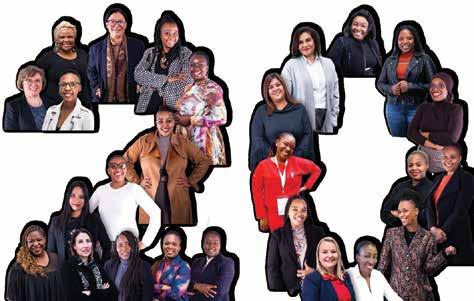
limited awareness of job opportunities, and sexual harassment in the workplace.

UNIDO is currently exploring initiatives with partners to address key recommendations from the study, inc luding improving sexdisaggregated data collection, management, and research to support policy development and implementation for the empowerment of women in the sector; addressings specific mentorship needs; promoting gender equality in the workplace; and contributing to national capacity building for gender equality and women’s empowerment.



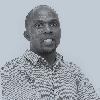

The South African IEE project was the first of its kind, and has since been replicated by UNIDO in 20 other countries across the globe. It was implemented by UNIDO, the National Cleaner Production Centre South Africa, the Department of Mineral Resources and Energy and the South African National Energy Development Institute, with funding from the Global Environment Facility and co-funding through the Department of Trade, Industry and Competition. The NCPC continues to deliver the energy efficiency services established through the IEE project.
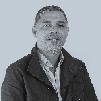


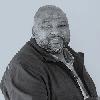
jobs before they have enough experience to progress from middle to senior management.
Nonkululeko Gobodo, CEO of Awakened Global, began as a bookkeeper in her father’s panel-beating shop in the Transkei and became the first black woman chartered accountant (CA(SA)) in South Africa in 1987. She established her own accounting firm and led a merger of two medium-sized black accounting firms, changing the face of accounting in the country.
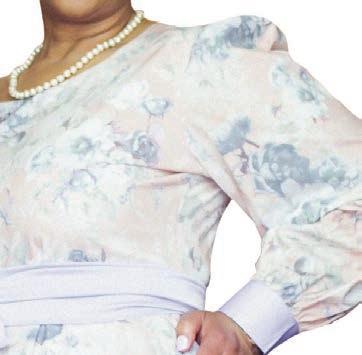
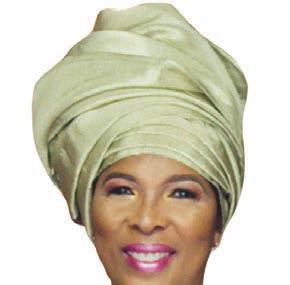
Gobodo then switched focus to leadership, heading up Nkululeko Leadership Consulting. Last year she launched Awakened Global to provide coaching in leadership, personal growth and transformation, addressing women and race inequality. “It’s a call for Africans and women to awaken to their authentic power,” she says.
Commenting on the progress of gender equality, Gobodo says: “We’re still a long way from equality, but we need to look at what we’ve accomplished and take heart and inspiration from our progress. Thirty-fi ve years ago, I was the only black woman to qualify as a CA(SA) – today, there are 8 000 black female CAs(SA), and the male:female membership split in SAICA (the SA Institute of Chartered Accountants) is 60:40, and narrowing.”


“I chair the social and ethics committees for the three boards I serve on: the committees responsible for policy and strategy on diversity, inclusion, equity, and closing the pay gap.
Tough questions need to be asked at board level. Management has plenty of excuses why transformation is slow – for instance, we’re told women earn less because they start at a lower level from their previous jobs. Women must learn to negotiate higher salaries, but through socialisation and tradition, many are still not taken as seriously as men and don’t have the confi dence to push. That’s where boards need to step up and be accountable – their members are independent, and they need to ask for statistics so they can see and track progress in closing the pay gap and other areas of inequality. They must make sure female employees have the same sense of belonging as men by ensuring there’s a diversity and inclusion policy for the company. The lack of this sense of belonging, and often even an outright hostile environment for women, leads to the ‘revolving door’ problem of more women leaving organisations than men – jumping ship and starting new
“Too many women still experience being initially ignored because of stereotyping and having to prove themselves and push harder than men to open doors. Then when we finally make it, we’re often under so much pressure that we don’t have time and energy to mentor and support upcoming young women as we’d like to. That’s why men need to step up. There are some wonderful men who do –such as Doug Southgate, a partner at KPMG, when I started my training contract there. He recognised my abilities and ambition and nurtured them, alerting me to opportunities and ensuring I worked with good clients and progressed.”
“You need clarity of vision and a plan, and to identify a mentor or sponsor,” Gobodo offers women looking to access leadership structures. “Beyond that, until women and men level the playing fi eld at home, they’ll battle to do it at work. Women are still expected to play their traditional caregiver roles while pursuing their careers, and men are not, so women often turn down promotions – instead of sharing home and parenting responsibilities so both parents can fl ourish in their careers.
“I was blessed to be raised strong and motivated by parents who instilled a sense of self-confi dence in me. I was able to identify opportunities for growth, and I didn’t wait for others to open doors. I was divorced at 34 and raised my three kids without parental and financial support from an ex-husband while pursuing my career.

It was hard. I think one of my proudest achievements is raising a son who shares child responsibilities 50:50 with his ex-wife, who has started her own business. That’s real change in gender balance.”
 Nonkululeko Gobodo
Nonkululeko Gobodo
GLYNIS HORNING talks with business leaders Nonkululeko Gobodo, Dr Ntombi Mhangwani and Sharmi Surianarain about the challenges, opportunities, and wins they have experienced and the lessons they’ve learned leading within their respective fields
“Too many women still experience being initially ignored because of stereotyping and having to prove themselves and push harder than men to open doors.”
The newly appointed executive head: marketing at Vodacom Business, Dr Ntombi Mhangwani is the previous associate director for Accenture and Women’s Forum lead for Accenture in Africa. It’s a long way from Diepkloof, Soweto, where she was the youngest of fi ve daughters of a travelling actor and playwright dad and a mom who “sacrifi ced and sold vetkoek” to put the girls through private schools.
Dr Mhangwani emphasises the importance of diversity and inclusion in helping workplaces thrive. “Organisations are composed of people from different backgrounds and economic, social, and other levels. These are the same people for whom we create and market products and services – so we need inclusion and diversity to engage with them, or we will not succeed. South Africa has more women than men, yet most people in decision-making positions are still men.
Women are, by nature, nurturers and builders – when you empower women, they feed not only their family, but also their extended family and the community, so you are empowering whole communities. The Company Policies and Practices for Gender Equality study by the International Labour Organization reveals that when you integrate women and include them in decision-making, organisations show greater productivity, innovation, progress, and profi tability. It also shows that in companies with inclusive cultures that help women advance, men thrive too – we all rise together.”
When it comes to her experience of the progress in women’s inclusion and promotion, Dr Mhangwani says: “It’s slow but signifi cant. After I graduated in journalism and drama at Rhodes University, I joined a small communication company where most account managers were men. I was the first female intern. There was a deliberate move from around 2000 to bring in people of colour. When I moved to British American Tobacco in Stellenbosch, it was predominantly white, male and Afrikaans, but they too were embracing transformation and the inclusion of black women. I found the SABC an extremely political environment, but they were serious about including women in senior roles; they walked the talk.
“After that, I moved to the marketing world of technology. Although still predominantly male-dominated tech-driven environments, I grew and fl ourished during my time at MTN and Dimension Data. My move to Schneider Electric was a signifi cantly empowering one – it’s a global energy management and automation specialist in 100 countries. It was more progressive than most South African companies and, in 2014 already cascaded its strong women inclusion and diversity policy to all operations globally.
“Accenture, also a global firm, advocates for










women in leadership. The CEO created a department specifi cally for inclusion, diversity, and the development of women, providing training, coaching, and mentoring. During my time at Accenture, I embraced and promoted gender mainstreaming in and outside the organisation as part of my role and now my legacy at the firm.”

Asked what she will be driving at Vodacom and elsewhere, through her work with women’s forums, Dr Mhangwani says: “Hard conversations about diversity and equity.
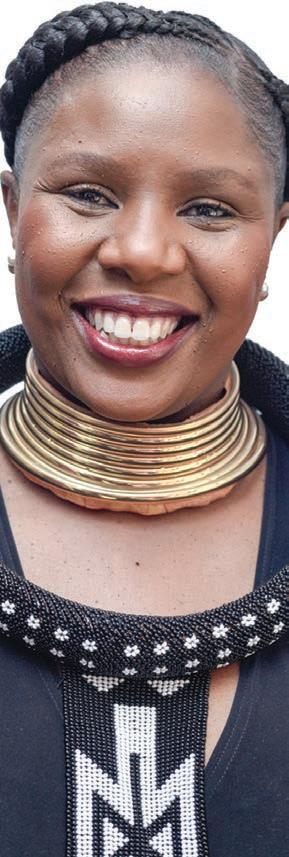
“Leaders need to examine their organisation’s culture and gender inclusivity and have deliberate programmes and policies to recruit, introduce, retain, develop and empower women. They need to implement these policies and this should refl ect in their bonuses. Organisations must measure not only sales and revenue, but also drive and they must manage and measure diversity in gender and colour, with progress recorded, tracked and reported regularly.
“The key to leading this change is to be authentic, humble and deliberately transformational. In 2022 we have a part to play in building a legacy that will change the female narrative for our children and their children. We need to be voices of change, growing women leaders who believe in themselves and want to be the change. The Voices of Change movement was born at Accenture, when a young junior employee called me to present the Voices of Change proposal. This year on Women’s Day, we celebrated fi ve years of the movement, which started with a single event attended by 200 delegates and has grown to a movement with a key pivotal annual celebration with more than 5 000 participants. It’s all about helping women use their voices to grow. Something we all need to do,” Dr Mhangwani says.
“Leaders need to examine their organisation’s culture and gender inclusivity and have deliberate programmes and policies to recruit, introduce, retain, develop and empower women.”Dr Ntombi Mhangwani
Sharmi Surianarain, chief impact officer of Harambee Youth Employment Accelerator, leads this not-for-profit social enterprise on systems change, research and learning as it works to “build African solutions for youth unemployment”, as she puts it. She has masters’ degrees from the Harvard Graduate School of Education and Northwestern University’s Kellog School of management.
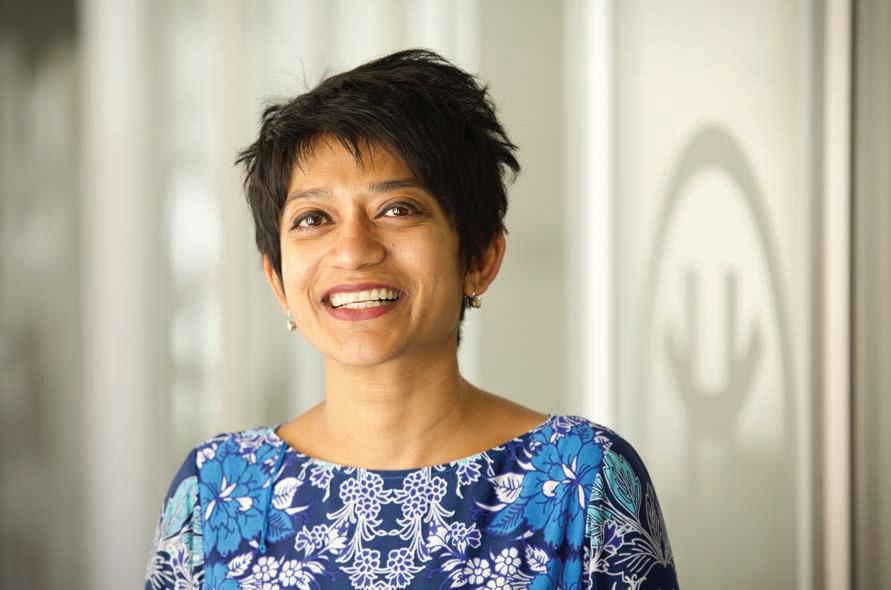
Despite all the initiatives by government, business and civil society to address youth unemployment, almost two million young South Africans (15–35 age group) have given up hope of finding a job, as reported by Stats SA in its Quarterly Labour Force Survey for the first quarter of 2022. Women, in particular, are the worst affected. They were triple-disadvantaged during the pandemic – they worked in the
hardest-hit sectors and carried significant additional burdens, including greater caregiving responsibilities. On average, women are more qualified, but less employed, according to research into the gender gap in education and employment conducted by the Organisation for Economic Co-operation and Development. Even if they have the right qualifications, gender stereotypes stand in the way.
“While we’re making progress in getting the gender balance in youth training and employment right, a lot still needs to be done,” says Surianarain. “We need more initiatives that consciously address gender stereotypes, such as the multistakeholder partnership for plumbers (with the Institute of Plumbing South Africa) for recognition of prior learning training, where thirteen per cent of the cohorts are female compared to an industry average of just three per cent.
“For young women seeking work, the barriers are higher and harder to overcome. Young women have more caring responsibilities, but less money for printing, mobile data and transport, and less time to volunteer and network. And they risk harassment if they do get the job interview. We must ensure
women are at the heart of solutions to youth employment. Designing for their lived reality can help address these issues: allowing for flexible timings/hybrid work, safe transport, and a targeted focus on dismantling gender stereotypes at the workplace,” she explains.
The SA Youth network, powered by Harambee, comprises over 2.7 million youth and is part of the Presidential Youth Employment Intervention. In the past decade, Harambee has worked hard to address gender barriers. “SA Youth is over 63 per cent female and designed to address those barriers, especially transport, data, and time-poverty,” Surianarain says. “Our platform – sayouth.mobi – is free of cost and data-free, and factors in geographic location in job matching to reduce transport costs.
“Gender equity isn’t only about getting young women into jobs – inclusion in the labour market is just the first step. Our data indicates that there’s a pay gap across every single job profession for young women. So, advocating for pay equity is vital.
“Many sectors have huge gender biases – for example, in the plumbing industry, there are perceptions that women can’t and aren’t suited to do the job. Our partnerships have proven otherwise – women are just as capable, if not more so in many instances. With targeted support and interventions, we can address these imbalances. Women with care responsibilities are often perceived as being ‘uncommitted’ to work. My own experience has proven otherwise – women who have to juggle responsibilities are often even more committed to excellence and delivery. It’s a question of designing for and creating workspaces conducive to this reality.”
Surianarain offers the following advice for women entering the work environment. “Don’t be afraid to ask for what you need. Actively support other women, their voices, and their choices by creating opportunities and advocating for their growth and leadership. And let’s not forget the importance of men as allies in this conversation. Harambee has initiatives such as WeMen, to promote comradeship.
“Listening to and collaborating with my peers and my reports, amplifying voices that don’t get enough airtime, and creating safe spaces for women and other socially excluded groups helped me get ahead in my career. Always keep an eye on the end goal: building pathways to the employment of young women has a ripple effect in society, leading to better development outcomes for all,” she advises.
“For young women seeking work, the barriers are higher and harder to overcome. Young women have more caring responsibilities, but less money for printing, mobile data and transport, and less time to volunteer and network.”Sharmi Surianarain
For Ellis, it was sweet salvation after 29 years of Banyana Banyana heartbreak when as both a player and coach, the African title eluded her. As captain, Ellis lost the 2000 final 2–0 to Nigeria, and as coach, the national team lost the 2018 final to the same team on penalties following a goalless draw. Banyana Banyana would also agonisingly lose WAFCON finals in 2008 and 2012 before finally reaching African football nirvana in Morocco this year.
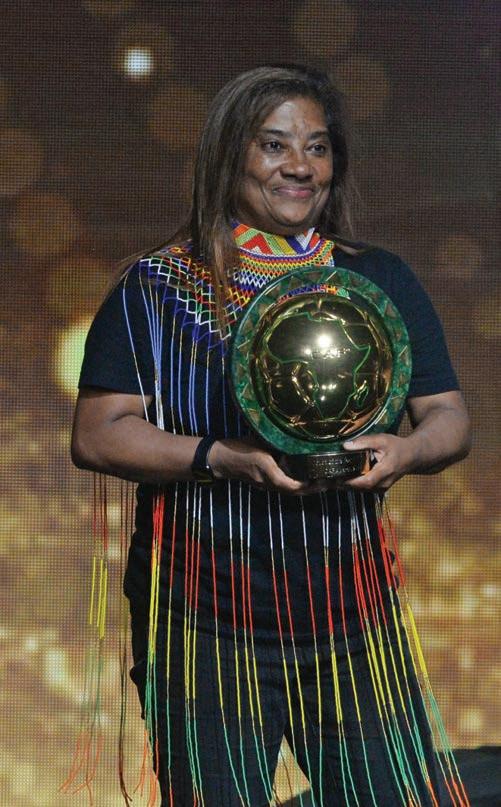
Cathartically, Ellis and Banyana Banyana kicked off their WAFCON journey in Morocco with a thumping win over old enemy Nigeria, and never looked back as they left Morocco with the shiny gold trophy they so badly wanted in their carry-on luggage.
Ellis’ motto is, “if a team does well, the individuals stand out” and she was quick to shift attention from herself to the team and her technical staff. “This is for South Africa, for Sasol, for SAFA, for players that have come before, for coaches that have come before, for coaches that coach in women’s football. This is all for you. For you,” she beamed in her moment of triumph, paying tribute to every role player on Banyana Banyana’s long journey to the summit of African football.
Understated and unassuming, the Banyana Banyana head coach is the antithesis of a “celebrity” –preferring to work away from the public eye and spotlight. But at this year’s Women’s African Cup of Nations (WAFCON) tournament in Morocco, the spotlight was rightly focused on her. It was a tournament Desiree Ellis will never forget.
First, she qualified Banyana Banyana for a FIFA World Cup spot when they won their quarterfinal against Tunisia. Then two days before the final against hosts Morocco, Ellis won a third Confederation of African Football Women’s Coach of the Year trophy. But on 23 July at Rabat’s Moulay Abdellah Stadium, facing over 50 000 Moroccan home fans, Ellis and Banyana Banyana broke local hearts when they beat the hosts in the final to win their coveted first WAFCON title.
But this is Ellis’ time and a moment she richly deserves; since her return home, she has been rightly feted. One of the most touching moments was visiting her former school, Dryden Street Primary in Salt River. “Visiting Dryden was so emotional; when I entered the classroom, those kids screamed and I got a
lump in my throat. One of the girls came up to me with a handwritten poster and asked if I could please give it to Banyana captain Refiloe Jane. I’ve still got it and I will hand it to Fifa when I see her. For me, that is the biggest impact of our achievement, seeing how Banyana has inspired little girls and made them believe that they too can play for Banyana regardless of their circumstances. As women, we always have to fight for equal opportunities and recognition, so if my achievements and that of Banyana can inspire young girls to pursue a career in football and make it easier for the women that follow us, then that is truly satisfying,” Ellis says.
And that’s the mark of Ellis, who in Cape Flats fashion describes herself as simply “local”, and lets her work speak for her.
Even now, she battles to describe the enormity of her and the national team’s achievement in Morocco. “The night of the final, I sat with our technical team at reception until 6am with the trophy trying to absorb the magnitude of our achievement. We didn’t lose a game either, which made the achievement so much more special. Seeing the joy on the players’ faces is what made it for me. The journey we have been on has been amazing – I am so happy for them. It’s something we worked so hard for, for a long time,” says Ellis.
She says she’s “come full circle, from player to vice-captain, to captain, to assistant coach, coach, acting coach and now African champion. I just keep smiling from ear to ear”.
Just three of the twelve head coaches at the 2022 WAFCON were women, making it an even more beautiful moment for Ellis to be the coach to lead her country to victory.
“As women, we always have to fight for equal opportunities and recognition, so if my achievements and that of Banyana can inspire young girls to pursue a career in football and make it easier for the women that follow us, then that is truly satisfying.”
– DESIREE ELLISDesiree Ellis
That’s why Discovery Business Insurance offers shared-value insurance, giving you:
Access to our tailored network of partners to help you grow your business.
Up to 30% of vehicle premiums back for driving well.
Up to 50% of data spend back for managing your risks well.
Appropriate cover for any situation; allowing you to focus on your business ambitions.
Discovery Business Insurance: Insurance for a new way of doing business.















We hear the talk about gender equality and women’s empowerment, but women in corporate leadership roles still need to challenge the status quo. Three strong-minded women say it starts with having an audible presence in meetings.
Discovery Health’s COO Karren Sanderson says Discovery Health follows key markers relating to diversity closely, including gender equity, both in proportions of male and female team members across all levels and in remuneration equity.
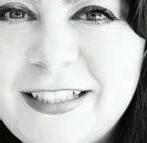



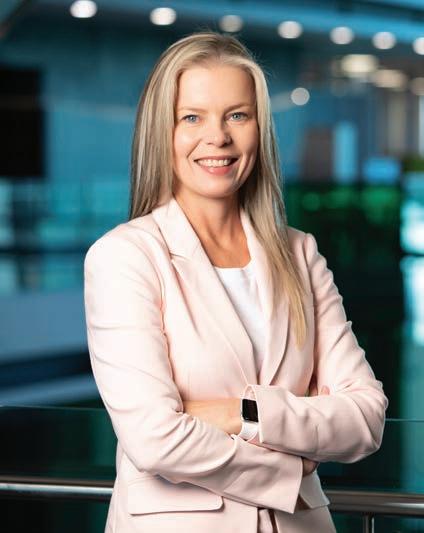
“This approach has been in place for many years, supported by clear equity mandates. Today, Discovery Health comprises 69 per cent females and 31 per cent males overall,” she says. “That said, we’d like to see female gender proportions across the most senior levels gain even further ground.”

 Karren Sanderson
Karren Sanderson
On the topic of equal pay, Sanderson has encouraging news. “When it comes to remuneration, Discovery Health has always been a meritocracy, and frequent remuneration benchmarks are carried out with a deliberate focus on any pay differentials that might exist at a gender level.”








Helen Constantinides is the CIO and an executive member of the AVBOB group, a financial service provider offering insurance, plus funeral and client services. Constantinides says “women fi t in across that environment”, in line with the company’s gender equality policy. “That means I’m not going to select a female over a male; I’m going to select the right person for the job. As a company, we champion gender diversity in its holistic form,” she clarifi es.

“But we communicate the initiatives and successes of our female managers. We have female employees mentored by our female executives. So there is a female movement – if I can call it that – happening. But it doesn’t exclude males because we’re a company that thrives on diversity.”
From a women to men ratio, 70 per cent of AVBOB’s 8 000 employees are women, with 50 per cent across management, senior management and executive levels. Yet Constantinides concedes that fewer women than men seem to occupy leadership positions in general. “One of the reasons, I believe, is self-selection,” she says. “Fewer women seem to apply for certain executive positions or attempt to work towards being an executive in these positions.
“I think women have less confi dence in their abilities. As a women leader in this type of role, I encourage women to pursue leadership roles and to support other women leaders already in those roles.”
Sanderson says the healthcare and financial services sector tends to be well represented by women. Focusing on delivering services across all customer segments and service channels for Discovery Health, her team fi elds around 35 000 calls and 15 000 emails daily. She
says Discovery employees with talent, smarts (IQ and EQ) and who bring value will be well supported to grow, irrespective of gender. But as women, they need to speak up.
“Throughout my career, I’ve noticed a key difference in forums/meetings/boardroom discussions, where women tend not to be as quick to speak up or be as loud at the table,” she explains. “It’s so important not to sit on your thoughts. This is where you get to demonstrate your value and make a real difference daily. The style women might bring is not about being the loudest voice at the table, but rather the calm and measured voice, which is often more clearly heard and understood.”
Are women in key leadership roles breaking stereotypes and ensuring that females are represented in positions of authority?
“The challenges and disadvantages women face are real; having your head space in the right place matters enormously.”
– KARREN SANDERSON
“I’m not going to select a female over a male; I’m going to select the right person for the job. As a company, we champion gender diversity in its holistic form.”
– HELEN CONSTANTINIDESHelen Constantinides
Clicks Group CEO Bertina Engelbrecht says South Africa’s largest retail pharmacy chain follows an integrated diversity and inclusion approach, built on recognising diversity and valuing all people intrinsically – individually and as groups. “I believe diversity and inclusion can be a source of significant competitive advantage. The emphasis is on spotting diverse talent, providing a platform for ongoing training, mentorship, and regular feedback, and measuring our progress against clearly defined metrics,” she says.
“I try to demonstrate my personal commitment to diversity and inclusivity in a manner that inspires confidence, encourages brave, transparent dialogue, and ensures that these practices are entrenched across our organisation,” she adds.
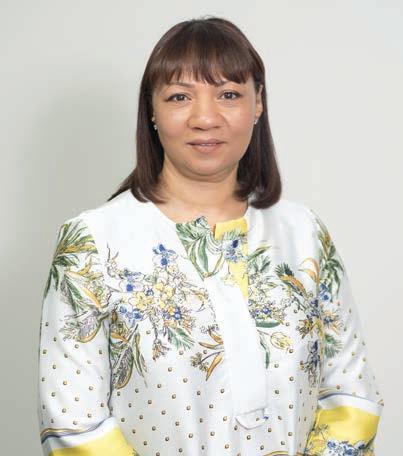
Engelbrecht is a qualified attorney but has experience in HR, so is invested in integrating a “people agenda” at Clicks. “People ultimately make the difference when you consider the increasingly complex and integrated nature of the trading environment and global socioeconomic conditions,” she explains. “We will continue to invest in employee development, with a sharp focus on customer-centricity, and to be a force for good in the communities in which we operate.”
With Clicks Group being the largest employer of pharmacists in the private sector, Engelbrecht is committed to promoting female empowerment and diversity in the retail pharmacy sector. “Most primary healthcare interventions are by nurses, and females make up the majority of nurses (more than 80 per cent), so it’s clear that females are critical to the operation of the primary healthcare system,” she says.
“Likewise, female employees in our healthcare skill pool (pharmacists and nurses) make up about two-thirds of healthcare workers within our organisation, placing the significant impact of females in healthcare in perspective.”
Constantinides is heavily involved in the tech space and says AVBOB is “trying to improve on retention in terms of qualified women in tech”.
“We’re talking about diversity: being part of a tech space and owning our share of the space. As a leader, I think we [women] can change the narrative. That’s what leadership is about. We
can make it a reality in the tech space: we can support, encourage and inspire women.
“For me, female tech leaders have intelligence, innovation, ambition, honesty and decisiveness. As women, we also have distinct advantages in areas such as emotional intelligence, empathy and project organisation.
“We’re good at building teams. We persist and continue to prove that when we lead, we can bring change to an organisation, especially in the use of technology,” she continues.
“We take things out of comfort zones and continue to improve and innovate. As women, we’re curious, so we’re quite creative and come up with ideas,” she says, citing innovation projects as an example, where one innovation can change a company’s core business to something completely different. “We also have emotional adaptability; in a world where change is constant, that’s just as important as flexibility.”
For Engelbrecht, leadership is about designing roles that develop passionate people. “I’m proud of the impact we continue to have in building the pipeline of healthcare professionals, not just for our business, but also to support affordable, accessible healthcare for all South Africans.
“As of July 2022, the Clicks Group’s Pharmacy Healthcare Academy has enrolled more than 700 pharmacy assistant learners across South Africa, of which 52 per cent are female.”
What about work-life balance as women in positions of authority? “I’m not trying to split my life between work and everything that is not work,” says Sanderson. “I’m not trying to box my career into this idea of eight hours a day on work versus the rest of my day on ‘life’. I didn’t become successful by trying to get work done in eight hours. It takes commitment and time, just as anything we are passionate about does.” Her solution is to have a strong team at work and a strong, supportive team at home.
“But I find the equitable meritocracy I experience at work is not the reality in broader South African society,” Sanderson adds. “My after-work experience in mainstream society is often one of biases and unpleasant gender-based cultural challenges.
“This is why these choices matter so much, to create as much of a like-minded support structure outside of work as you do inside it. The
challenges and disadvantages women face are real; having your head space in the right place matters enormously.”
For Constantinides, it’s important to step away from work to pursue creative interests.
Hers are the outdoors and interior design. Like Engelbrecht and Sanderson, she climbed to senior levels by taking opportunities and putting in hard slog, but also appreciating the responsibility of her role in encouraging other women.
“Tech is always something I’ve been drawn to; I find it meaningful. As a business leader, I value the flexibility technology gives me,” she says.
“But I don’t want just a nine-to-five job because that doesn’t give me the leadership ideas and changes I want to make. My job provides me with the opportunity to make a difference.”
• Read, read, read – the world is ever-changing, know as much as possible, and ask the questions others perhaps won’t.
• Set goals – know what you’re trying to achieve and give that clarity to others. A clear strategy enhances your leadership and builds credibility.
• Authenticity is the key to effective leadership in the long run. Never fake it.
• Be the calm person and mind at the table.
People remember how you make them feel, not everything you said. Treat everyone with dignity and be approachable.
Bertina Engelbrecht“I try to demonstrate my personal commitment to diversity and inclusivity in a manner that inspires confidence, encourages brave, transparent dialogue, and ensures that these practices are entrenched across our organisation.”
– BERTINA ENGELBRECHT
Karren Sanderson, Discovery Health, offers the following leadership advice:
Although AVBOB was not immune to the disruptions of the COVID-19 pandemic, it proudly maintained its status as a Top Employer for the fifth consecutive year and is currently certified as one of the best companies to work for in 2022. Two of its executives have shared their insights into AVBOB’s people-orientated culture and their unique personal journeys with the brand.
According to Nthabiseng Nxumalo, General Ma nager: Human Resources for AVBOB, businesses thrive because of people … and when people are happy and engaged, it’s much easier to achieve the goals set for the business.
“At AVBOB we are evolving the way in which we work – employing a hybrid work model and ensu ring that we respond to our staff’s changing needs as we go through that transition,” she explains.
The pandemic-triggered shifts to the business world have thrust the human resources industry into the spotlight, allowing it to take greater focus as a strategic pillar of business development.
“When I joined AVBOB, I experienced a seamless integration of business and people. I saw that it truly is possible to successfully run a business
built on family values,” Nthabiseng recalls. The AVBOB Group’s strategy is underpinned by the principle that a solid people strategy and a healt hy corporate culture are key and make a valuable difference to the business.
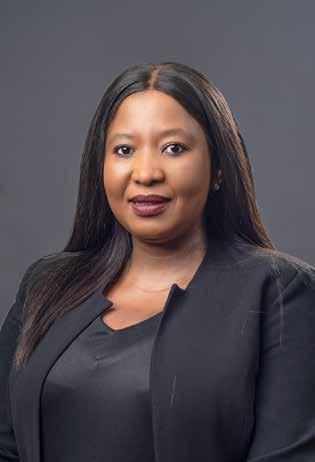
Nthabiseng was born and raised in Mafikeng in North West. She started out as a shy and reticent girl who leaned on academic excellence to stand out and to make an impression on people. She was initially encouraged by her accountant father to obtain a BCom degree and pursue a career in finance, but soon found the world of accounting too constraining for her blossoming personality.
When she made the change to industrial psycho logy, Nthabiseng discovered the profession that
would marry her love for people and business. With her work experiences ranging from financial services to a petroleum multinational, she brought a wealth of expertise and energy to AVBOB that helped sha pe the human resources department and effected a broad transformation drive across the business.
“I genuinely love what I do. I work in an organisation that is harmonious with my values and who I am. This provides a really powerful foundation for my life,” Nthabiseng says. “Companies used to interview people. But the young, dynamic jobseekers of today interview us right back, in a way. They are looking to us to demonstrate that we are an organisation that is purpose driven and built on strong values, including ethical business practises, inclusion, sustainability and diversity … and AVBOB can.”
Having built her career from biochemist to Assistant General Manager: Business Support at AVBOB, Lynette Erasmus agrees with Nthabiseng that people are central to everything the business does.
In her current role, Lynette is motivated by the fact that thanks to AVBOB’s unique structure as a Mutual Assurance Society, which has no corporate shareholders, AVBOB’s clients are considered to be its shareholders … and accorded the same respect.
This makes shareholder value and customer service excellence the overarching goals across the business, and Lynette is focused on delivering that within AVBOB’s insurance sales and funeral services business.
Growing up in Manenberg on the Cape Flats and later moving to Mitchells Plain holds poignant child
hood memories for Lynette. One of seven children, her family did not have a lot. Her mother was a ma chinist in a factory and her father a driver. However, as a young girl she always knew that she wanted to be successful and achieve her full potential.
Lynette also knew how she wanted her life to play out: starting with an education at the University of Cape Town (UCT). Her studies there included a Ba chelor of Science in biochemistry and an Honours degree in biochemistry, but she didn’t stop at that.
She also obtained a BCom degree in economics, income tax, strategic management and marketing management, which she studied part-time over five years while caring for her two young children, and completed a Senior Management Development Pro gramme at the Gordon Institute of Business Science.

In November 2019, Lynette was part of the team responsible for the launch of the first Aquamation facility in South Africa, which enables the disposal of human remains through the innovative process of alkaline hydrolysis (an eco-friendly and sustainable alternative to burial and flame cremation). She was the AVBOB provincial manager in the Western Cape at the time, and the facility is in Cape Town.
“AVBOB has allowed me to be part of a groundbreaking innovation. As a former biochemist, I loved explaining the chemical process and how this allows an individual or their family to have a smaller carbon footprint even as they leave this life,” she explains.
For Lynette, the role of women in the corporate world is also not a matter for debate, but rather a journey of impact. “Women bring a different aspect to management and leadership, and, most importantly, you don’t have to act like a man to be a successful woman in business,” she says.
AVBOB Mutual Assurance Society is a licensed life insurer and authori sed Financial Services Provider. FSP 20656. AVBOB is a level 2 B-BBEE contributor. www.AVBOB.co.za

Three doctors who became friends while specialising as radiologists are now majority owners of an advanced medical radiation workers’ monitoring service. Their success story is setting a path for more equitable patterns of ownership in South Africa and representation of black women in the health sector. Meet DOCTORS NONCEBA KORANTENG , PALESA MUTSHUTSHU, and JACINTA ADRIGWE
From a young age, my father inspired me to pursue a career in medicine. He was a physiotherapist, and most of his friends were also in the medical fi eld, so I was exposed to this world from a young age. From early childhood, I wanted to take care of people and had an interest in health. I ultimately chose to specialise in radiology because it has so much possibility for assisting people through noninvasive means, and the diagnoses are the core of guiding surgeons and physicians in treating patients.
Particularly important in Africa is the potential radiology holds for prevention and screening, especially in communities where people do not have much access. Women are still dying of breast cancer, but many more lives could be saved through increased access to screening.

I met my business partners, fellow radiologists Dr Palesa Mutshutshu and Dr Jacinta Adrigwe, at university. As women studying the same discipline, we had similar passions and aspirations. We qualifi ed together and have worked together on research too. We have a natural bond.
There aren’t many female radiologists and even fewer black female radiologists. We felt the need to move into business. And so it began – we attended many meetings, knocked on a lot of doors and started networking, trying to find our niche. We shared


our profile with anyone who would listen, and that is how Netcare got to hear about us. Netcare was looking for radiologist partners to help grow an optical stimulated luminescence (OSL) dosimetry service that monitors the radiation doses of radiation workers. As we understand the fi eld of dosimetry and the need for radiation monitoring, we became 51 per cent shareholders in an enterprise and supplier development partnership with Netcare.
We are extremely proud to contribute to the safety of fellow radiation workers by providing this advanced monitoring service. At the same time, we are building a legacy and setting an example for the next generation to encourage a future of more equitable ownership for black women in the health value chain.
My advice to young women is to dream – and dream big. Follow your dreams in whatever you believe is your purpose in life. Be disciplined, be determined, and persevere. Have no fear, knock at doors, some day one or more will open. Many women experience crippling anxiety and fear, making them lose confi dence and drive. This may sound clichéd, but knocking on doors is the only way to get doors of opportunity to open up. Don’t timidly wait for “something: to happen”; be intentional about finding a way to overcome the fear and anxiety that holds you back – you will be surpised by what you can achieve.
I grew up in the village of Moruleng outside Rustenburg; not many people from there get the opportunity to go to university, let alone become medical specialists and business owners. I feel we have a responsibility to encourage and inspire others.
“We are building a legacy and setting an example for the next generation to encourage a future of more equitable ownership for black women in the health value chain.” – DR NONCEBA KORANTENG
Initially, I wanted to be a physiotherapist, but I took a four-year nursing degree instead. In 2000, someone believed in and saw potential in me, and I was lucky enough to be given the opportunity to work in a cardiothoracic intensive care unit. I gained more insight into healthcare in this environment and met a group of clever young nurses who encouraged me to step out and pursue medicine.
I enrolled in the Wits’ graduate entry medical programme, and once I found myself in medicine, I wanted career growth and to keep

learning, so I started specialising in radiology.

My motivation is to keep seeking opportunity. I and my partners, Drs Koranteng and Adrigwe, wanted more than to work in healthcare, so we explored more ways to contribute to the bigger picture. I wanted to build a legacy for my daughter and make a name for black women in medicine, radiology and health ownership representativity.
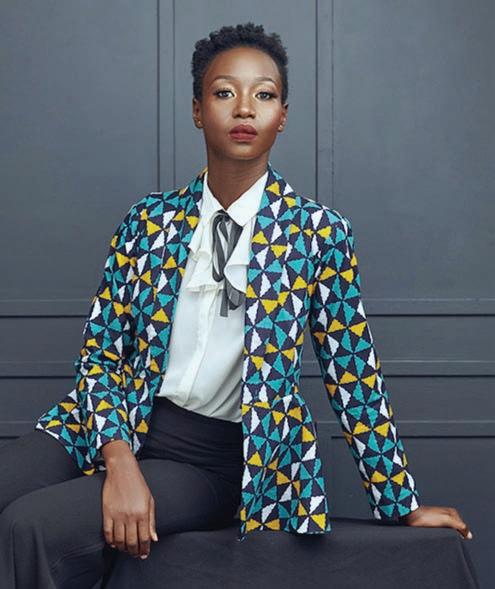
Over the years, it has not been easy to get to where we are today. We dreamed of starting our own radiology practice, but soon realised it would require huge start-up capital and there is a lot of competition in this space. We started knocking on doors and growing our network –this is what eventually led to Netcare noticing RAD Imaging Africa (the company myself and my partners own), which led to us establishing Dosimeter Services.
My advice to young people, especially women, is not to restrict yourself to your career.

View it differently and look for opportunities because opportunity won’t come looking for you. We stand on the shoulders of other women; take them with you on the journey –you never know how many generations will benefi t.
My parents are in the medical fi eld and this has had a signifi cant influence on me. From the frequent discussions about medicine at home to waiting for my father at his clinic after school while mingling with staff and patients, medicine is the life I have always known.

As I got to know the fi eld of medicine and its duties, the more I became absorbed in its purpose. I also wanted to save lives.

I find the whole fi eld of medicine fascinating. The wealth of knowledge is like an ocean that keeps swelling, and I find myself curious about all of it. So, when the time came to choose a speciality, I wanted one that would enable me to still peer into the breadth of the subfi elds of medicine, and radiology is a discipline at the intersection of all others.
In radiology, I have my fulfilment. As a radiologist, I am connected with surgeons, paediatricians, emergency physicians, urologists, pulmonologists, psychiatrists, and many others in the diverse fi elds of healthcare throughout my day. And, I understand

first-hand the importance of monitoring the amount of radiation to which medical workers are exposed. This definitely was the impetus for starting our journey with Dosimeter Services.
Various people, places, times and sentiments have contributed to motivating me to move into business ownership. It allows you the freedom of expression to shape a business according to your vision.
I would advise young women to explore whichever direction they are interested in, as pre-emptive projects and inspired curiosity can develop a person to be highly effective in times of crisis. In learning more and pushing the boundaries, not only can we grow ourselves and the people around us– we can help change the world.
“I wanted to build a legacy for my daughter and make a name for black women in medicine, radiology, and health ownership representativity.” – DR PALESA MUTSHUTSHU
“I find the whole field of medicine fascinating. The wealth of knowledge is like an ocean that keeps swelling, and I find myself curious about all of it.” – DR JACINTA ADRIGWEDr Palesa Mutshutshu Dr Jacinta Adrigwe DOSIMETER SERVICES
S ports physician Dr Phathokuhle Zondi has worked as a team physician for a variety of sports and as chief medical offi cer for Team South Africa at the Commonwealth Games, Olympic Games, and Paralympics Games. She has served on several sports bodies, and is the current chairperson of the Medical Advisory Commission for the South African Sports Confederation and Olympic Committee and a medical advisor at Virgin Active, Africa.
Her love for sport began at a young age, growing up in a family where physical activity was a culture and lifestyle; she often watched her father run the Comrades. “I love connecting with people and being active, and I was interested in biology and how the body works,” explains Dr Zondi. When she realised she could merge biology and sports, she knew she wanted to build a career in sports medicine and enrolled at UCT. And the rest, as they say, is history.
Working on the 2016 Paralympics Games, Dr Zondi says, is one of the most meaningful experiences in her life. “Seeing these athletes in their full glory and realising such limitless performances was life-changing.” Although it wasn’t the first time she’d worked with differently-abled persons, the experience made her realise the limitations that society imposed on them. “My reference comes from African communities where we are very protective of differently-abled persons, but that protectiveness, which comes from love, actually disempowers them.”
Passionate about transformation in sport, Dr Zondi uses her voice to encourage sporting bodies to be more inclusive in their hiring processes. “My journey as a sports medicine professional has exposed me to the many inequities within sport. My contribution is to ensure that certain people are represented,” she adds.
While sports medicine is still her first love, she has moved away from doing day-to-day patient check-ups and surgeries to offering companies clinical and medical strategies, and business development strategies through her company, PCZ Consulting.
Dineo Lioma is a scientist and astute businesswoman who has co-founded three biotechnology companies: Incitech, CapeBio Technologies and Deep Medical Therapeutics.
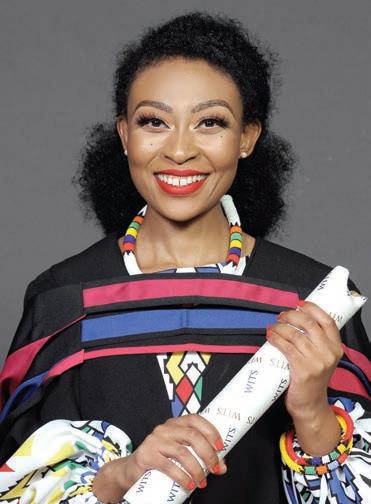







At the beginning of the pandemic, together with her colleague Daniel Ndima, Lioma developed South Africa’s first COVID-19 test kit through their CapeBio Technologies company. The development was aimed at improving the accessibility of test kits and reducing the country’s reliance on imported goods. Their test kit took only 65 minutes to determine whether a person had been infected with the virus, two hours less time than it usually took to produce the results. “Being part of the team that developed the COVID-19 test kit was the highlight of my career,” says Lioma. “The stakes were really high; the pandemic was unprecedented for all of us. We didn’t expect anything of that magnitude to happen to the whole world so just being able to contribute in a small way was incredible.”
Since then, Lioma has focused on providing affordable pathology services through Deep Medical Therapeutics. She has a deep love for Africa and plans to use artifi cial intelligence to see which diseases are prone to Africa and then design therapeutics tailored to Africans.
“A lot of the drugs on the market aren’t designed with us in mind,







































the data used to develop these medications comes from Europeans, Americans and Asians, and as a result, they don’t work to their optimal effi ciency,” explains Lioma.
Her dream is to build pharmaceuticals that incorporate more African genetic data in the development of medicines. Financial problems plaguing the African continent mean that pharmaceutical companies only focus on rich countries where they can get a return on their investments, so there isn’t any development of medicines tailored to the African population.
“We need to solve our own problems and make sure that we are prioritised when it comes to healthcare,” says Lioma.

“Being part of the team that developed the COVID-19 test kit was the highlight of my career.” – DINEO LIOMA
“My journey as a sports medicine professional has exposed me to the many inequities within sport. My contribution is to ensure that certain people are represented.” – DR PHATHOKUHLE ZONDIDineo Lioma
NDIVHU NEPFUMBADA , chief human resources officer at TransUnion Africa, shares why recruiting and hiring with purpose must become corporate culture
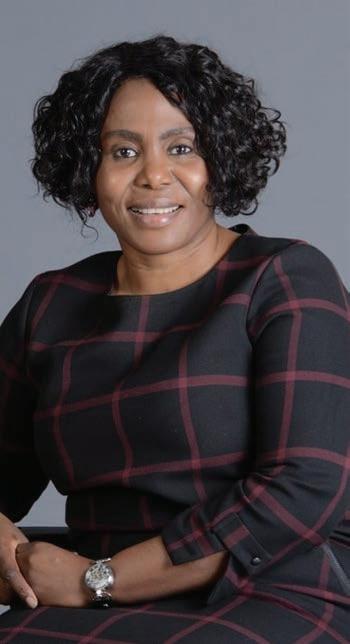
Men and women are working side by side in practically every industry in South Africa, and we’re seeing growing numbers of women entering sectors such as mining, financial services, factories, restaurants, and transport and logistics.
They do the same jobs. They work the same hours. They deliver the same, if not better, outcomes and outputs. But, they’re paid an average of 20 per cent less than their male counterparts, as reported by the International Labour Organization’s (ILO) Understanding the gender pay gap report.
The gender pay gap is a glaring indicator of inequality between women and men. It’s not supposed to be there. And yet, here we are. At the current rates of change, the World Economic Forum (WEF) estimates it will take 202 years to close the global gender pay gap, based on the trend observed over the past 12 years.
There are many reasons why the gender pay gap still exists in 2022 (and will still exist in 2222, if the WEF’s estimates are accurate). But with a strong diversity and inclusion policy, driven from the top of an organisation, they are all addressable.
Perhaps the biggest reason is under-representation in leadership. There just aren’t enough women in management and leadership positions. And at managerial level, they’re often given admin and support functions rather than strategic roles, which means they’re paid less.
At TransUnion, we’re actively working to reduce this gap and achieve global gender parity by 2030.
Companies can also do more to upskill women and give them clear pathways and opportunities to climb the ladder. It’s not enough to write a policy and then not do anything about it. You have to drive it, or it won’t happen.
Working hours is another thorny issue. In its Global wage report 2018/19, the ILO highlights that women work on a part-time basis far more
The gender pay gap is a glaring indicator of inequality between women and men. It’s not supposed to be there. And yet, here we are.
workforce to raise children or care for family members. When they return to work, they’ve fallen behind in advancement and remuneration.
However, employers can provide women with more flexible work hours and allow them to step away from the workplace when they need to without threatening their career or their advancement.
At TransUnion, flexible working is part of our DNA. Our female employees are in an environment that recognises their skills and ability to deliver outcomes to our clients. But we’re largely still the exception – and that needs to change.
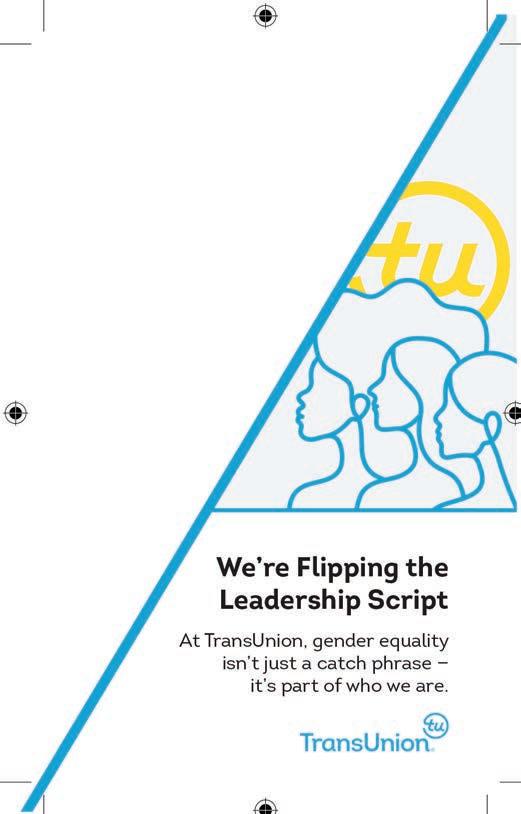
Enterprises can do many things to close the pay gap. It starts with promoting a gender-inclusive business culture and applying equal remuneration for women and men for work of equal value and providing
than men in all but 5 of the 73 countries where data is available. That’s because they’re doing “typical women things” such as looking after the kids and taking care of family responsibilities. They’re also more likely to take time out of the
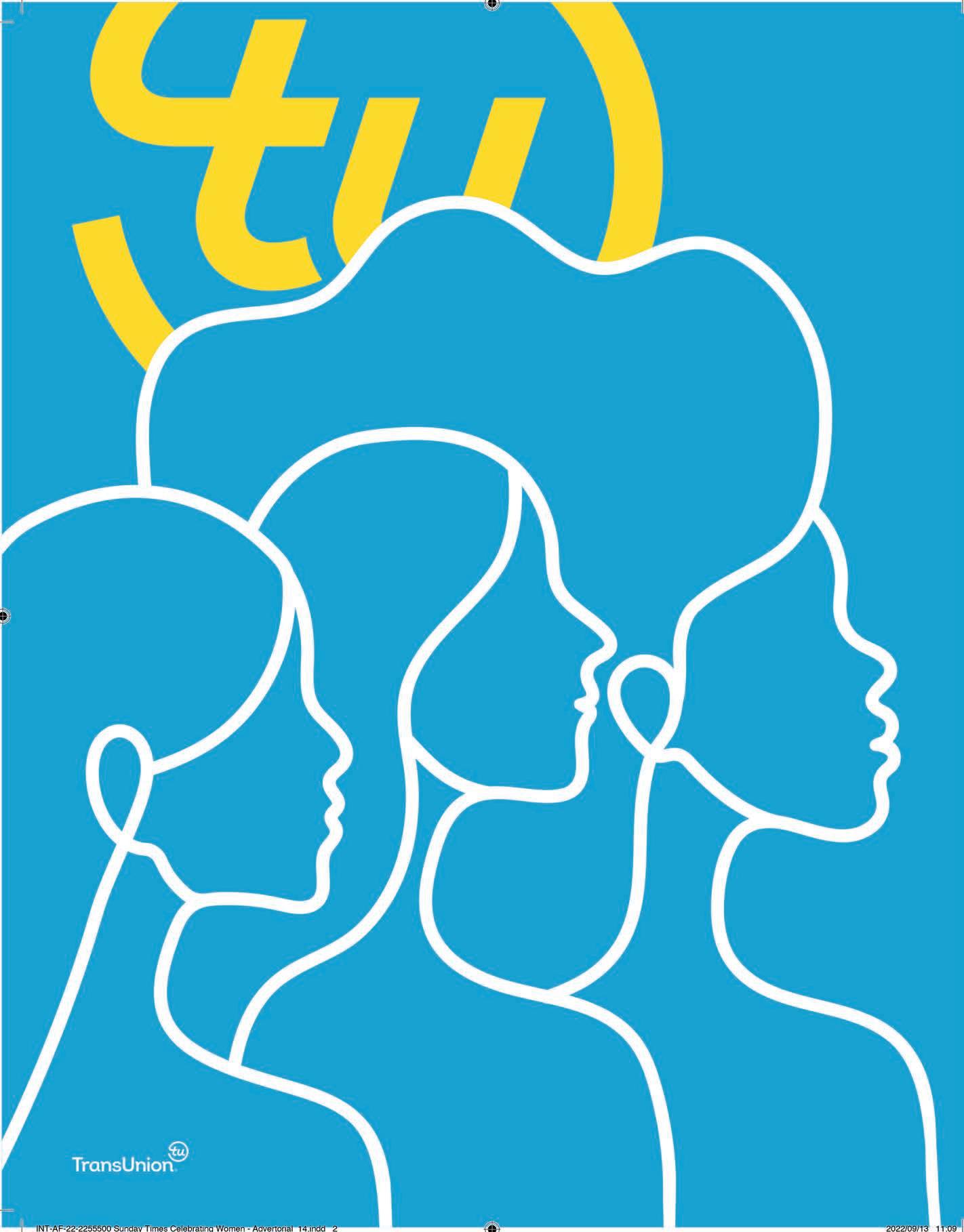
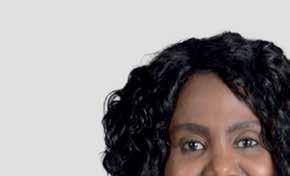

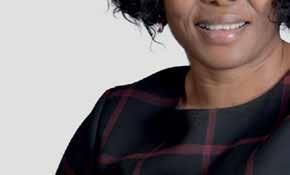



















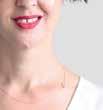




QINISO MTHEMBU, Group Chief Risk Officer at the Johannesburg Stock Exchange, discusses the requirements for and benefits of a career in risk management, and the role of the Institute of Risk Management South Africa
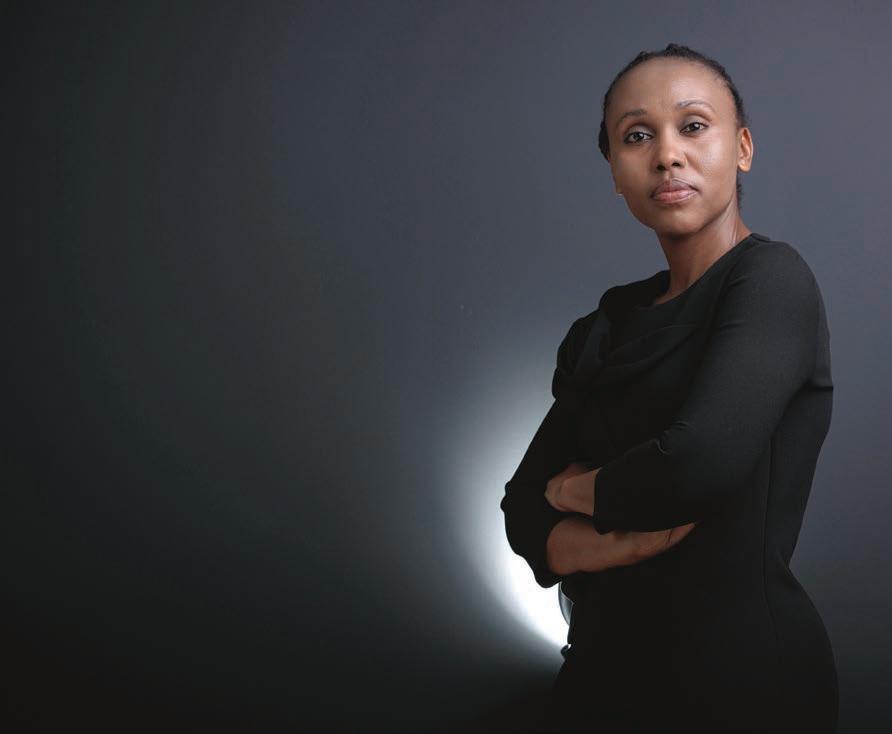
Iam a Certified Risk Management Practitioner (CRM Prac), a designation conferred to me by the Institute of Risk Management of South Africa (IRMSA) in 2019 after having successfully undertaken the board exam in 2017 and, thereafter, completing my logbook. My role at the Johannesburg Stock Exchange involves leading the development and implementation of the group’s enterprise risk management strategy.
Becoming a CRM Prac is probably one of the best decisions I’ve ever made for my

career as a risk management professional. I decided to take the professionalisation journey because it was important for me to be regarded as a “trusted advisor” for risk management in my organisation..
Every risk professional wants their organisation to look their way if they want to understand the risk landscape. And, every organisation wants the assurance that a risk professional is equipped with the necessary strategies and tools for the identification, measurement, and management of their risks.
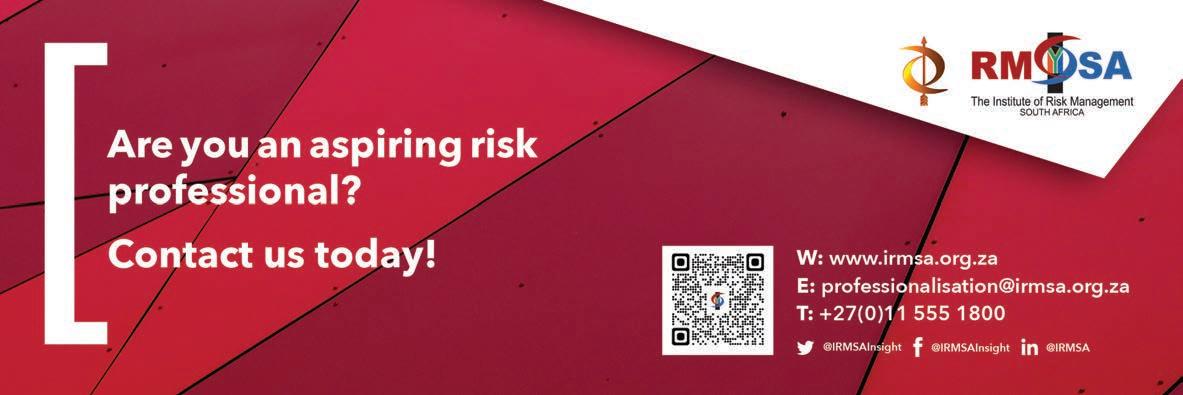
The CRM Prac designation provides that credibility because it effectively serves as a backing by the standards-setting body, attesting that the holder understands risk principles, is familiar with the standards, is exposed to best practice, and has the ability to apply this knowledge within their organisational context.
The application of the knowledge gained is of critical importance, which is why it is commendable that the IRMSA makes completing the logbook a mandatory part of the certifi cation journey. This process is overseen by a team of experts in academia and business, thereby ensuring that the theoretical knowledge has indeed been translated to practical understanding as evidenced in the application of the principles as per the requirements set out in the logbook.
I have personally found that the credibility factor associated with the CRM Prac designation extends beyond one’s own organisation. Shortly after I obtained the designation, I was called upon to present at conferences both locally and abroad. I have also been approached with job opportunities. In addition, I have been called upon to support up-and-coming risk professionals in their professionalisation journey.
I strongly encourage every aspiring risk professional to pursue and secure the CRM Prac designation. This, combined with one’s passion for risk management and hard work and diligence, is sure to be the best investment they could ever make in themselves.
I also salute the IRMSA team for the personal interest they take in the growth and development of their practitioners by providing opportunities for expanding networks, continuous improvement opportunities through learning and development, and making it possible for the transfer of knowledge to others through speaking engagements and other forums.


Why having key strategic policies around equity, empowerment, diversity, inclusion, values, and culture makes your businesses more attractive and geared for growth. By ITUMELENG MOGAKI

In this era of globalisation, diversity, equity and inclusion (DE&I) in the workplace is more than gender, race and ethnicity, says Pat Semenya, CEO of The Institute of Risk Management South Africa (IRMSA). “Our policies now need to consider diverse religious and political beliefs, education, socioeconomic backgrounds, sexual orientation, cultures and disabilities.”
Companies, she adds, are discovering that by supporting and promoting a diverse and inclusive workplace, they gain benefi ts that go beyond the different identities. “The case for setting up a truly diverse workforce at all organisational levels grows more compelling each year. A diverse and inclusive work environment creates a sense of belonging for employees.
“The moral argument is weighty enough, but the financial impact as proven by multiple workplace sociocultural studies makes this a no-brainer.”
Seipati Mokhuoa, founder and executive chairperson of Strategic African Women In Leadership (SAWIL), adds that according to McKinsey’s Diversity wins: How inclusion matters 2020 report, companies with more than 30 per cent women executives were more likely to outperform companies where this percentage ranged from 10 to 30.



“It’s clear from this statistic that the most diverse companies tend to outperform their less diverse peers on profi tability. If this does not encourage more businesses to make gender diversity and ethnic and cultural diversity in corporate leadership a priority, I don’t know what will. Moreso in the South African context, where the country’s demographic segmentation is so vast, diverse, and complex,” says Mokhuoa.
Talking about how diversity and inclusion
TheWorkingWorldof2030–A Better Place report estimates that by 2030 millennials will make up over 70 per cent of the global workforce.


can help rebrand the business to strengthen resilience, Semenya emphasises that diversity is a given and inclusion is a choice. “In the current climate of uncertainty and a looming global recession, diversity and inclusion could be the solution to stability and growth in the potentially tough times ahead.
“Many South African companies are catching on to the fact that young people entering the workforce care more about social issues than their predecessors did.” In light of this, Semenya adds, to attract talent “more companies are becoming vocal about their diversity stance and social justice efforts, earning themselves a deeper trust and more commitment from their employees”.



Unapologetic about demystifying the myths and excuses surrounding the promotion of women in the workplace, Mokhuoa says she and her organisation breathe and live DE&I with a clear focus on empowering women and youth. “Leadership transformation is at the core of what we do as an organisation, and these three pillars, coupled with researched methods and practical strategies, not only focus on the success of the woman leader in a corporate setting, but also of the companies they work for.”
Giving tips on what a progressive company should do to ensure inclusion and diversity, Mokhuoa says: “First, have a clear strategy based on your organisation’s needs, followed by an understanding of the demographics of the country in which you
Pat Semenya
operate as a business. Second, do it for the right reasons, not because you want to open the boardroom for more people of colour because of government policies, trends and peer pressure, but because it is a business-imperative decision.
“At SAWIL, we have honed impactful and meaningful strategies backed by research to help companies with proper business analyses that will aid in putting suitable measures in place to meet their diversity and inclusion needs without jeopardising their current fl ow and reputation.”
Semenya adds that forward-thinking companies should be looking for ways to employ and empower more women at work, not just as a moral obligation, but also as a sound business strategy to build a diverse C-suite pipeline.


WORKING WORLD OF 2030 REPORT

“The case for setting up a truly diverse workforce at all organisational levels grows more compelling each year. A diverse and inclusive work environment creates a sense of belonging for employees.” – PAT SEMENYA
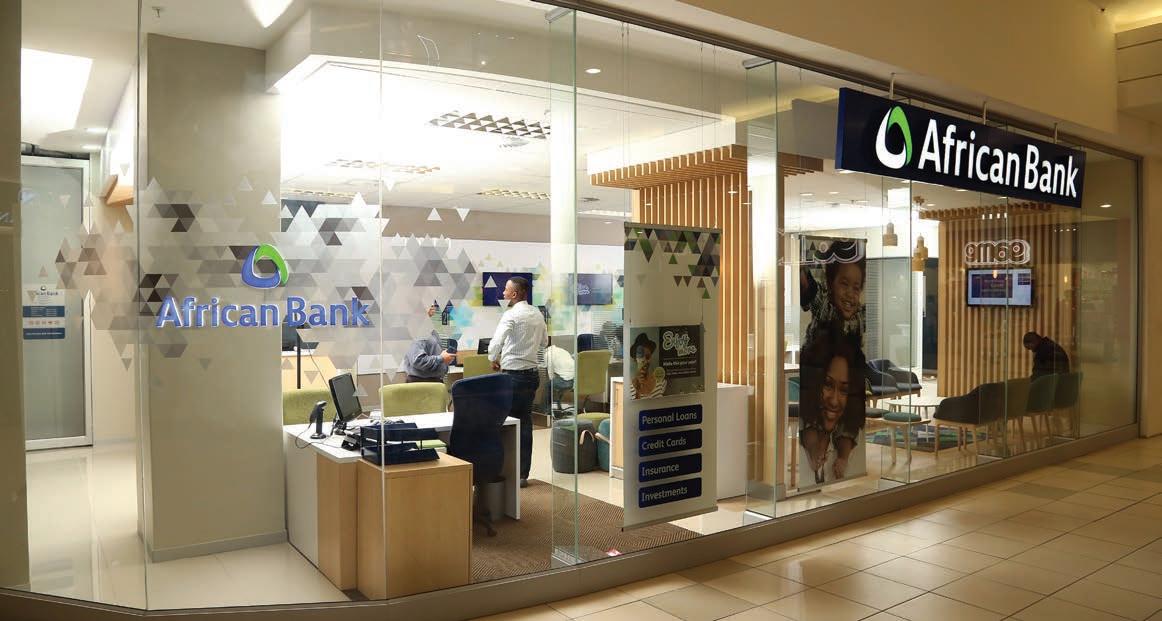
African Bank was established 47 years ago and continues to advance lives through financial and related services. DUMA GQUBULE unpacks the bank’s history, its evolution, strategy and purpose
For more than seven decades, the dream of a black bank has refused to die, though it has yet to be fully realised. In his book, A Legacy of Perseverance Nafcoc: 50 Years of Leadership in Business, Kwandiwe Kondlo says the idea first emerged in 1949 when the Bantu Cooperative Society led by WJ Mseleku, registered a bank for Africans. “Although it was not a success, it provided inspiration and set a goal for future generations of African businessmen to aim for. “
During the 1960s, Soweto business tycoon Richard Maponya, the inaugural president of the National African Federated Chamber of Commerce (Nafcoc), established in 1964, mooted the idea. Only R70 was collected at the first meeting. At the end of the inaugural Nafcoc conference, Maponya said: “We, the blacks, are eighteen million people in South Africa. We just need to ask R1 from each person and then next year when we meet, we would have R18-million in the kitty.”
Sam Motsuenyane, Nafcoc’s president from 1968 to 1992, pursued the idea vigorously over the next decade. It was a standing item of discussion at each national conference and fundraisers were held throughout the country.
At a fundraising conference in Welkom in 1974, Nafcoc raised R74 000 and elected directors. The name of the bank was finally adopted: the African Bank of South Africa Limited.
By 1975, Motsuenyane had raised the R1-million required to start the bank. African Bank’s first branch was in Ga Rankuwa. Kondlo says the establishment of African Bank “occurred at a time when black people were so oppressed that it was almost unimaginable that, under conditions of extreme deprivation, they would ever dare to start an initiative such as a bank”.
Phakamisa Ndzamela, the author of Native Merchants: The Building of the Black Business Class in South Africa, says the African Bank brand has survived for so long despite numerous changes in its ownership. “This is unique since brands frequently die with changes of ownership or corporate restructuring. The brand has survived for 47 years because African Bank is the embodiment of a dream that refuses to die.”
Today, African Bank is owned by the South African Reserve Bank (50 per cent), the Government Employees Pension Fund (25 per cent) and a consortium of banks (25 per cent).
“The brand has survived for 47 years because African Bank is the embodiment of a dream that refuses to die.”
– PHAKAMISA NDZAMELA
At the end of September 2021, African Bank had assets of R29.1-billion. It has a diversified product offering that allows its customers to bank, borrow, save, invest, and insure with it. There were more than 740 000 customers who enjoyed the benefits of the MyWORLD account, which has no monthly account fees and the country’s best interest rate on positive balances.
There were more than 68 000 customers who had entrusted African Bank with R10.3-billion of their money. These customers earned an interest rate of 11 per cent on a five-year fixed deposit, which is one of the best in the country. This expiry rate has subsequently increased and is currently 12.5 per cent. African Bank had also advanced R26.7-billion to more than 1.1 million personal loan and credit card customers. The company has demonstrated financial resilience and was able to deliver increased value to its customers and report a net profit after tax of R534-million.
African Bank’s public purpose is to advance lives through financial and related services. Encapsulated in the phrase “advancing lives”, the purpose extends beyond generating profit for a narrow set of stakeholders. At the core of the bank’s purpose is the importance of achieving sustainability not only for itself, but also for all its stakeholders and broader society.
The 2025 vision is to create a scalable, sustainable bank with a diversified business that will become a listable entity – for the people, by the people and serving the people. The Excelerate25 targets are to have 3.5 million retail customers, to achieve a net profit after tax of R2.5-billion, a return of equity of 3 per cent – 6 per cent above the yield on South African ten-year bonds – and net loan advances of R30-billion. African Bank also seeks to achieve 100 000 small and medium enterprise customers.
To achieve these audacious targets within three years, African Bank will strengthen and expand its core through updating the product range and customer reach, delivering digital offerings for small and medium enterprises, digitisation to improve customer journeys, enhancing technology platforms and transforming sales and distribution. The five sustainability levers are: customer satisfaction;
• social responsibility;
• environmental protection;
• inclusivity; and
• financial inclusion.
African Bank’s dynamic women leaders have bought into the company’s vision and the opportunity to contribute towards transforming the economy and the financial sector. Maliga Chetty, African Bank’s group company secretary, has a critical role in providing strategic support and alignment between the bank’s governance structures and functions. She is a crucial conduit of information, advice and guidance between the African Bank executive leadership, the board, and the board chairman during the most important period in the bank’s history as it seeks to achieve the audacious Excelerate25 targets. These include becoming a company that is listed on the Johannesburg Stock Exchange (JSE).
An admitted attorney, conveyancer, and seasoned chartered governance professional, Chetty has more than 25 years of experience in the health, insurance, and financial sectors. Before joining African Bank in 2018, she spent
eight years as company secretary at JSE-listed insurance company Momentum-Metropolitan Holdings Limited. This experience will be very valuable as African Bank heads towards its initial public offering on the JSE, which will result in more stringent reporting and governance requirements. African Bank’s recent new acquisitions to significantly expand its product and customer base, resulted in an increased workload for Chetty.
“For the board, FY22 will be about operationalising the Excelerate25 strategy and monitoring the first year of implementation and delivery against longer-term strategic targets,” says Chetty.
“In FY23 /FY24, the shareholding structure of African Bank following the envisaged exit of shareholding by the South African Reserve Bank (SARB) and other shareholders will also move into focus.
“Additionally, it is our aspiration for African Bank to be listed on the JSE, meaning that our African Bankers (employees), partners, customers, and other stakeholders will be able to invest in their future with us, and reap the benefits of the sustainable value we create,” she says.
Over the past two decades, the role of a company secretary has changed, says Chetty. “Previously, the company secretary was seen as a scribe for board meetings who just took minutes. The role has changed fundamentally to one that provides strategic guidance for the board and the executive committee. It is now a statutory appointment with specific responsibilities prescribed in the Companies Act.
“The company secretary acts as a sounding board for directors who must navigate
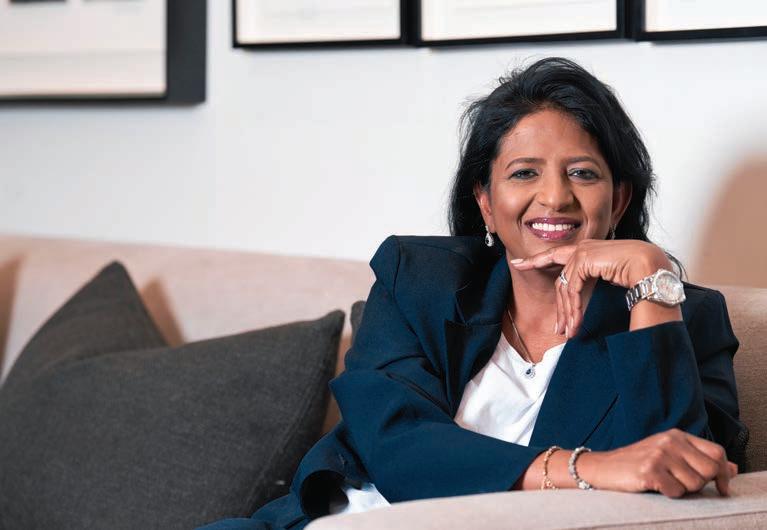
“It is our aspiration for African Bank to be listed on the JSE, meaning that our African Bankers (employees), partners, customers, and other stakeholders will be able to invest in their future with us.”
– MALIGA CHETTYMaliga Chetty
complex J S E and debt market disclosure requirements, assist the board chairman and engage regulators, shareholders, and customers. We are responsible for the smooth running of a company from an administrative and governance point of view,” Chetty says.
Unathi Mtya, African Bank’s group chief information officer, is a globally respected information technology trailblazer with more than two decades of experience in the sector. In 2022, she received two prestigious international awards. Mtya was voted the most influential African woman banker of the year in the digital transformation category of the African Bank 4.0 summit, held in Nairobi, Kenya. S he was part of the Global 100 and was recognised as one of the world’s leading chief information officers.
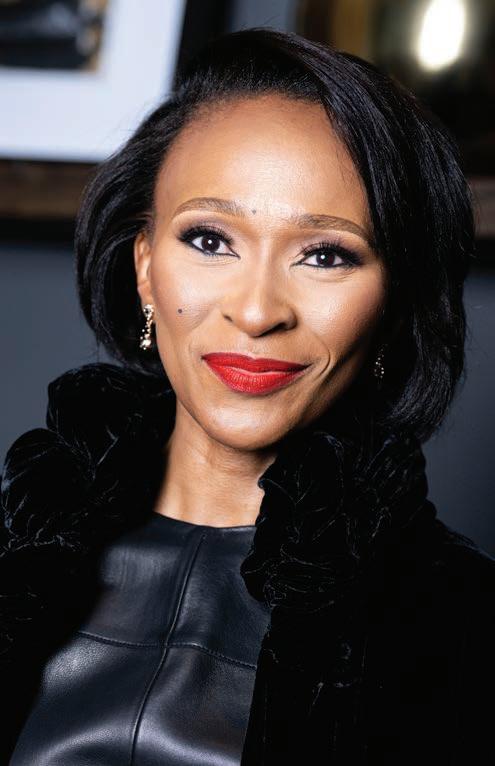
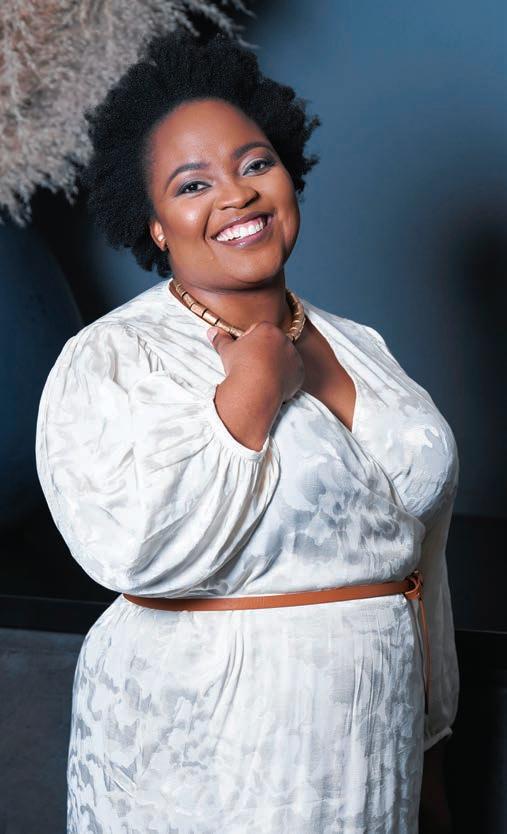
A member of the Forbes Technology Council, Mtya is passionate about narrowing
the digital divide and promoting equal access to financial services across Africa. S he says the role of her function is to advance and transform lives through inclusive technology, an important part of the bank’s strategy. The Excelerate25 strategy calls for digital transformation to improve end-to-end customer journeys, strengthening the stability and security of all systems while improving the speed of delivery.
To reach customers, African Bank has a multichannel strategy that includes a people-centred branch network and 24/7 digital channels. The bank is updating the branch environment to appeal to all generations and small businesses, offering these customers tailored services. At the same time, it is making investments to improve digital channels. Mtya says: “While some customers prefer a physical presence, many people are more technology-savvy than we realise. We must not underestimate the abilities of people, even in rural settings, to embrace new technologies. We are creating a rich omnichannel experience where people can start at a branch and still be able to enjoy customer experience on an app or vice versa. Digital transformation requires that we must give customers more choices. We develop personalised customer journeys that we co-create with our customers.”
Our technology and digital transformation strategy is anchored on ‘Customer First’ and ‘Customer Always’, delivering new valuable experiences in a standardised manner. We are embracing digital inclusivity, driving points of access, and providing channels of choice for improved customer experience.
Group executive for transformation and sustainability Edna Montse joined African Bank after working for many blue-chip companies. Montse says she was attracted by African Bank’s vision, mission, and heritage. “I did not see African Bank as just another bank; I was joining a movement to bank the unbanked and transform the
economy as we transformed ourselves.
“For me, the heritage of African Bank speaks of resilience and perseverance until one achieves their goals. There were so many obstacles in the way of the bank’s founders, but they remained determined and persevered for a decade when there were so many reasons and opportunities to give up. They set the bar far higher than what was possible for a black person to achieve in apartheid S outh Africa. Our name is a reminder of our heritage and where we come from.”
“Digital transformation requires that we must give customers more choices. We develop personalised customer journeys that we co-create with our customers.”
– UNATHI MTYAUnathi Mtya Edna Montse
Montse leads an extensive portfolio that comprises transformation, sustainability, stakeholder engagement, ethics, and Broad-Based Black Economic Empowerment (B-BBEE). Reporting to the CEO, she is also accountable for implementing and reporting on three of the bank’s five sustainability levers to the board. The inclusivity targets for 2025 are to achieve B-BBEE level 1 status, invest 2 per cent of net profit after tax in enterprise and supplier development (E S D), and 50 per cent of procurement with blackowned businesses.
Other targets include a 30 per cent reduction in carbon emissions and achieving 20 000 cumulative hours of community outreach and corporate social responsibility programmes over the four years until S eptember 2025. Montse has a passion for transformation and wants to see it evolve beyond mere tick-box exercises. “Our focus is on making a meaningful contribution to the economic growth of our country and creating the kind of opportunities that change people’s lives.
“We have a broader role to play for the people and communities we serve. We are not only profit-conscious, but also aware of our role as a change agent with the potential to deliver wide-ranging and impactful societal benefits. We strive to create shared value, which implies that economic value is created by and for the business while simultaneously creating value for society,” she says.
Montse says building an inclusive and thriving economy requires corporate investment in young people and small, medium and micro enterprises (S MMEs).
During the 2022 financial year, African Bank launched its Enterprise and S upplier Development (E S D) Programme, which was followed by its inaugural E S D S ummit at the beginning of S eptember. African Bank set up the Qhubeka Growth Fund, which provides interest-free loans to qualifying black-owned S MMEs.
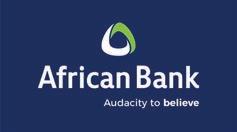
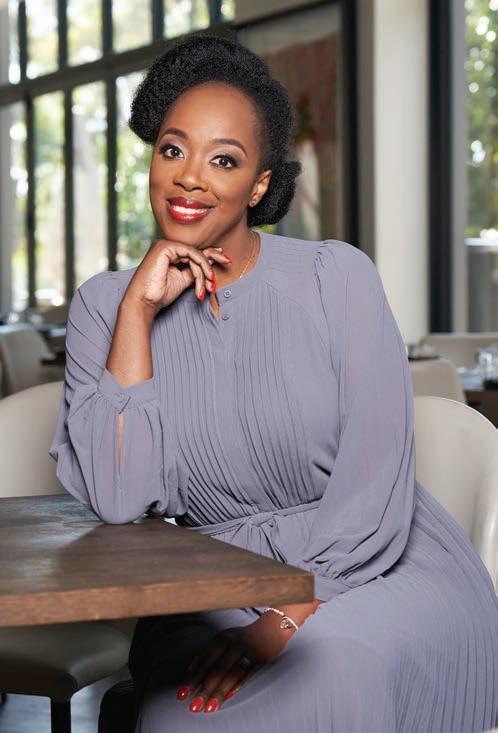
“ S MMEs face the same challenges African Bank experienced during its formative years. With the correct support and mentoring, they can have a meaningful impact on their communities and contribute to employment. We are in a unique position to offer support and pass on learnings based on our heritage.”
African Bank says its African Bankers are the lifeblood of the organisation. It seeks to energise, empower, upskill, and inspire a workforce that is future fit. Lindiwe Miyambu, the group executive for human capital who has been with the company for 12 years, is at the forefront of creating a workforce where talent will thrive and help the bank to achieve its 2025 goals. African Bank is winning the war for talent and has attracted some of the most qualified professionals in the industry. Miyambu says African Bank has developed an appealing employee value proposition that allows it to attract, retain and develop high-performing individuals. With 3 384 African Bankers, the group is expanding and will become a significantly larger business, with fully-fledged retail and business banking operations. “Even though we are embracing new technologies, almost 40 per cent of our staff works in our 400 branches, and we have ensured over the years that we upskill our people, so they are ready to grow with the business.
“We are on a growth agenda to cement a future-fit organisation. A major differentiator is that we give people the opportunity to join a movement that will make a difference in the lives of ordinary S outh Africans. We are looking for all types of people, from those who are mathematically inclined and want to work on data sciences and analytics to creatives who will help us to innovate, retain, and attract customers. In both areas, we are looking for employees who have people skills and collaborate in teams.”

“AS MARKET LEADERS IN THE FINANCIAL SECTOR WE HAVE ENSURED OVER THE YEARS THAT WE UPSKILL OUR PEOPLE AND NOW HAVE A WORKFORCE AND A MOVEMENT OF HIGHLY ENGAGED PEOPLE. WE ARE ON A GROWTH AGENDA TO CEMENT A FUTURE FIT ORGANISATION.” – LINDIWE MIYAMBU
“We strive to create shared value, which implies that economic value is created by and for the business while simultaneously creating value for society.”
– EDNA MONTSELindiwe Miyambu
Leading with authenticity is vital for business and personal success. DUMA GQUBULE looks at the traits of authentic leaders and the benefits this leadership style offers organisations
Throughout history, people, from Greek philosophers to Shakespeare, have written about the importance of authenticity, says leadership expert Kevin Kruse. Many years ago, Shakespeare wrote: “To thy own self, be true.” Poet and playwright Oscar Wilde wrote: “Be yourself, everyone else is taken.”
In 2003, Bill George’s book, Authentic Leadership, fused the ancient concept of authenticity with management theory. He identifi ed fi ve characteristics of authentic leaders:
1. Pursuing their purpose with passion.
2. Practicing solid values.




3. Leading with their hearts as well as their heads.
4. Establishing connected relationships. 5. Demonstrating self-discipline. Two decades later, there is no accepted definition of authentic leadership, but leadership experts agree on its benefi ts, and there are common themes in their attempts to provide meaning to the concept.
Marketing and growth expert Caroline Forsey says: “Research has shown that authentic leadership serves as the single strongest predictor of an employee’s job satisfaction, commitment to the organisation and workplace happiness. To ensure long-term happiness and productivity of your team, it’s critical you demonstrate a level of authenticity as a leader.”
In South Africa, there is a new generation of authentic women leaders helping to create progressive and dynamic work environments.
Nicole Sykes, head of women in business at FNB Commercial, seems to be a dream boss. She describes herself as the type of leader who gives people the room to grow, improve, and learn by taking responsibility for their futures by giving them the space to think freely, experiment, and fail if necessary, but learn from their experiences. “I believe

everyone works differently, and to get the best out of them, you need to accommodate their working styles so they can fl ourish and deliver the best they can.”
Sykes attributes her career progression in the financial services industry to her authentic leadership style. “I would like to think my authenticity and transparency in everything I do and ensuring that I show up as my genuine self as best as possible, even in diffi cult situations, have contributed towards me rising within the bank’s leadership. Being empathetic is also one of my core traits. We are dealing with people, and everyone has different frames of reference and different circumstances; we need to be cognisant of that and sympathetic to their situations, which may affect their work life.
“If you are not living your authentic self, then you will compromise your values to conform. That will leave you resenting your position or what you are doing because you are not living your truth. The importance of being

“If you are not living your authentic self, then you will compromise your values to conform. That will leave you resenting your position or what you are doing because you are not living your truth.”
true to oneself will guide you in all your decision-making. You will perform better and with more purpose and passion than if you are constantly fi ghting against your natural inclination. People value and respect honesty and being real – it makes one more approachable and relatable when your colleagues and peers feel they can trust you and know that you are being consistent in everything you do.”
Sykes says there are three traits of authentic leaders. First, you must understand your purpose and sense of self. If you can attract and inspire others by living your purpose, people will feel comfortable living theirs – this will bring out the best in them. Second, you must lead from a place of intention and from your heart, as you will get more support and buy-in. Walk your truth and people will follow that lead. Third, connectivity with people is so important. Building strong relationships is key to achieving common goals and getting things done. People want to follow and listen to leaders who are deeply invested.”
She emphasises the importance of ensuring that you are fully aware of your values and your non-negotiables before joining an organisation.
“Make sure that you fully understand the company’s values because if there is a fundamental disconnect, you will never be happy. It will always feel as though you are compromising, resulting in a toxic environment and affecting those around you. If some of your values are different, work out if you can live with those differences or if they will hugely impact your sense of self and worth.
“If they do, you need to re-evaluate working for that organisation. Typically, changing an organisation starts at the top. If people at the top are not willing to listen to their employees and try adjusting to make a more thriving environment, then it is time to move on. However, most executives are open to creating the best culture possible and listening to new ideas, so do not be afraid to speak up.”
High-fl ying information technology executive Unathi Mtya has found an organisation that aligns with her values at African Bank, where she is chief information offi cer. “It is not often that one finds an organisation whose purpose and values are similar to yours.”
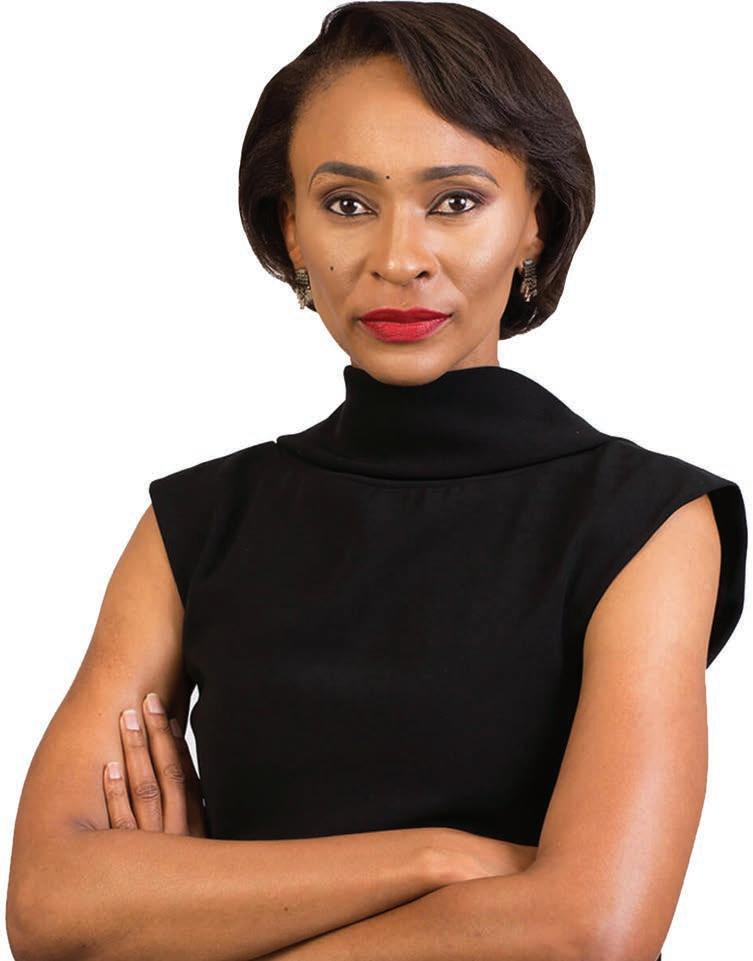
African Bank was established in 1975 during the darkest days of apartheid when it was inconceivable that black people could even think about starting a bank. African Bank’s founders had spent a decade raising the funds
to start a black-owned bank. “They were far ahead of their time and believed in inclusivity long before the term became widely used. African Bank is reclaiming that heritage. Our purpose is to advance and transform lives through inclusive technology.”
Mtya says she has not always been in a position where there was such a close fi t between personal and organisational values. “Authentic leadership is very important. You must be your best self and be authentic. But everybody navigates these tensions in different ways, the best ways they know at the time when they make decisions. It is okay that some people will decide at some stage in their career that the only way to advance is to do what everybody else does.
“All experiences are necessary. I have been there before. But there has to be a balance. As much as I must bring my authentic self to the workplace, there were things I had to first learn earlier in my career. Different industries operate in different ways. Once I had learned the basics and the working of the industry, I was in a better position to infuse my authentic self. I behaved differently when I was much younger; I now choose my battles more carefully. But the organisational culture matters, at African Bank, CEO Kennedy Bungane is very supportive.”
Zizipho Nyanga, Grindrod Bank’s head of strategy implementation, says: “Authentic leadership means that I should be happy with my actions and not change the version of myself to suit other people’s narratives of who I am. Not being authentic means wearing a mask and having to maintain the version of yourself that you portray
“Authentic leadership is very important. You must be your best self and be authentic. But everybody navigates these tensions in different ways, the best ways they know at the time when they make decisions.” – UNATHI MTYA
at work. An employee’s mental wellbeing is very important. In the long run, it is not sustainable to be inauthentic; it catches up with you. We must learn to be ourselves even if it means showing how vulnerable we are in certain situations.”
Terry Oakley-Smith, founder and chief executive offi cer of Diversi-T, has been working at the cutting edge of organisational transformation for three decades in South Africa. She has been grappling with issues of creating an environment for authentic leadership to thrive in a male-dominated industry. “At this one client, there is a culture of shouting, swearing, bullying and trying to change employee behaviour by making threats rather than encouraging people. This is adversely affecting the new generation of black professionals recruited to the company.
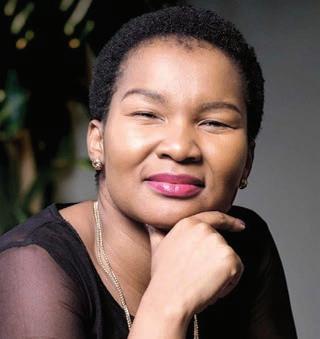
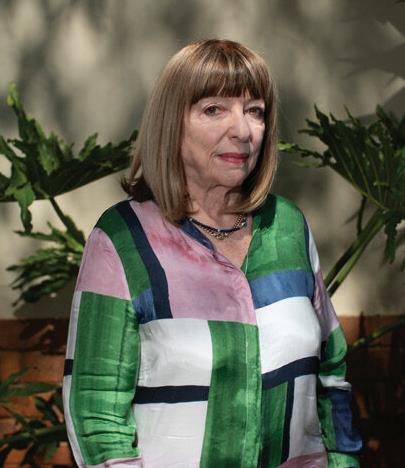
“These younger black managers find that this organisational culture is antithetical to their values, and the chances of them performing at their best in such an environment are very low,” Oakley-Smith says.
“Companies must be trained on the importance of creating a culture where authentic leadership
can thrive. There must be a generational shift in many companies that must change organisational culture to embrace authentic leadership. Younger people must also learn to speak out. There must be spaces where they can speak among themselves to gain the confi dence to articulate their views to top management. If they work as part of larger groups, it will be diffi cult for managers to victimise them,” she says.
The Centre for Creative Leadership says authenticity is the healthy alignment between internal values and beliefs and external behaviour. “Authenticity comes from finding your style and your way of leading — and making life decisions that reflect your ethics, values, and your personality. Leadership success starts with authenticity — doing our jobs without compromising our values and personality. People trust us when we are true to ourselves, and that trust makes it possible to get things done.”

There is broad agreement about the characteristics of authentic leaders. First, authentic leaders are self-aware. They bring their true selves to the workplace and create an environment for others to do the same. Authentic leaders are true
to themselves and others. They lead with their heart and are good listeners who are also empathic. They are not afraid to show their strengths and weaknesses. They create a democratic culture where employees can provide honest feedback about company performance and leadership.
Marketing and growth expert Caroline Forsey writes: “By displaying both your strengths and weaknesses to your team, you’re able to demonstrate that you have nothing to hide, and don’t play games. In this way, you’re better equipped to build trust among your team, and when your employee makes a mistake, she’ll feel more comfortable admitting her error to you.
“Self-awareness is also critical to grow as a leader, and strengthen other components of authentic leadership. For instance, perhaps you’ve noticed you don’t do a great job at displaying transparency with your team. By acknowledging this weakness, you can take steps to rectify it.“
Second, authentic leaders are transparent. Forsey continues: “Transparency and honesty must be encouraged from the leadership level if you want your business to be successful. Passive aggression, subtle messaging, and convoluted feedback have no place in leadership. It’s critical that you remain genuine, straightforward, and honest with your team. Let them know where they stand … it works in your favour in the long run, as your employees trust that you are not hiding your true feelings regarding their performance.”
Third, authenticity in the workplace requires leaders who have integrity and ethics and who do not pursue financial shortcuts and quick profits that compromise such values. Finally, authentic leaders are mission-driven and focus on long-term results. “They are able to put the mission and the goals of the organisation ahead of their self-interest. They do the job in pursuit of results, not for their own power, money, or ego,” leadership expert Kevin Kruse says.
“Companies must be trained on the importance of creating a culture where authentic leadership can thrive.”
– TERRY OAKLEY-SMITH
“Authentic leadership means that I should be happy with my actions and not change the version of myself to suit other people’s narratives of who I am.” – ZIZIPHO NYANGA
As I pondered the meaning of being a fearless leader in these unprecedented times, a memory from the Africa Women Chartered Accountants’ (AWCA) 20 th anniversary celebration held on 5 August, kept replaying in my head. When I invited the organisation’s founders and previous and current board members to join me on stage ahead of the cake cutting, I never imagined such a bold, beautiful and powerful picture.
On stage were all these inspiring leaders who had chartered paths unknown. Women who refused to be defined by patriarchal rules and had created seats for other women at boardroom tables. Many continue to do so and have, at some point in their careers, passed down the leadership baton to younger, aspiring leaders.
This moment as described above perfectly captures what the AWCA stands for.







When Zodwa Manase, Tshidi Mokgabudi, Sindi Zilwa and Sindi Mabaso-Koyana founded AWCA some 20 years ago, it was with the aim of growing the number of African female CAs(SA) – at the time a stagnant 407. Not only was the chartered accountancy skill scarce, but there was also a dire shortage of females in the profession. Sadly, the same gaps and missing links that existed in 2002 continue today –alerting us that the gender equality battle is far from over.



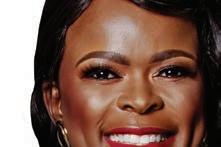

By May this year, the number of African female CAs(SA) had risen to a signifi cant 8 588, yet the challenges and gaps within corporate South Africa remain. In addition to equipping African females to join and remain in the profession, we have identifi ed an urgent need to encourage them to be resilient and fearless enough to withstand any challenges that could potentially deter them on their journey to the top.
As AWCA, our efforts to “Develop as we Lead” are guided by a three-tier strategy. The first step is “Identify”, where we educate young girls at high school level about the chartered accountancy profession. The second layer of our strategy is “Nurture”, where we train and develop young professionals on the path to becoming CAs(SA), and those who have already qualifi ed. Lastly, the “Leadership” tier aims to inspire qualifi ed African female CAs(SA) through various initiatives designed to retain and expose them to the myriad career options within the profession.
As part of our Vision 2025 strategy, we plan to amplify our efforts in the “Identify” tier by visiting more high schools to reach the girl-child. We remain committed to creating initiatives that nurture and grow the pipeline of aspirant African female CAs(SA).

A great level of authenticity and understanding of self is required to successfully rise to the challenge of becoming a fearless-thinking leader.
I fully subscribe to the notion of inclusive leadership. It is a notion I live by because I recognise that I am not self-made. The support from the AWCA sisterhood circle – composed of board members, subcommittee members, members, and various partners, advocates and stakeholders – helps me bravely wear the armour required to become a fearless-thinking leader. Fearless-thinking leadership is about treading in areas of leadership where other leaders have not dared to go before. It involves shaking the status quo and, sometimes, making unpopular decisions.
Now more than ever, a more humane approach to leadership is required. In a column in the 2021 edition of Passion Magazine,




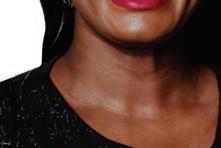
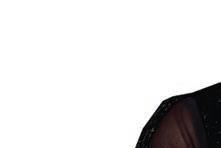
Fearless-thinking leadership is about treading in areas of leadership where other leaders have not dared to go before.

an annual AWCA publication, NET1 UEPS Technologies Inc CEO Lincoln Mali expresses this well when he says: “In these diffi cult and painful times, the greatest asset of a leader is the size of their heart. A leader with a big heart is able to understand, know and appreciate the people they lead in the deepest possible way. This goes beyond a superfi cial grin-based relationship, and has more to do with displaying genuine, authentic empathy towards the people we lead. Those who subscribe to these values and principles are the compassionate leaders we need at this very moment”.
As we continue to aspire to or chart our various leadership paths, may we remember that there are many discoveries and lessons that await us on the other side of fear.
Women in South Africa share a strong will, resilience and determination to succeed. This has never been more evident than during the past two years, when necessity-driven entrepreneurial activity increased amidst the challenges of a persistently uncertain global landscape. In order to support women, FNB offers a wide range of banking solutions to start, manage and grow female-owned businesses.
Real support at every step. Women are still in the minority when it comes to South Africa’s entrepreneurial landscape. More than half of South Africa’s population is female, yet only 34% of small and medium enterprises (SMEs) are female-led*. While there has been a positive change in cultural perceptions of female entrepreneurs, the need to address the challenges of social and gender equalities that still hinder their progress remains.
We recognise the need for effective and efficient banking solutions to the problems faced by women in business –solutions that speak to the need, but also take into account the challenges that are unique to women. FNB offers a rich and diverse set of tools including educational content and initiatives to help women develop their businesses. Some of our awardwinning solutions include the easy-to-use FNB App that helps our customers manage their businesses on the move; eBucks , which can be used to pay for necessities; affordable insurance products to protect businesses; a range of cash investment solutions that speak to individual business goals; access to short-, medium- and long-term funding and nav» Marketplace
to help women grow their real estate, home and professional services businesses with free app tools and exposure to up to 3 million potential new customers.
Recognising and supporting the potential of women’s business represents a major opportunity for economic growth. Femaleowned micro, small and medium enterprises are a force to be reckoned with when it comes to the growth and development of the communities around them and the larger South African economy. That’s why FNB Business will continue to work to provide women with the services required for their businesses to thrive .
Contact your FNB banker or visit your nearest branch or our website to find out how FNB can help you do business better.
* Survey conducted by Facebook in partnership with the World Bank and the Organisation for Economic Cooperation and Development (OECD). Source: SME South Africa
SME Bank of the year
Growing and supporting female-owned businesses in South Africa is absolutely vital for our economy and our country. And behind every successful business woman is a bank that believes in her dreams. That’s why FNB Business offers a range of banking products to help start, run and grow your business. There are credit and investment solutions that will take you from managing your cashflow in the short term to expanding your business in the in the long term; eBucks, which can be used to pay for necessities like stationery and electricity; and the FNB App that allows you to manage your business’s banking at any time, from anywhere.

CARYN GOOTKIN asks three women in senior leadership roles in the retail industry about the ease of doing business as a woman in the sector
esponding to a question about gender bias in the industry, Pick n Pay’s retail executive: chief people offi cer, Thembi Mbengashe, says: “For the most part, the retail industry, like many others, remains male-dominated. This historic imbalance has, however, with time, signifi cantly shifted, and I am proud to have borne witness to this much-needed revolution. The industry remains demanding, but for those with the appetite, there are great prospects.”

Zyda Rylands, CEO of Woolworths Food, believes we still have a way to go. “Much has been achieved to date in furthering gender equality and women empowerment, but we still have so much work to do. Within Woolworths, we believe we have a profound responsibility to be an agent for positive change, both within our business and in our broader communities. The evidence is overwhelming that gender equality is key to healthy societies, business performance and economic growth. When we talk about the progress of women, we are
talking about the progress of South Africa. In Woolworths, our senior leadership teams are well represented by women, this is because the business recognises that diversity drives our competitive advantage. However, this remains an ongoing journey for women in the private sector generally.”
In 2021, Woolworths launched the Inclusive Justice Initiative (IJI), pronouncing its commitment to addressing marginalisation by creating access for all and appreciating and valuing diversity. “We are consciously working towards building inclusivity and creating a human-centric environment where people truly feel they belong,” says Rylands. “Our IJI acknowledges different sectors of our society that were and remain marginalised, such as women, and within the South African context, specifi cally black women. In March this year, we became the first major South African retailer to sign the United Nations (UN) Women Empowerment Principles, a further example of our commitment to the empowerment of women and gender equality in the workplace, our supplier base, and our communities.”
While there is clearly progress towards gender parity, we still have some way to go. “Gender bias is not limited to any nation or industry,” says Germinah Nyikana, Clicks HR executive. “The global focus on gender empowerment has definitely gained traction over the past few years. However, while we are seeing progress, much more needs to be done to achieve gender parity.”
“Without question, and with the privilege of my position, I can affirm that remuneration is
Women in leadership positions don’t only act as role models or mentors for their junior counterparts, they also clear the way for the next generation, signalling to other women that positions like that are accessible to them too.
“Representation really matters and is hugely motivating because it holds out the hope to younger women that change can be realised,” says Germinah Nyikana, Clicks HR executive. “Representation across all levels, especially senior and executive management, is vital. It allows others to see themselves as worthy and builds hope in the achievement of the South Africa we know we can be.”
calculated in accordance with qualifi cations, skill set and experience,” says Mbengashe. Others acknowledge there has been progress, but stress that ongoing systemic work needs to be done. “I don’t feel we should have to negotiate for equal pay – we should be demanding it,” says Rylands. “And, more importantly, employers should be offering equal pay for work of equal value, regardless. At Woolworths, we are currently participating in an assessment process using a ‘gap analysis tool’ provided by UN Women that will provide us with a baseline from which to assess our status and draw up action plans and commitments to close any potential gaps.”
“We are consciously working towards building inclusivity and creating a human-centric environment where people truly feel they belong.”
– ZYDA RYLANDSThembi
The Clicks Group also recognises the importance of equal pay for work of equal value. “Over eight years ago, we put a pay framework in place to guide the work required to eradicate gender pay inequality,” says Nyikana. “This was a deliberate effort to work on the systemic and structural issues that were enabling and maintaining pay gaps. Elements of the framework implemented to eradicate gender bias include pay frameworks, assessing for gender bias in the performance appraisal and annual increase processes, and investing in the training and development of female employees. We also addressed the so-called ‘motherhood penalty’ by allocating a maternity benefit over and above the UIF maternity benefit.”
“Mentors take formalised learning or training and make it applicable to real-life situations and experiences, which is invaluable for new entrants into the working world,” says Rylands. “As female leaders, we have a unique perspective to offer young people journeying through their careers, and I do not think enough of us take the time to invest in those that come after us. Our job as leaders across all industries is to continue carving the path for capable individuals to be empowered and realise their potential. I have a deep, unwavering passion for the education and development of women, and therefore I have had the privilege of mentoring and supporting many young women throughout my career. A real blessing.”
Men also have a role to play in mentoring women. “We also need to ensure that our male colleagues continue to play their part in the development of women and men within our businesses and our country,” says Rylands.
“The United Nations’ HeforShe movement also underscores the importance of engaging men and boys in our efforts to remove those societal barriers that impede women from realising their full potential,” says Nyikana.
Many companies provide numerous formalised opportunities for employees to grow and develop – but what about the informal transfer of knowledge, shared experiences and advice between senior and junior employees?
“We have been fortunate at Pick n Pay to have impeccable female leaders in both Wendy Ackerman and her daughter Suzanne,” says Mbengashe. “Our firmly instilled growthfrom-within philosophy has also provided an exceptional platform for employees from humble beginnings to have an equal opportunity to develop, grow, upskill and progress their careers within Pick n Pay.”
“There is a direct correlation between the availability of female mentors and the representation of females in leadership positions within the corporate sector,” says Nyikana. “Organisations can start by implementing networks of females drawn more broadly from across the industry and professional circles.”
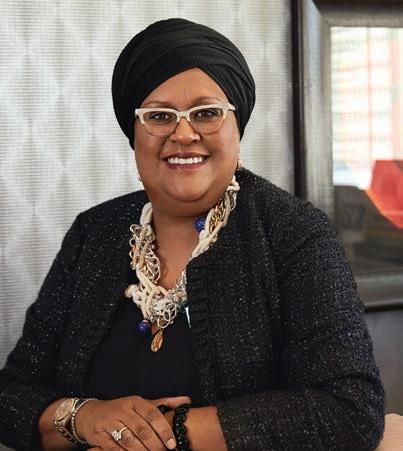
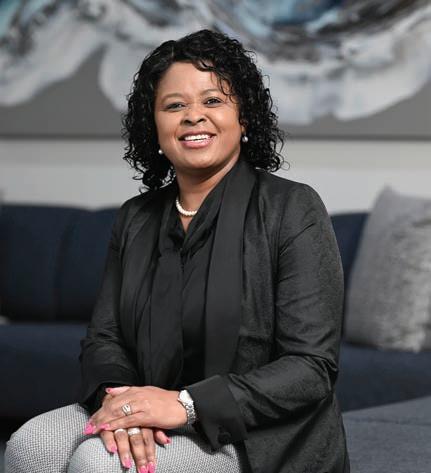
Rylands expands on the role mentors can play in the workplace. “Over the years, I have become very conscious of the role I can play to actively support other women. Whether through being a mentor, a thinking partner, offering women a soundboard and a safe space, championing diversity initiatives, or calling out more explicitly unconscious biases among peers. I passionately believe that a culture of inclusivity and celebrating success at every level will help women believe and see that they are empowered to progress their careers across all sectors.”
The retail industry is going through an extremely exciting period, with the significant impact of digital transformation, the criticality and importance of data, and the growth of e-commerce. “These changes are affording more women the opportunity to get involved, allowing them greater flexibility, creativity, and financial independence,” says Rylands. “Women are also increasingly given access to priority funding and support when it comes to the supply chain and the sta rt-up sector.”
Nyikana believes that all industries are ideal for women. “But to focus on retail specifically, the majority of customers in the retail sector are female,” she says. “Having leaders who are representative of our target market and understand what influences their shopping behaviour can be a source of competitive advantage. In the Clicks Group, we encourage, support and provide space for women to achieve their career aspirations as this enables us to hone our customer offering.”
Mbengashe believes retail is the ideal environment for women. “My job is literally retail therapy! There’s an old saying, ‘retail is detail’ – by nature, women are good with details. I also strongly believe that our natural ability to engage in and diffuse difficult situations puts us in remarkable stead for stakeholder engagement whether with employees, customers, vendors, or service providers.”
Germinah Nyikana
“There is a direct correlation between the availability of female mentors and the representation of females in leadership positions within the corporate sector.”
– GERMINAH N YIKANA
“There’s an old saying, ‘retail is detail’ – by nature, women are good with details. I also strongly believe that our natural ability to engage in and diffuse difficult situations puts us in remarkable stead for stakeholder engagement.”
– THEMBI MBENGASHEZyda Rylands
Chief executive officer of Clicks Group Bertina Engelbrecht is dedicated to championing the development of women in South Africa
Bertina Engelbrecht, chief executive offi cer (CEO) of Clicks Group, is no stranger to rising through the ranks of an organisation. During her corporate career spanning more than 30 years, she has occupied senior and executive roles in companies such as Transnet, SAA, Sea Harvest and Shell Southern Africa.
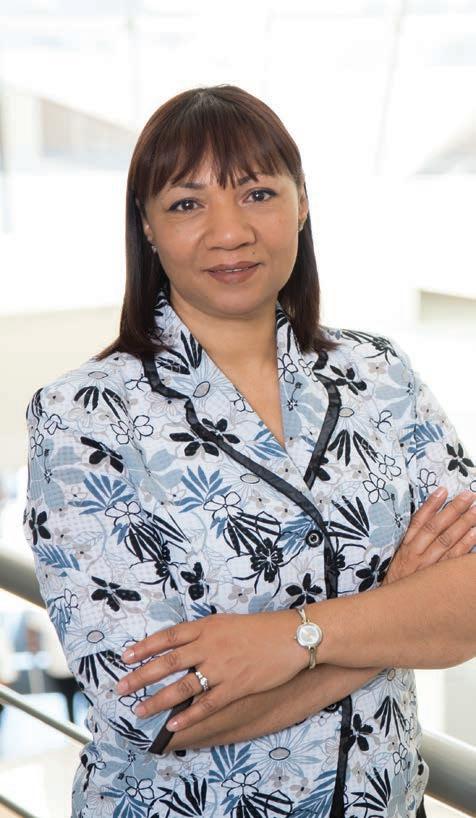
In 2006, Engelbrecht joined Clicks Group as group human resources director and became a member of the four-person group executive team, the highest decision-making body, and was responsible for strategy development and execution. In 2008, she became one of the company’s executive directors and was appointed CEO in January 2022.
“My promotion to CEO has been an incredibly motivating appointment for women, particularly women of colour,” Engelbrecht says. “I intend to be my authentic self in this role and create an empowering, inclusive environment that cultivates diverse leadership. I have noticed a shift in the leadership space in terms of who assumes the role of a leader in organisations.
“Increasingly, it’s people who have worked their way up the ranks of a business and who have done so without having to trample on others to get to the top. I am excited about contributing to this ethos and enabling the development of others.”
Engelbrecht’s passion for people has been one of the key drivers of her success. She believes that a good leader advocates for inclusivity and does not alienate those with different opinions.
“I regard myself as an inclusive leader who actively listens and engages with people. I trust in people’s competence, which helps to foster a collaborative and accountable culture. I appreciate dialogue that introduces new perspectives and innovation. And I’ve never been afraid of being challenged – in fact, I encourage and value it,” she says.
Part of Engelbrecht’s strategy for inclusion has been to ensure that Clicks Group continues to make good progress in employment equity within the organisation and build a culture that supports diversity. Clicks Group recently conducted a Women’s Empowerment Principles gap analysis to
see how it was faring in terms of gender equality performance across leadership and strategy.
Given that this was the first time Clicks Group had embarked on this kind of evaluation, Engelbrecht was encouraged by the results.
“Women make up the majority of our workforce, with representation across all levels of the business. The evaluation has been a good opportunity to understand the areas in which we lead, as well as to identify the areas we need to focus on,” Engelbrecht says.
Inclusiveness is also something that extends beyond the workplace. Localisation has been an enormous driver for the Clicks Group, with a signifi cant focus on its objective of building a healthier future for South Africans by engaging in sustainable business practices.
In 2021, Clicks launched its Supplier Development Programme and a user-friendly online portal where local entrepreneurs can apply to become a Clicks supplier. The company plans to target over R4.5-billion sourced through black women-owned suppliers over the next three years. Currently, Clicks has between 40 to 50 local suppliers across different categories representing close to 780 products.
“Transformation is an ongoing journey rather than an end destination for the Clicks Group. We are focused on preferential procurement – by supporting local suppliers, black- and female-owned enterprises and investigating how we can advocate for equity equivalence programmes that benefi t local suppliers,” Engelbrecht says.
“I’m a firm believer that corporations have a responsibility to deliver sound financial performance and to do so in a way that positively impacts our stakeholders. Research indicates that today’s generation of employees wants to work for ethical organisations with values that resonate with their own. Customers are likewise attracted to companies that conduct business ethically and sustainably.”
An admitted attorney, Bertina Engelbrecht joined Clicks Group
Limited in 2006 as group human resources director. In 2008, she became an executive director and was appointed CEO in January 2022. She was previously general manager for Shell SA Energy and regional human resources manager for Shell Oil Products Africa. Prior to this she was director of organisational effectiveness at Sea Harvest, managed her own consultancy practice and spent eight years with Transnet.
“I intend to be my authentic self in this role and create an empowering, inclusive environment that cultivates diverse leadership.” – BERTINA ENGELBRECHTBertina Engelbrecht
Dr Melanie van Rooy currently holds the position of head of marketing at Clicks Group. She is responsible for the retailer’s end-to-end omnichannel marketing efforts, which include brand marketing, loyalty marketing, advertising, digital marketing, analytics and CRM, and customer experience and reputation management.
Van Rooy holds a DCom in Econometrics from the University of Johannesburg and an MBA from North-West University. Her career spans various industries, including banking, academia, hospitality, financial services, FMCG and retail.
Van Rooy was instrumental in the formulation of different marketing strategies as head of research and strategy in ABI (soft drink division of SAB Limited), as marketing director at Makro and group marketing director of Dis-Chem.
DR MELANIE VAN ROOY, HEAD OF MARKETING AT CLICKS GROUPDr Melanie van Rooy is a highly driven and creative marketing executive with 20 years of strategy and marketing experience and 35 years of analytics experience. Van Rooy currently holds the position of head of marketing at Clicks Group.
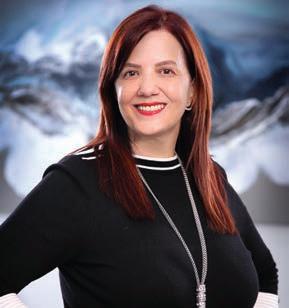
“I am passionate about adding value to the lives of our customers through an omnichannel, personalised marketing effort. I also love developing emerging talent in my team,” van Rooy says.
Van Rooy’s background in econometrics, strategy and marketing has allowed her to understand and implement the drivers of consumer behaviour.
“As a brand, Clicks resonates with customers because it truly lives up to the brand promise of ‘feeling good and paying less’,” she says. “Clicks has reinvented delivery to the customer over many years. The customer is at the heart of everything we do, and I think customers value the authenticity of the brand and the rewards they receive for their loyalty.”
When asked what attributes women need to succeed in business, van Rooy says it’s all about resilience and tenacity. She also credits the environment at Clicks for her success. “I am truly blessed to work for a company where female leadership is common and encouraged. This is especially pertinent for a health and beauty brand, where the majority of our customers are female,” she says.
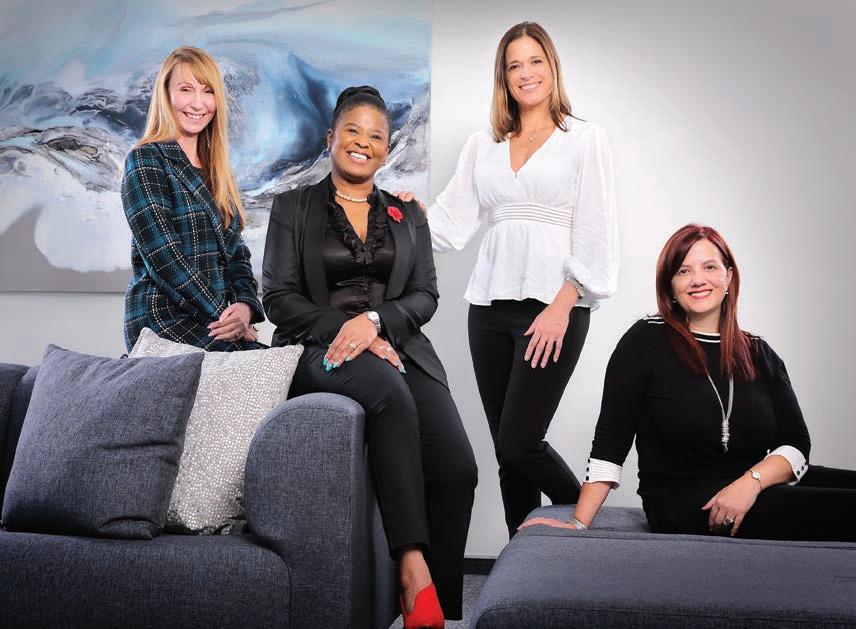
Van Rooy says that personalisation in the customer space will remain a key focus for marketers in the future. “We’ll need to cleverly use the plethora of data at our disposal to hone our marketing messages. Digital and mobile, in particular, are becoming more and more important as marketing assets.
However, one must never lose sight of the traditional methods that still deliver great experiences to our customers.”
“The business case for gender equality, diversity, and inclusion is strong and growing in broad acceptance. When you consider that the vast majority of retail customers are female, then more diverse retail leadership should benefit customercentric innovations and market success.”
– BERTINA ENGELBRECHT, CLICKS GROUP CEODr Melanie van Rooy
Phathiswa Sefatsa’s varied work experience has come together at Clicks, where she hopes to build her legacy and make a mark in the marketing landscape. Before becoming Clicks brand executive, she held marketing positions at National Brands Limited, Colgate-Palmolive, Vodacom, Cadbury/Kraft and Coca-Cola.
“As South Africa’s leading health, beauty and wellness retailer, Clicks has a very strong heritage and is a well-loved brand,” says Sefatsa. “My primary role is to maintain and enhance this position by developing brand marketing strategies that create a seamless experience throughout the customer journey across multiple channels, whether shopping at our brick-and-mortar stores or online.”
Clicks is the perfect fit for Sefatsa, as the group’s values are similar to hers. “I think that female-led companies often fare better when it comes to staff turnaround
and happiness within the workplace,” she says. “There’s nothing wrong with how males run businesses, but I think it’s time we recognise that there are different ways to run corporations and have them remain profitable. As a black female executive, the responsibility of leading becomes even greater because people need to see that it’s possible for someone who looks and sounds like them to get to this level.”
Sefatsa believes that women must find ways to support each other in the business world. She hopes to create an environment where women can flourish.
“I want to create as many rungs as possible on the corporate ladder so that the steps don’t seem unachievable. I hope that at the end of my career, I will have created many ladders in our country so that it’s easier for women to climb them,” she says.
Portia Mngomezulu’s entrepreneurial spirit was ignited when she stumbled across the remarkable benefits of marula oil. She started manufacturing products in her garage using a two-plate stove, a cake mixer and a “paraffin funnel” to fill containers.
Her resourcefulness and IT knowledge came in handy when using the power of the internet to get her product out to market.
“I’ve learned that you must be persistent and consistent in whatever you try to accomplish – eventually, the doubters will start believing in your journey. Always remember, it is your vision, and you are responsible for manifesting it into reality,” says Mngomezulu.
Her products are now available in over 2 000 stores nationwide, including Clicks, and exported to eight African countries.
In 2022, Mngomezulu won the Industrialist of The Year Award at the All Africa Business Leaders’ Awards. Portia M currently has 141 full-time employees. “Being recognised for my work motivates me to reach for my dreams and create more job opportunities for our people,” she saysPortia Mngomezulu
Boasting impressive academic credentials, including a BCom from Wits, a postgraduate diploma in Business Administration and a master’s in Business Science from GIBS, Phatiswa Sefatsa has held marketing positions at National Brands Limited (now known as AVI), Colgate-Palmolive, Vodacom, Cadbury/Kraft, and Coca-Cola.
She has also dabbled in entrepreneurship, owned a print shop, consulted in Angola, and coached women entrepreneurs and corporate executives.
Meet Portia Mngomezulu, Zaakira Mahomed, and Adri Williams, three Clicks suppliers using their entrepreneurial spirit to create jobs and change lives
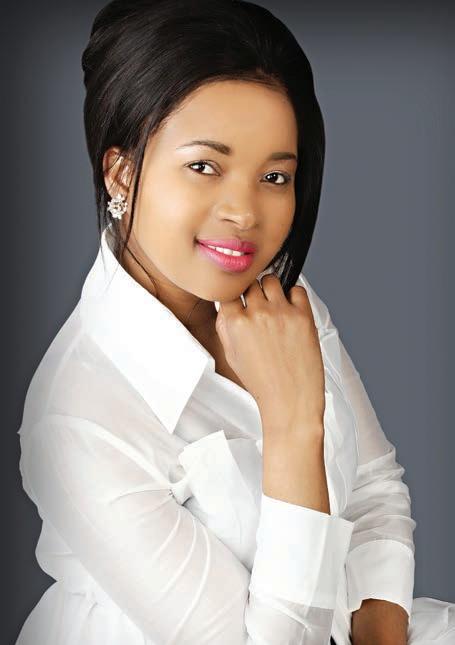
Portia Mngomezulu is not only synonymous with affordable skincare, but is also one of South Africa’s leading female businesswomen.
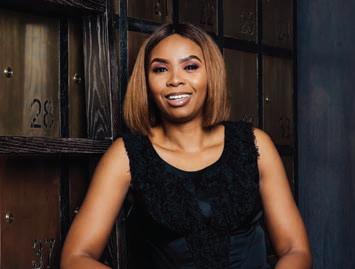
Mngomezulu started as an IT systems engineer before creating Portia M, a range of skincare products using natural African ingredients.
She has won many awards, including the All Africa Industrialist of The Year Award, the Best in Beauty Clicks Supplier Award in 2020, and the DAFF Top Female Entrepreneur Award in 2018.
Portia M has established the Portia M Foundation, which focuses on mentorship, entrepreneurship and youth development.
Zaakira Mahomed is a businesswoman, social entrepreneur, activist, and founding member of the Mina Foundation, an organisation aiming to end period poverty by providing a sustainable, healthy and eco-friendly alternative to period care.

Mahomed received the Woman in Business 2014/2015 award from the South African Turkish Business Association of South Africa (SATBA), and was recognised by the Doha Women’s Forum in Qatar (2018) for her efforts to uplift communities.
In August 2021, she was included as one of 50 Powerful Women in SA by the Mail & Guardian. In the same year, her story was included in a book featuring the stories of 50 African leaders from 23 African countries. Mahomed was honoured by the Harvard Medical Journal in June 2022 for providing a healthy solution to period care globally.
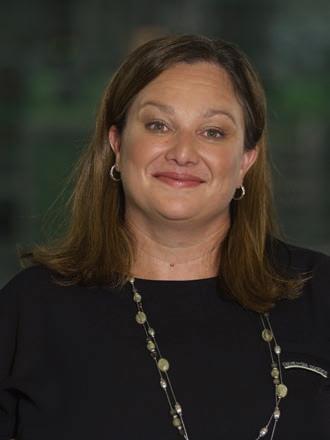
Zaakira Mahomed and her friends were looking for a way to help girls stay in school when the idea of a menstrual cup was introduced. After months of research, Mahomed discovered the benefi ts of menstrual cups: they are environmentally friendly, non-toxic, pain-free, odourless, and made from 100 per cent medical-grade silicone. Mina Cups are also extremely cost-effective – one cup can last for five years.
The concept of a reusable alternative excited Mahomed as she realised this was the solution to keeping girls in school.

Together with two of her close friends, they started the Mina Foundation. “Mina means ‘me’ in isiZulu because when we go to schools, we tell


Adri Williams was the sales manager for Coffee Importers and Roasters Organisation when she decided to do a job that gives back to her community. She joined Khayelitsha Cookies, a handmade artisanal cookie company that was in debt and in danger of going under. She has successfully turned the business around.
Williams has qualifications in warehouse control, marketing and food safety, which came in handy at Khayelitsha Cookies, where she streamlined processes and turned the business into a sustainable enterprise. Khayelitsha Cookies now sells its products to several stores and businesses, and also manufactures teething biscuits, rusks and bars for babies and toddlers, which are produced under the Clicks Made 4 Baby label.
The Mina Foundation is a women-owned, nonprofi t company that manufactures its own cups. With the hope of touching more lives, Mahomed approached Clicks a few years ago about stocking the cups, but her initial application was unsuccessful. During the lockdown, she reached out to the retailer again. She explained that the Mina Foundation was looking for a retail partner to help achieve its goals. In a bid to empower small female-owned businesses, Clicks gave Mina the opportunity, and from February 2022, Clicks began stocking Mina Cups. For every Mina Cup purchased at Clicks, a cup is automatically donated to the Mina Foundation.





A hunger to do more with her life led Adri Williams to leave the security of her corporate job to work for Khayelitsha Cookies, a handmade artisanal cookie company.
In 2013, the directors of Khayelitsha Cookies called her in and told her that they could no longer keep the company afloat. The following morning, Williams bought the business for R1 and took over its debt.







Together with long-time friend and confidante Eunice Nyobele, Williams began the slow process of turning the business around. Clicks approached her



to create a teething biscuit range under the Clicks brand, which led to a range of cereal bars and cookies for toddlers.



However, Khayelitsha Cookies lost 65 per cent of its business overnight when the pandemic hit. Williams asked Clicks if she could bake a new range of Khayelitsha Cookies for the retailer, and Clicks stood by her side, allowing Khayelitsha Cookies to create Vaccination Cookies. These were handed out at vaccination sites.
Khayelitsha Cookies now employs over 80 staff members, and Williams was named CEO of the Year at this year’s Woman of Stature Foundation Awards.
“When we go to schools, we tell the girls, ‘this is about You. We want to help You. You matter!” – ZAAKIRA MAHOMED
the girls, ‘this is about You. We want to help You. You matter!’”
“Working with SA entrepreneurs and innovators is exhilarating as they have a creative drive and resilience to make things happen. The future of local product development is in our hands.” – KARIEN BOOLSEN, CLICKS PRIVATE LABEL EXECUTIVE
families and the country’s unemployment rate is high, women often have no option but to become entrepreneurs to financially support their households.
Furthermore, in emerging markets, women put as much as 90 per cent of their earnings back into their local economies, according to research on the empowerment of women and children conducted by the Clinton Foundation Initiative. So essentially, when you invest in female entrepreneurs, we all rise together.
Research into women-owned start-ups, published by BCG, discovered that start-ups founded and co-founded by women perform better over time, generating 10 per cent higher cumulative revenue over five years. So why are there fewer women involved in entrepreneurial activity than men?
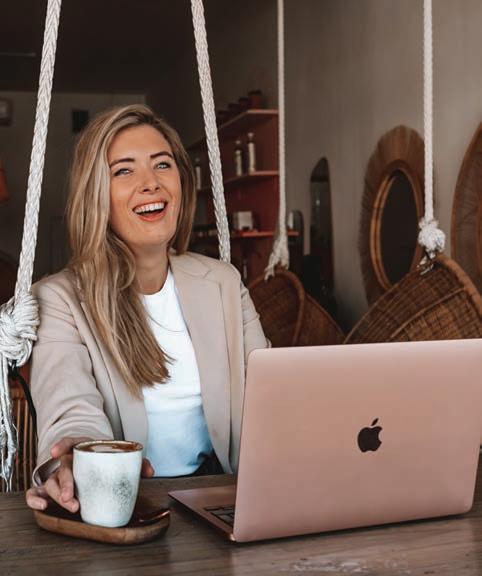
for them to become independent, have a significant impact, and reach financial freedom. We have seen women in the Future Females community grow to earning six figures in one year and securing international funding to create a product from an idea discussed around the dinner table.
It all just comes down to starting. An idea alone can never be successful; you have to put it into the market and then work hand in hand with your potential customers to turn your idea into a product or service that solves a problem. When you have that “product/market fit”, everything starts flowing and your business starts growing without you.
Currently, 42.1 per cent of South African households are headed by women, and approximately 7.5 million South African women are either the sole or the main income earners in their families, reports Stats SA in its 2021 General Household Survey. At the current rate, it will be 132 years until we reach gender parity, the World Economic Forum (WEF) Global Gender Gap Report 2022, reveals. Clearly, more focus is needed if we want to close this gap in our lifetime. And one of the most powerful ways to reach gender parity is by economically empowering women through entrepreneurship.
Participating in entrepreneurship is not only beneficial for women as individuals, but also society. Because so many South African women are the sole income earners for their
First, there are not enough support organisations focused on giving women the emotional and practical support they need to start, scale, and access the resources (such as education, mentorship and funding) required to grow a profitable and sustainable business. Too many organisations deliver “supply-side” interventions – equipping women with skills for jobs that do not exist in the market rather than orienting them to a “career” as an entrepreneur.
Second, there is often not enough consideration given to the emotional, cultural and societal barriers women must overcome to follow an entrepreneurial path. In our 2022 survey of the 100 000 Future Females community members, we asked them about the biggest challenge they faced – three of the top five reasons stated were related to mindset, specifically fear of failure, fear of being seen/ standing out, and motivation/mindset.
For the women who seek support and work to overcome these personal and mental barriers, entrepreneurship holds huge potential
This is the work we do at Future Females –we support women to start and grow profitable and impactful businesses. Since launching five years ago, we have grown to more than 100 000 members with a physical presence in 56 cities, and over 3 000 female business owners have graduated from our programmes.
In 2022, we are launching a community-led learning platform for aspiring female entrepreneurs – connecting women to courses from world-renowned founders who have achieved success multiple times. Discussion forums will enable like-minded women to connect and seek support. In addition, a community fund to which all members will contribute will enable us to grant seed funding.



For the women who seek support and work to overcome these personal and mental barriers, entrepreneurship holds huge potential for them to become independent, have a significant impact, and reach financial freedom.
Future Females co-founder LAUREN DA LL AS shares how entrepreneurship can play a critical role in elevating and supporting women to gain financial freedom
Lauren Dallas
Corporates hold the key to unlocking youth entrepreneurship – but only if we can create a culture of purposeful impact, long-term return and effective collaboration, shares CATHERINE WIJNBERG , CEO of Fetola
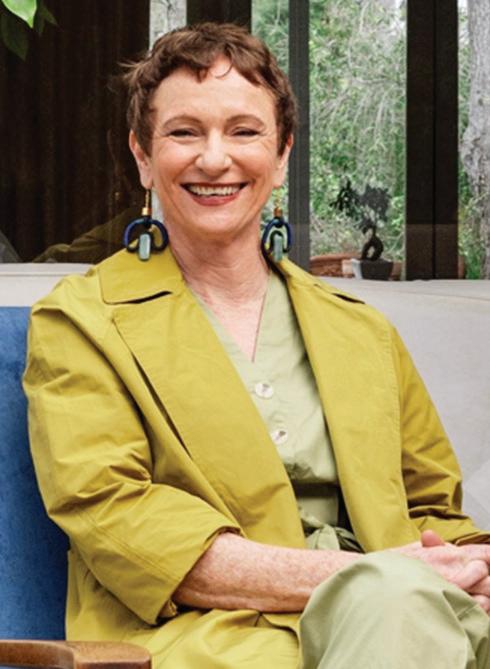
Sub-Saharan Africa’s population is projected to double by 2050, pushing even more youth into poverty as unemployment numbers continue to climb. In South Africa alone, the unemployment rate is alarmingly high for youth, around 66 per cent, according to Stats SA’s most recently released unemployment statistics. To create enough employment for all these youngsters, South Africa would need to create more than 220 000 jobs every day.
Partnering with corporates to encourage youth entrepreneurship could change this trajectory and create meaningful solutions for unemployment.
More South African youths are turning to entrepreneurship as a solution to unemployment and to create economic activity in their communities.
Looking at the SAB Foundation’s Tholoana programme, which focuses on investing in entrepreneurs, 57 per cent of the participants are youths. This aligns with statistics that show that more than half of all South African entrepreneurs are youths – and they’re looking for support.
The recent round of applications for Fetola’s Youth Start-up Accelerator (YSA) Programme attracted more than 127 applications daily with almost 4 000 young entrepreneurs requesting participation in the programme. But despite this growing interest in entrepreneurship, the youth receive the least support: historically, only 15 per cent of business development services are directed toward the youth. This is compounded by the fact that two-thirds of entrepreneurs are based in rural or township areas beyond the reach of traditional small business support structures.

President Cyril Ramaphosa, in his State of the Nation Address, acknowledged the government’s inability to solve the youth unemployment crisis alone and called on the private sector to play an active role.
Some corporates are providing stellar programmes that support young entrepreneurs and create jobs. Other private companies are starting to realise that job creation is also their responsibility, but they don’t have the tools and proven methods to solve it. Furthermore, they might not yet understand the return of investment and the real impact investing in youth entrepreneurship programmes can deliver.
The issue is not a lack of funds to grow young entrepreneurs, but rather the way the corporate sector is investing. Many private-sector efforts to support enterprise and supplier development (ESD) programmes involve a tick-box approach, in which their internal return on investment is placed above the impact on society. This often creates a disconnect between where the funding goes, where it is needed and how it can be purposefully activated.
The current focus on creating short-term impact that can be quantified in annual reports misses a critical opportunity for long-term solutions that result in visible returns and, by encouraging entrepreneurship success, a more profitable economic future. What is good for the country is good for us all.
Partnerships between the private sector and business growth organisations are critical – together, they move beyond short-term wins to create long-term societal impact and inclusive economic growth. The
Of the 40 million working age population in Q1:2022, more than half (51.6 per cent) were youth (15–34 years). The current national absorption rate was recorded at 37.3 per cent and remains lower for young people at 9 per cent among those aged 15–24 years. Q1:2022 saw total employment increasing by 370 000 to 14.9 million compared to the previous quarter, while unemployment declined by 60 000 to 7.9 million, resulting in the official unemployment rate of 34.5 per cent.
Source: Source: Statssa.go.za
type of long-term investment that delivers for generations to come.
These partnerships offer practical and impactful support to young entrepreneurs and also provide resources, knowledge and expertise that corporates can tap into. If corporates are going to invest in youth entrepreneurship programmes and initiatives, they need to do it right – and in a way that will show real impact and tangible return on investment.
To effectively create youth employment and encourage entrepreneurship, we need to see the roll out of corporate-backed programmes in partnership with professional business growth organisations. We need a new culture of investment in youth entrepreneurs and a renewed commitment to collaboration that offers long-term results in reducing youth unemployment and impacts positively on our youth.
According to the World Economic Forum’s 2022 Gender Gap Report, the global gender gap has closed by 68.1 per cent. At the current rate of progress, it will take 132 years to reach full parity. South Africa ranks 20 th out of 146 countries with a score of 78.2 per cent. On the Economic Participation and Opportunity Sub Index, South Africa ranks 92nd with a score of 64.9 per cent just behind its neighbours Mozambique and Lesotho.
“This WEF Index found that since 2016 the proportion of women appointed to leadership roles has increased across many industries globally, including the technology sector, energy, transport and logistics,
A reflection on how women in leadership can empower others
manufacturing, and professional services. I hope more women in leadership can use their agency to advance themselves and those they lead,” says Ruwayda Redfearn, Deloitte Africa’s recently appointed CEO.
Redfearn is inspired by the progress made by women in leadership, but notes that much more must still be done to ensure women receive access to equal opportunities. She adds that Deloitte is just one of many organisations making contributions to ensure women are truly empowered.
When she officially started in her new role at the beginning of June, Redfearn noted, paraphrasing United States presidential candidate Hillary Clinton, “being appointed the CEO of Deloitte Africa was truly a proud moment for me and women in our industry as well as across the firm and corporate South Africa. However, I am looking forward to a time when the appointment of a female CEO is no longer a remarkable occurrence”.
She added that women empowerment requires the involvement of both men and women in leadership positions, all working towards a culture change and a commitment from organisations to promote women.
Redfearn joined Deloitte Africa in 1997 and became partner in 2004. She remarked that at the time of joining Deloitte, there were not too many people who looked like her in leadership positions, let alone “women-of-colour” leaders across the firm. “One of the most valuable lessons
Gender balance;
LGBT+ inclusion;
Mental health;
Persons with disabilities; and
Equity and transformation.
I’ve learned throughout my journey is that representation matters. It’s crucial that when staff look at our leadership, they see people who look like them. This inspires people to believe that they too can reach their aspirations,” Redfearn adds.
Female ownership at Deloitte Africa, as of the end of July 2022, stood at 38 per cent and the firm aims to achieve 40 per cent female ownership by 2024. Furthermore, Deloitte Africa is working towards 51 per cent black ownership by 2024.
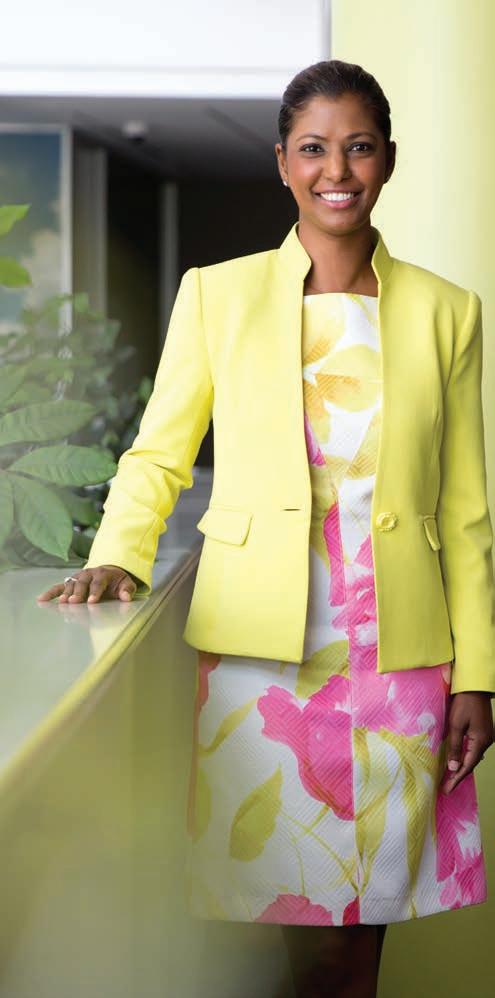
Currently, the Deloitte Africa executive committee has 43 per cent female representation, the highest proportion since Deloitte became an integrated Africa firm in 2015. Redfearn has crafted a powerful executive committee that is a mixture of robust technical as well as soft skills and youthful energy.
Redfearn says she aims to make Deloitte a trusted global partner in Africa using the backing of the Deloitte Global Network to solve some of society’s most pressing problems, including access to healthcare and education, financial inclusion and the eradication of inequality. Redfearn believes that to achieve this vision, Africa requires the best talent and the smartest technology solutions. Driving the firm’s talent proposition is Lungile Mahluza, the chief people officer for Deloitte Africa.
Redfearn has configured her exco with several innovative positions and appointments, some of which are groundbreaking within the Deloitte global network and mostly held by women. Two firsts for the firm are the Africa chief growth officer, a role held by Nina le Riche, and the Africa chief sustainability officer Ashleigh Theophanides, an appointment that considers both the Deloitte sustainability footprint and mirrors a similar move by its clients. Itereleng Kubeka holds the position of managing director for tax and legal.
The female contingent of the Deloitte Africa executive committee is completed by Anne Muraya in the role of CEO for Deloitte East Africa, based in Nairobi, Kenya.
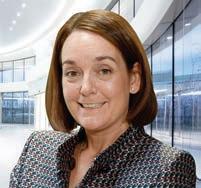
LUNGILE MAHLUZA
Chief People Officer is passionate about attracting, retaining, and ultimately rewarding talent.
considers the impact we have on our people, clients and society.”
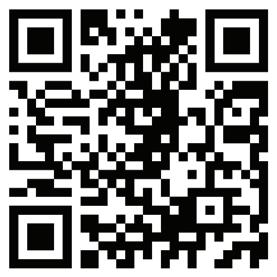
KUBEKA Africa
Tax and Legal MD describes herself as bringing a client perspective to her role and says she is driven by a desire to bring out the best in those who work with her.
Chief Sustainability Officer
“Sustainability is a critical responsibility for all of us, and I’m honoured to be the first Chief Sustainability Officer for our Africa firm – leading a team that
In her previous role as Financial Services Industry Leader, Nina was one of the lead authors of The Deloitte Global Women in Financial Services study.
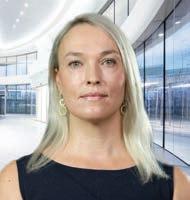
ANNE MURAYA in the role of CEO for Deloitte East Africa.
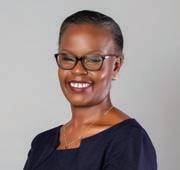
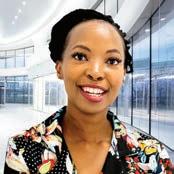
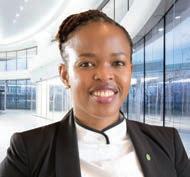
Based in Nairobi, Kenya; is an audit partner with almost 30 years associated with Deloitte. She was previously the executive in charge of Responsible Business and Public Policy.
• Before the onset of COVID-19, 7 in 10 women from South Africa ranked their job satisfaction as “good” or “extremely good” before. Today, just 4 in 10 say the same.
• Nearly 6 in 10 women (57 per cent) in South Africa feel less optimistic about their career prospects today compared to before the pandemic. This is higher than the global average of 51 per cent.
• 52 per cent of women in South Africa report that their relationship with their employer has been negatively impacted because they have changed or reduced their working hours.
• As a result of the change in working hours, women report they feel burned out (48 per cent) and are less likely to be considered for a promotion (25 per cent). Eighteen per cent of South African women also say they have been given less interesting and challenging work since changing their working hours.
• 48 per cent of women who find it difficult to switch off say that if they are not “always on”, their career progression will be adversely impacted. This is slightly lower than the global average of 52 per cent.
The professional services firm has an ALL-IN strategy for women empowerment that measures progress in gender equity and aims “to contribute to an inclusive culture that people want to join, choose to stay in, feel valued and invested in, and where they can be themselves, feel taken care of, and be part of something meaningful”.
Deloitte Africa runs a sponsorship programme through which women can nominate senior employees to be their sponsor. This initiative not only delves deep into the challenges women may face in attaining their career goals within Deloitte, but also within the corporate environment in general. These include, but are not limited

to, a lack of support for career growth, a lack of fair and equitable opportunities, microaggression, and unconscious bias that women still encounter.
Furthermore, the firm has a strong succession planning and High-Performance Leadership Programme (HPLP). Since the inception of the HPLP in 2018, there have been six partner admissions. Four of these have had a 66 per cent female participation. In March this year, the HPLP had a 58 per cent female participation from 33 participants.
“At Deloitte, we spend time and resources to understand the challenges that women face in the workplace. One of the ways we do this is through the annual Women@Work survey, conducted among 5 000 women globally, with 500 in South Africa. One of the findings
illuminated that the recent global pandemic has taken its toll on women, who have had to shoulder a higher proportion of childcare and housework when compared with their working partners. This has resulted in mental health challenges that have seen some considering leaving the workforce altogether, an unwelcome development that would set back women’s advancement in the workplace,” Redfearn says.
“I am looking forward to a time when the appointment of a female CEO is no longer a remarkable occurrence.”
– RUWAYDA REDFEARN
Could fi nancial and educational inclusion be the answer to fostering real, sustainable development in South Africa? The answer, according to several experts from several African countries, is a resounding “yes”.
Earlier this year, Kearney and Business Engage hosted a panellist debate around how and why financial and education inclusion should be encouraged to foster more diversity. The panel concluded with an agreement that inclusion of this nature ticks almost half of all the United Nations’ (UN) Sustainable Development Goals. Another key takeaway from the debate asserted quite strongly that if you don’t intentionally include people, you end up unintentionally excluding them.
The panel, led by Theo Sibiya, partner and managing director Africa at Kearney, and Jo-Ann Pöhl, senior advisor for Kearney, included:
By LISA WITEPSKI• Mojolaoluwa Aderemi-Makinde, head of brand and reputation for Google, sub-Saharan Africa;
• Betty Korir, CEO of Credit Bank Limited;
• Nuru Mugambi of FKIB Sustainable Finance and Responsible Investment;



• Abimbola Agbejule, head: corporate sustainability at Wema Bank;

• Charmaine Houvet, senior director: Africa at Cisco;

• Melvyn Lubega, co-founder at Go1; and


• Hentus Honiball, partner at Kearney, Middle East Africa.

Given the challenges we have lived through over the past few years with a global pandemic, a war in Eastern Europe, unprecedented inflation rates, and a shift in world power, the UN’s 8 th SDG “Promoting inclusive and sustainable economic growth, employment and decent work for all”, may seem like an unobtainable task, but it is something the continent must be committed to achieving if Africa is to reclaim socioeconomic transformation.
“The pursuit of inclusion is a subject we have noticed in every territory in which we work. The question is how we learn from these territories and bring the best solutions to the people of Africa. We need to remove the barriers that exclude people from financial activity,” says Honiball.
“There is some misalignment about bringing new customers into the financial system. We need to align it better so that we can address financial inclusion. You cannot exclude people because they don’t have a permanent salary. Judge them on their behaviour rather than on their assets,” he adds.
Mugambi says she believes the work boils down to “rewiring” banking in Africa.
“There are challenges and there are opportunities. We can learn from other markets, especially the lesson about access to markets. Inclusion is
a means to an end for people. We need to understand what they want to use the money for when we talk about real inclusion. We need to make the most of the COVID Kairos moment we find ourselves in,” Mugambi says.
“Equipping people with the right tools and empowering them helps unlock their potential and ensures that we realise the critical and long-term positive effects of a stronger and more sustainable Africa. We want the right kind of inclusion. We need to see financial and
“Equipping people with the right tools and empowering them helps unlock their potential and ensures that we realise the critical and long-term positive effects of a stronger and more sustainable Africa.”
– JO-ANN PÖHL
Theo SibiyaJo-Ann Pöhl
education inclusion as a contact sport and get involved,” says Pöhl.
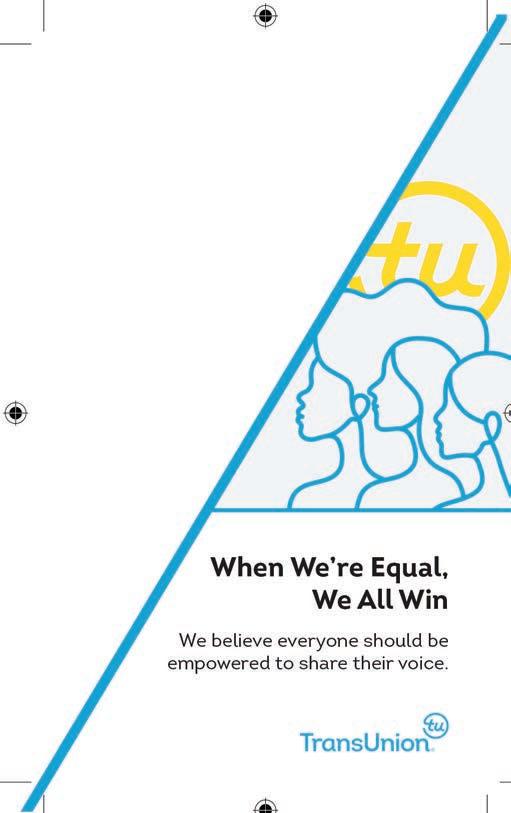
That may sound like a heavy responsibility for members of the financial and education sectors, but the panellists agree that even one initiative can make an enormous impact. Lubega’s Go1 is a case in point. He informs that the company has its roots in a problem he experienced personally: although hungry for personal development, he was unsure of how or where he could access resources to grow his skills base. “This problem is especially keenly felt by small businesses,” he points out. “On the one hand, they understand that upskilling staff is a crucial exercise if they wish to be able to compete against bigger players. On the other, many aren’t able to afford skills development programmes.”
Lubega realised that technology may provide a solution. “The reality is that technology can often be a double-edged sword when it comes to education,” he points out, noting that we saw this effect during the COVID-19 pandemic. Far from acting as a bridge for greater inclusion, online learning amplified disparities between those who had access and those who did not. Cognisant of the need to avoid this pitfall, Lubega envisaged developing a simple interface that offered a holistic ecosystem of learning for individuals and companies alike.
Lubega speaks passionately about how such a tool might be harnessed to help people unlock potential – and he’s extremely proud that, around the world, someone is doing just this every 1.3 seconds by starting a Go1 course. He says that the goal is to eventually reach one billion learners – an objective that, when fulfilled, will have a tremendous knock-on impact.
The power of this impact cannot be underestimated, says Aderemi-Makinde –especially when it comes to addressing issues such as the gender divide. Aderemi-Makinde explains that the company’s initiatives are informed by the insight that “if you don’t intentionally and proactively include, you unintentionally exclude”. She maintains that online learning speaks directly to this philosophy, especially when it comes to empowering women. “The channel works for women because of its mobility. This makes access easier as they try to juggle their responsibilities throughout the day.” A look at the demographics of students who have completed courses offered by Google Digital Academy confirms this – 48 per cent of these students are female. Aderemi-Makinde says that achieving this statistic has been made
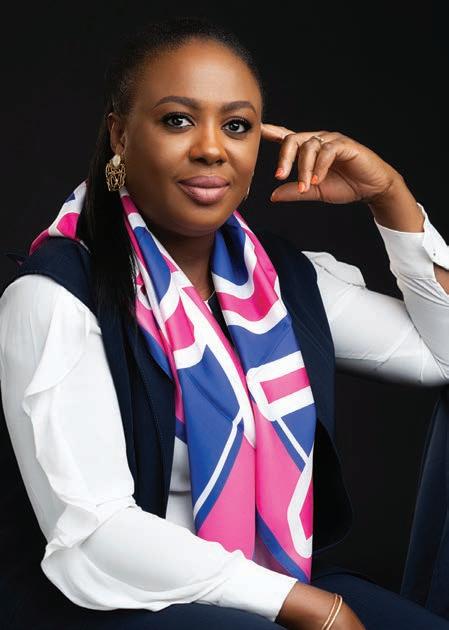
possible through conscious planning and tailoring course material so that it is both relevant and leads to real growth. For example, acknowledging that many women in Africa earn a living through entrepreneurship, the academy focuses on topics such as growing a business and providing skills to become investor-ready.
The question arises, however, of what happens once these entrepreneurs have developed the skills to, say, develop new products or reach new markets? After all, if they are still financially marginalised, how much will they benefit from their efforts? Honiball admits that barriers to financial inclusion remain a very real problem in many parts of Africa and other developing economies. Remove those barriers and the economic reality of populations in these countries looks very different. Honiball reports that Kenya was able to grow its gross domestic product by 30 per cent simply by improving financial inclusion, which is why the World Bank considers this to be one of the key enablers for eradicating poverty.
Addressing the number of unbanked individuals is therefore critical. Honiball concedes that Africa faces a unique challenge here because of inadequate infrastructure – but, he says, the continent also has a reputation for leapfrogging adoption, and if innovative solutions are found, they may be applied swiftly, and to great effect.
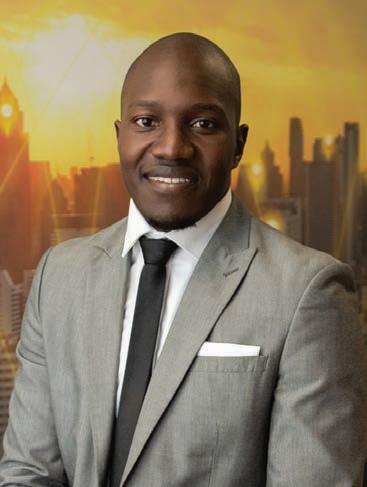
Honiball adds that partnerships are useful in this regard. “The World Bank says that financial inclusion can be bolstered by offering useful, affordable products that meet people’s needs, but this will be interpreted differently by different stakeholders. Take regulators, for example, their chief concern is to mitigate risk, while for a bank, it’s about maintaining a profitable business. Meanwhile, a consumer’s actions are motivated by trust. Viewed from this perspective, it’s clear that there is little alignment between the key actors
“The reality is that technology can often be a double-edged sword when it comes to education.”
– MELVYN L UBEGAMojolaoluwa Aderemi-Makinde Melvyn Lubega
in the financial sector, which points to the fact that we may need to change how we view the factors that make a potential customer high or low risk.”
Honiball suggests shifting the focus from net assets and worth to behaviour, and broadening models so that instead of placing emphasis on credit-based transactions, we take into account the fact that in Africa, the informal sector is almost entirely cash-based, which means that even successful individuals may not be considered bankable. “We need to think of financial inclusion as a matter of practicality rather than profitability,” he says. For a new model to emerge, certain paradigms may have to alter – like the idea that financial inclusion is about banking, when, in fact, transactions can take place anywhere (as digital banking has shown us).

Honiball calls for governments to get on board to drive this change: perhaps banks that promote financial inclusion could be offered tax incentives, for example, or campaigns could be mounted to encourage banks and regulators to cultivate a deeper understanding of their customers, perhaps leveraging data to give clearer insights into the behaviour of the unbanked. At the same time, consumers must be targeted through education campaigns that emphasise the role of trust and assure them that money kept in a bank is secure.


Mugambi shares Honiball’s view that banking models need to evolve. She points to the crisis created by lack of access during the pandemic: “Many African governments struggled to provide a social safety net to citizens during lockdowns because of the informal nature of our economies. They simply weren’t able to identify people who needed help.”
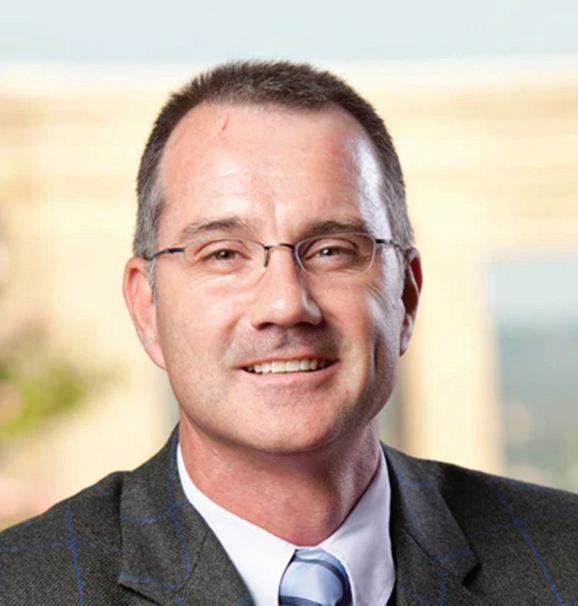
Mugambi’s interest in access extends to sustainable finance and financial resilience. Her concern is that while a large number of Africa’s population is still financially fragile, there are limits to what financial inclusion can achieve. Added threats to financial resilience come in the form of climate change and the fourth industrial revolution – all of which exacerbate situations such as those we experienced during the pandemic. “That’s why the nexus between inclusion, resilience and digitalisation is key,” she notes. Mugambi’s key concern here is what shifts need to take place to ensure that small and medium sized enterprises can take part in
the economy, especially as we move towards net zero, and how we can ensure that policies are aligned so that they make room for inclusion.
“We are undeniably facing challenges, but there are also opportunities. I would like to see us learning from other markets – which, over time, we may come to leapfrog.” Mugambi cites certain Asian markets as good examples, commending policymakers for their purposeful approach to creating digital ecosystems that support the transition from informal to quasi and, finally, formal economies. “Look at the work done by Ali Baba, for example: the company has partnered with the Digital Free Trade Zone in an effort to create greater access to digital markets.”
Ultimately, Mugambi concludes, inclusion is not a means to an end, but a way of creating ecosystems that can help improve quality of life.
The panellists’ discussions reveal their belief that inclusion is a virtuous circle because there can be no inclusion without education. The good news? In Mugambi’s words, “I feel that we are entering a time of Kairos, ironically brought on by COVID: a divinely appointed time of opportunity driven by rapid automisation and digitalisation, which means that despite of the challenges facing us in terms of inclusion, there are also many opportunities”.
“Inclusion is not a means to an end, but a way of creating ecosystems that can help improve quality of life.”
– NURU MUGA M BI
“The pursuit of inclusion is a subject we have noticed in every territory in which we work. The question is how we learn from these territories and bring the best solutions to the people of Africa.”
– HE N TUS HO N IBALL
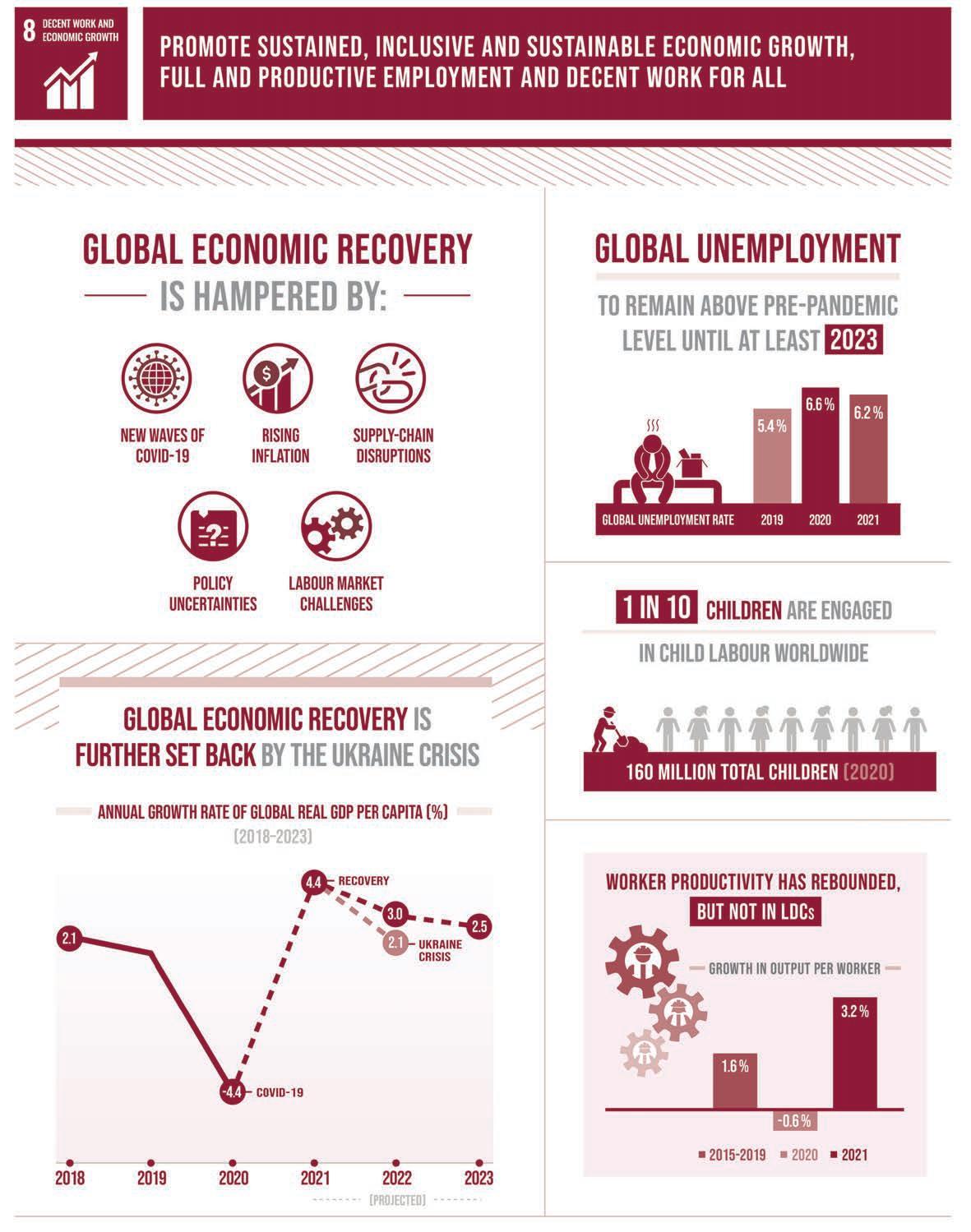
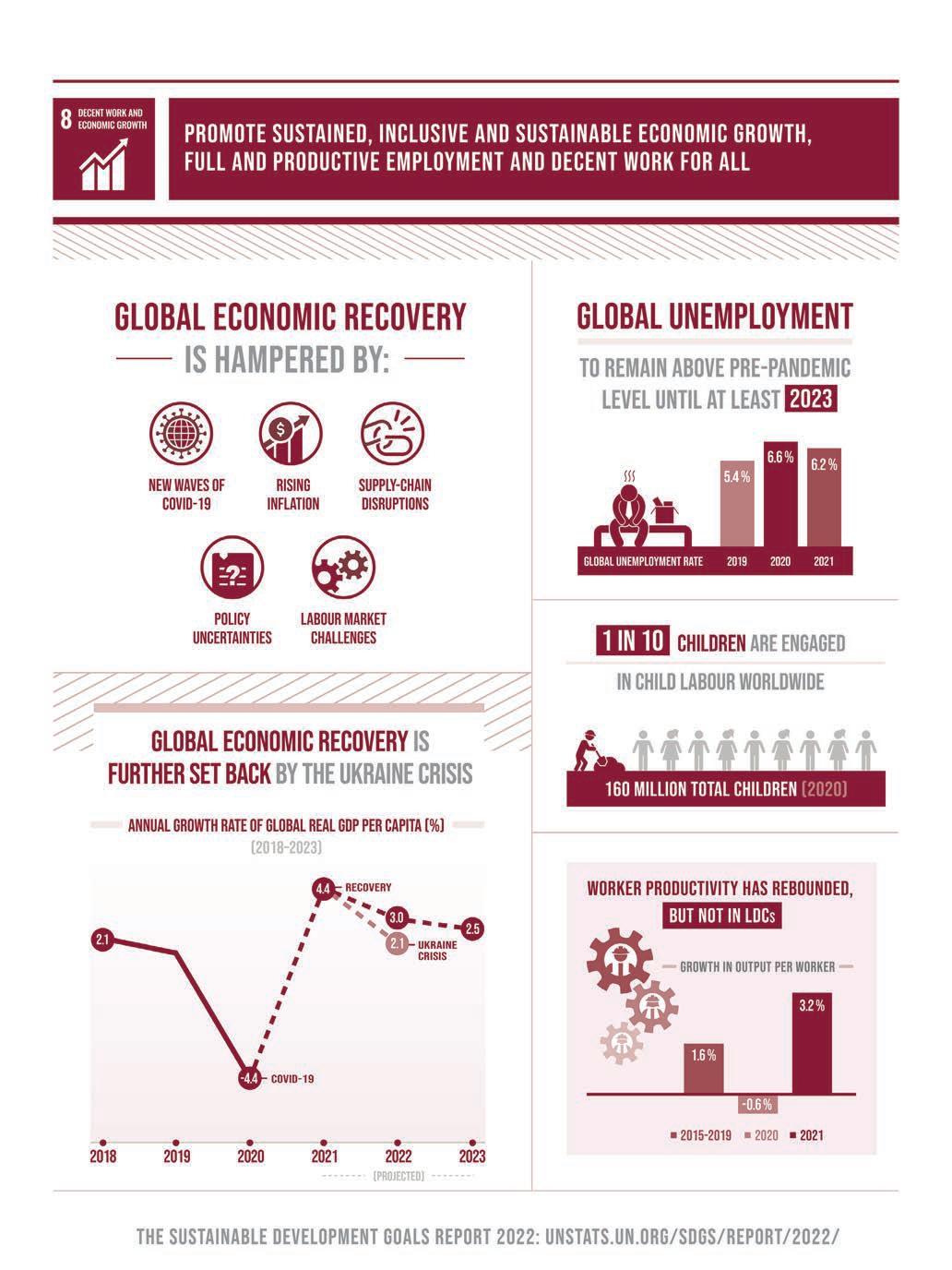
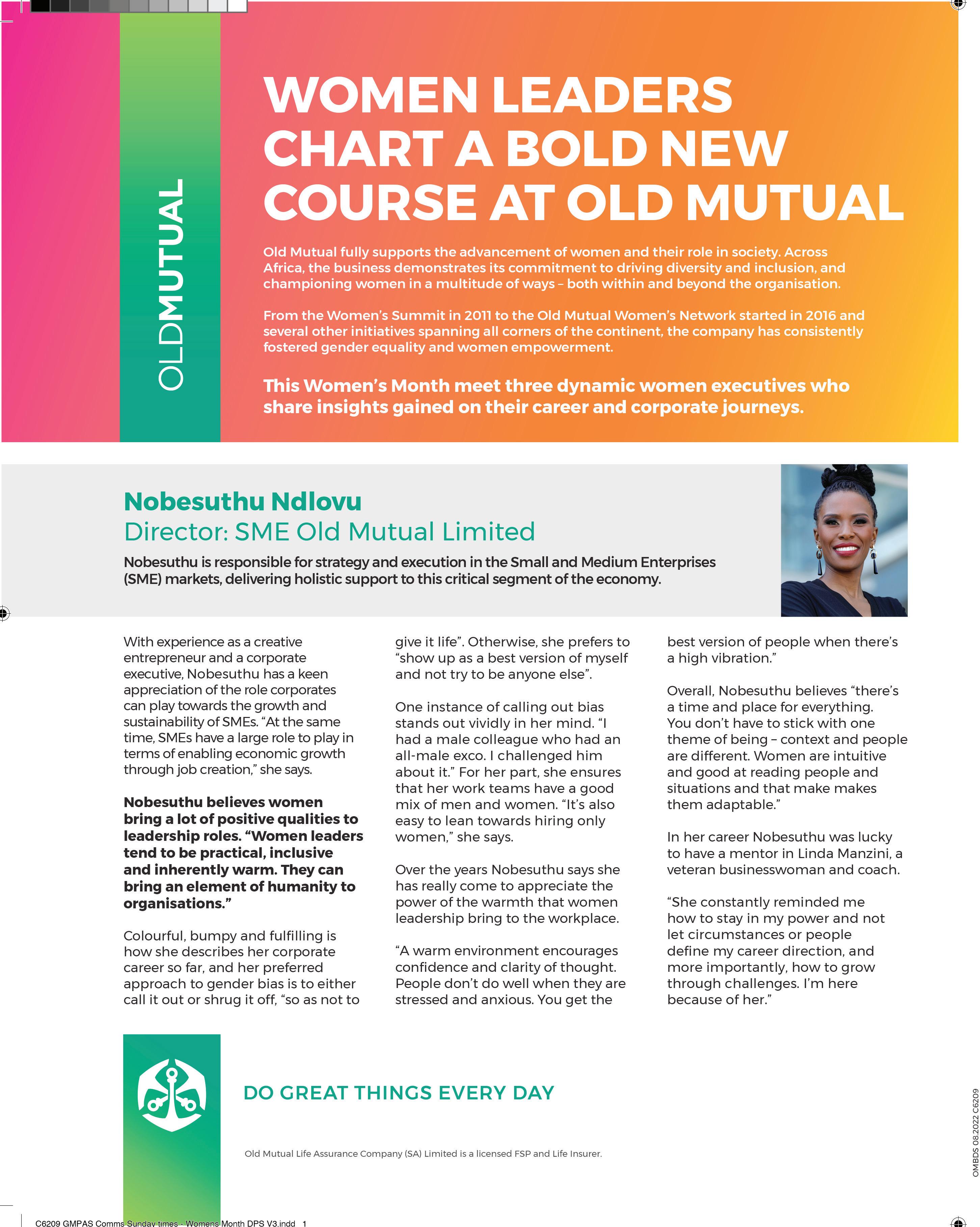
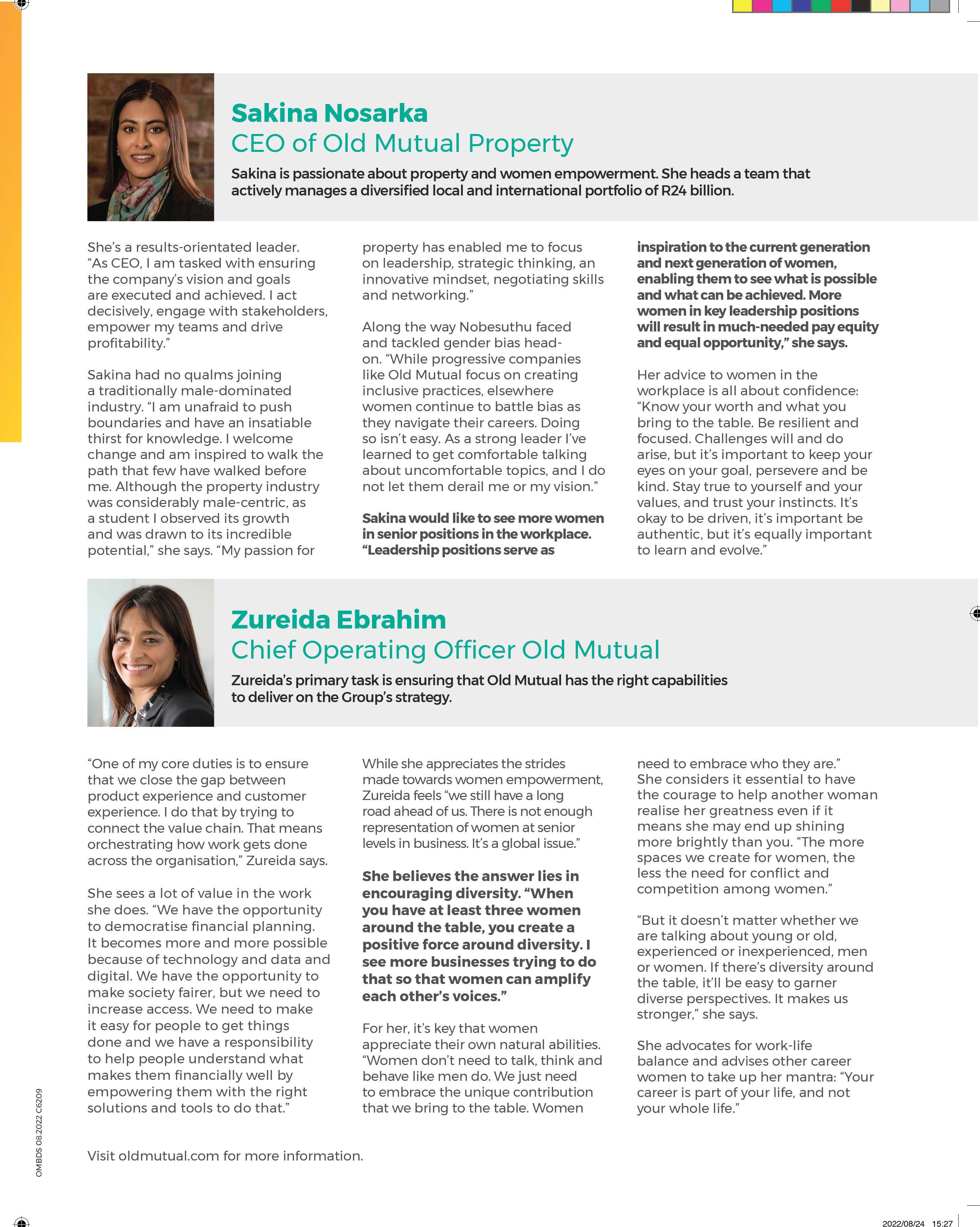
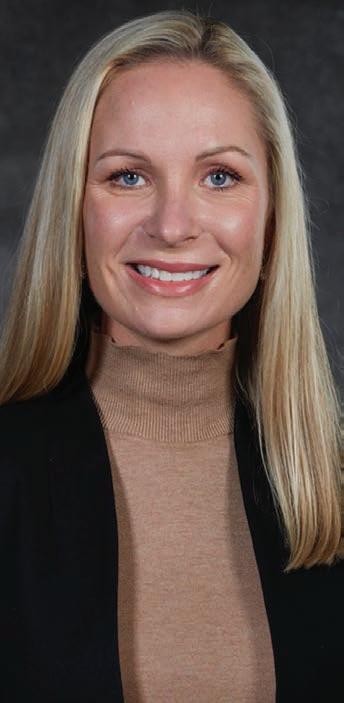
As Standard Bank head of investment banking for the Western Cape, Sasha Cook focuses on providing financing advisory services and access to capital for companies looking to expand. She is also executive, Sustainable Finance, promoting green financing and investments, and single mom of two daughters, aged 7 and 5. As we speak, she has just returned from a business trip to Tunisia and is unpacking the toy camels she bought for them while fielding work calls.
I fell into it, it wasn’t something I chose, but I haven’t looked back. After school in Cape Town and a degree at UCT, I did my CA in London with BDO. While working there, I was seconded to the Royal Bank of Scotland in leverage finance, then asked to stay permanently. I’ve loved every step of the journey. And the sustainable finance aspect: encouraging business growth that doesn’t come at the cost of the environment or the society in which we operate, reducing the carbon footprint of our clients and our bank, and developing intergenerational assets.
I think of them more as forks in the road. Many of my career decisions have been life decisions. Four years into my time with the Royal Bank of Scotland, my dad was diagnosed with terminal cancer. He and my mom were in Beijing at the time, but he wanted to live out the last of his life back in South Africa. I decided I needed to be there with him, so I resigned and joined them in Cape Town. It was invaluable – on a personal and professional level. I joined Standard Bank in its leverage finance and later corporate finance solutions teams, and went on to leadership positions, eventually moving to Joburg. The second big fork was deciding to have children. I realised I needed a better support structure, so I moved back to Cape Town and my mom.
Then when the girls were just nine months and two years old respectively, I moved back to Joburg for a new work role. But later, when I got divorced, I needed to have that support structure again,so I headed to Cape Town.
None of this held me back – it was part of my career/life journey.
Stop being apologetic for the paths you choose – own them and make the most of them. Accept that there are decisions where you have to balance and juggle personal life and career, but you can have both. The key is to ask for support when you need it, at home and work, and not struggle silently. I’ve learned it’s okay to show vulnerability. When you’re honest with bosses and family and specific about the support you need and why, they give it. They know it will help you perform your role more effectively, and it builds confidence and loyalty. Support is vital. I now have a live-in nanny, my mom in the city as a backup, and an au pair a few afternoons a week to collect kids and take them to extramurals. I like to do that when I can and attend school events, but I can’t commit to it daily – and that’s okay.
When I started in investment banking 15 years ago, there were very few women, but that’s changing. Our Standard Bank transformation report notes there is now 58 per cent female representation at junior management level in banking, but as you move up to senior management, that drops to 36 per cent. So despite huge strides, more must be done to retain women in senior roles.
More female role models in the industry –female bosses. I had very few in my career, and those in such leadership positions must share their journeys, stories, challenges and solutions. It’s what’s made our Standard Bank Why She Leads campaign so powerful: at events in Joburg and at a Women’s Day event in Cape Town, women shared stories of their career journeys – the feedback has been phenomenal, so we’ll continue building on this, including smaller mentoring brunches. A team consists of individuals; building trust and support binds you, and you work better together. Everyone benefits.
“When I started in investment banking 15 years ago, there were very few women, but that’s changing.”
– SASHA COOKSasha Cook





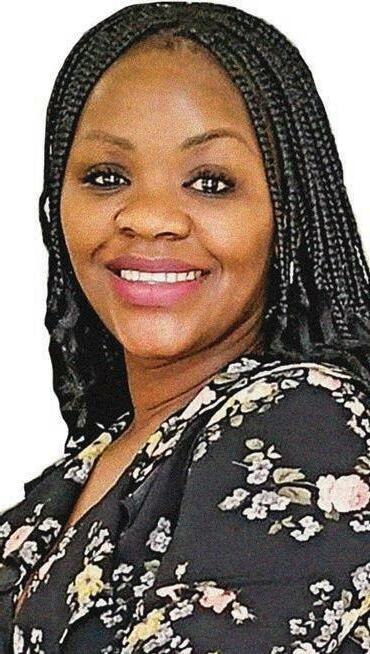
Nomvula Nyandeni is a business development lead, heading up the public sector portfolio at Pay@, one of Southern Africa’s leading payment solutions providers.
Growing up in Ntuzuma township in Durban, she was aware, from an early age, of the needs in this field. She studied towards a bachelor’s degree in marketing at Unisa and later completed her master’s in Business Leadership at Unisa Graduate School of Business Leadership. She worked at Blue Label Telecoms as a senior business development manager before joining Pay@.
Financial inclusion means consumers have access to financial products, such as a basic transactional bank account, credit facilities, insurance products, payment solutions, and savings. Access to financial products enables more and more consumers to participate in daily economic activities – this helps alleviate poverty and bridge the gap between the wealthy and the poor. Most women in Africa have less access to financial systems than their male counterparts, and financial inclusion means these women are empowered to control their financial life. It enables them to invest, borrow and insure their lives and their businesses, better participate in the formal economy, and improve the performance of women-owned businesses. This results in women being able to generate a higher income, access essential services, protect and improve the basic standards of living of their families, children and communities, and contribute to the country’s economic growth.
Government has been a catalyst for financial inclusion, particularly for women. Many initiatives have been put in place to ensure women have access to financial systems. Banks have introduced low-cost transactional accounts targeting mainly the unbanked and underbanked population. Telecommunication companies have also introduced mobile money. Through these platforms, women can access credit, take insurance, receive and send money, and so on.
Women need to reclaim their power in a society where certain gender dynamics hold them back. We need to tackle societal norms that still create barriers to women’s financial inclusion. We need to be part of the change and come up with innovative ideas that will help make a difference in the finance space. Women must let their voices be heard – loud, proud, and bold! Our government strives to create equal opportunities for both men and women; it’s up to us to take advantage of these opportunities. Women also need to make sure government makes information available by creating more platforms where women can engage in opportunities particularly for women. Look at the gaps between what’s there and what’s missing. Create awareness through different platforms, such as social media and radio.
As women, we continue to face a unique set of challenges when progressing to leadership roles. These include scarcity of role models, peer groups and professional networks, and fl exible work-life-family balance, which becomes nonexistent the more senior the position. In my current role, my drive is to increase my leadership impact and create lasting personal and professional change. In the past few years, I’ve been part of informal and formal professional and academic networks that have created progressive spaces for women to address their leadership issues within forums. These forums enable them to discuss and resolve the challenges they encounter in their family, professional, academic and societal roles. It creates a network of today’s senior women leaders, empowering them to take hold of their careers and aim for the top. Once these conversations begin to happen, the results can be exponential. When women or women leaders are empowered and supported within the organisation it creates a top-down environment of psychological safety that will attract more women to the company, creating a positive feedback loop.
“Women need to reclaim their power in a society where certain gender dynamics hold them back. We need to tackle societal norms that still create barriers to women’s financial inclusion.”
– NOMVULA NYANDENINomvula Nyandeni
I wanted to be many things including a psychologist and doctor because I wanted to make a difference. My teacher encouraged me to pursue accounting which was one of my strong subjects. I’m now able to use my qualifications in my current role to make a difference by pioneering and democratizing investments in South Africa, giving access to people who previously could not invest through an easy-to-use investment platform with no minimums at a low cost.
I was working as a salesperson at a clothing shop at the time, it was just before I completed my final year at university. I used that paycheck to buy my first suit for graduation.
Own your financial journey, own the market by empowering yourself to learn about different investment products. Try to save and start somewhere, even with really small amounts. Empower yourself to negotiate the best terms of your debt because that little extra money could allow you more room to invest.
4. Investing is a growing trend among young adults. How would you advise the younger generation to maximise their income to set their futures up?
Never undermine the power of cumulative returns and time in a long-term investment because a R100 today could grow into R25000 over time. If the investment is not well regulated, don’t do it and invest in affordable investment products through a user-friendly platform. We need to invest to make a difference and change the narrative for the next generation. When our children see us doing it, they feel empowered too.
Once we start owning our financial journeys with confidence, we’ll see real progress as individuals and as a nation.
As a spirited young girl my dream was to be a lawyer. I would practice how I would work through evidence and finally getting a breakthrough that wins the case. I used to practice my court room walk and my victory smile. I still remember the emotions I would feel when I helped someone in my pretend cases. Perhaps it was the representation of justice that captivated me.
When I started my first job, I moved provinces, so I no longer lived at home. My mum made vast sacrifices and created miracles out of scarcity in raising us. The most memorable and satisfying was buying my mum a special “I appreciate you” gift with my first paycheck.
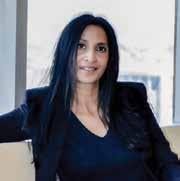


Diversity and representation in leadership is the critical ingredient to fertile corporate soil. At leadership level it informs the quality of our thinking and the effectiveness of our actions. This enables a powerful impact on employees, industry, clients, the economy, the global community, and planet while simultaneously propagating trust. In creating an inclusive society, foundationally the voices at a policy setting, strategic, execution and culture level must be informed by thought leadership embedded in diversity and representation. The magic of this lies in creating authentic and sincere environments where diversity is truly solicited and valued; and representation is effective. I have experienced how instinctively diversity and representation at leadership creates opportunities, strength, and common purpose with posterity.
4. What piece of advice would you give to “first day on the job” Pauline, today?
You don’t need all the answers for tomorrow today. Your kindness, courage, sedulousness and curiosity makes for an exceptional life. Be brave and know your worth.
Invest in education, life experiences and people. Immerse yourself in learnings of all experiences, the wins and fails have invaluable teachings. Do big and small things with equal pride and commitment. There is no substitute for laughter and a healthy mind.
This Women’s Month, we remember that even the successful in business started we’re not alone in our journeys and that somewhere and needed guidance.
FIKILE MBHOKOTA: CHIEF EXECUTIVE OFFICER - SATRIX INVESTMENTS
OF OPERATIONS: COMMERCIAL AND PERSONAL
PAULINE PILLAY:Here we speak to four of Sanlam’s female leads to find out what they would say to first time jobbers or their younger selves to inspire them to live with confidence.
1. What was your dream career as a young girl and why?
I wanted to be in investments or medicine but the businesswoman in me landed me in the finance sector.
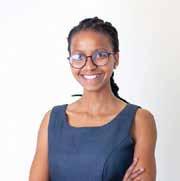
2. What would 13-year-old Ayanda tell your current self, right now?
Never lose sight of your dreams.
3. Was financial education as democratised when you started working in corporate? How did the (lack of) knowledge affect your money management skills?
No, it wasn’t. Product push was more important back then and over the years it started becoming an important element in personal finance. Fortunately, I started working in a bank, within credit and I got to see the impact of credit and how it affected people’s lives. What I saw informed my behavior with money.
4. Many young adults don’t understand the importance of budgeting and saving for their future while they’re young. Name one reason why saving for your future should start as early as possible?
Compound interest! starting early enables a buildup of interest over a longer period. Einstein said “Compound interest is the eighth wonder of the world. He who understands it, earns it; he who doesn’t, pays it.” Secondly I would say starting early builds behaviour and a consciousness about money.
1. What was your dream career as a young girl and why?
I wanted to be many things. A Psychologist, Social Worker or Businesswoman. My answers changed often and at times it depended on who was asking.
My “why” remained constant. My reason was always to be impactful in society and make a difference in people’s lives.
I would tell her she is amazing and she need not be so shy. I don’t know if it would have helped her step outside of herself and put her hand up for things, but she grew up to be bold.
3. ESG is a growing talking point in South Africa. What is your outlook for the industry in the next 5 years?
ESG began as an investment principle used to promote socially responsible investing. However, it has since gained traction that not only investors need to look at ESG but companies have to embrace ESG considerations in their business processes. In the next 5 years I foresee more countries enacting national legislations that will force companies to properly disclose information around their ESG practices.
Everyday South Africans are stakeholders as customers and employees. ESG issues have become matters of public interest as they impact society at large. As conscious consumers, South Africans can hold companies accountable through advocacy on their contribution to issues such as climate change, diversity, and inclusion.

 STRATEGIC BUSINESS DEVELOPMENT - RETAIL CREDIT
ESG AND IMPACT IMPLEMENTATION SPECIALIST
AYANDA NDIMANDE: TEBOHO MAKHABANE:
STRATEGIC BUSINESS DEVELOPMENT - RETAIL CREDIT
ESG AND IMPACT IMPLEMENTATION SPECIALIST
AYANDA NDIMANDE: TEBOHO MAKHABANE:
BIANCA BOTES, foreign exchange expert and director at Citadel Global, offers advice to the next generation of women entering the financial services industry
At 32, I am young to be a director and woman executive at a major treasury and foreign exchange company in South Africa. My journey has not always been easy, but it has taught me some valuable lessons in life and work. I believe that if we, as women, have a positive, resilient, caring approach to our responsibilities, we can achieve success on all levels – at work, at home, and as the keepers of society. This is my story and my message of encouragement to other women.
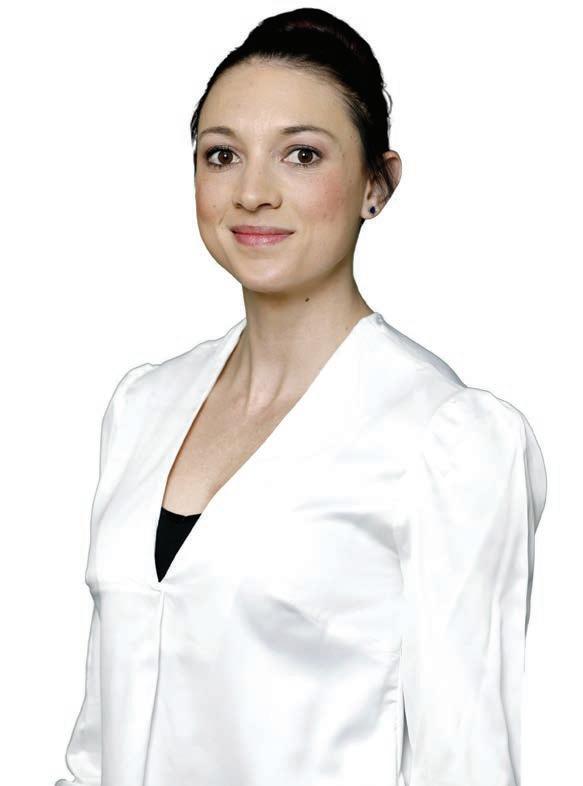
After matriculating in 2008, I was unable to study further immediately due to family circumstances. During the holidays, I worked in an underwear store, earning a monthly salary of R2 000. I knew I had to change my life.
I enrolled to study BCom Economics at UNISA and worked towards my degree while taking on jobs that brought me closer to my career goal. I was a consultant at Capitec Bank and Sanlam, before being exposed to treasury and the forex market at Merchant West. From there, I headed up the treasury department at a small financial services company. This enabled me to pivot into a bigger role at Peregrine FX, which has since rebranded as Citadel Global. I’ve been with the company for six years and became a director in 2020.
Although challenging, it’s been a journey of self-exploration and growth. It taught me to step out and get things done for myself. We often depend on others to open doors and, in an environment like South Africa, those doors are not always easy to come by. We must find them, unlock them, and walk through them ourselves.
1. Earn and own your seat at the table. As a woman in the financial sector anywhere in the world, you are going to be challenged and feel intimidated sometimes. Learn to stand your ground and be assertive.
Get your education, earn your stripes, and make sure you are appointed on merit. Know that you are there for a reason – you earned that position just as much as your male counterpart.
2. Don’t take yourself so seriously. We all want to achieve success, but we sometimes forget to enjoy the process and the lessons we are learning. As you get older, you realise what your experience has taught you and look back at the people you met and the fun you had along the way.
3. Be your authentic self. You won’t ever be able to please everyone, so you might as well stick to being who you are. The right people and the right roles will follow.
4. You can be a mom and a boss. It’s hard to give 100 per cent at work and at home, and I’m still learning, like most working moms as they go along. You can be a mom and have a successful career.
5. Be that risk-taker. Men often succeed because they are taught from young to take risks and leaps to propel themselves forward. There is no reason why women can’t do that, and why we can’t teach our girls to do that.
I learnt something interesting in a TED Talk recently: men will apply for a job if they meet only 60 per cent of the requirements, but women will only apply if they meet 100 per cent of the requirements. As women, we are too hard on ourselves.
I believe the more confident we become in who we are and our capabilities, the more able
If we, as women, have a positive, resilient, caring approach to our responsibilities, we can achieve success on all levels – at work, at home, and as the keepers of society.
we will be to put ourselves out there and take those leaps of faith. Only you can excel and accelerate your career.
Like many other business leaders, I am concerned about the state of the South African economy, society and the corporate brain drain, but I also see the opportunities.
Can you imagine the potential if patriotic South Africans – men and women – commit to making the country work, and if businesses commit to enhancing the environment, society and the social circumstances in their towns and neighbourhoods? As women, I think we have that creative, nurturing, motivating power to contribute to society in many meaningful ways. If we work together, there is absolutely no limit to South Africa’s potential and that of its women.


















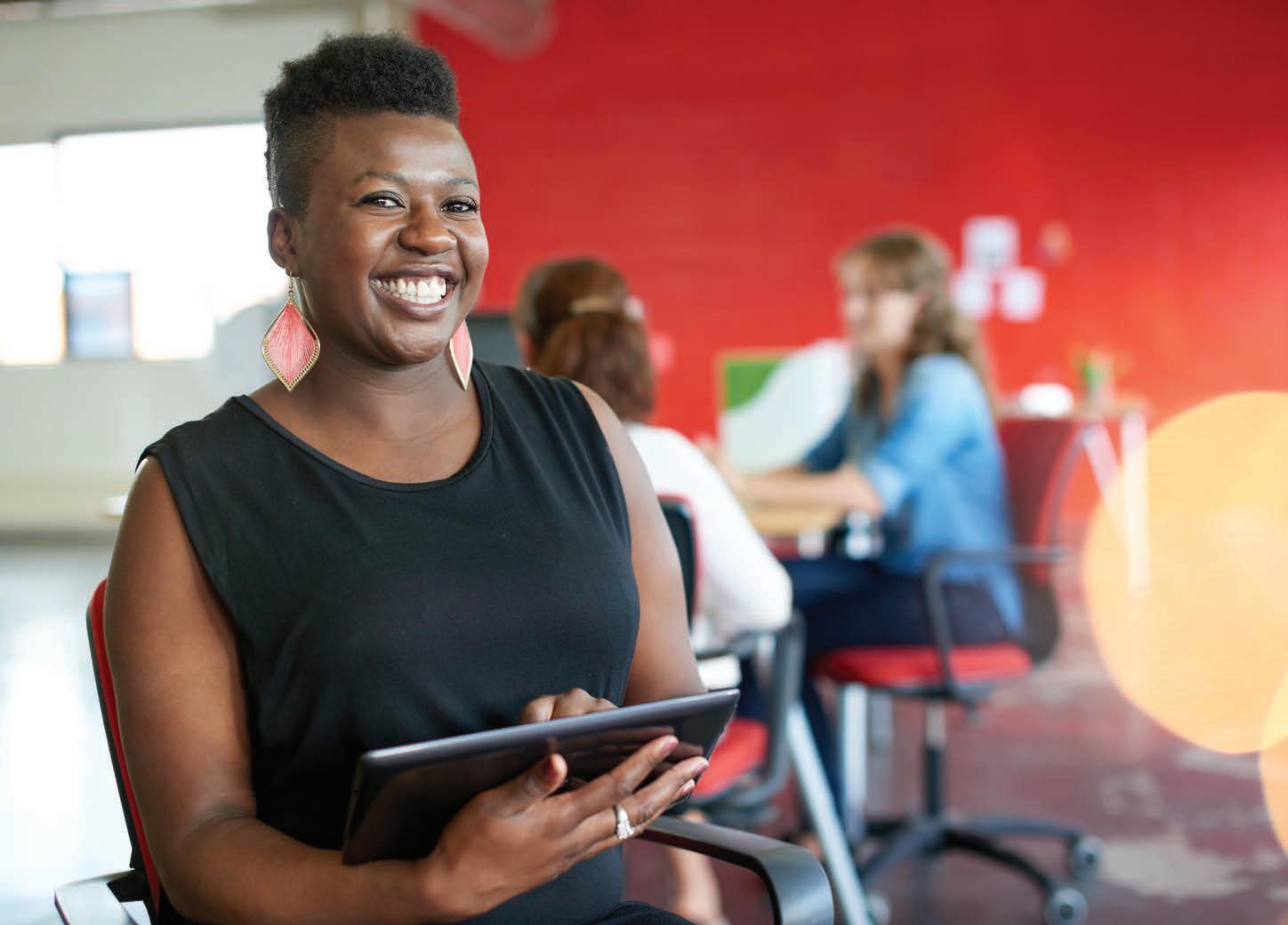
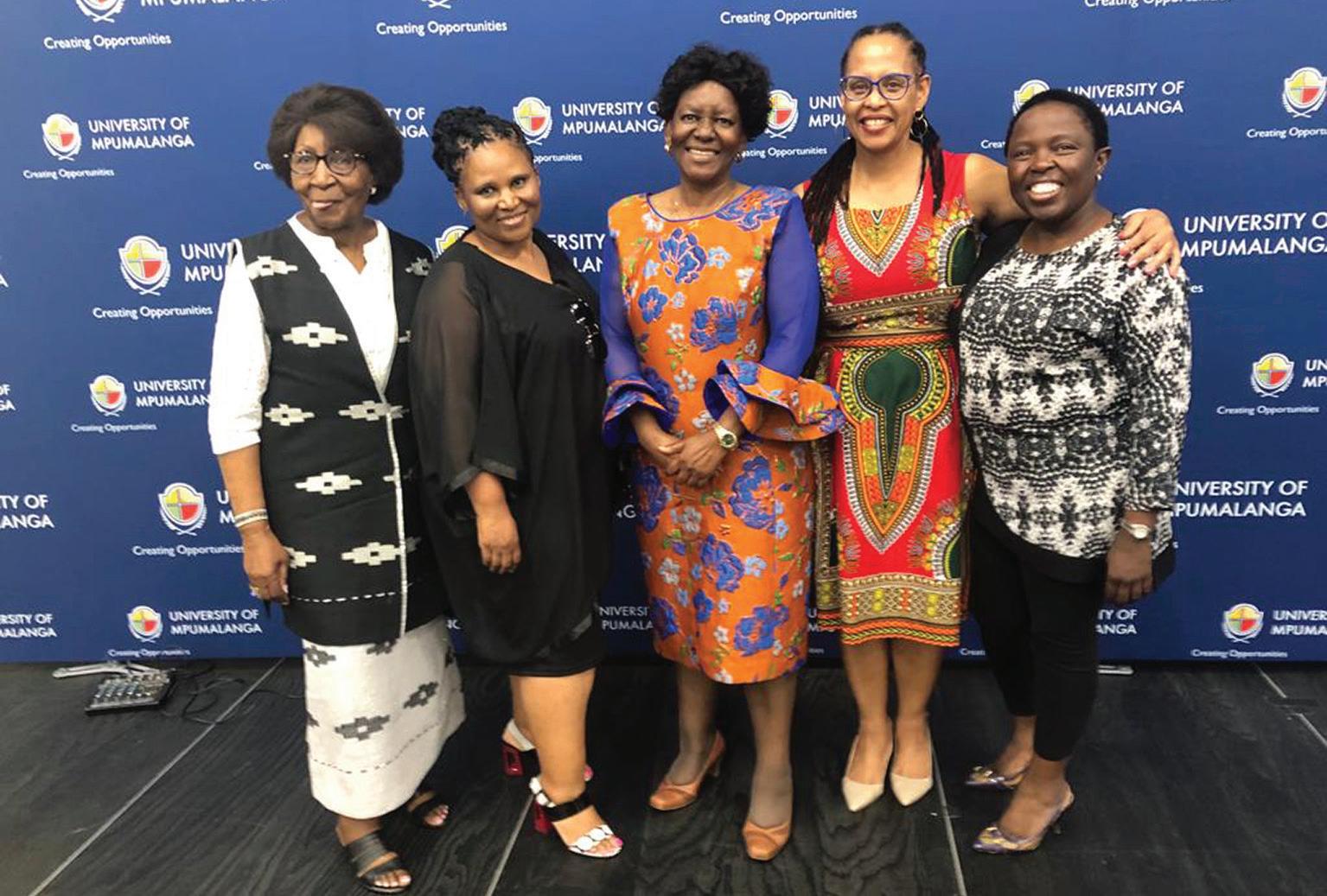
The University of Mpumalanga is focused on ensuring equality and making great strides in realising its gender transformation commitment, writes Professor THOKO M AYEK ISO, vice chancellor of the university
Each year, the month of August places the equality and equity agenda under the spotlight. While the insights from history are crucial to remind us of where we come from, where we are at, and where we are headed, current challenges call for immediate responses and agility. Furthermore, the grit and courage of the women of 1956 inspire us anew and revitalise us to ensure that the baton is not dropped, but picked up and properly passed on generation after generation.
Technology has shrunk the globe while simultaneously expanding knowledge and information. self-reflection therefore becomes
key and listening and staying alert become a vital part of the arsenal of current leaders. This is particularly true for women who lead in the academic arena, which not so long ago would have been described as the domain of men.
The leadership of women and the creation of a conducive ecology for teaching and learning, research and engagement at UMP are not just constructs spoken about, but are also supported by initiatives. UMP has a growing track record of women empowerment for
The leadership of women and the creation of a conducive ecology for teaching and learning, research and engagement at UMP are not just constructs spoken about, but are also supported by initiatives.
academic and support staff. One example is the annual participation of UMP staff in the HERS SA Academy, which focuses on professional development programmes for women employed in the higher education sector. In 2022, Dr Nomvula Twaise (director of student housing), Dr Jorine Ndoro (lecturer in agricultural extension, Dr Mercy Kutu (postdoctoral fellow), and Sandra Seitshiro (senior manager of employee relations) attended the HERSA academy.
Academically promising and deserving students are taken under the wing of leaders and mentored. Growth in any career takes time, and students need reassurance from time to time from those who went before them.
The following examples attest to the real and palpable developments in women’s empowerment.
The deputy chief justice of South Africa, Justice Mandisa Maya, has been serving as chancellor of UMP since 2021. She is the president and founding member of the South African Chapter of the International Association of Women Judges. She was the first female to be appointed president of the Supreme Court of Appeals. This type of success motivates young female staff and students to open new vistas as they see someone like them operating efficiently and confidently at very high levels. They realise that with hard work, they can emulate her great example.
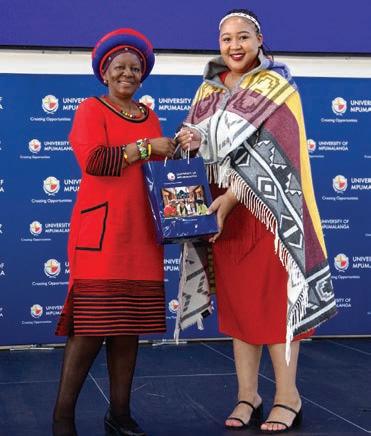
Nqabisa Ravele, a chartered accountant, is deputy chair of the University Council and chairperson of the Nominations Committee and the Governance, Investment and Finance Committee of Council. She plays a critical role in ensuring that the governance of the university is sound. The university has received unqualified audit opinions since 2015.
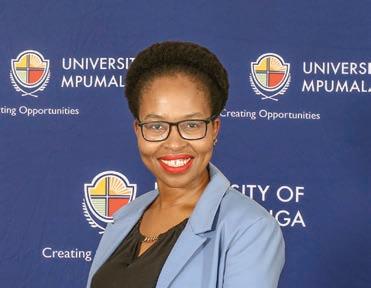
Vice chancellor Prof Thoko Mayekiso is the founding vice chancellor of the University of Mpumalanga and is currently in her second term of office. She has extensive experience in higher education, having occupied the positions of head of school, executive dean, and deputy vice chancellor: research and engagement. Mayekiso also has extensive international experience from studying and working overseas. This experience makes a valuable contribution to the university’s internationalisation drive.
Deputy vice chancellor: teaching and learning Prof Shirley Sommers is an academic and academic leader with an illustrious history. She provides strategic leadership to the academic project and promotes access with success. She has a wealth of international experience acquired from higher education institutions in the United States of America.
Other senior female leaders making an impression at the university include Dr Loshni Govender (executive director of human resources), Prof Hilda Israel (dean of education), and Prof Phindile Lukhele-Olorunju (director for research management). They are accomplished leaders
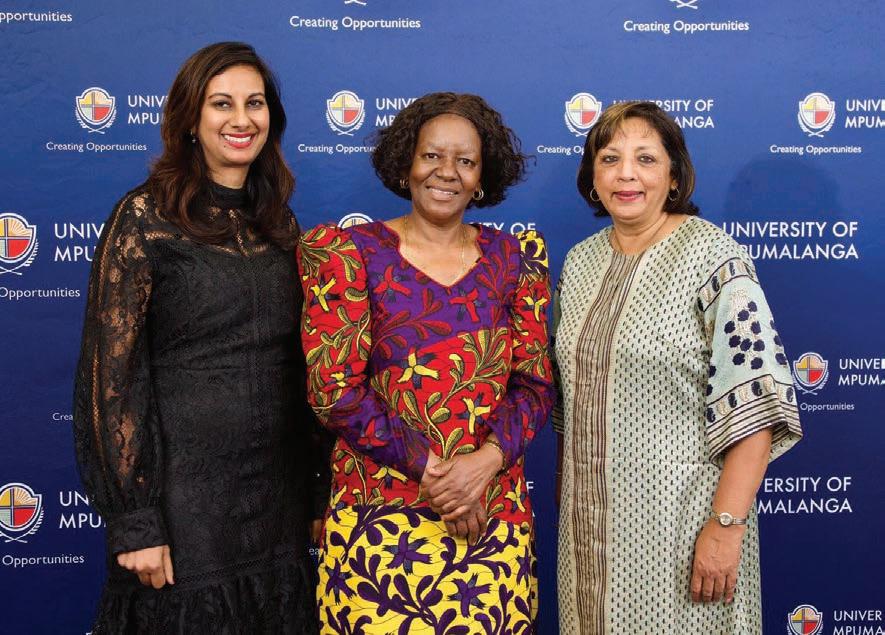
in their fields of expertise and well respected within the higher education sector.
There are many others who can be mentioned at the level of director and head of school. The essence though is highlighting the strong pattern of female leadership at UMP, the results of which have begun to bear fruit as we see more and more female staff and students registering for senior degrees and taking up leadership roles at the levels of their operation.
Looking closely at the events and celebrations at UMP, one is struck by the processes informed by the empowerment of women students and staff, and the support and opportunities provided to them, while keeping an eye on the transformation ball. What is more, expanding horizons have gone beyond local and regional and cover the international spaces as well. For example, one of UMP’s hospitality and tourism management staff members, Mpho Sealetse – a PhD candidate in management sciences – is benefitting from UMP’s collaboration with the BadenWuertternberg Cooperative State University in Loerrach, Germany, where she is a visiting scholar for three months.
One of UMP’s strategies is to optimise its partnerships to advance the institution’s vision, “to be an African university leading in creating opportunities for sustainable development through innovation”.
University staff and students experienced internationalisation at home when Prof Dr Wendy Dawn Fehlner from the Baden-Wuettermberg Cooperative State University in Loerrach, Germany, delivered a seminar entitled “Educating for sustainable tourism: focus on future skills”. Fehler has conducted research in Germany, Zambia, Ghana and Botswana. Her research is therefore relevant to the university’s future programme in tourism. At present, UMP is offering tourism as a major fi eld of study within the BA and BCom degrees.
Everyone vividly remembers how severely affected the tourism industry was during the COVID-19 lockdown phases. Even as the country opened up, travel and tourism were among the last sectors to be reopened. New
skills and innovative ways need to be learned, and insights on how to mitigate risk are required as these are germane in dealing with uncertainties in the future.
The role of mentoring, sometimes even coaching, does not cease for senior management and academic female staff at UMP. Academically promising and deserving students are taken under the wing of leaders and mentored. Growth in any career takes time, and students need reassurance from time to time from those who went before them. There are insights to be learnt from the perspectives of those who have been through the ropes and earned their stripes.
The Academic Talent Stewardship Programme was introduced in 2021 as a “Grow Your Own Timber” programme, targeting top-performing postgraduate students interested in an academic career. This initiative is already showing green shoots.
The University of Mpumulanga (UMP) continues to create opportunities for staff to self-actualise and become the best possible versions of themselves, and also strives to grow as an institution. UMP has experienced massive growth since its establishment. In 2014, UMP registered a total of 169 students in three programmes, and by 2022, 7 100 were registered in 49 programmes. UMP currently has 61 programmes accredited by the Council on Higher Education.
UMP will soon produce its timber in the form of staff who cut their teeth at the university. To witness such students moving, in a short time of six to seven years, from first year to PhD is extremely rewarding for the academic staff. This type of initiative is also highly appreciated by the students, as evidenced in this excerpt from a former SRC president and the first female to occupy such a role at UMP, Vuyelwa Magagula. Magagula and Tabile Sikatele, completed a semester at the FH JOANNEUM University of Applied Sciences in Graz, Austria as study-abroad students in health management in tourism.
Magagula had this to say: “Despite constituting the majority of the global population, millions of women and girls are still marginalised and regulated to a lower status in their communities, denying them the opportunity to reach their full potential and maximise their contributions to society. UMP has stepped outside this skewed narrative by offering study-abroad opportunities to young women such as Tabile and myself. We can see how studying abroad shaped our lives at the time and continues to do so. It provided us with a fresh perspective on the world, inspired us to pursue new interests, and taught us more about ourselves than we could have imagined.
“Above all, the exchange programme raised the bar for our overall university experience. It took us out of our comfort zone and put us in a situation where we could learn in a different way. We had the opportunity to apply the values we learned at UMP by travelling around the world and experiencing different cultures.
Through such values, we won the 2022 FH Erasmus International Fair as a women’s only team. As young women, this broadened our knowledge base and taught us to think and
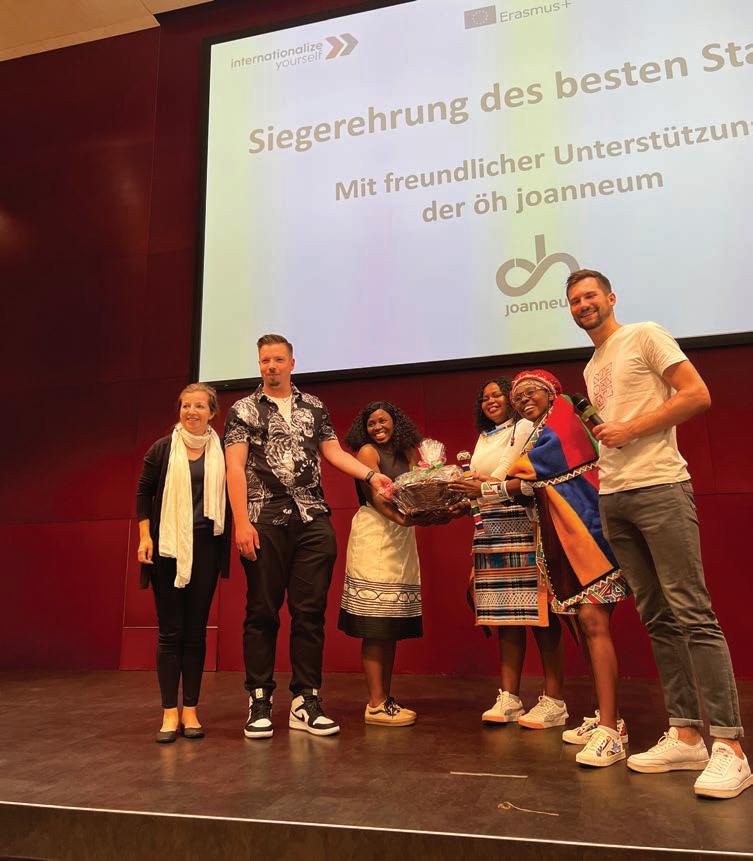
UMP has established a Vice Chancellor Women Empowerment Group for female students who aspire to become student leaders. These female students are mentored to become future leaders and are provided with the requisite knowledge and skills.
Over the years, UMP women have been celebrating women’s month every August, using the celebrations as an opportunity to reflect on the gains made, as well as the challenges that still lie ahead. Such celebrations provide a safe space for women to receive support and guidance from other women. They are informed that the mindset of determination is key and not to allow distraction to take them off the path they have set out upon – the path leading to the discovery of the best in themselves. Determination is about putting one’s heart, mind and soul into what one wants to achieve and pursuing those goals relentlessly. It is about rising above all odds.
In 2022, female staff at the Mbombela Campus and Siyabuswa Campus celebrated women’s month under the theme, “Discover the Best in You”, on 26 and 28 August respectively. They were addressed jointly by Her Majesty Queen Sekhothali Mabhena of the amaNdebele Kingdom and vice chancellor Prof Thoko Mayekiso – the women were advised to seek relentlessly for excellence within themselves. In doing so, they will pioneer a better future for female staff and students who will follow in their footsteps. Donning cultural regalia instilled the women with a sense of pride for the various cultures in the region and beyond, and reminded students that they should never lose their identity. If you don’t know who you are and where you come from, the road ahead will always be hazy.
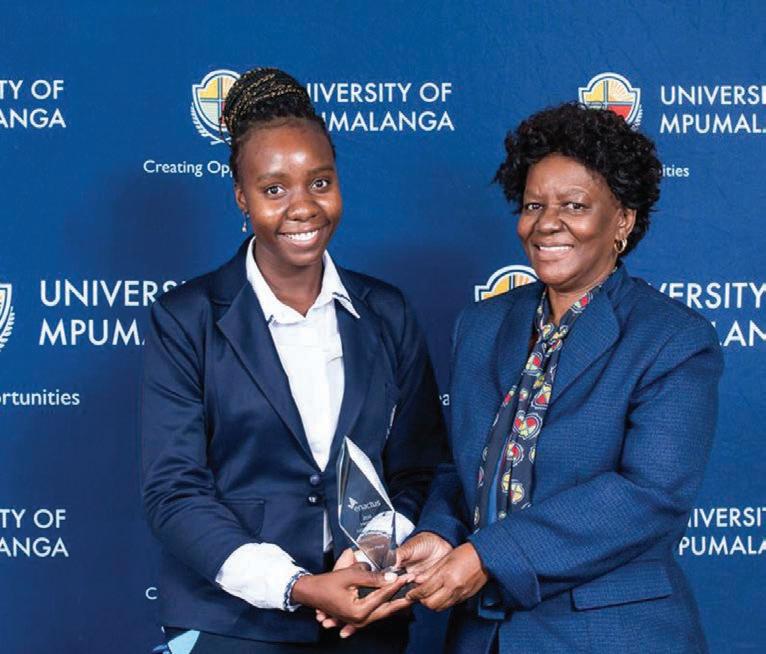
live differently. It is critical to have a solid understanding of different cultures today. We thank UMP for believing in us as young women who will prepare our generation to be a more globally-minded society.”
Gleaning from the words of the student herself, one sees how impactful the programme has been for these two students.
UMP is part of a consortium of nine universities in Asia (Malaysia, Indonesia, Laos, Vietnam, and the Phillippines) focusing on university incubators. Vice chancellor Mayekiso attended the Entrepreneurship Summit at the Asia Pacifi c University of Science and Technology in Kuala Lumpur from 3 to 7 August 2022, accompanied by female students Jesse Steyn, Nomdeni Vilane, and Ngthabsend Mpanza. The three students participated in a boot camp, competing against 18 teams from the 9 universities in the consortium and won the Best Pitch Award.

Given that job-seeking is dwindling, and job creation is the path to follow, UMP spares no effort in exposing students to the latest and most effective entrepreneurial insights.
Sometimes learning and deepening skills and competencies can take place in informal settings. The indigenous knowledge systems have taught us that there are other ways of knowing outside the four walls. Hybrid learning – with the advent of Zoom and Microsoft Teams – has demonstrated the need to think outside the box and leverage technology to further advance junior staff and their academic and career mentors. UMP has established a Vice Chancellor Women Empowerment Group for female students who aspire to become student leaders. These female students are mentored to become future leaders and are provided with the requisite knowledge and skills.
The quest to empower up-and-coming staff and female students remains top of mind and is something the university will pursue relentlessly.
➔
For
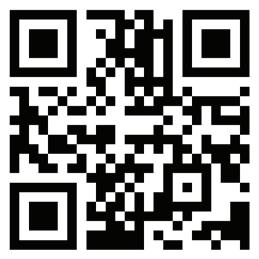

Women in STEM careers are under-represented and face barriers in the industry. TIISETSO TLELIMA talks to industry professionals about the importance of advancing women in the sector


Science, technology, engineering, and mathematics (STEM) careers are crucial in preparing for the fourth industrial revolution and the innovation and technological transformation that is needed, yet women remain under-represented in this fi eld. While women make up more than half of the world’s population, UNESCO’s 2019 Women in Science shows that less than 30 per cent of the world’s researchers are women. And, in South Africa, according to Skills Portal, only 13 per cent of tertiary institution graduates with qualifi cations in STEM are women.
A 2021 article, “Let’s Accelerate the Women in STEM Agenda Today”, authored by the World Bank’s sub-Saharan countries director, Marie Francoise Marie-Nelly, traces the problem in the representation of women in STEM back to high school. Marie-Nelly states that while girls’ secondary education enrolment is higher than boys in sub-Saharan countries, such as Botswana, Eswatini, Namibia, and South Africa, many drop out before they complete secondary education. She also notes that those who stay lack the required profi ciencies in numeracy, science and digital skills needed to enrol or excel in STEM-related programmes in tertiary. In South Africa, only 50.3 per cent of girls, compared to 58.6 per cent of boys, achieved 30 per cent or higher in mathematics in the National Senior Certifi cate Examination.




Conversely, nuclear scientist Senamile Masango argues that the hurdle to women’s advancement in STEM-related fi elds begins at a young age and is rooted in gender norms, biases and stereotypes. This limits their options to explore opportunities in the sector as they transition from adolescence to adulthood. “Young girls are discouraged from
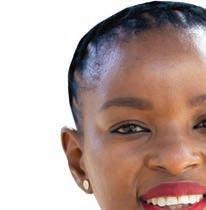
studying science because society thinks tough things are for men,” explains Masango. She explains that socialisation coupled with the lack of representation of women scientists in literature and popular culture makes young girls think that it’s not a fi eld for which they’re suited. “It’s mainly things we watch, hear and see that influence us. Our kids watch TV 24/7 and don’t see women depicted as scientists.”
Masango is writing a children’s book based on her life and the challenges she’s experienced on her journey as a scientist. She believes that one of the ways to combat entrenched perceptions and encourage more women to pursue STEM careers is for more women to be portrayed in literature, TV series and movies. And, she adds, women scientists must become more visible. “For example, only a few of us do interviews, so people think there are no female scientists, but we are there.”
Women in STEM still face barriers to education and finding jobs. Masango says that sometimes women who register for STEM careers either don’t complete their qualifi cations or modify them because they have to choose between raising a family and building a career. Dr Tovhowani Ramulongo, a microbiologist and senior researcher at the CSIR, agrees that women find it diffi cult to juggle their work, academic life and family responsibilities. “To be more recognised in the STEM sector, you have to have a master’s and a PhD, meaning you have to study further. It becomes diffi cult for women: finding a balance between family and academic life is quite challenging.”
Fortunately, Dr Ramulongo, who has two children, had plenty of support from the CSIR to further her studies; not always
the case for women in STEM. “So far, even though the environment is male-dominated, I don’t feel as though I have been discriminated against because I’m a female. As opportunities arise, I feel as though I am the same chance.” However, she admits there have been times when she’s had to overlook opportunities to prioritise her family. “I sometimes think if I climb the career ladder, I’m going to be busy and spread myself too thin, and then I won’t have that proper balance.”
Often women in STEM encounter a myriad of problems in the workplace, such as diffi culties getting promoted, finding training opportunities, or having to deal with vicious boardroom politics if they move up the ladder. “Many women give up as a result of mental issues; they choose themselves. You’ll hear some say they don’t want that position because of the politics.”

“Socialisation coupled with the lack of representation of women scientists in literature and popular culture makes young girls think that it’s not a field for which they’re suited.” – SENAMILE MASANGOSenamile Masango



Ironically, many core STEM disciplines used to be dominated by women. Before computers were invented, women performed many of the calculations to measure the size of the universe and determine rocket trajectories. Women were also instrumental in the history of computing and programmed the ENIAC computer in the 1940s. The first computer programmer was a female English mathematician, Ada Lovelace, who wrote an algorithm for a computing machine in the mid-1800s.
Source: The Biggest Barriers for Women in STEM | BestColleges
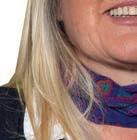






Although the government has a mandate to hire more women in the public sector, these women are rarely given support. “They just throw you into the sea, and you have to swim with the sharks,” says Masango. She believes that government needs to do more to develop and invest in women in STEM and ensure that there are structures and systems of support.
Sometimes STEM graduates, and this is not just limited to women, can’t find jobs and end up teaching for a living. “We don’t manufacture everything ourselves in South Africa; if we did it would solve unemployment issues,” explains Masango.
Louise Robinson, owner of IT marketing company CG Consulting, brings a different perspective to the women in STEM debate, stating that not everyone wants to be an architect or engineer. “Some girls want to be mothers and wives and then have a career, and then the balancing act just doesn’t work,” says Robinson. Drawing on her experience from running Microsoft’s Women in IT campaign, she found that there’s an assumption that everyone wants to be a rocket scientist, but in reality, some of the girls didn’t want to. Robinson states that the lack of interest may be because maths is diffi cult. “You have to be good at maths, and less than 10 per cent of the world is good at maths,” she says. Robinson thinks that it’s easier for children whose parents are already doctors and architects to enter that fi eld, whereas children from poorer backgrounds may have a diffi cult time convincing their parents to allow them to study STEM careers because they take too long to complete and the children often have to help pay the rent and bills.
Robinson adds that many women are entering the IT

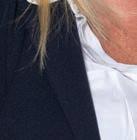

space as graphic designers, coders, and app developers. In her view, the IT world is huge and needs to be broadened to include marketing and sales, and web design. “There are so many jobs in tech and women are doing them, everyone needs a tech background to be able to create an Instagram ad.”
To improve and accelerate women’s participation in STEM careers, Masango proposes that the government enforces a 50 per cent quota in the industry and perhaps even has a policy that allows women to work from home so that they don’t have to choose between their families and having a career.
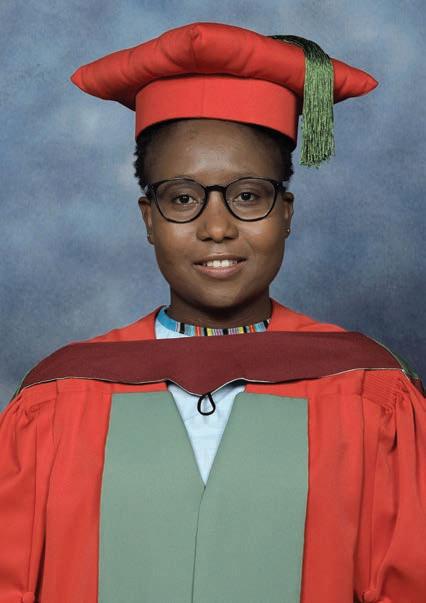

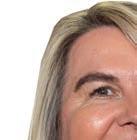
“Giving women the same chances as men to pursue and succeed in STEM careers contributes to the reduction of the gender pay gap, increases the financial security of women, ensures a talented and diverse STEM workforce, and eliminates biases in these fi elds and the goods and services they produce,” says Masango.
Dr Ramulongo, on the other hand, believes that women need to be encouraged to be more confi dent and take up space instead of allowing men to take the lead. “Women make things happen. You can give us pieces of things and we’ll make something out of it. So having us women in the workplace makes the environment more functional.”
“To be more recognised in the STEM sector, you have to have a master’s and a PhD, meaning you have to study further. It becomes difficult for women: finding a balance between family and academic life is quite challenging.”
– DR TOVHOWANI


oca-Cola Beverages South Africa (CCBSA) has increased black female representation in leadership roles and senior management from 89 per cent representation in 2020 to 94 per cent representation in 2021. Similarly, CCBSA has retained its level 1 BroadBased Black Economic Empowerment (B-BBEE) status. The company attributes this achievement to increased strategic investments with black-owned suppliers, from 50 per cent to just over 61 per cent of its total adjusted procurement spend, of which 34 per cent is with black females.
The Women at CCBSA Network was launched in 2018 with the mandate to connect women to each other and also have a shared resource of tools, case studies and practical guides to help women achieve their full potential in the workplace, in the home and in the broader community.
CCBSA women leaders share their experiences.

Organised, dedicated and committed, Ngcobo believes in building a strong foundation from which anything is possible.


Growing up in KwaZulu-Natal, Ngcobo always thought she would become a medical doctor. Instead, the field of marketing and strategy piqued her curiosity, and she has gone on to have an incredible 27-year corporate career with companies such as Sasol, Telkom, SAB, Philip Morris International, and Tiger Brands, before joining CCBSA in 2020 as Director of Public Affairs, Communication and Sustainability.
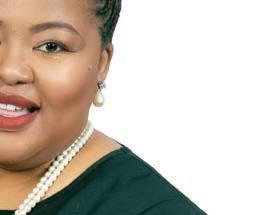
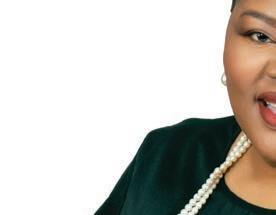
She believes in setting goals and being focused, and says going to boarding school at the age of 12 was a defining moment in her life.
“I learned at an early age about the importance of having a plan, having a goal, pursuing your dreams, and allowing nothing to distract you. No matter how difficult things got, no matter how much I missed my family, I focused on my goal of getting good grades, excelling in school, passing, and becoming a doctor.
“I like getting the foundations right. I believe that if you get the basics right, the options are endless,” says Ngcobo. “In my view, it’s better to control your destiny than to respond to things and always be reactive.”
With an MBA, a BCom and numerous qualifi cations to her name, some friends refer to Ngcobo as a “serial academic”. She blames this on an insatiable curiosity.

“I have a very curious mind. I constantly seek answers, and I fi nd learning to be extremely stimulating mentally. The idea of unpacking a topic and bringing it back together or solving a problem fascinates me.”
Ngcobo joined CCBSA on 1 March 2020, and on 27 March, the country went into COVID-19 lockdown. “I had to learn a lot and very quickly so I could be effective in my job. This time allowed me to appreciate my resilience and my own agility. Being new in the business, and in a very senior role, in the middle of COVID-19 and the lockdown felt like being thrown in the deep end,” she says.
Ngcobo is driven by finding real impact solutions, especially when it comes to community problems that align with her personal values. “It’s about that sweet spot where as a corporate we can address challenges and help communities. Sometimes we are in a position to deliver and provide a solution. As businesses, we cannot win if our communities are not successful and thriving.”
challenges and help communities. and provide a solution. As businesses,
She says the work CCBSA does in addressing water supply issues, given that South Africa is a water-stressed country, is a source of pride for her. The building of boreholes to support communities is a good example of this. CCBSA boreholes currently support over 10 000 families, and more are being built to reach even more communities.
support
Addressing plastic pollution is another big project that CCBSA works on in partnership with organisations such as the African Reclaimers Organisations (ARO).
Three women leaders at Africa’s largest soft-drink bottler, Coca-Cola Beverages South Africa, reflect on what it means to experience South Africa’s path to gender equality and empowering the future leaders of tomorrowNozicelo Ngcobo
“We are in a position to deliver and provide a solution. As businesses, we cannot win if our communities are not successful and thriving.”
Masemola joined CCBSA in April 2020 from Absa Corporate and Investment Bank (CIB) Africa, where she held various roles in the past nine years as a strategy consultant and chief of staff within the corporate banking business. She was a key fi gure in the build-out of the corporate banking business across Africa.
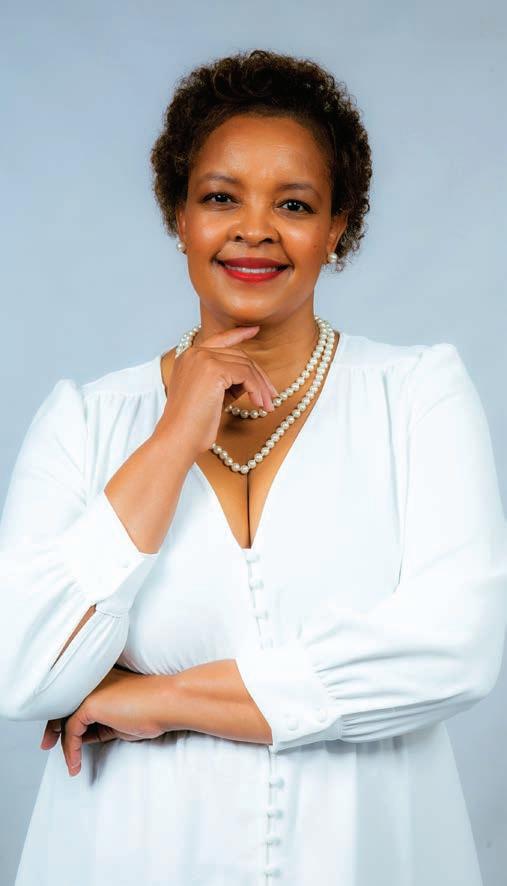
Masemola holds a PhD in Medical Biochemistry from the University of Cape Town and has completed post-doctoral research in South Africa and the USA.
Masemola believes that everyone has a role to play in creating positive change and building a more sustainable future. This

includes a strong emphasis on economic inclusion, driven by procurement and enterprise development, to develop women and youth-owned businesses. According to Masemola, the South African landscape is changing rapidly.
Masemola says that some of the shifts in the business in the early days of the pandemic ensured that she could provide clarity for her team and offer assurance about organisation-wide plans to manage the business during these uncertain times.
“With that clarity, it was also important to empower my team to focus on meeting their objectives,” she says. “I always maintain that the role of a leader is to transmit clarity to teams, empower the team by removing execution roadblocks, and unlock organisational networks to help emerging leaders build relationships with their peers and senior executives.”
Masemola leads a team of specialist consultants who work from different locations and, in the past, relied on travel for physical interactions when necessary. While the team is accustomed to working in an offi ce environment, the nature of their work means they could successfully work remotely and still deliver exceptional performance.
“With extended lockdowns, they very swiftly adapted to working from home and established routines to ensure they remain connected and proactively sought to build relationships with other people in the business,” she says. “The good news is that my team led a piece of work to understand how megatrends will shape the operating environment. One of those trends is the New Ways of Working project, and the COVID-19 pandemic offers an opportunity to fast-track the migration of work from a physical offi ce to the virtual offi ce,” she says.
Her team partnered with the HR department to shape the New Ways of Work for CCBSA, premised on the idea that remote working will be a long-term feature of work, especially considering the multigenerational diversity of workplaces. “To retain and attract Millennials and Gen Zers, it is important that organisations embrace fl exible work arrangements,” she adds.
“That’s exactly the recommendation the team made to the leadership team. I am confi dent that we have embraced the new ways of work across all generations and have created a work environment that is agile and embraces change, but most importantly, considers the views of all employees and acts on those.”


Britton and her team have been actively involved in driving female leadership, including a wellness agenda, across CCBSA and organising subject matter experts to facilitate regular discussions around topics pertinent to women in the workplace.
Britton says: “We have defined leadership development programmes in place and provide coaching for all employees, including women. I manage these as part of my portfolio. Within our talent review discussions, we also take a deliberate approach around forwarding the female agenda.”
She believes that women empowerment starts at the top with leadership commitment to driving issues that are important to women.
“Women empowerment is a business priority at the highest levels. Our leadership is committed towards fair representation in the workplace.”
“Our culture drives women empowerment at the highest levels, and we ensure that this agenda is known, felt and lived by all employees and stakeholders within CCBSA.”
“I am confident that we have embraced the new ways of working across all generations and have created a work environment that is agile and embraces change.” – AGATHA MASEMOLA
“Our culture drives women empowerment at the highest levels, and we ensure that this agenda is known, felt and lived by all employees and stakeholders within CCBSA.”
– LEOLA BRITTONAgatha Masemola Leola Britton


 Nelson Mandela
Nelson Mandela



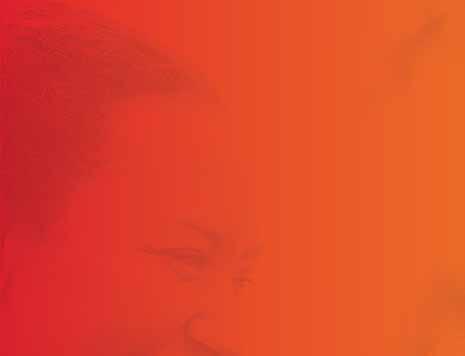
In 1956, more than 20 000 women marched to the Union Buildings in Pretoria to protest the extension of the inhumane pass laws to women. Their iconic cry,
According to Stats SA, South Africa’s labour market remains more favourable toward men. Women only account for 43% of total employment, and of those in managerial positions, 67% were men compared to 33% of women.







has been embedded into South Africa’s history, yet its sentiment remains as relevant and powerful as when it was first chanted 66 years ago.
“We must fight harder for the economic participation of women. Research shows that when women are economically empowered, they invest a sizeable portion of their income into the health and education of their children, and their local economies,” says Phillipine Mtikitiki, Vice President of Coca-Cola’s South Africa Franchise. “Our society will progress significantly when more women actively participate in government, NGOs, local business and the broader economy.”
It is for this reason that Coca-Cola firmly believes that the journey towards an equitable future requires that we – the corporate sector – need to be a force for progression and good. “The advancement of women is built into The Coca-Cola Company’s overall agenda. Currently, 55% of the senior leaders that comprise our Africa Operating Unit extended leadership team are women. Globally, we aim to have 50% female executives by 2030, and continue to make progress in advancing our female talent,” says Mtikitiki.
At Coca-Cola, we recognise that we owe a great debt of gratitude to the women of our past. Women’s Day (and Women’s Month) has evolved beyond commemorating our history to also celebrating the important role that women now play in moving our society, culture, local industry, and national identity forward. We believe in championing women in the workplace and in the communities in which we do business.
“The advancement of women is far more than a tickthe-box exercise. At Coca-Cola, we want to ensure that our female associates are equipped to succeed when presented with an opportunity,” says Patricia Obozuwa, Vice President of Public Affairs, Communications and Sustainability, Coca-Cola Africa.
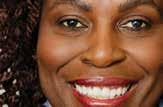
“When you strike a woman you strike a rock!”
“The statistics show that companies that are more gender-balanced outperform companies that are not.”
Phillipine MtikitikiVice President of Coca-Cola’s South Africa Franchise
According to Obozuwa, equality in the corporate world requires three things: First, there should be a representation of women at all levels from junior to executive. Second, women must be given the power, agency and skills development to succeed in their roles and make the most of the opportunities afforded to them. Third, women should be financially compensated fairly and receive the same pay as their male colleagues doing a similar job. “It is only when companies take intentional steps to bring about change that we will see results.”







Encouraging women to break out of preconceived social limitations and aspire toward greater achievements and leadership positions needs to start in their formative childhood years. “When I was growing up, my brother and I would have to share the household and garden chores. Sometimes he would have to cook, while I would prune the trees and tidy the yard,” recalls Mtikitiki. “It was only when I started working that I realised there were gender stereotypes about what work men and women should do. One of my mother’s greatest gifts was helping us ignore these.”
“Every leader needs to be a great leader, whether man or woman,” says Obozuwa. “But there is an added responsibility for women to be excellent role models for the other women who want to rise within the system. People need to see what we are doing in order to aspire to get there themselves.”
The attitude toward female advancement is also reflected in the Company’s sustainability initiatives. In January 2022, Coca-Cola Africa Operating Unit and its bottling partners announced the launch of Jamii, a new Africa-focused sustainability platform that houses the Company’s existing and new initiatives. The new platform will focus on three areas: water stewardship, the economic empowerment of women and youth, and waste management. One of the very first initiatives under the platform, Jamii Femmes, focuses
exclusively on advancing female entrepreneurs, and spans 10 African countries and is set to impact over 20 000 women.





Mtikitiki concludes,
“Coca-Cola’s impact on people extends well beyond our own business. We are refreshing the world and making a difference. We are doing it sustainably, and with the intention of creating a better-shared future.”
Patricia Obozuwa
Vice President of Public Affairs, Communications and Sustainability, Coca-Cola Africa






South Africa (CCBSA) and Coca-Cola Peninsula Beverages (CCPB).




The global COVID-19 pandemic has drastically shifted the way businesses operate. “With the onset of the pandemic, we quickly realised we needed an operating model that balanced agility and local experimentation with discipline to prioritise regional and global opportunities,” says Phillipine Mtikitiki, vice president of Coca-Cola South Africa Franchise (Coca-Cola).
Mtikitiki says the business recalibrated its strategy, working with bottlers and customers to address “seismic” shifts in consumer behaviour across all channels. “To ensure product availability, we maintained business continuity plans to address supply chain challenges, and we continue to monitor the evolving situation and adapt our efforts and responses accordingly.”

Focusing on the health and safety of employees was also a top priority, Mtikitiki says, as was changing staff behaviour, their adaptability, mindsets, attitudes and beliefs to operate in a new normal. “The effects of the pandemic were massive on African economies. In our business, relationships with our customers and communities are important. We constantly engage local partners and businesses to build sustainable small businesses to ensure that the communities where we do business benefi t too.”
In South Africa, Coca-Cola employs about 10 000 people – 65 per cent of which are female – supports an additional 165 000 indirect and induced jobs, and operates 13 facilities and two co-packers. Its strategy is sustainable growth that continues to contribute to the country’s economic recovery including supporting value chains.

“And amid all of this,” Mtikitiki shares, “creating an equitable future for the business and the broader community is a key company goal. We believe that investing in and empowering women not only directly benefi ts them, but also our business and our communities. That’s why our aspiration to mirror the diversity of the markets we serve includes being 50 per cent led by women globally by 2030. The advancement of women is built into The Coca Cola Company’s overall agenda, and although we are still on our transformation journey, currently 55 per cent of management positions at our Africa operating unit are held by women.”
She adds that the advancement of women is far more than a tick-box exercise. “At Coca Cola, we want to ensure that our female associates are equipped to succeed when presented with an opportunity. This is why Coca Cola firmly believes that the journey toward an equitable future requires that we –the corporate sector – need to be a force for progression and good.”
Locally and globally, Coca-Cola has always focused on skills training along with financial access to promote entrepreneurship opportunities. Mtikitiki says in South Africa, the company supports two bottling partners – Coca-Cola Beverages
She says businesses within the value chain with a vested interest in Coca-Cola are supported to create viable and sustainable enterprises. The brand also has a global programme to accelerate sustainable innovation through crowdsourcing and piloting start-ups.

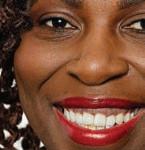
“Coca-Cola is pushing digital transformation through supporting 100+ Accelerator – an open innovation programme initiative and partnership with BanQu to help waste pickers. BanQu uses blockchain technology to track, trace and ensure payment for collected recyclable material. The project provides small buy-back centres with free access to the BanQu system, allowing them to record their cashless transactions in a blockchain-based system that works with any smartphone or tablet.”
Another initiative is a Bizniz in a Box, a programme that creates an ecosystem of viable microbusinesses offering products and services in the community using a spaza shop as the anchor.
“Through CCBSA and its partners, this Youth Empowerment programme has financially supported and trained over 700 entrepreneurs across the country. Each business operates a custom-designed container and offers an opportunity for committed young entrepreneurs to access the skills and funding to reach their potential,” says Mtikitiki.
DENISE MHLANGA unpacks the challenges faced in leading organisations through global economic uncertainty and the measures taken to maintain strong company culture and diversity goals
“Creating an equitable future for the business and the broader community is a key company goal.”
Greig Jansen, CEO of the PURA Beverage Company, says that it is so important to create a balance between bottom-line growth and employee wellness. For PURA, wellness means upskilling both in terms of hard skills and mindset.
“The pandemic affected people’s mental health. As a business, it is important to address this by focusing on building a mindset and a positive culture in the business, much like upskilling the technical and operational needs within the business to ensure bottom-line stability and growth.
“We always encourage our staff to pursue their passions and have fun while doing it, and this goes a long way to building the culture within our business,” says Jansen.
Jansen adds that PURA is very aware of and clear on its diversity goals when hiring new talent. “Women make up 36 per cent of our general workforce and 29 per cent of the executive team, and we are currently
working with BEE Chamber (a well-known consultancy in this space ) to help us improve our current strategy and ensure sustainability in the long run. But ensuring your workforce is diverse, talented and happy is only one component of creating a sustainable business.”
shopping list and not by brand. As an example, a typical shopping list would reflect items such as bread, milk, butter and jam, but no brands or intrinsic are included, hence why companies had to adjust to a new way of marketing.
“Post-pandemic, we see that over 80 per cent of people are trying to be healthier, at least some of the time, and this is starting to infl uence consumers’ buying behaviour.”
Jansen says consumers are increasingly looking to buy from brands that care about the environment and disclose their product source, and who support the communities where they operate.
“During the pandemic, online sales, which as a channel operates very differently from retail, grew exponentially,” says Jansen. He explains that online operates very similarly to shopping according to a
PURA Beverages has used consumers’ changing behaviours to healthier eating to produce quality beverages without compromising taste. “We increased our focus on online channels, and as a result, the company has picked numerous global listings with retails in the US. Interest from other international markets such as the Middle East, United Kingdom and China has also increased.
For businesses such as Joekels, the pandemic provided growth opportunities, especially in tea consumption, says Candice Sessions, marketing and brand strategy manager.
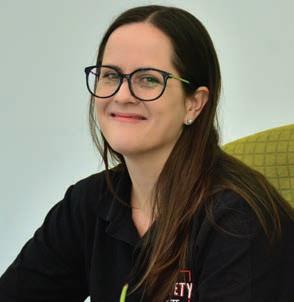
Three factors drove this, she says, namely:
• the health benefi ts of tea, which resulted in above-average growth in segments with known health benefi ts such as rooibos and green tea; • tea is also affordable; and • being at home all the time, people needed a comforting beverage.
“We saw declines in segments hardest hit by COVID-19, like our out-of-home business, which was affected by the tourism industry grinding to a standstill for two years. With easing of trading restrictions and receding of the pandemic, we are starting to see normalisation of the tea category with levels returning to pre-COVID levels in most cases,” says Sessions.
She explains that Joekels has always had a strong focus on providing quality and accessible tea, hence it is thoroughly tested before being sold. “We continue to improve our product offering, and price well so that cash-strapped consumers in a rising interest rate environment can continue to buy our tea,” she says.
Joekels, a small medium enterprise, is founded on entrepreneurial spirit and equal
opportunities (women make up 60 per cent of the workforce and 50 per cent of the leadership team), and can quickly adapt to changes in operating environments. “Data and insights are at the heart of our business, and we continue to upskill team members in this area to enable us to make informed decisions that benefi t ourselves and our customers and to proactively take advantage of opportunities and address threats,” she says.
– CANDICE SESSIONS
“Ensuring your workforce is diverse, talented and happy is only one component of creating a sustainable business.” – GREIG JANSEN
“Data and insights are at the heart of our business, and we continue to upskill team members in this area to enable us to make informed decisions.”Candice Sessions

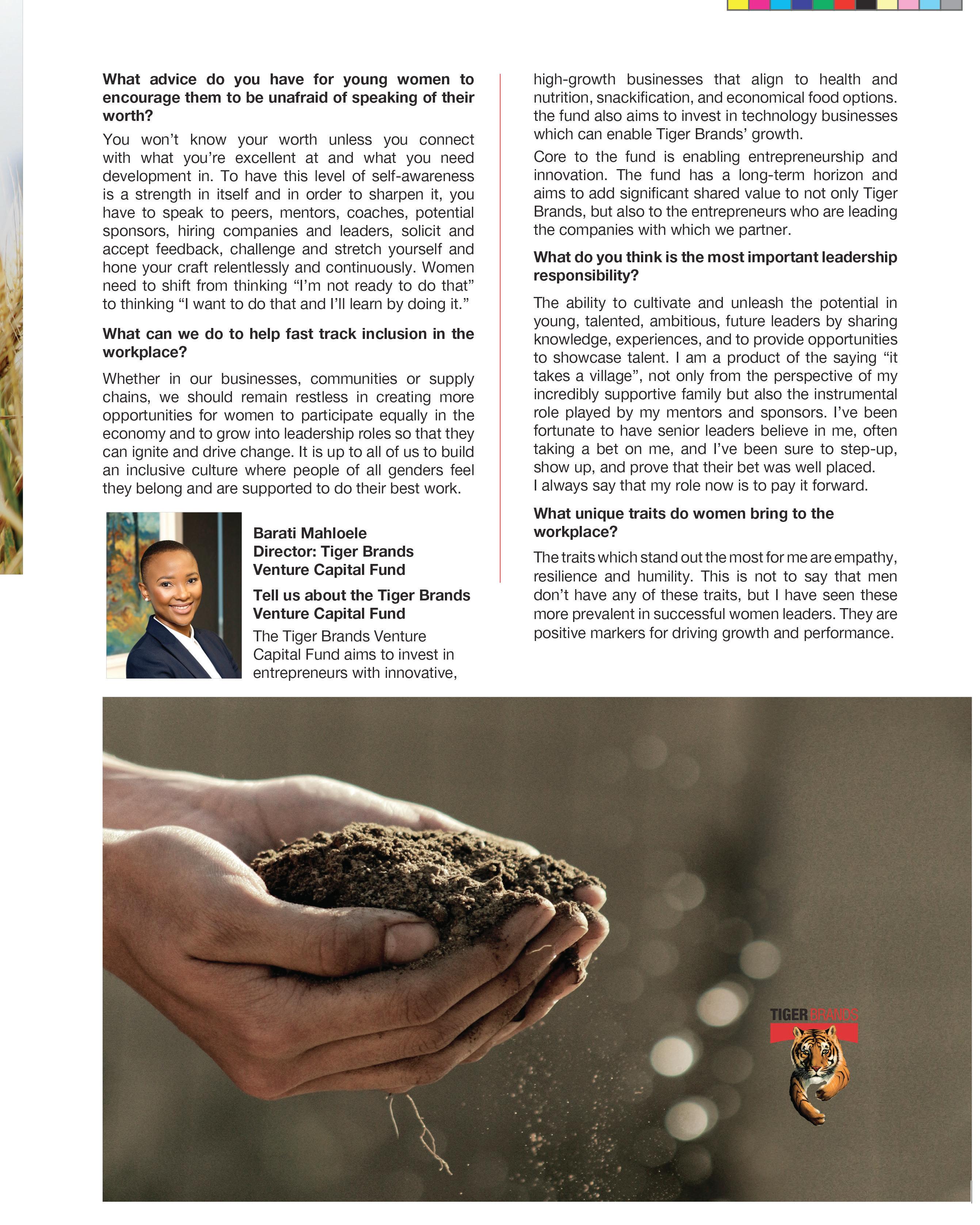
Zodwa Velleman has been at the Oceana Group for more than three years, and says what she enjoys most about the company is its visible brand and commitment to its people, communities, and the environment. “My experience and exposure have always been around protecting and elevating brands and supporting them legally. So, Lucky Star – now Mzansi’s favourite brand – was a big deal for me. An absolute attraction at Oceana Group.”
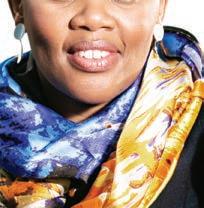
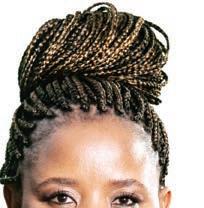
Velleman says that Oceana is a company that values and prioritises its employees – making time to listen to them, ensuring they are trained, and that there is growth and much-needed opportunity internally. It’s an organisation that she says finally resonates with who she is. “The diversity of our leadership and the visibility of women throughout the organisation and across calibres all really speak to me.

“Here, whoever you may be, you will be represented, meaning anything is possible. There’s nothing laudable in this day and age about being the first women or person of colour in leadership in your company. It’s time to take each role, whatever it is that you want to do or achieve, to the next level.”
“The whole issue of supporting other people’s growth and development is close to my heart. I looked back and realised that at every step of my journey, I had the necessary support.”
Velleman mentions Advocate Johnny de Lange, her boss at Parliament – he fetched her from the Standing Committee on Public Accounts (SCOPA) committee, arguing that she was much more needed in the Justice portfolio. “Such was his belief in my contribution, and not just as a committee secretary. Of course, it had to do with me having studied law. Then, Judge Taswell Pepier, from the Cape Town High Court, eased my transition from government to commercial legal practice. He said, ‘you always need to protect your spirit and who you are
because private legal practice can be extremely harsh when it comes to carving out your niche, developing your clientele, and understanding the demands of commercial practice with its long hours and hectic demands’.”
Velleman also had an amazing boss, Ellen Odoner at Weil Gotshal and Manges in New York, where she was based during an associateship. “From her, I learned the importance of acting out your leadership convictions and leading by example. She not only supported my journey within the organisation, but when I was working on a multibillion-dollar deal and the funders only wanted to deal with closed members – asking, ‘who are you?’ – Odoner responded that I was an admitted attorney and integral to the deal, and if they did not listen to my presentation, both of us would walk out. To this day, I strive to do the same for the people I journey with. These individuals, and a handful of others, have made me the rounded human being and leader I am today.”



“People want to move on and pretend as if COVID-19 never happened. But the setback to the economy is not something we can simply sweep under the carpet,” Velleman says. What stood out at the Oceana Group is the aspects of its corporate culture that it can’t afford to lose. “We had no absenteeism; people showed up without knowing what to expect. I think we will continue to see the extent to which we support and show up for each other throughout the organisation.”
Velleman says it is always tough to balance your life around all the competing demands. “I never had a work-life balance during the building phase of my career. I have since subscribed to the notion that it is pretty much impossible to catch all the balls you’re juggling on any one day. You have to prioritise the most important balls. And hope that those that fall don’t break, and can be picked up and juggled again the next day.”
At Oceana, Velleman says they have women capable of navigating the biggest sea-going vessel in Southern Africa, the Desert Diamond fishing ship. “We have women onboard at Oceana who can captain a vessel of any size, heading anywhere in the world. It has been an absolute joy to tell these stories of success and empowerment. And to ensure that women continue to be elevated. If you are that sort of leader, when you turn and look back, you will see how all those you’ve worked with have led to achieving bigger, better, and more incredible things.”
Oceana’s leadership boasts 43 per cent women within its executive committee and at board level, and 41 per cent women throughout the organisation.

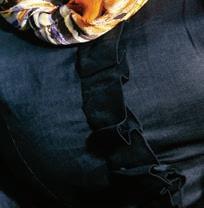
Zodwa Velleman, who heads up corporate and regulatory affairs at the Oceana Group, chats about her highlights, challenges, and the lessons that will be valuable for those following in her footprints.
“The diversity of our leadership and the visibility of women throughout the organisation and across calibres all really speak to me.” –ZODWA VELLEMANZodwa Velleman


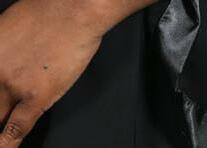









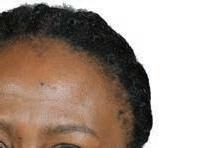
efl

ecting on her work path to date, S’ne Magagula, chief HR offi cer at Tiger Brands, says: “Most of the challenges I have had to overcome in my career have had to do with transitions – transitioning from an individual contributor to the leader of a team; moving to a new country; transitioning from an operational role to a groupwide strategic role; or transitioning from a functional leadership role to being part of an executive business leadership team.”
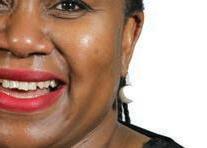
She says all these transitions have shifted her mindset or leadership approach fundamentally, compelling her to not only learm from teething problems and failures, but also unlearn certain behaviours and solutions that might have delivered success in the past, but are no longer effective in the new role. “Change is hard for all of us, but when it is accepted and consciously navigated, it can deliver so much growth,” she enthuses.



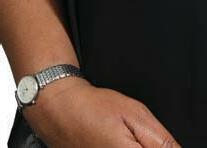



While the impact of COVID-19 was devastating for the food and beverages industry and Tiger Brands, Magagula advises that it was also really tough for employees who had to adapt to strict COVID-19 protocols (those working within the essential services); or issues of work-life integration and burnout (offi ce-based employees who had to adapt to working remotely and in a hybrid way for the first time).
“Fortunately, in 2019, we launched a holistic and comprehensive employee wellbeing programme, THRIVE, and were able to leverage it to support our people and teams effectively. Through THRIVE, we could stay connected to their evolving needs and provide the right services and support – for staff members directly, their teams, or their family members. This initiative, I believe, kept things going on a positive trajectory for our people, and helped them cope with issues related to prolonged illness, sudden loss of loved ones and anxiety about their mortality and sense of security.”
Magagula believes that it may sound clichéd, but the biggest lesson she has learned is that of playing to her strengths and showing up in an authentic, open, and values-driven way.
“I love leveraging the diversity of the teams I am part of to create the best value. I’m highly supportive of others on their development journeys, and therefore mentor several young and emerging female leaders to enable them to connect with their higher purpose and passion so they can live out their true potential.
“I love working at Tiger Brands. I find our singular purpose – we nourish and nurture lives – so inspirational. Our people are passionate and purposeful. Our brands are loved and have been part of households across Africa for generations. I love that we strive to work collaboratively across our diverse teams to grow our business, while creating a great place to work where our values and winning behaviours come to life in a nurturing environment where our people can grow, thrive and innovate.”
Magagula believes that as you rise through the ranks of corporate life, you need to take more breaks to unwind and refresh. “Taking time out with family for holidays and stepping away from the daily drumbeat of meetings and overloaded diaries creates head space for refl ection and the joy of new and innovative ideas,“ she enthuses.
Tiger Brands’s S’ne Magagula shares the challenges she’s overcome, leadership successes, and what she’d most like to tell women entering the sector. By VANESSA ROGERSS’ne Magagula
I’m highly supportive of others on their development journeys, and therefore mentor several young and emerging female leaders to enable them to connect with their higher purpose and passion so they can live out their true potential.” – S’NE MAGAGULA






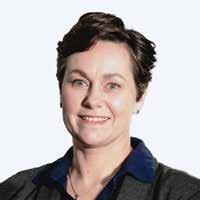
































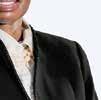 Lesego
Lesego
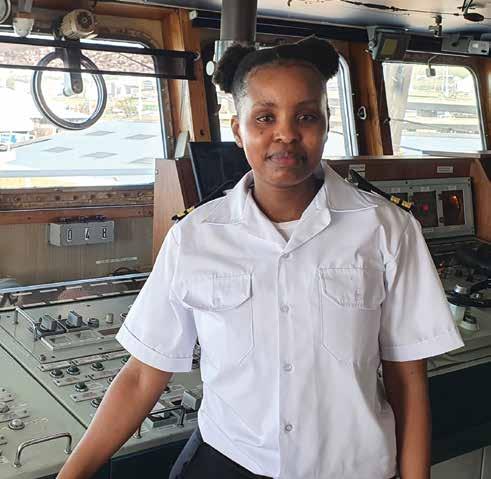
Why reshaping the conversation and leading the change within the food and beverage sector is key to its continued growth.
By KARIN KRAUSE WESSELS, managing director at Edward Snell & Co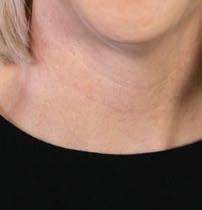
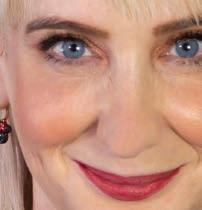

For too long unconscious bias has limited gender equality in the workplace, but the COVID-19 pandemic might just have changed that.
In our post-COVID-19 reality, we see that the workforce collectively is asking for improved work-life balance, demanding increased focus on psychological safety, better two-way communication, increased fl exibility and, generally, a more empathetic culture. Things that women have always naturally brought to the table, but which have been overlooked and underappreciated. And it is within traditionally male-dominated industries such as the spirits sector where we will increasingly need these skills.
Three things that businesses will need to look at to fast-track gender equality are a more visionary talent strategy, increased mentorship/ sponsorship programmes and amplifi ed narratives around female success stories.
When developing recruitment practices and crafting talent matrices within your business, the softer leadership skills need equal weighting to the traditional functional skills – both in terms of assessments and in case studies or referrals. Therefore the “how” and the “what” require equal consideration throughout the employee journey. This will ensure that talent practices drive improved inclusivity, and will also guarantee the hiring and promotion of more balanced individuals to lead the business.
Encouraging female mentors, sponsors and coaches across the business is critical. Not just for females to be coached by other females who have walked the walk, but also for females to start coaching/mentoring males to expand world views and open up more inclusive mindsets across the business.
Finally, the importance of storytelling cannot be underestimated. The idealised business leadership narrative has traditionally been around the importance of power dominance, assertiveness and competitiveness in leading a successful business – with quite a finite view on success. However, I believe that the leadership style required to realise meaningful progress in the current ambiguous economic landscape needs to be more transformational. Transformational leadership ultimately inspires employees to find personal purpose through the work that they do and, as such, unlocks discretionary employee energy to increase effectiveness, effi ciency and meaning around business delivery.
The above practices will not only assist in gender equality, but also in more broad-based diversity and equality. Therefore, I implore

you to continuously relook your talent strategies, your mentorship/sponsorship programmes and the narratives you amplify across your business to ensure greater inclusivity. Why is this important? Because when your organisation can more closely mirror and empathise with the customers it represents, the more easily you can navigate and thrive in our current economic climate.



What I’ve tried to implement in my own organisation is that our purpose as a company must be to pursue greatness for good and to embody a more infinite definition of success. We believe that by unlocking each person’s individual greatness within our business and then acting collectively as a force that champions the needs of a more inclusive set of stakeholders, we will ensure that we leave our industry, our country and our world better than what we found it.
I am hearing the call for the private sector to step up and play a more positive role in driving purposeful change and inclusivity more loudly than ever. I therefore encourage all business leaders to more actively drive for equality, diversity and inclusion as one of the ways to pursue greatness for good.
For too long, we have allowed talent to be left on the table through unconscious bias, not utilising the diversity of skills to enable growth and lead change across our country. We cannot afford to do this in the post-COVID-19 world. You might ask, what can one business really do to effect change? Well, I believe what starts with one can very quickly become a meaningful movement of many. Are you ready to join us?
Three things that businesses will need to look at to fast-track gender equality are a more visionary talent strategy, increased mentorship/sponsorship programmes and amplified narratives around female success stories.
At Mondelēz International, our purpose is to empower people to snack right. As a global company, our diversity is a strength that drives innovation and growth. We strive to build a more equitable world - socially and economically - for our colleagues, culture and communities.
In the Sub-Saharan Africa business unit, we are committed to prioritising gender diversity. It’s not something that we just talk about…we live it every day. Our executive leadership team leads from the front with seven incredible female leaders.
“Calm down and do not allow what you cannot control to unsettle you”
Mondelēz brings together three of my favourite things: African growth, strategy work and chocolate! As Strategy Director, I spend my time collaborating with colleagues to address complex problems to shape our future. Companies such as Mondelēz are integral to the prosperity of Africa.
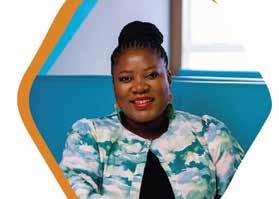
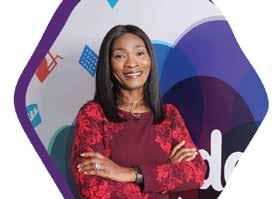
Managing Director for West Africa
“Prioritise your needs, to allow yourself to achieve a better work-life balance”
It is important to prioritise gender diversity in leadership positions and address gender disparity in the workplace in order to usher in an economic era of growth.
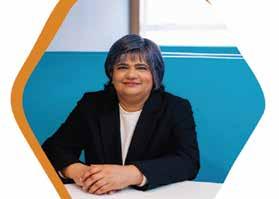
“Be passionate and irrespective of which ever path you follow, do the best you can”
“People are our proper occupation. Our job is to do them good and put up with them”Marcus Aurelius
I am most passionate about learning, and I enjoy the curiosity and discomfort we experience when learning. Mondelēz’s learning and development culture has truly made me feel at home.
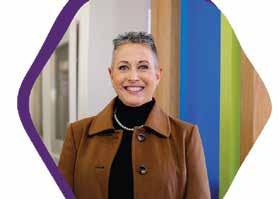
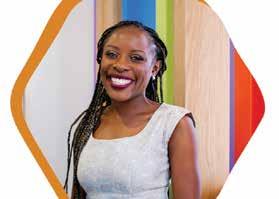
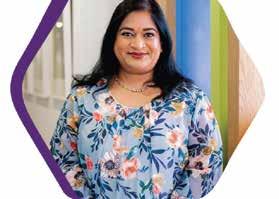
Corporate and Government Affairs Lead
“Kindness is an underrated currency”
At Mondelēz’sInternational we have an incredible ethos of investing in our communities. We have positively impacted thousands of learners through our Health in Action Programme, and our aquaponics social enterprise initiative continues to drive job creation and protect the environment by teaching people to harvest food sources through sustainable farming practices.
As a Digital Lead, my work revolves around technology, which I love. I try to impact people’s lives by helping them to embrace technology and use it to improve efficiency. At Mondelēz we experiment with new technologies and consider their potential applications.
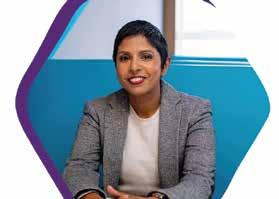
“Keeping a calm, level head is always best”
A functional and efficient supply chain is critical to the success of a business. As a Supply Chain Director, I have a holistic view of the growth of the company. Mondelēz’s culture of fostering both individual and collective growth has instilled in me the importance of maintaining a positive outlook in life.
“Believe in yourself, trust in your intuition and follow your dreams”
The development of women and young people is close to my heart. Mondelēz has allowed me to live my passion through the day-to-day work I do which involves working with unemployed graduates and rural youth in my village and surrounding areas. I believe my generation of professional women has a responsibility to provide the female mentorship we did not receive.
Independent spirits group Edward Snell & Co’s purpose is to pursue greatness for good to bring about meaningful change and make a positive impact. The company focuses on investing in and empowering its people to seek and achieve great things and effect transformation
Transformation is not just about keeping abreast of market standards and having best-inclass human resources practices and processes in place. It is also about making sure that as the business grows, the people are not left behind, and that the practices and processes contribute to employees feeling seen, heard, and assured that they matter.
This is the word from Edward Snell & Co’s HR and Transformation manager, Nangamso Mahunonyane, who is responsible for driving employee retention through HR transformational practices that support the broader organisational strategic objectives.
She says people are unquestionably an organisation’s greatest asset. “Businesses can have as many plans and goals in place as they like, but without people, they won’t be able to realise them. This is why investing in people is a priority for us at Edward Snell & Co, especially when it comes to our company purpose – the pursuit of greatness for good.
As part of the roll out of its purpose and leadership behaviours, this year the company trained virtually all its staff on “Our Leadership Journey”. This commences with participants attending self-awareness training to learn how their behaviours inform the type of leaders they are and wish to be. “This has provided a great foundation for our people skills initiatives, as we believe that leadership is something that is learned – a consequence of choices that each of us can make,” adds Mahunonyane.
The company prides itself on its numerous in-house and external training programmes. “This includes our bursary programme where we offer funding for tertiary education, not only to our staff, but to their relatives as well. We also run various work-integrated learning programmes, which target the youth at large as we believe that the youth are a huge source of untapped potential in South Africa,” concludes Mahunonyane.



At the heart of every business is the need for first-class customer service. Having a business model that revolves around customer-centricity helps the organisation to give its customers a positive and

personalised experience. In return, the company will have a loyal customer base and a competitive edge over its rivals.





















Someone who understands this principle well is Aimmie Gounden, Customer Contact Centre manager at Edward Snell & Co. Her role involves overseeing order placement as well as query and complaints management for the business nationally.











“As the first point of contact for our customers and sales representatives, the contact centre sets in motion the entire supply chain process to get our brands on shelves. A strong customer focus is crucial at this level,” she says.
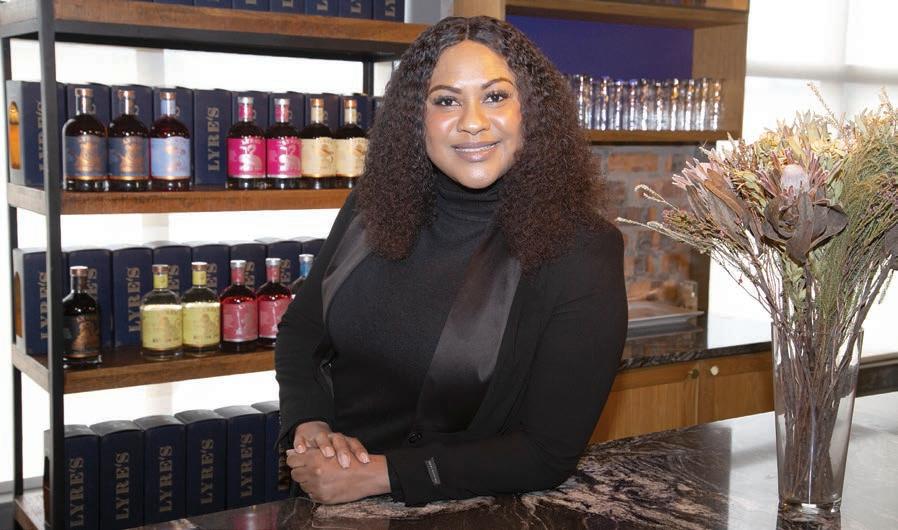
The company aimed to create a consistent and excellent customer experience with every interaction. To realise this, the organisation segmented its efforts into customers, people, processes, and technology initiatives.
From a customer perspective, a comprehensive quality assurance standard was set for the contact centre, and employees receive ongoing training and evaluation to maintain this standard. Gounden says:
receive
“With the customer at the centre of everything we do, we are constantly looking for ways to improve our responsiveness and service delivery.”
“The Edward Snell & Co Contact Centre was ranked the best in the industry for three consecutive years,” says Gounden. “This can only be achieved if the contact centre staff ensure that customers receive superior service.”
was ranked the best



























Another focus area that Gounden is passionate about is upskilling people. The company runs a oneyear graduate sales intern programme that exposes the trainees to the company’s customers and brands.
trainees to the company’s customers and brands. opportunity before us to retain the top-performing
“Realising the great opportunity before us to retain the top-performing sales interns inspired me to develop a pipeline programme to employ these young, talented individuals
into vacant contact centre positions. I am very proud that this programme has resulted in the employment of 10 interns, all of whom were unemployed before, and some of whom have since been promoted into other positions within Edward Snell & Co,” she says.
While a commitment to preserving the environment is the responsibility of every person, companies must also play their part as their sustainability depends on it. Being environmentally friendly can help companies cut costs, improve efficiency, and create healthier workplaces.
Passionate about this principle is Edward Snell & Co Portfolio Marketing manager, Kelly Johnson. She believes that while no business can claim it’s perfect in this area, companies are showing an interest in placing the environment higher up on their agenda.
Johnson is responsible for William Grant and Sons’ portfolio of whisky brands in South Africa, which include Glenfi ddich Single Malt, Balvenie Single Malt, and Grant’s Scotch whiskies. Her role entails making global brands locally relevant and meaningful to consumers.
A highlight in her career has been having the locally developed Glenfi ddich Challengers Club adopted by the global brand team as a bestin-class product. She says: “Versions of this project were rolled out across the world, and I’m proud that we’ve put South Africa’s marketing capability on the world stage.”
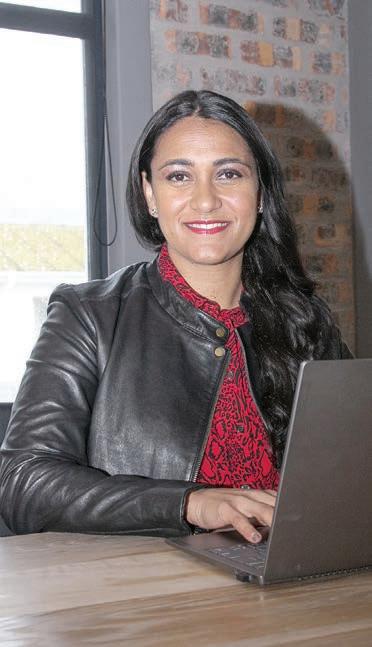
As part of Edward Snell & Co’s purpose to pursue greatness for good, the company has targeted the circular economy as one of its three “for good” focus areas.
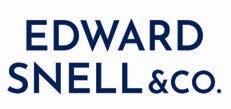
As part of Edward Snell & Co purpose to pursue greatness for good, the company has targeted the circular economy as one of its three “for good” focus areas. With all the water used in Glenfi ddich Single Malt whisky drawn from a single-source spring in Scotland, the importance of preserving water sources and raising awareness about water security is a natural fi t for the brand.
Edward Snell & Co’s is currently working with the World Wide Fund for Nature to ensure that all the proceeds from the recent Glenfi ddich Auction of Rare Whiskies contribute to the rehabilitation of natural springs in the upper catchment areas of the Eastern Cape, thus ensuring access to fresh water for the surrounding communities. “We care deeply

about the communities we operate in and want to leave the planet in a better state than we found it,” she concludes.
For

As the business landscape in South Africa’s spirits and wine industry continues to transform in the direction of greater gender inclusivity, JARED RUTTENBERG asks two industry leaders to weigh in on the growing presence and role of women within the sector
combination of empowered females and societal and industry changes are playing a significant role in encouraging women to step up and take their place at the forefront of a rapidly changing spirits and wine sector. This, says Pamela Nkuna, corporate affairs director for South Africa and sub-Saharan Africa at Pernod Ricard, is encouraging given the traditionally male environment of the spirits and wine industry.









Nkuna adds that through its Phamakisa iSpirit initiative, Pernod Ricard South Africa is contributing to this transformation by creating equal opportunities for both men and women-led businesses outside the traditional spirits and wine sector to contribute to the industry’s growth.
Melanie Campbell, marketing director at Edward Snell & Co, says that there are several opportunities and benefits for women working within the industry. “Women have the opportunity to shape a historically masculine industry to best represent female insights and needs in products – particularly where products are not sold on functional benefits alone, but rich emotional iconography and branded experiences akin to many luxury brands.
“Having women in the industry offers many benefits, including a greater deal of empathy in leadership, helping to build richer organisational cultures, which motivate employees beyond the paycheck. Women are also known to derisk organisations and drive a greater focus on corporate social responsibility. With the industry under pressure to showcase leadership in corporate citizenship and the consumption of alcohol, this should come in handy.”
“South Africa could still benefit from understanding that there is a shift from employee engagement to employee thriving – the ability to unlock discretionary energy in favour of meaningful work,” says Campbell.
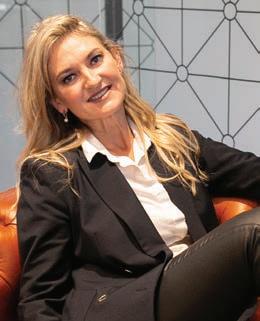


She adds that Edward Snell & Co’s intention is to focus on the following areas: “Being more flexible on employee benefit/package composition; being more flexible on workplace and time constructs; being more active in encouraging balanced wellbeing (physical, mental and social); being more empathetic to employee needs outside of formal remuneration constructs; and being more transparent on grades, benefits, and development/growth required to move to the next level.”
In her current role as chairperson of the South African Liquor Brand Owners Association, Nkuna adds valuable insight: “Although the country has made significant progress toward achieving gender equality in the spirits and wine sector, women still face numerous challenges. For example, the female unemployment rate



remains higher than the male unemployment rate, indicating the existing disparities between men and women. This shows that women still lag in terms of socioeconomic opportunities.”
Thankfully there seems to be a shift in companies understanding the need, Nkuna adds. “Pernod Ricard introduced an internal Women Leadership Programme. This one-year coaching programme supports female leaders within the Pernod Ricard organisation to identify their leadership challenges – raising self-awareness on limiting beliefs and strengths, as well as external constraints and enablers, all while connecting them with other female leaders in a trustful, supporting, and challenging atmosphere.”
Campbell says that she’s been blessed to be surrounded by remarkable men who have supported her on her journey: “Thank you to those men who mirrored great leadership, but empowered me to be me, showed chivalry in the corridor, but argued bravely and fairly in the boardroom, complimented me, but never objectified me, pushed me and believed in me.”
• Launched by Jordan Wine Estate’s Kathy Jordan, the Women in Wine Initiative selects previously disadvantaged female candidates with a passion to pursue a career in the wine industry and offers opportunities in wine education, wine journalism, wine marketing, or wine hospitality. Contact the Premium Independent Wineries of South Africa for info. piwosa.com

Hailing from a village in KwaZulu-Natal, Ntsiki Biyela’s work life began as a domestic worker, but thanks to her excellent science results, a later bursary opportunity meant leaving her provenance and heading to the Western Cape –a move that would eventually see her graduate from Stellenbosch University with a BSc in Agriculture (Viticulture and Oenology).
What’s more remarkable is that when she was accepted, she’d never drank wine before. She explains how in rural areas, people are not exposed to wine, but rather beer, whiskies, and spirits. After her graduation, she embarked on a 13-year journey at Stellekaya until in 2016, she established her brand, Aslina Wines, named after her grandmother.
In such a signifi cant journey from domestic worker to the country’s first black winemaker, there have been obstacles to navigate. Some of these, particularly at the beginning of the journey, were “other people’s realisations and expectations. I was not the typical winemaker that people have in mind,” explains Biyela. “Some people would come into the winery asking for the winemaker. When I’d come in, they’d say, ‘no, I’m looking for the winemaker, not the supervisor’. So I’d say, ‘okay’ and send them to the offi ce to speak to my boss, who would turn them around and send them back to me.”
Approaching an impressive two decades of work in the industry, Biyela is excited about the changing role of women within the industry. “We are leaders now. There are more opportunities for us now. So while much of the industry remains male-dominated, it’s not all doom and gloom.”
Maryna Calow, communications manager for Wines of South Africa, says: “South Africa is one of the most progressive of all the wine regions in the world as we have a decent number of women who are actively making wines, but it is true to say that the industry is still very male-dominated. Some of our top winemakers, however, are women. It is a trend we hope to see growing in years to come.”
Biyela points to the work of the Pinotage Youth Development Agency (PYDA), of which she is a board member. She says the organisation is focused on seeing growth within the industry by helping young, previously disadvantaged youth learn everything in the industry, from harvesting grapes to working in a tasting room and beyond. “The PYDA is intent on making a positive change in young people’s lives – focusing primarily on the wine, tourism, and fruit sectors. It offers all the grounding that I never had when I started. So I would encourage new entrants to the industry to seek out opportunities such as the ones the PYDA offers, build bridges, see and be seen.”

So which of the wines in her range is this talented winemaker sipping on? “I’m currently enjoying our Chenin Blanc Skin Contact. It’s the wild child of the family. It’s a thought that has finally come into a glass.”

• Méthode Cap Classique: a premium Blanc de Blanc Brut that expresses green apples and cucumber on the nose with a lime and butterscotch finish.
• Sauvignon Blanc: a medium-bodied Sauvignon with the expected tropical, lemon and green notes, and present acidity.
• Chenin Blanc: an approachable Chenin with subtle hints of honeybush tea. The prolonged skin contact allows for extra flavour development.
• Chardonnay: a Chardonnay with a delicate balance between oak, citrus, and pear notes. Perfectly enjoyed on its own, but weighty enough to pair with food.
• Cabernet Sauvignon: a classic Stellenbosch Cab Sav with blackcurrant and tobacco on the palate. Well priced at R185 per bottle.
• Umsasane: a bold full-bodied Bordeaux blend of Cabernet Sauvignon, Cabernet Franc, and Petit Verdot with pronounced tannins and dark fruit. Umsasane is isiZulu for the umbrella acacia tree and also a nickname of Biyela’s grandmother.
JARED RUTTENBERG celebrates the work that went into the crafting of Aslina Wines’ Chardonnay. Even more so, he celebrates the inspiring and certainly uncommon story of this premium wine’s creator, Ntsiki BiyelaASLINA WINES Ntsiki Biyela
“We are leaders now. There are more opportunities for us now. So while much of the industry remains male-dominated, it’s not all doom and gloom.”
– NTSIKI BIYELA
For too long, the image of whisky being consumed exclusively by middle-aged men in leather armchairs has dominated pop culture. While the root of this stereotype dates back generations, it is continuously reinforced in today’s world, and one has to look no further than a search of “whisky drinker” online to see what this looks like in real-time.

As our whisky community continues to evolve, we wanted, through the campaign, to celebrate and highlight the modern whisky drinker, which is increasingly female.
Indeed, the number of female whisky drinkers is rapidly growing. A Drinks Digest report noted that in the United States (US), 37 per cent of US whisky drinkers are female, up from 15 per cent in 1990, and nearly a third of all whisky drinkers in the United Kingdom are women. There has been a 50 per cent increase in millennial whisky consumers, reports market research company Roy Morgan, with The Glenlivet being the biggest retail growth contributor in the past two years.
Closing off women’s month on 31 August, The Glenlivet hosted a special group of trailblazing women in their respective fields for a spectacular sensory event at the Steak & Oyster in Umhlanga Rocks. A dynamic group of female entrepreneurs such as Anita Shayo, Carla Gailey, Nadine Oberholzer and Prom Mfeka joined other like-minded women to celebrate women’s month and enjoy a sensory experience with The Glenlivet.
The combination of inspirational women from different industries came together beautifully, and we couldn’t deny everyone had one thing in common: an attitude of going against the norm and using one’s talents, voice and social platforms to carve a new path for women to follow in their footsteps.
It was also an opportunity to lend further support for the Drinkerbell, an innovative device developed by Peach Piche with the purpose of protecting women from being targeted for drinks spiking in public spaces.
In celebration of national women’s month in August, South Africans honoured the achievements of the country’s women across business, politics, culture, and in every home. These courageous pioneers have been steadfast in charting a new path to breaking down outdated corporate models, shrinking disparity in remuneration, and healing a climate that breeds gender-based violence.
As part of this evolution, society needs to take a hard look at every element within its collective consciousness as reflected in popular culture, media, and ultimately, everyone’s minds. Though some views and iconographies may seem harmless on the surface, they play a crucial role in fostering views of dominance and inequality. As part of a monumental effort to build up the public image that is so powerful in how women are perceived, Pernod Ricard launched its #BreakTheStereotype campaign in 2022, partnering with talented photographic artists to capture the spirit of the diverse modern whisky drinker.
Piche, a businesswoman, entrepreneur and mom of five children between the ages of 17 and 23, is the founder of Fresh Eyes.
Fresh Eyes, a customer retention business established in 1998, was born from the insight that the hospitality industry needed a targeted solution, the same thinking behind the Drinkerbell.
Piche’s daughter, Skyla, was at a restaurant in an upmarket suburb one Friday evening when her drink was spiked. The effects of the spiking were horrendous – physically, mentally
The Glenlivet breaks outmoded stereotypes of the traditional whisky drinker with the rapid rise of modern women whisky consumers.
By NTHABISENG MOTSOENENG, marketing director at Pernod Ricard South Africa
T here has been a 50 per cent increase in millennial whisky consumers, reports market research company R oy M organ, with T he G lenlivet being the biggest retail growth contributor in the past two years.
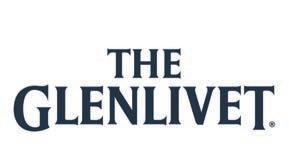
and emotionally. It took her two months to recover, and for the blood in her eyes to subside – she could have died. Sadly, some girls have, while others have been assaulted, robbed or raped.
The Drinkerbell was born, but had to do more than just solve a problem and protect women. Piche insisted it include empowering women, which is why all manufacturing is by women who have been upskilled and employed by Embocraft, Trust. It also had to give back, which is why a portion of all sales goes back to the Jes Foord Foundation to sponsor trauma counselling for women who have been raped. It started as a heart project which Piche and her daughter would love to see become a movement – #stopdrinkspiking!
Having been a guest speaker at many conferences and events, working with The Glenlivet, Piche is now determined to use her voice to raise awareness, make a difference, and save young girls.
The Drinkerbell is very close to Pernod Ricard’s heart and encapsulates everything that we wish to achieve in terms of empowering women in the community, as well as inside our organisation and supply chain. As such, over the past few years, women across the sector, from master distillers to brand owners, have taken the reins to become leaders in their respective fields.

We are proud to continue to promote this diversity and inclusion throughout the business and supply chain, from farmers to bartenders. This is especially vital, as the spirits and wine sector has often been perceived as a male-dominated industry.
In addition, Pernod Ricard sub-Saharan Africa has aligned with the Pernod Ricard Group’s ambition to achieve gender-based pay equity and ensure its top management team is diverse and gender-balanced by 2030.
A combination of empowered females and societal and industry changes have played a significant role in encouraging women to step up and take their place at the forefront of a rapidly changing spirits and wine sector.
We are striving to contribute further to this transformation by creating equal opportunities for both men and women-led businesses outside the traditional spirits and wine sector and driving our industry’s growth through the Pernod Ricard South Africa Phakamisa ispirit initiative. This initiative is a partnership with the Gauteng Department of Economic Development and provides male and female woodwork entrepreneurs in South Africa with the training and resources they need to grow their businesses.
In addition to Phakamisa ispirit, Pernod Ricard has also introduced an internal SSA Women Leadership Programme. This one-year programme supports female leaders within the Pernod Ricard organisation to identify their leadership challenges, raising self-awareness on limiting beliefs and strengths, as well as external constraints and enablers, all while connecting them with other female
leaders in a trustful, supporting, and challenging atmosphere.
Clearly, women are crucial to the future of the whisky and spirit industry, even beyond women’s month. We are fortunate enough to stand at this tectonic shift in the face of whisky, breaking stereotypes that fuel misguided concepts of inequality while also contributing to real, lasting change.
 FEMALE
FEMALE
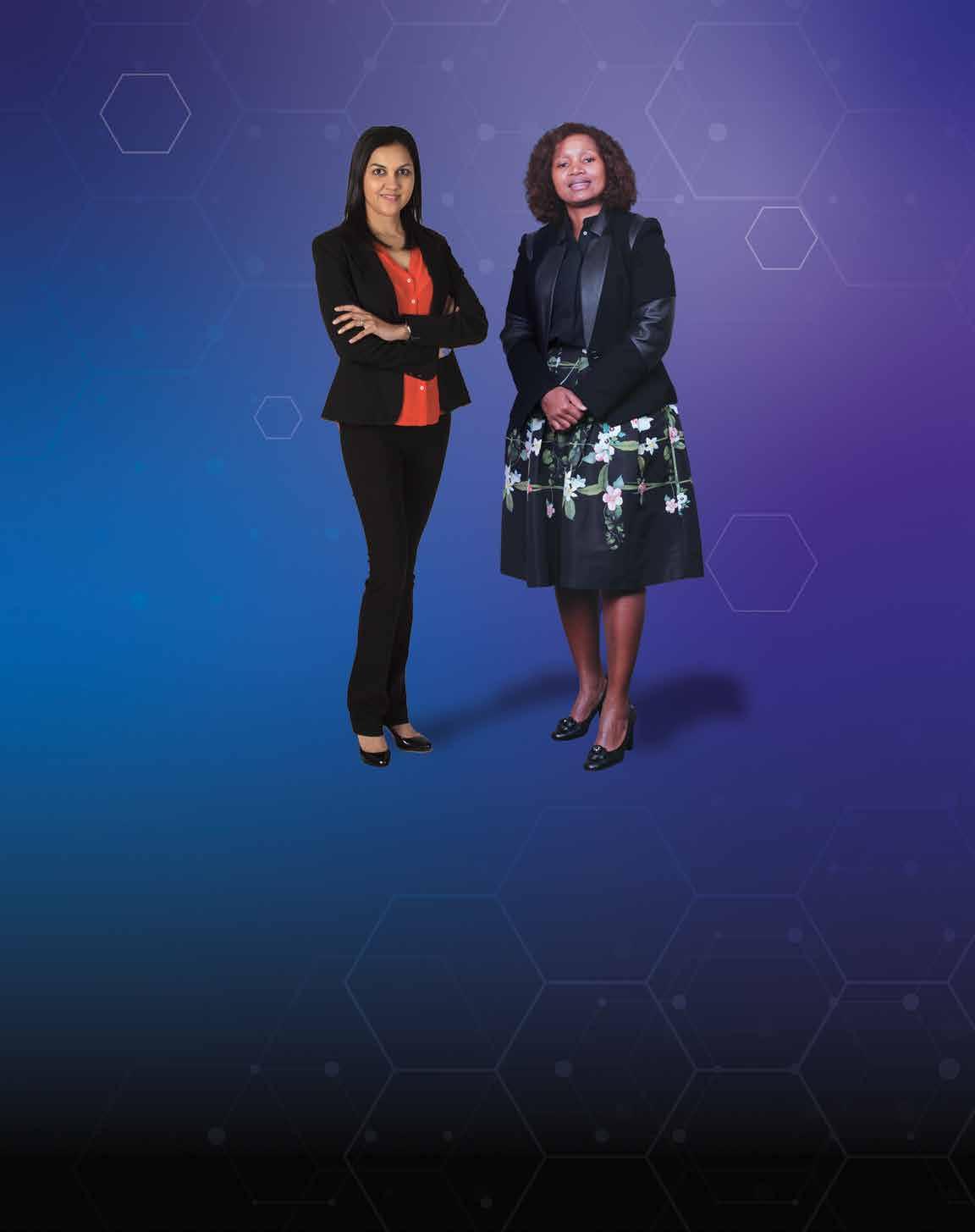
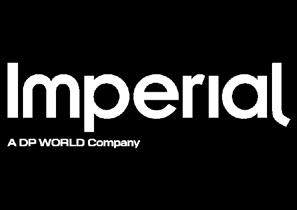
McKinsey Global Institute research estimates that one in every sixteen workers will need to transition to new roles by 2030 and digital transformation is key to this shift. How will this affect the supply chain industry? ITUMELENG MOGAKI reports
Fourth industrial revolution (4IR) industrialists have learned that human capabilities are critical for organisations wishing to adopt advanced digital technologies successfully. Natalie Unstead, HR business partner of the largest shipping company in the world, Maersk, says the transformation of people to match technological advances can be a challenge if not coupled with proactive change management and clear communication.
“As a growing organisation, we have seen, through the combined efforts of the technology teams and front-line employees, progress towards a common goal of ensuring we can meet our customers’ needs. This has made the transformation to achieving our common purpose of improving the lives of all our employees easier over the years.”
Unstead adds that the company believes technology is key in making a strategic shift to meet the end-to-end demand of customers. “Transparency, security, and trust in the supply chains improve through digitised information flow combined with physical assets. This allows us to offer customers various solutions depending on the specific disruption in their supply chain.”
Esha Mansingh, executive vice president of corporate affairs and investor relations at Imperial, comments on adopting advanced technologies for the workplace, saying that new digital capabilities can add immense value, but only if people and processes change to extract the benefit. “Most people inherently fear change
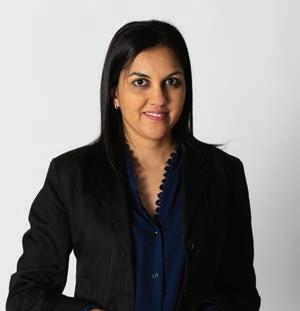
and organisations naturally block change. Imperial has combined structured change management with most of its significant digital transformation efforts.” Addressing the importance of research to understand the potential impact of future technologies and transformation demands for the future workplace, Mansingh says that research and pre-work are important to ensure that opinions are shaped by more than just the marketing and sales efforts of technology, digital service and product providers. “Imperial has been very successful in using structured thesis-based research to support our venture fund investments in fourteen disruptive start-ups over the last three years, where we also saw the expansion of our digital capabilities through acquisitions, partnerships and internal development.”
Unstead agrees, adding that using predictive trends has provided Maersk with the insights to align its workforce to support future digital transformation and implementation. “In our experience so far, research and planning have enabled Maersk to build a robust resource, skills and talent management plan that has
T he OECD EmploymentOutlook2019 report suggests more than 1 in 10 jobs (14 per cent) will cease to exist within the coming 15–20 years and a further 32 per cent will be significantly different due to automation possibilities.
further informed our company of the investments required for the future, albeit in people, technology and policy.”

To ensure the entire Imperial value chain keeps up with the latest technologies and maximises the business impact of the digital transformation, Mansingh says the company has established the Imperial Venture Fund to invest in digital disruptive start-ups. “We have evaluated almost 1 000 opportunities and have completed 14 investments.
With these, as well as our acquisition of warehousing solution provider ParcelNinja and a collaboration partnership with Thrive, we focus on solving specific business problems leveraging digital capabilities, instead of focusing on new technology just for the sake of it.”
Maersk has a global technology academy that aims to unlock the “art of possible” through co-creating targeted and strategic capability learning solutions and providing learning resources and opportunities to employees to help them with upskilling and reskilling needs. This is done by democratising learning through the academy’s on-demand learning solutions such as O’Reilly and Microsoft ESI. Partnering with a tech extended leadership team and community helps identify skill gaps and needs within technology to then identify solutions to bridge them.
“Maersk provides learning analytics to our people managers to drive skills actions and our employees can join communities on various platforms depending on their interests,” says Unstead.
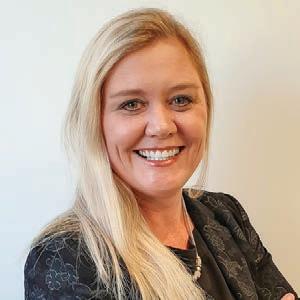
“Transparency, security, and trust in the supply chains improve through digitised information flow combined with physical assets.”
– NATAL I E U N STEADEsha Mansingh Natalie Unstead
Diversity across all levels is a critical part of Maersk’s strategy and its operations. Its people, particularly women, are highly valued and supported by the company, which encourages and assists them to develop and advance within the organisation. Three of Maersk’s female employees share their experiences of being included and empowered by the company.
Mechell Chetty joined Maersk in 2021 after 23 years of employment at her previous organisation. She wanted to gain experience in a different industry and broaden her horizons to enhance her growth and development, while still making a positive impact on leadership development in Africa. Maersk seemed like the obvious choice.
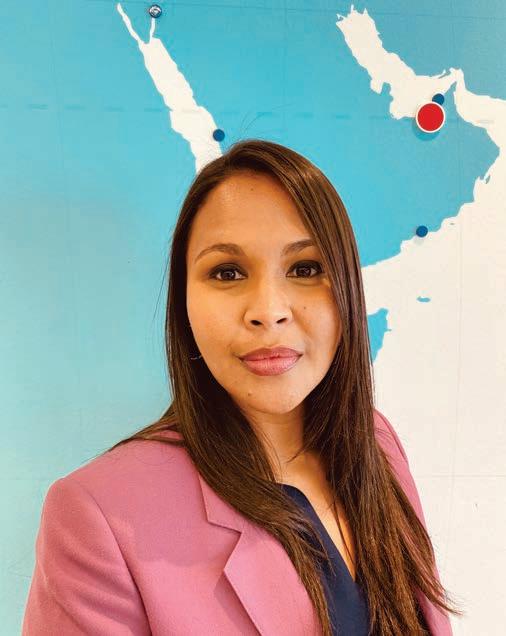
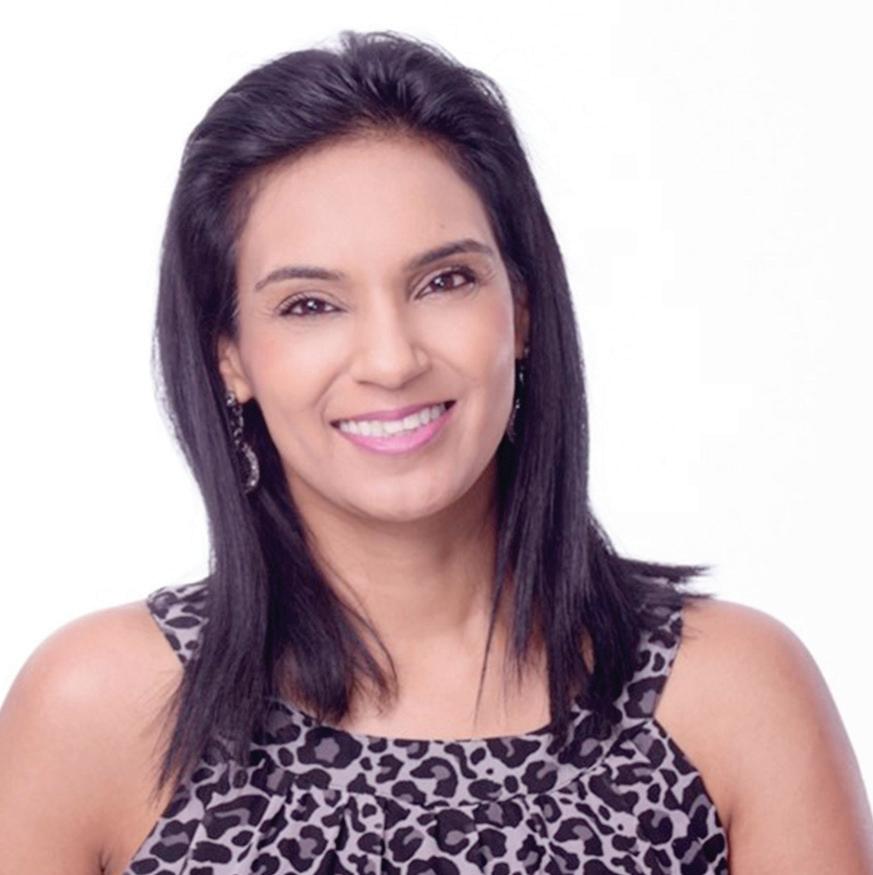
Chetty was attracted by the Maersk vision of becoming the global integrator of logistics. She was impressed by the compassion and humbleness of the leaders she encountered throughout the hiring process and also the company’s clear plans on environmental,
sustainability and governance (ESG), as well as the decarbonisation path it had embarked on.
“My greatest excitement came from the fact that I would get to hire an average of 200 people year on year, given Maersk’s compelling growth ambitions. Creating jobs and impacting livelihoods is a massive motivator for me.”
Since joining Maersk, Chetty has appreciated the balanced discipline of what Maersk does as an organisation infused with the care and humility of how it does it. “At Maersk, ‘employee engagement’ is not just a nice phrase; the company’s leaders genuinely care about their people,” she says.
“A real reflection point is that during the coronavirus pandemic, our employee engagement scores went up, and continues to rise. In addition, we are seeing a high correlation with our net promoter scores (NPS), which look at customer satisfaction. This demonstrates that an organisation that treats its employees well is more likely to better serves its customers,” says Chetty. She highly recommends those considering moving into the logistics industry with Maersk to just do it! “The transformation globally coupled with the opportunity for digitisation and end-to-end visibility makes this a truly exciting time. Being guided by our values as Maersk and as individuals, we can have a positive impact on the environment and society,” she says. “In doing so, we are improving life for all by integrating the world.”
For all the women out there driving their careers, guilt and fear can be the two most limiting factors. Chetty’s advice is: “Believe in yourself,
experiment more and be kind to yourself. Treat your career as a journey, not a destination.”
Gail Bredenkamp has worked at Maersk for 15 years, beginning as a bookings controller in Customer Experience and working her way up through the organisation to her current role. She recently relocated from Cape Town, South Africa to Rotterdam in the Netherlands to lead the West Coast South America Trade for Maersk’s Europe Ocean Customer Logistics.
As a single mom, Bredenkamp was initially intimidated by the thought of moving across the world with her two children, but the support of her colleagues made her confident that she could do it. Reflecting on this, she shares: “When a single mom can dare to dream to take a journey such as this, that’s when diversity and inclusion move from strategy to reality.
“The transformation globally coupled with the opportunity for digitisation and end-to-end visibility makes this a truly exciting time.”
– MECHELL C HETTYGail Bredenkamp
“Being valued and supported by your peers and leaders and feeling like you belong is really important when moving countries.”
Navigating life in a new country can be challenging, but Bredenkamp is grateful for the care received from the relocation support team, even assisting her to locate the nearest grocery store.
“Maersk provides the platform for all employees to follow their passion; when we get to do that it’s never a stretch to go all the way.”
The Maersk team in South Africa looks forward to Bredenkamp’s return so that they can learn and grow from her experience and learnings while on this international assignment.
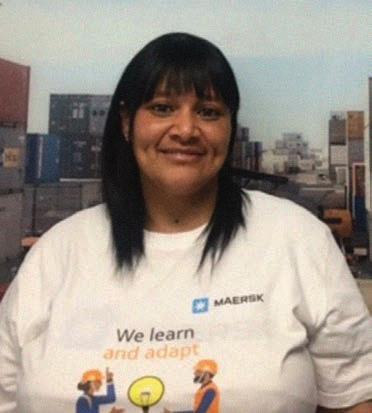
Melissa Alexander began her career at Maersk seven years ago in the admin
department and was fuelled by her curiosity to understand the job cards she was capturing. She spent her lunch breaks walking the work areas asking questions of the


A.P. Moller - Maersk is an integrated container logistics company working to connect and simplify its customers’ supply chains. As a global leader in shipping services, the company operates in 130 countries and employs approximately 95 000 people.
Maersk’s vision is to transform the flow of food, goods, data, and materials that sustain people, businesses, and economies the world over. Furthermore, it aims to enable the exchange of ideas, culture, and trust for a truly integrated world where value is created for everyone.
Maersk believes in an integrated world. One planet. Connected all the way.
estimators, artisans, technicians, and any experienced person she could find.

“In the beginning, it was not easy stepping into a male-dominated field, but my curiosity and fascination drove my perseverance, regardless of stereotypes set by others. This grew into love and passion for this industry. My career goal was never aimed at logistics, which is why I believe a career in logistics chose me,” says Alexander.
Her advice to others considering any position in logistics is to expect the unexpected, always be willing to learn, and realise that in the ever-changing logistics industry, the only constant is change, and complacency is the death of growth and opportunity.
Maersk is super proud of Alexander’s career growth in a relatively short time.
In keeping with her thoughts on avoiding complacency, Alexander has recently been offered a promotion to join the Ocean Customer Logistics team to assume the role of taking care of equipment, maintenance and repairs of the Southern Africa fl eet of containers.
“In the beginning, it was not easy stepping into a male-dominated field, but my curiosity and fascination drove my perseverance, regardless of stereotypes set by others.”
– MELISSA ALEXANDER
“Maersk provides the platform for all employees to follow their passion; when we get to do that it’s never a stretch to go all the way.” – GAIL BREDENKAMPMelissa Alexander

The last two years have awakened many people to the benefits of digitisation, but the uptake and retention of women within this future-fit work area is slow. CARRIE PETER , managing director of Impression, shares what’s been done in the tech space to be more gender-balanced
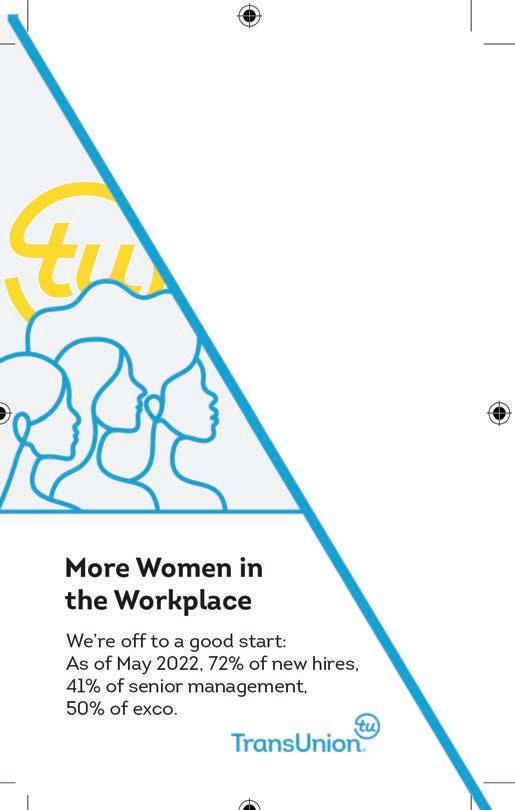
Gender misalignment is still prevalent today, attributable to a legacy of poor demographic distribution, a lack of women with the requisite skills, gender stereotypes, and outdated recruitment practices. Whatever the cause, the best way to create gender equality is to offer a culture that supports women, encourages their participation in the industry and accepts that the best person for the job is the best person for the job, regardless of gender identity, creed, race, or personal background.
According to Women in Tech ZA, only 23 per cent of South African tech jobs are held
and diverse environment. This requires swift action when employees display prejudiced behaviour or threaten the ethos of the business. We don’t care about the gender of the person we hire as long as they’re skilled and a good fit culturally. With this approach, we have attracted and retained immense talent while fostering an environment that supports, nurtures, and grows women in tech.
What has become evident at Impression is that cultural fit is far more valuable than remuneration. Our experience shows that treating people with respect is worth more than money. Several team members have taken a pay cut to join us or turned down profitable opportunities because they’d rather work in an environment where they enjoy freedom and respect. The key is judging staff on their work –with a total output focus – not their skin colour or gender identity.
Women must also take charge of their own futures. It may seem that the industry isn’t ready for female infiltration, but this isn’t true. While it may take extra effort to break through tenuous, traditional barriers to entry, women can succeed in the sector. Women offer vast skills, enhanced socialisation, commitment, integrity, an internal drive to deliver what is required, and more.
To achieve proper parity in the working environment, people must feel safe to challenge their biases, while uncompromisingly respecting professional and personal boundaries. This approach gives businesses the best possible chance to achieve some sort of balance.
Yet many women are still pushed into stereotypical roles in technology. Thankfully, I chose to pursue my ambitions beyond the “female role”. I advise women entering the sector to consider software development as a gateway to a lucrative tech career.
Women are logical thinkers, risk-averse and grasp technical skills easily. These innate skills mean we’re perfectly positioned to become adept business or systems analysts. These are great starting points, offering women the opportunity to sink their teeth into real tech roles, proving their proficiency while growing into higher-level jobs, breaking into solution architecture, or lead architecture roles.
My success in the sector resulted from sticking to my values. Through asserting my values, I have experienced fewer barriers in male-dominated, or exclusive environments. When you hold to your standards and filter out bias ahead of time –mentioning gender, age and race differences – people who usually choose to be combative generally disengage, leaving you to focus on your goals.
Women in tech may not always experience smooth sailing, but they’ll be far better equipped to stay the course when wholly focused on their objectives, avoiding the distraction of engaging with damaging preconceptions.
* Impression is a proudly EOH company.
To achieve proper parity in the working environment, people must feel safe to challenge their biases, while uncompromisingly respecting professional and personal boundaries.Carrie Peter
In 2018, Refilwe Ledwaba became the first black female pilot to fly for the South African Police Service (SAPS). Although the country has witnessed similar breakthroughs for female professionals in the aviation industry since then, the sector still isn’t where it should be.
Women are under-represented in many other areas of this field, including technical, operations, and leadership positions. There is an urgent need to fast-track gender equality across the industry and empower more women to take their seats at the boardroom table.
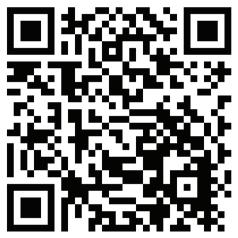


South Africa has made significant progress toward achieving gender equality since 1956. However, despite this progress, employment inequality still exists in the country’s industries.
According to a World Bank article, fewer women in science, technology, engineering, and mathematics (STEM) careers is a global issue, and South Africa is no exception. It says gender biases and expectations for different genders, set by families, society, culture, and the media, tend to propagate stereotypes.
Furthermore, discriminatory practices and policies deter girls from pursuing STEM careers and also lead to women leaving STEM careers. The result is a vicious cycle of fewer female mentors who can encourage more young women to pursue STEM professions.
Breaking the gender inequality cycle requires significant investment in female empowerment initiatives. By creating more opportunities to empower females to enter fields like aviation, more women will be able to chart a path for future generations to follow in their footsteps.
For example, the International Air Transport Association (IATA) has enabled transformation throughout the global industry for some years through its 25by2025 programme. The initiative
aims to propel change and encourage greater diversity by increasing the number of women in senior roles and under-represented jobs by either 25 per cent against current metrics or to a minimum of 25 per cent by 2025.
Numerous airlines have committed to this industrywide initiative, including Cathay Pacific, which has pledged to increase the number of women in senior positions.
The airline also aims to work toward empowering women to become aviation industry leaders, increasing female nominations from Cathay Pacific Airways to IATA governance roles to a minimum of 25 per cent. The airline also has committed to looking for even more ways to create a better gender balance in all areas of its business.
This commitment has seen females, such as myself, receive guidance from strong women in senior leadership roles in the organisation. The cargo and logistics industry is also seeing a gradual increase in female representation, which is truly rewarding.
Moreover, Cathay Pacific’s inclusive work environment gave me the confidence and opportunity to grow into a senior leadership role alongside an all-female Cathay Pacific South Africa leadership team.

As a member of the International Air Transport Association IATA and a signatory to its 25by2025 programme, Cathay Pacific aims to increase the number of women in senior positions (general manager and director level) at the airline to at least 30 per cent by 2025.
Data from the International Air Transport Association (IATA) reveals that only six per cent of airlines have female CEOs and COOs. Other executive positions filled by women in the industry are between 12–13 per cent, with HR female director representation at 40 per cent.
As a 25by2025 signatory, the airline has also introduced a Cathay Women’s Network to address and raise awareness of the challenges female professionals in the aviation industry face. From talent development programmes and workshops to networking events, the network influences internal policy and creates an ongoing dialogue about gender diversity.
South Africa must take a page from similar global empowerment initiatives to create opportunities for young women to fill executive and leadership positions. Doing so will encourage young future professionals to continue pursuing their dreams, even in male-dominated industries, no matter how challenging the journey.
Investing in future professionals can accelerate this transformation and realise a change in the next three to five years. First, however, the country needs to put the power to enable this change back in the hands of strong females who can continue the fight for gender equality, started by 20 000 women in 1956.
Being a media owner allows one to play a role in influencing the narrative of the communities in which you operate.
“With media ownership comes the power of decision-making and an opportunity to shape the narrative,” says Savita Mbuli, MD at Growth Media. “Information and content are key currencies of our time, hence it is important to have African stories told in an Afrocentric way by Africans.”
Owner of one of the few 100 per cent black-owned billboard companies in the country, Mbuli explains that Growth Media focuses strongly on out-of-home media in the form of large format gantry billboards, which she develops in urban areas and sells to major brands to use for their advertising.

The company was launched in 1998 as a media relations firm after recognising that the new government of the time was struggling to tell its story in a simplistic common language that South Africans could understand and relate to. “I realised how important it was to be relatable and believable as you talk to various audiences in both rural and urban areas with diverse cultures – this was our core focus when we began, assisting with government communications,” she explains.




“Our company quickly evolved into also working with the corporate sector, and today we have more corporate clients than government ones. In 2007, we began providing billboards as an extension of our communication offering as we realised that clients wanted to be on different media platforms. It is now our key focus – we own 40 billboards spread out over six provinces,” she says.
Mbuli says that as a rural woman from Nxarhuni in the Eastern Cape, everything she does in business is based on her learnings and lived experiences. She points to how the women in her village could keep multiple pots of food on the fire, fetch water from the dam, take care of the children, go to the ploughing fi elds, and still provide a tasty meal at the end of the day – all while nurturing, caring for and growing their families.
“My team consists of women only, based on the reality that outdoor advertising is a boys club. For you to penetrate this sector, you must be bold, innovative, and intelligent – qualities mostly found in women. Most of the learning is on the job, and there are seldom textbook answers. It is a fi eld that raises unique challenges and often demands on-the-spot devised solutions. Women tend to take such diffi culties in their stride. Unfortunately, you cannot go to university and learn about outdoor advertising.”
Being a black woman-owned business has not made it any easier, says Mbuli. “The barriers to entry are high as getting into the industry is capital intensive. There is a cycle that includes a client and a media buying agency, and both must be willing to transform for black organisations to make some gains. It is tough for independents to break into the sector, as the ‘big three’ in the industry operate virtually all the outdoor advertising nationally,” she explains.
To root out the systematic inequalities and unfair discrimination that remains deeply embedded in the value chain of the billboard industry, organisations such as the Media Development and Diversity Agency (MDDA) need to prioritise black women in their programmes so that they can meaningfully participate in the industry, says Mbuli. Municipalities must also play their role as the regulatory authority. “In the City of Johannesburg, for example, a metro with close to 2 000 billboards on its land has no valid leases with the billboard owners as no bylaw has been promulgated. In the City of Ekurhuleni, the municipality was not even aware that their leases had expired until we brought this to their attention.”
There needs to be a greater willingness to transform and self-correct from the industry itself, suggests Mbuli. “That is another way women can be economically active in the industry. For example, the ‘big three’ industry dominators can offl oad some of their billboard inventory to minority groups. This is similar to what the Passenger Rail Association of SA has done, allocating some of the billboards on its land – generally used only by the industry dominators – to new black media owners.
“The status quo cannot remain, drastic steps must be taken to empower more women in this space. It is shocking if one looks at the recently released adspend figures for 2021 that less than two per cent of the overall industry budget of R58-billion has gone to black South Africanowned businesses.
“One way or another, it is imperative that government, the industry and the private sector work together to broaden gender and diversity representation in this space to allow more authentic African stories to be told,” concludes Mbuli.
Savita Mbuli, founder and owner of Growth Media, is advocating for transformation in the Media Advertising Communication Sector. By RODNEY WEIDEMANNSavita Mbuli
Globally, women are well represented in the media industry, but increased focus on ensuring gender parity finds that women experience a more hostile workplace than men. Furthermore, women encounter a glass ceiling, which prevents them from reaching top leadership roles, according to a February 2020 McKinsey article titled “Shattering the glass screen”.
Having a high representation does not always mean an acceleration in promotion and increased pay. In fact, the McKinsey survey reveals that women cite their gender as hindering their career advancements, adding that they are judged according to different standards to their male counterparts.
Over the last few years in South Africa, there has been a realisation that real change needs to happen as a collective to ensure women are not only seen, but also heard.
Fhulu Badugela, chief executive officer for MultiChoice Africa, says for change to happen, the executive and management teams (including men) need to drive the process.
Only 13 women are editors of newspapers compared to 26 men, according to the 2021 State of the NewsRoomReport by Wits Journalism.
At MultiChoice, for example, group CEO Calvo Mawela is passionate and involved in programmes designed to accelerate the advancement of women in the workplace.
“His involvement and that of others ensure that key people in the organisation understand the importance of and champion these programmes,” says Badugela.
She says what matters the most and is instrumental in driving organisational change is understanding the role of women in the workplace, being supportive and empowering them to enhance their career growth.
Melanie Ramjee, managing director at Tutone Communications, believes the past decade has seen positive changes with women appointed to senior positions in the media. Some women have started news channels and media platforms, others edit national newspapers or lead media organisations.
“More doors and opportunities have opened up for women in the workplace, but men are seemingly still dominating. There is room for improvement to gender equality in media, but the change is just too slow,” says Ramjee.
The South African media landscape has seen significant changes in the last decade, particularly in the role of women, however, transformation still lags, says Karena Crerar, CEO of Edelman Africa.
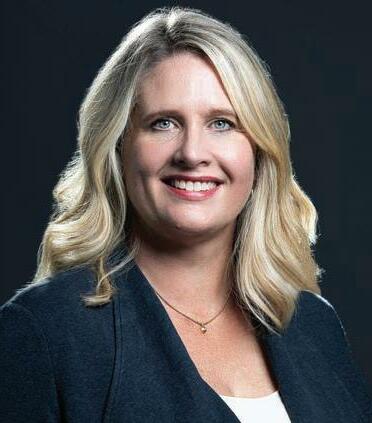
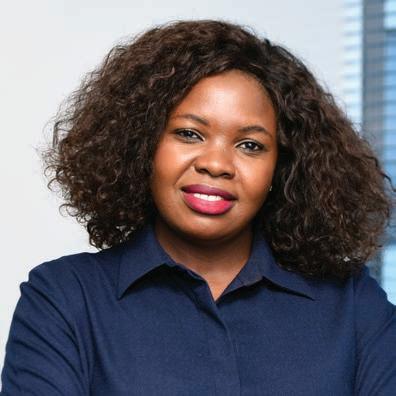
Crerar points to more women at senior levels, especially in major news outlets. “Reuters Institute research shows that 47 per cent of the top editors in major South African news outlets are women – the highest percentage of the 10 countries covered. South African media outperformed countries such as Finland and Germany, which are regarded as leaders in gender parity,” she says.
“We’ve also witnessed an evolution in the representation of black women holding top positions across media organisations. However, in the same vein, many women
How are women in the media industry faring when it comes to gender parity and opportunities to rise through the ranks and assume executive positions, asks DENISE MHLANGA
“More doors and opportunities have opened up for women in the workplace, but men are seemingly still dominating. There is room for improvement to gender equality in media, but the change is just too slow – MELANIE RA M JEE
“We’ve also witnessed an evolution in the representation of black women holding top positions across media organisations. However, in the same vein, many women leaders of all races today can still attest to experiencing and battling institutionalised patriarchy, sexism and discrimination.”
leaders of all races today can still attest to experiencing and battling institutionalised patriarchy, sexism and discrimination,” says Crerar.
Additionally, Crerar believes South Africa lags in giving women meaningful space and voice in media coverage. The Global Media Monitoring Research Project (2021) report shows that women in South Africa command only 29 per cent of coverage by the media.
“Including more women’s voices in politics, finance, health and science stories raises the level of discourse and broadens perspective and understanding of the issues we are grappling with as a country,” says Crerar.
According to Crerar, gender equality initiatives within organisations should be viewed in a critical and nuanced manner. Often, these initiatives have the right intentions to provide women with equal opportunities to lead and succeed, and that cannot be disregarded.
As an example, she says, trust is at the core of the business at Edelman – relationships between people and society’s most important institutions as measured in the annual Trust Barometer. Beyond external stakeholders, she says their employees trust them to have their best interests at heart.
“One of the company’s internal initiatives is Edelman’s Global Women’s Equality Network (Gwen), which helps to foster trust within our

female employees in our commitment to closing gender equality gaps,” she says.
Crerar says Gwen’s mission is to create a conducive environment where women have equal opportunities to grow, lead and succeed, even beyond Edelman. It also tracks progress globally to ensure it achieves and maintains gender parity in leadership roles.
Badugela believes that equality initiatives can be achieved successfully if company leadership is fully on board. MultiChoice acknowledges that women bring interesting views and perspectives to the table.
“Our business is diverse and complex, and we need to enable diversity of views to achieve organisational goals,” says Badugela.
She says being a leader has given her a platform to help women progress within the business, hence the intentional gender diversity programmes. Coaching initiatives, for example, are tailor-made for individuals to equip them with the right knowledge and resources to take up opportunities when they arise within the business.
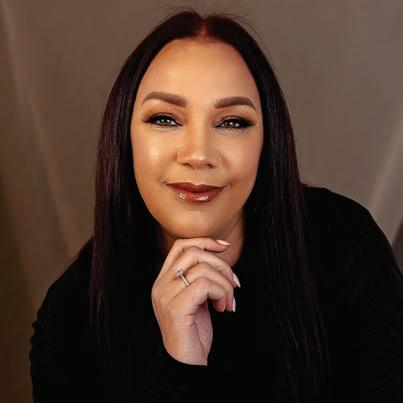
Badugela, who started as an industrial psychologist intern at MultiChoice, has seen first-hand how intentional programmes that are implemented successfully can help close the gender gap in an organisation. “Closing the gender gap leads to diverse workforces and more diverse thinking, and also boosts the economy,” she says.
Ramjee says the clients and organisations she works with have successful initiatives that deliberately enforce gender equality.
Women in the workplace are being empowered to move up the corporate ladder and lead huge media companies due to improved working environments that are supportive of gender equality. “As a female-owned business, we deliberately source and hire mostly female suppliers and contractors as we strongly believe in leading and creating change from within,” says Ramjee.
Badugela says South Africa and the rest of the continent need to develop women for leadership positions. Without a strategic plan and action, closing the gender pay gap will remain lip service for many organisations.
“Closing the gender gap is not about appointing women to leadership positions, but ensuring there are support structures and that the women are appropriately equipped to succeed so they can grow other women within the organisation,” says Badugela.
According to the World Economic Forum’s Global Gender Gap Report 2021, sub-Saharan Africa has made slow progress, and it will take 121.7 years to close the gender gap. More than half of the countries in the region (20 out of 34) made progress towards gender parity in the past year, though only Namibia and Rwanda have closed at least 80 per cent of their gap.
Crerar says Edelman conducts a global pay analysis in partnership with an external data analysis firm every alternate year to ensure equal pay for equal work.
“Mentorship will be at the centre of closing society’s numerous financial gaps, particularly for young women. We need female leaders in the media industry to teach new entrants how to navigate and succeed in male-dominated workplaces,” says Crerar.
According to the Global Gender GapReport2021 , worldwide, the average distance completed to parity is at 68 per cent due to a decline in large countries’ performances. It will now take 135.6 years to close the gender gap worldwide.
“As a female-owned business, we deliberately source and hire mostly female suppliers and contractors as we strongly believe in leading and creating change from within.” – MELANIE RA M JEE
“Closing the gender gap is not about appointing women to leadership positions, but ensuring there are support structures and that the women are appropriately equipped to succeed so they can grow other women within the organisation.” – FHULU BADUGELASHATTERING THE GLASS SCREEN Melanie Ramjee
At Edelman, trust is our at our core. Our annual Trust Barometer focuses on the trust relationship between people and society’s four main institutions (Government, Businesses, NGOs and Media). It’s a fascinating series of insights that we provide to our clients to understand how to do more purposeful, conscious work and genuinely communicate better with their audiences.
But having worked on both sides of the public relations coin, the trust between colleagues, managers, and clients is equally important. Building this trust within a business is not just about leading with strength, but leading with empathy. A research paper, “Empathy and Trust: Into a Better Workplace”, published in the December 2016 Journal of Business and Economics showed the
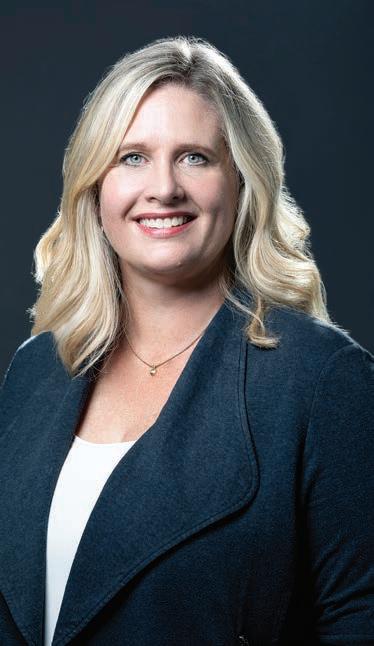





With 25 years of experience on the continent, communications consultancy Edelman Africa has been supporting organisations and multinationals with tailored advice to assist them in growing.
interlinking nature of trust and empathy as the key factors in building stronger relationships between any two parties. Therefore, it’s natural that the most successful businesses are those with leaders who listen to their employees’ challenges and make the effort to understand their lives.
Not only do relationships improve, but research endorsed by the World Economic Forum (WEF) shows that revenues can also be boosted. It was proven that workers under stress to reach financial targets were statistically more likely to reach them in more empathic work environments.
In recent years, work stress has been at an all-time high. The global pandemic shifted the way most industries work. When we were all forced to work from home, work-life-balance dynamics had to be re-examined, and the encroachment of work into personal life had to be kept strictly in check. At Edelman Africa, we noticed the team was deftly managing these new working conditions, producing excellent work even during such a trying time.
However, as more offices began their return-to-work strategy, empathy was once again required. It was only by listening to the team’s concerns and trusting they would continue to work to their best ability that we found our tailored hybrid working model.
I’ve seen how new recruits flourish when they get more access to the experienced team members. Seeing a new group of mentors and mentees emerge has been a refreshing change from the past few years of more distanced work.
Once again, we must return to the role of empathy in these developmental successes.
A recent study, “Do high performers always obtain supervisory career mentoring? The role of perspective-taking”, published in the Journal of Occupational and Organizational Psychology showed that this trait was more important in the mentee than the mentor. The study showed that if the protégés struggled to understand the perspectives of their colleagues, it would be signifi cantly more diffi cult to develop them regardless of talent, and the mentor would become less engaged in the process. The study found that organisations should provide more opportunities for employees to understand each other’s roles, perspectives and values to improve collaboration.
Mentorship will also be at the centre of closing society’s numerous financial gaps – particularly the ones young women must overcome. Women leaders must teach their younger counterparts how to navigate and succeed in male-dominated workplaces, but still maintain their sense of empathy.
We should be celebrating, valuing and nurturing empathy as a leadership trait and an essential business skill.
Empathic leadership is the key to fostering economic growth, developing and retaining talent, and creating the next generation of professionals, writes Edelman Africa CEO KARENA CRERAR




The IT sector continues to be one of the most under-represented industries, states Women in Tech ZA, which reveals that only 23 per cent of tech jobs are held by women in South Africa.



Bophelo Makhetha, senior AI engineer at the MultiChoice Group, believes the industry could do with more inclusiveness “because diversity – of any kind – is benefi cial to combatting bias”.
For Makhetha, a career in STEM (science, technology, engineering, and mathematics) was an obvious choice as she thoroughly enjoyed mathematics at school. She studied toward a BSc in Computer Science at the University of the Witwatersrand and is now using artifi cial intelligence (AI) to increase access to the plethora of content available at the video entertainment company.
































“At MultiChoice, we are using artifi cial intelligence in a variety of ways, one of which is creating subtitles. This enables us to localise content faster and at a larger scale to offer our clients more entertainment options.


“Through AI, we can offer inclusive services thereby improving accessibility for clients with disabilities,” adds Makhetha.
AI is being used in every industry and innovative companies such as MultiChoice are using AI software to create significant business opportunities and societal value. For Makhetha, this includes getting to work on cases that impact the average person in the street.
“There’s a certain appeal to working on exclusive apps and solutions, but doing work that impacts many people across class demographics is really satisfying. It makes it so much easier to explain what you do to almost anyone. There is a level of satisfaction that comes from explaining to people, anyone, of any education level, how you have or can possibly make their lives easier.”
After completing her qualification at the University of Witwatersrand, Makhetha started her career at MultiChoice’s graduation programme, which she describes as a “gruelling yet eyeopening” experience.
“We were given the opportunity to train with the Tata Elxsi graduates, in India, for 5 months – that opened my eyes to a different level of work ethic and a different set of work pressures. I learned so much in that time, and I believe my career would not be where it is now were it not for that opportunity,” she says.
Makhetha wanted to focus on software engineering and left MultiChoice to work for some of South Africa’s big banks and also do consulting work.
“The opportunity to return to MultiChoice came at just the right time when I was looking for a new challenge. Not only did I get to learn and apply new skills, but I also got to use more of what I learned in my qualifi cation than I ever did before.”
While Makhetha finds her career stimulating and rewarding in many ways, she is cognisant of the challenges faced by women in the space.
She says: “For women to thrive, they need to take their careers into their own hands. A lot of the time we don’t ask for what we want. For example, it is important that when you are in an interview, you ask the company about their culture and what support they can offer you. There is no point getting what seems to be a great job only to get there and be unsupported, burn out or deal with anxiety throughout your term”

A female duo recently led the installation of MultiChoice’s state-of-the-art Dolby Atmos-enabled production suite, housed at the group’s broadcast centre in Randburg.
Headed by Kabelo Lebajoa and Palesa Selepe, seasoned media technology engineers boasting over 15 years of experience between them, this latest tech deployment is in line with the video entertainment giant’s strategy to be Africa’s leading storyteller by continuously delivering innovative solutions to customers.
Selepe, a technology enabler in the business of content acquisition and creation, says: “Thanks to the Dolby Atmos production suite, we can enhance our content and stand out in terms of value creation for both our international distributors and our viewers. It truly is a ‘wow’ user experience.”



















Selepe’s role includes providing end-user support within fast-paced and changing environments. She has worked on exciting






























At MultiChoice South Africa, women are at the forefront of changing the narrative for women in technologyBophelo Makhetha
“As women, our careers don’t always take a natural upward progression due to everything that is stacked up against us, especially in male dominated fields like tech, so it is very important that we take our careers into our own hands and ask for what we want” – BOPHELO MAKHETHA
projects, such as leading the technical production of the first-ever all-female outside broadcast team for Premier Soccer League production at SuperSport. She also played a key role in delivering Season 4 of Big Brother Nigeria in 2019 – building a technical production area from scratch, including planning, procuring and commissioning, all while collaborating between two teams in Nigeria and South Africa. Selepe also sits on the MultiChoice committee as a stretch assignment lead for Women in Technology (WIT).
Lebajoa supports the General Entertainment and SuperSport’s postproduction environments. She says: “For MultiChoice, this was the first Dolby Atmos-enabled production suite we had to build. Most of the technology and equipment in this studio was new to us, so we had to read up on just about everything, but it was very interesting.”
Dolby Atmos is a surround sound technology that goes beyond the ordinary listening experience to deliver unparalleled clarity and depth. The new production suite unlocks business benefits for MultiChoice, as movies and series can be packaged for international broadcasters requiring Atmosready content. It also unlocks a world of creativity for the creation of future content on the company’s over-the-top platforms.
“Our media technology team continues to ensure that our production values increase

and can compete with the best in the world. We are incredibly proud of the diversity of our teams. Gender equality continues to be a primary focus as we know that diversity drives improved results,” says Yolisa Phahle, CEO of General Entertainment and Connected Video at the MultiChoice Group.
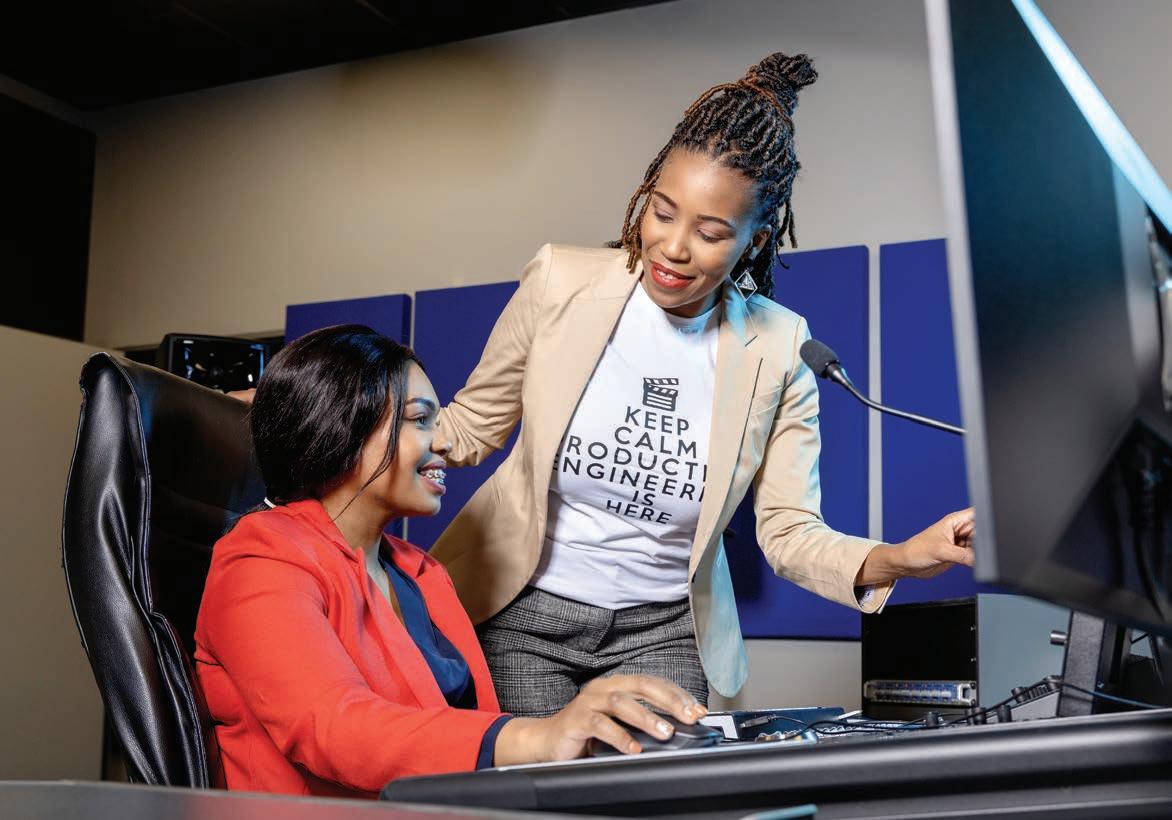
“The Dolby Atmos studio was an exciting project, it was amazing to be part of building it as we continuously look to innovate and enhance the customer experience – one of our core focuses here at MultiChoice,” explains Tammy Gcaza, MultiChoice’s post-production manager.
“It is satisfying to work for an organisation that takes gender equality seriously by giving its women opportunities to lead massive projects such as this. It was an incredible pleasure to work with these leading ladies because they embody everything we strive to do to bring our customers the best in entertainment,” she continues.
Dolby Atmos gives viewers a moving sound experience, allowing them to feel like they are part of a scene. This is achieved by creating a full 360-degree sound moving around the room. Dolby Atmos is versatile and can be played back virtually on any speaker confi guration, while greater precision of audio object placement can be achieved each time the number of speakers is incremented.
The deployment of this tech is the first of many to come at MultiChoice, with the upcoming tech refreshes of its audio final mix suites also earmarked to be Atmos deployments.
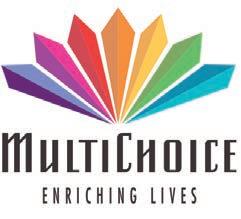
For more information:
“It is satisfying to work for an organisation that takes gender equality seriously by giving its women opportunities to lead massive projects such as this.”
– TAMMY GCAZAFemale duo, Kabelo Lebajoa and Palesa Selepe, lead the installation of MultiChoice’s Dolby Atmos Studio.
While many women are taking the lead as financial providers and managing the family finances, they tend to shy away from investing in the stock market and rather invest in risk-averse asset classes (for example, cash and cash equivalents). Why women are less likely to invest in the stock market than men has baffled the asset management industry for years.
Having been involved in the South African stockbroking industry for more than 20 years, I can understand why women have a “fear of the market”, which holds them back from investing in shares. However, this fear significantly impacts the ability of women to achieve their financial goals and freedom.

Despite their hesitation, investing in shares is wise and should be included as part of a woman’s balanced portfolio.

Shares are essential to virtually everyone’s long-term investment portfolio because they are the asset class that has consistently beaten inflation in the long run, ensuring purchasing power growth in real terms (after accounting for the effects of inflation).
By comparison, investment in cash is unlikely to outperform inflation and help you grow your wealth in real terms. There are also some specific reasons women should consider investing in shares, including:
• Income gap. The income gap between men and women is well-documented and, despite improvements, is still likely to exist for some time. This gap can make it more difficult for women to achieve their financial goals, and so it is more important for women to secure their financial wellbeing by taking advantage of investment opportunities.
• Unpaid labour and career gaps. Women are more likely to pause (or end) their careers when starting a family or to take time off to care for relatives, meaning that career advancement or development takes a back seat for a period, impacting their earning potential.
• Not saving enough. UK research highlights (https://www.raisin.co.uk/newsroom/ savings/better-saving-money/) that men tend to save more than women, with men having “almost double the average savings of women”. Having a savings account is the first step toward achieving your savings goals.
• Divorce or death of a spouse. Married women who have relied on their husbands to save and invest for retirement could end up, due to divorce or the unforeseen death of their spouse, having insufficient savings and investments to ensure their financial needs are met in retirement.
• Worry-free living. A comprehensive financial plan will ensure that a woman feels in control of her investments, and is free of financial stress and anxiety.

Research by Fidelity (https://www.nasdaq.com/ articles/the-rise-of-women-in-investing%3Aa-seismic-step-forward) shows that the COVID-19 pandemic accelerated women’s adoption of investing via securities platforms.
As lockdowns and social distancing became
a reality, women acted quickly to prepare for the uncertainty by building their emergency savings, updating their financial plans and effectively evolving from saver to investor.
The research also highlights that women make successful investors, but, often, their lack of confidence holds them back. In fact, women often earn better investment returns than men, with some estimating the difference can be up to one per cent, as women tend to apply a buy-and-hold strategy more strictly than men.
Women also:
• trade in their shares 49 per cent less often than men, which helps to manage the costs associated with the portfolio; and
• are less impulsive investors than men, making fewer trades and logging into their investment accounts less often.
The good news is that investing in shares doesn’t have to be an all-or-nothing game. In investments, it is all about finding the right balance between risk and return that works for you, and this is why working with a skilled financial adviser is so important. However, it is most important to not delay starting to build your investment portfolio.
The sooner you start, the more time your investment has to grow and deliver the inflation-beating returns you need to grow your wealth in the long term.
“Investing in shares doesn’t have to be an all-or-nothing game. In investments, it is all about finding the right balance between risk and return that works for you.”
Women who want to achieve financial freedom should include shares in their investment portfolio, writes WENDY MYERS , head of securities at PSG Wealth
WOMEN SHOULDN’T BE SCARED OF INVESTING IN SHARES
My experience as a female environmental scientist working in a consulting engineering setting has often been impacted by inherent bias that knowledge generated by women and related to environmental, social, and corporate governance (ESG) is nontechnical or even nonrational.
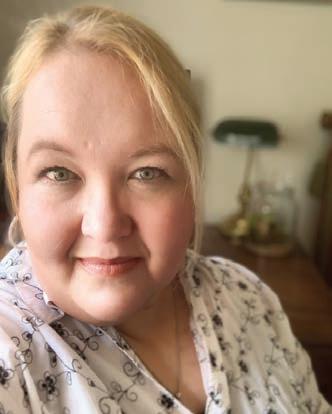
With the global focus on ESG, the traditional perception that these fi elds are the domain of women, “soft” sciences, and therefore unimportant, is being challenged. To meet this challenge, AECOM launched its Sustainable Legacies programme, and a signifi cant part of this strategy focuses on gender and inclusion.
When you walk into a boardroom or come into a project, you must fi ght harder to be heard, especially if you are an environmental manager and even more so if you are a woman. And, despite the fact that the ratio of male to female employees within STEM (science, technology, engineering, and mathematics) industries is changing, addressing gender and inclusion goes beyond numbers.
To do justice to gender and inclusion requires not only changing how employees are socialised within organisations, but also how gender is embedded within the solutions we provide.
To fulfi l this ambition, we must create the space, scope, and budget within our projects for gender and inclusion. This needs to be coupled with capacity building and training within our organisations to challenge oppressive norms, power hierarchies, and power imbalances between team members from different disciplines.
Therefore, focusing on gender is more than raising awareness; it is about transforming the way we work, our attitudes and our mindsets. Only then will our teams be able to develop processes and technologies that consider vulnerable groups as much as the shareholder or client.
For example, AECOM is carrying out work in terms of an environmental and social management framework as part of a larger feasibility study for a market-driven irrigated horticulture project in Lesotho.
The aim of the project is to increase rural incomes through commercial horticulture, including for women, youth, and the rural poor, as well as establish an irrigation, water resource, and land management model that is sustainable and inclusive.
To achieve this and ensure the sustainability of the larger project, the team needed to investigate themes such as integrated catchment management and climate change, capacity building, livelihood diversifi cation, and gender and inclusion.
The sustainability of our projects and the legacies we create will be measured by how well we meet the ESG challenge. I am very proud of my contribution to bringing ESG to bear on the engineering space, and I look forward to a time when the concept of “soft” science is removed. Our future depends on it.
Generation Equality, the theme for 2022 Women’s Day, is a global campaign linking South Africa to worldwide efforts to achieve gender equality by 2030. According to UN Women, this involves adopting and strengthening sound policies and enforceable legislation to promote gender equality and the empowerment of all women and girls at all levels.
This ties in with AECOM’s own sustainable legacies strategy, the second phase of which was launched in May 2022. This strategy integrates four key pillars that embed sustainable development and resilience across the company’s work, improve social outcomes for communities, achieve net-zero carbon emissions, and enhance its governance.
AECOM globally continues to make progress on gender diversity targets, with 33 per cent of its total workforce being women, with a target of over 35 per cent, and 18 per cent women in leadership roles, with a target of more than 20 per cent. In South Africa specifically, the total company workforce is just over 40 per cent female at present.
AECOM has also set nongender diversity goals across the business for 2022, in addition to undertaking an external equality, diversity and inclusion accreditation process.
ELISABETH NORTJE , associate director – Environment, Africa at AECOM, shares some strategic imperatives for creating gender balance within the engineering sector
Focusing on gender is more than raising awareness; it is about transforming the way we work, our attitudes and our mindsets.Elisabeth Nortje
In our 25 years of existence, Motheo has intentionally empowered young African graduates with a special focus on African women within the construction sector. We pride ourselves as a leading agent of change within the construction sector.

Motheo seeks to be a role model of how a black female owned and managed business can remain sustainable in the South African landscape. We want to remain an aggressive proponent of diversity in terms of gender and race as we daily meet the challenge of seeking to thrive in a continually changing environment.
Ms. Lettie Mashau was appointed Chief Executive Officer of Motheo Construction Group in 2019. Ms. Mashau’s character and industry track record express the culture, ethos and excellence that is Motheo.
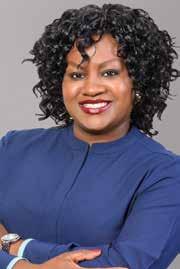
In the highly competitive construction industry in which we operate, service delivery is of utmost importance. We provide services nationally across South Africa. We have the capacity to contribute to the infrastructure space and different construction sectors such as building and civil construction, electrical reticulation, fibre reticulation, residential accommodation for all levels of income, conventional building, mechanical works, fire systems and water preservation. Over and above these sectors, we operate our own Academy, which provides training in a variety of forms to all participants in the projects.



The foundation of our success is the high standards we set for ourselves and our philosophy of value creation. We are proud of our reputation for integrity and excellence and we are inspired to make a positive contribution towards creating a better world, not only for our shareholders but also for future generations.

CARYN GOOTKIN asks two women leaders in the built environment about the barriers to entry and what can and is being done to achieve greater gender equality
The building industry remains dominated by men, with only 11 per cent female employees, according to a Mail & Guardian/ Construction Education and Training Authority (CETA) webinar in 2020. Other than the typical challenges faced by women in any male-dominated industry, the nature of construction poses a huge barrier to entry for women.
“To have a successful career in the construction industry, chances are that you will have to work far from your family and go for extended periods without seeing your family,” says Sanna Sebone, owner of Sebongi Construction. “You will be expected to relocate with each project, affecting your prospects of building and sustaining social relationships. Although women and men are equally affected by this element of the work, in society and in many cultures women still bear the primary responsibility for domestic duties in most households and therefore suffer more from these prolonged absences,” she explains.
“There are several other common barriers to entry experienced by women in the built environment,” says Lettie Mashau, CEO of Motheo Construction Group. “These include discrimination, vulnerability to disadvantage, male-dominated culture, long inflexible working hours, and more. Women end up having to decide whether to adopt a coping mechanism to fit in or leave the industry because of failing to keep up.”
Sebone adds that even female entrepreneurs in senior leadership roles in the industry suffer. “In our line of work, typical challenges we as women still face include sexist attitudes and disrespect displayed by our male colleagues, subordinates, and even employees.”
It appears that the industry is so weighted in favour of men, creating a huge barrier for women looking to enter the environment.
Motheo Construction
Group is 51.2 per cent black female owned and 61.7 per cent black owned overall.
“There is much evidence indicating that the male-dominated nature of the construction industry plays a significant role in acting as a barrier to female recruitment, career progression and retention,” says Mashau. “The low participation rate of women in construction and the industry’s male image is one of the barriers to entry for women in the built environment.”

This creates a vicious cycle that perpetuates the status quo. “To break this cycle, women will need support from inside the industry,” says Mashua. “The more examples of successful women in the industry we can provide for outside eyes, the more likely it is that the new generation will be attracted to the construction sector. Thankfully we have more and more extraordinary women entering the industry and sharing their powerful messages to attract others. We must lead by example to encourage other women to join the construction environment and build their careers within it. Mentorship is essential for the uplifting of women in this sector,” says Mashau.
“We need to encourage and support more women to overcome this fear of having careers and businesses in this industry,”
says Sebone. “This is, unfortunately, the only way to force men in this industry to start being respectful to their female colleagues and associates. We must also remove the burden of responsibility on women to ‘be in the kitchen’ because that is where these challenges we face as women in this industry stem from.”
Mashau adds: “In today’s world, there should be zero tolerance for sexist behaviour. We need to build trust to gain loyal workers.”
Companies can address the gender imbalance by paying more attention to career development, mentoring, training, and upgrading employee skills of both men and women. “There are so many opportunities for women in construction right now,” says Mashau. “The industry needs them as it faces shortages, a skills crisis and global demand. It’s important to understand where your strengths lie to propel you forward in your career.
“A woman can bring unique skills that are not only advantageous for her, but also the company.
“In our 25 years of existence, Motheo has intentionally empowered young African graduates, especially women, within the sector. We pride ourselves on being the leading agent of change within the construction sector.”
“We must lead by example to encourage other women to join the construction environment and build their careers within it. Mentorship is essential for the uplifting of women in this sector.”
– LETTIE MASHAUKERRY HOFFMAN, founder of homeless advocacy and support organisation Souper Troopers, talks about what we as individuals have to do to effect real positive change on the ground
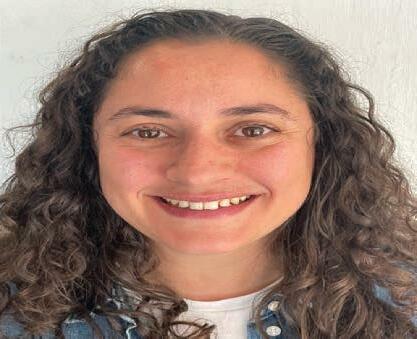
Eight years ago, I showed up at The Company’s Garden in Cape Town to serve homemade soup out of my car to homeless people. At a time when I was going through emotional turmoil, it was a small but meaningful act as much for myself as for others. It fed my battered soul as much as it fed the empty bellies of the people. But what surprised me most was how being treated with respect as human beings by those who were “homeful” fed their souls.

I often think, what if I hadn’t done it? What if
I would not have seen how, after six months on the programme, 22 would still be clean and no longer addicted to substance use, 20 would no longer live on the streets, 25 would have bank accounts and ID documents and send money home to their families every month, having achieved the goals they set for themselves. Eight would have even managed to save for their future. And Souper Troopers is only just starting to manifest its power, supported by a psychosocial model that addresses the holistic needs of each individual within our ethos of dignity, love and respect.
This is the power of taking things into your own hands. The work we do is impactful in a way that I wish, but can’t imagine, government or any other large entity could ever achieve.
Partly because we are lean and mean … able to think and move quickly, and partly because
we are humans (mostly women) not caught in the constraints of bureaucracy who can exercise what our hearts and minds inform us. And critically because we have the empathy to understand that while we have a moral compass that maps out the space we work in, there is no singular approach to turning people’s lives around.
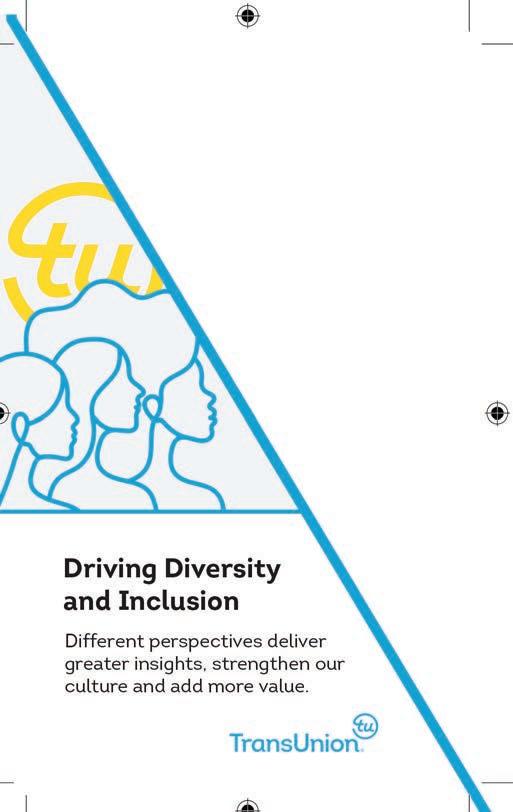
Souper Troopers wouldn’t be the success it is today if it had grown any other way. It is the very nature of working on the ground that enables us to connect with those homeless Troopers who want to change their lives. We are not sitting high up in a tower, removed from our beneficiaries. We understand homelessness. Two of the three people making up Souper Trooper’s psychosocial team were once homeless. And I do not doubt that as we grow, we will continue to support and train our success stories to help others in this same way, realising their journeys from homelessness to “homefulness”.
The power of changing one life at a time is vastly underestimated. The potential for these individual changes to become collective changes is real, and we see it at The Humanity Hub daily. Just giving a homeless person a home or a job is not enough. Supporting those who need love and trust in their lives is what truly transforms, for with love comes empathy and the understanding that we can make a difference in others’ struggles. Before you know it, that one changed life is changing five more, and so on, whether they are homeless or “homeful”.
So don’t wait for that change to come from the powers that be. You’d be surprised at what your own heart and two hands on the ground can achieve.
The power of changing one life at a time is vastly underestimated. The potential for these individual changes to become collective changes is real.
Kerry Hoffman
Souper Troopers is only just starting to manifest its power, supported by a psychosocial model that addresses the holistic needs of each individual.
TACKLING FUNDING

CARYN GOOTKIN asks two women leaders what it is like to work in the nonprofit community services sector

Meeting the growing needs of communities faced with many societal ills is an ongoing battle for nonprofi t organisations (NPOs) that rely on funding to provide much-needed help and support. “I hate to imagine the hole left in communities if NPOs couldn’t continue their work,” says Debbie Zelezniak, CEO of Santa Shoebox Project (SSP). SSP distributes gifts of essential items and treats to underprivileged kids at year-end. “I am pleased to say that since our recent March to a Million campaign, we have started spending Santa Shoebox legacy funds in the communities where our benefi ciary children live, uplifting them, building ECD centres, and
adding infrastructure to ensure socioeconomic development criteria are met,” says Zelezniak.



After 16 years, SSP is now seeing benefi ciaries emerge as volunteers, donors and leaders in the communities in which they operate. “What we give is so much more than just an end-of-year gift,” says Zelezniak. “We uplift children to feel seen and valued, and to believe they are capable of being future leaders and successful people.”
Thandi Mosupye, the South African National Blood Services’ senior manager: marketing, communication and branding, adds that the community services sector is essential to our communities in meeting broader communication needs and challenges, bridging gaps and supporting causes that are sometimes not covered by corporates or the government. “NPOs are key in addressing socioeconomic issues like poverty alleviation and job creation as well as providing goods and services,” Mosupye says.
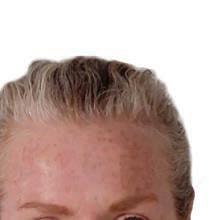
“Other than the obvious challenge of securing suffi cient donations to achieve the goals set out by an NPO, the biggest challenge is maintaining a positive outlook and a resolute approach,” says Zelezniak. “The need, which has always exceeded NPOs’ ability to meet it, is currently snowballing beyond all hope of NPOs ever being able to address it adequately on limited budgets with limited volunteer numbers and limited donor bases. But South Africans are enormously generous and, while most can’t afford to give much, it is remarkable how many do give on a regular basis.”

The SANBS, while also an NPO, gets no funding or subsidies from either government or private institutions. “Funding increases the capacity of NPOs to do more in their chosen fi elds,” says Mosupye. “SANBS raises funds by charging for the services we provide to ensure that safe and suffi cient blood products transfused to patients in need. Our donors donate blood; retaining them and attracting new donors is one of our core functions.”
Another challenge that often faces NPOs is “mission creep” – when an NPO expands its mission beyond the original goals that were set. “To avoid mission creep, stay true to your values, mission, and objectives and communicate effectively with your stakeholders,” says Mosupye. “As SANBS, we remain true to our purpose of being trusted to save lives and consistently evaluate our
strategic objectives to meet our mission of providing trusted blood products to all patients.”


“At SANBS, we pride ourselves on creating an enabling environment for the advancement of women occupying different roles in our organisation – from our donor educators, nurses, lab technicians to our researchers and board members,” says Mosupye. “At our senior management levels, there is equal representation of men and women, and those women play key roles in meeting our strategic objectives. We have many amazing women on the ground who are mobilising and educating our donor communities. We believe that our organisation must mirror our society where both women and men are integral to building healthy vibrant communities.”

“In my experience, women are excellent leaders,” says Zelezniak. “We are also often brilliant listeners and creative thinkers. But beyond this, I enjoy working in this position because I have a network of people who inspire and teach me, and an outlet to do meaningful work, which is a gift in and of itself.
Leaders of NPOs are able to do work that really matters in a sector graced with integrity, a solid work ethic, and with examples of excellent leaders.”
“NPOs are key in addressing socioeconomic issues such as poverty alleviation and job creation as well as providing goods and services.”
– DEBBIE ZELEZNIAKDebbie Zelezniak Thandi Mosupye
For these three women, each day they report for work at the South African National Blood Service is another opportunity to help save lives, by RODNEY WEIDEMANN
The South African National Blood Service (SANBS) is a key contributor of scientific and innovation expertise to the local healthcare sector. But, more than that, it is a great example of diversity, gender equality and transformation.
Josephine Mitchell, senior manager in Operations Testing, has worked at SANBS for some 17 years and says there is only one reason she has stayed so long.
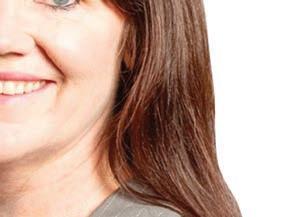
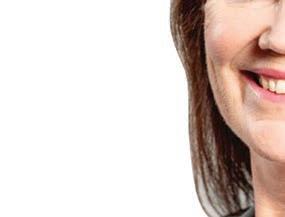
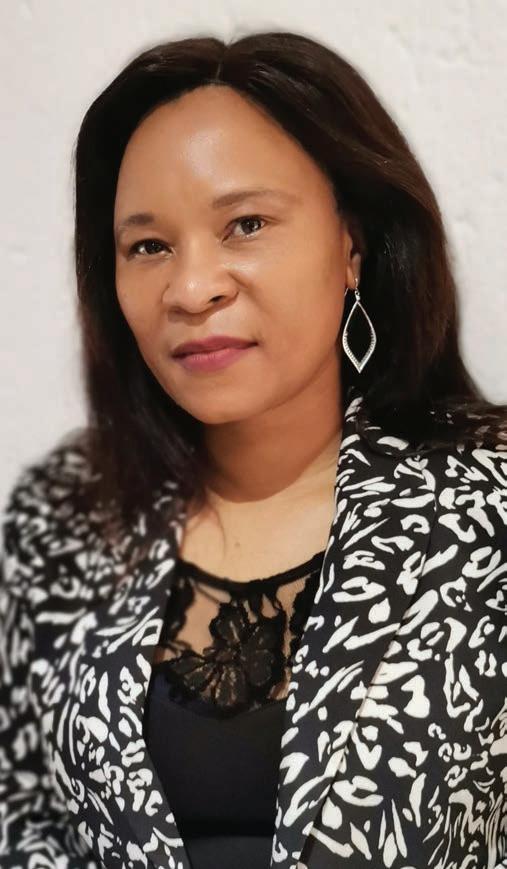
“For me, the joy of work is knowing that with every decision I make or test I undertake, someone is waiting for the result in the hope it may save a life. It is certainly a wonderful motivator to get out of bed in the morning,” she says.
“My main responsibility is setting and driving the strategy around the testing of blood donations in the testing laboratories and the reference labs, and the way these results are validated. Ultimately, my role is to ensure this strategy is implemented to ensure a safe blood supply and high-quality testing facilities.
“Bearing in mind that the main focus of SANBS is to ensure a safe and sustainable blood supply, the strategy for the testing labs is critical to this goal. The testing of each donation encompasses the search for transmissible infections and screening for haematological issues.”
She adds that to ensure a patient receives safe blood on time and when required, much background work needs to be done. Mitchell focuses on ensuring that lab equipment meets required standards and that her team remain motivated and comply with all operating procedures and organisational processes.
“My focus is on building and broadening our scientifi c research profile and undertaking more mentoring. I’ve been fortunate to be part of an international mentorship programme where I trained as a mentor. Now I want the opportunity to continue to mentor other young scientists in this fi eld.”
“In encouraging young women to enter this fi eld, my advice would be to stick it out –don’t quit at the fi rst sign of a challenge. This is a tough arena, but there are many senior scientists who will assist you in developing your research career, so always keep going,” Mitchell says.
The route taken by Marion Vermeulen, executive, Transfusion Medicine and Technical Services, has been quite different. Now in her 34th year of service, she says her career here began inauspiciously.

“I was originally planning to study chemical engineering, but decided against this the day before I was due to start university. My parents insisted I get a job instead, and my boyfriend’s sister arranged an interview at SANBS. The rest, as they say, is history.”
Her responsibility revolves around everything in the value chain after the donor has given blood. She says that once the blood has been drawn, the focus falls on the cold chain, logistics, transport, processing, and testing. It further includes the various
components made from the whole blood and the supply of this high-quality blood product to the blood banks and hospitals.
She agrees that proper representation of gender and race is vital because diversity allows for unique contributions from many mindsets, exposing all to different views, experiences and thoughts.
She


“In my current role, I am more involved in setting the strategy for the organisation than research, but throughout my earlier career, my passion was in the research arena. I finally went back to university at the age of 32 and studied part-time, obtaining bachelor’s, master’s and PhD degrees,” she says.“If you love research, working at SANBS provides opportunities , as you essentially have a captive sample

“PROPER REPRESENTATION OF GENDER AND RACE IS VITAL BECAUSE DIVERSITY ALLOWS FOR UNIQUE CONTRIBUTIONS FROM MANY MINDSETS.”
– JOSEPHINE MITCHELLJosephine Mitchell Marion Vermeulen
of a broad range of the population that, when handled ethically and anonymously, allows for unique studies. For example, we looked at the COVID-19 antibodies in donors’ blood and how they increased over time, helping to inform the decision to end mask mandates.”
Vermeulen adds that, historically, there has been a huge gender imbalance in this space, noting that when she started, all senior management positions were held by men.
“However, I haven’t felt any gender imbalance in this industry for many years, indicating a more representative approach. The next step is to remove all remaining imbalances as I believe diversity is critical to our ongoing success. People from different backgrounds and upbringings have different perceptions of the world, and thus approach challenges from different angles.
“My advice to newcomers in this fi eld is that if you are curious, science is the career for you. If you want to go into a fi eld such as human sciences, you must also inculcate an empathetic mindset,” she says.
Lavendri Govender, manager: Tissue, Immunology and Genetics, suggests that her inspiration for entering a career in medical technology and medical laboratory science was as simple as seeing a character on the Bold and the Beautiful TV show working in a lab and making a critical discovery.
“I instantly knew that this was something I wanted to do, and I have been qualified for 21 years now,” she says, adding that DNA research is her true passion.
“I joined SANBS because from that moment I knew I wanted to be somewhere I could make an impact and save lives. Considering SANBS’s purpose is ‘trusted to save lives’, it seemed the most appropriate workplace for me.”
She began her career as a molecular researcher and developer. Pointing out that a core function of SANBS is to deliver blood, Govender adds that it also offers more specialised services such as those in her area, including the specialised testing required to provide blood to patients with rare blood types.
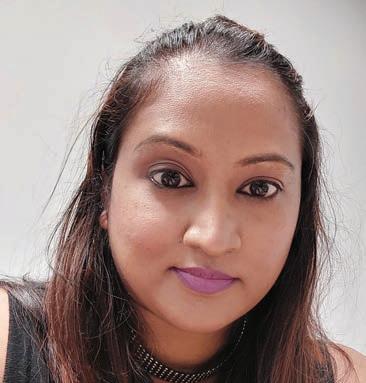
“The same goes for transplants – there is a whole battery of tests to ensure that organs are exactly matched to specific donors. It is especially rewarding when you find the matches and can help save a life. This is certainly the pinnacle for me – the profound impact we make on people’s lives always delivers a warm, fuzzy feeling.
– LAVENDRI GOVENDER
The South African National Blood Service (SANBS) is a not-for-profit organisation, rated among the best in the world in the provision of blood and blood products, as well as in relation to the research and training provided.
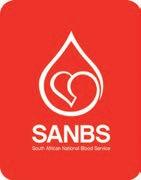
SANBS operates across all of South Africa, with the exclusion of the Western Cape.
SANBS provides an essential service within South Africa’s healthcare sector and is further regarded as a major role player in the provision of support to countries in the SADC region.
Our purpose: trusted to save lives.
Our vision: to be the cornerstone of healthcare services in South Africa, through the gift of life.
Our mission: to reliably provide trusted blood products and services to all patients at a world-class level of cost and quality while innovating new treatment to enhance human healthcare.
“I believe this sector is ideal for women. Most women are mothers, sisters, and friends, and they tend to have a compassionate side, which is needed here. You need to view each sample as a pregnant mum, or a child with a potential genetic disorder, and I believe women are particularly good at displaying this kind of empathy.”
While she is happy with how SANBS is structured regarding its gender balance, Govender believes that more women need to be encouraged to enter the scientific field.
She says she hopes to see SANBS continue championing women in science and strengthening its associations with other organisations such as the Sunfl ower DKMS Fund, South African Bone Marrow Registry (SABMR), the Organ Donor Foundation and Department of Health.
“I am excited to be part of the Blood Transfusion Genomics Consortium, which is an international collaboration with seven other countries with SANBS contributing samples representing the African (South African) population. The aim of this collaboration is to improve the safety and efficiency of blood and platelet transfusion by introducing cutting-edge genomics technology into routine clinical practice.
“My words of advice to young women entering this fi eld are to always be true to your feelings. If you think you might be a budding scientist and have a passion for the subject or feel you can make a positive change, then move forth and conquer. After all, this is a career in which you can save lives, so it is very rewarding,” she concludes.
“IT IS ESPECIALLY REWARDING WHEN YOU FIND THE MATCHES AND CAN HELP SAVE A LIFE. THIS IS CERTAINLY THE PINNACLE FOR ME – THE PROFOUND IMPACT WE MAKE ON PEOPLE’S LIVES ALWAYS DELIVERS A WARM, FUZZY FEELING.”
“IF YOU ARE CURIOUS, SCIENCE IS THE CAREER FOR YOU. IF YOU WANT TO GO INTO A FIELD SUCH AS HUMAN SCIENCES, YOU MUST ALSO INCULCATE AN EMPATHETIC MINDSET.” – MARION VERMEULENLavendri Govender
Videsha Proothveerajh has already forged a path to success as CEO of legal tech giant LexisNexis South Africa.
Videsha Proothveerajh has already forged a path to success as CEO of legal tech giant LexisNexis South Africa. But the mover and shaker’s recent recognition as the leading woman in technology on the continent speaks to her values and passion: to help women reach their full potential.
Proothveerajh scooped the prestigious Woman in Tech award at the recent Africa Tech Week Awards for outstanding IT excellence, strategy, vision, and innovation. This honour is the latest in a string of accolades she has received since taking the reins at LexisNexis SA in 2019.
She was named the most influential Woman in Business and Government for ICT in Africa. She was spotlighted by Forbes as a change maker in Africa.
In 2017 Proothveerajh was recognised as one of the 50 most inspiring women in SA by the global Inspiring Fifty initiative. Two years later, she was recognised as part of the ‘Africa 50’ - The 50 Leaders in Data Centres and Cloud, driving change in Africa. Last year, Proothveerajh was named runner-up in the Inclusive Leader: Large National/Pan African or Multinational Company category of the 9th Gender Mainstreaming Southern Africa Awards.
Proothveerajh aims to inspire a new generation of leaders through the exciting LexisNexis CEO Series initiative which sees leading executives in our country share insights on a range of social and business challenges, offering a powerful platform to advance collaboration and partnerships, while also exploring business trends,
leadership, and corporate growth strategies.
"If we truly want to uplift our societies and our economy, we need to collectively pave a way for a future where women are seen as equal. And women must also raise their hands and be counted," says Proothveerajh.
Enhancing the potential of the African continent by advancing the rule of law is the legacy she wishes to achieve during her time at LexisNexis SA.
Proothveerajh has an MBA from the University of KwaZulu-Natal specialising in Advanced Strategic Management. She is also a certified SAP and ITIL consultant, an accredited NLP coach and has a Postgraduate Diploma in Business Management and a Bachelor of Commerce degree.
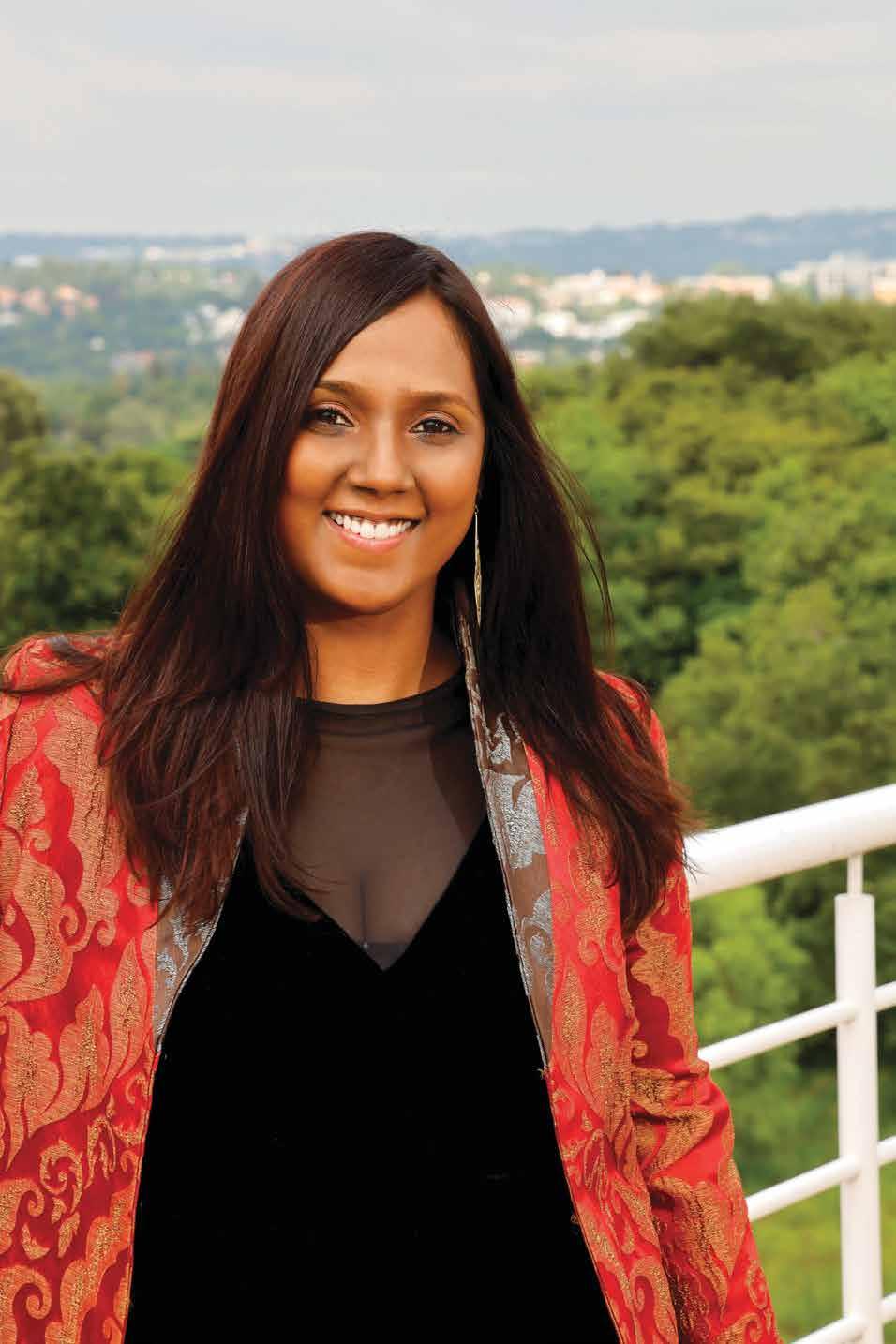
"If we truly want to uplift our societies and our economy, we need to collectively pave a way for a future where women are seen as equal. And women must also raise their hands and be counted"
Lindi dL a mini, CEO of the GBVF Response Fund, shares why corporate South Africa must partner with our most vulnerable to fight gender-based violence
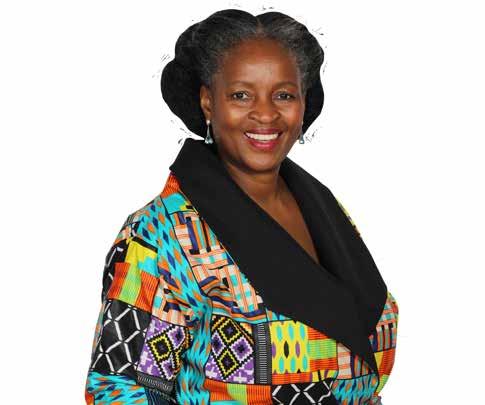
The hope of ending gender-based violence and femicide (GBVF) in our lifetime will require corporate South Africa to play a bigger role in the fight. The corporate sector can contribute immense financial muscle to help drive initiatives and programmes aimed at supporting victims and survivors, and can make a tangible difference in changing normalised behaviours.
An equally important reason for corporate South Africa to lead the fight is that GBVF affects the functioning of the economy – it hurts the workforce and knocks companies hard on a number of fronts. It makes no sense for companies to stand by and watch as the impact of GBVF on the lives of victims, their families and communities spreads. According to the International Labour Organisation (ILO), violence and harassment at work take many forms and lead to physical, psychological, sexual and economic harm.
Based on the findings of a KPMG report, The Costly Impact of Gender-Based Violence (2022), and conservative estimates – GBVF costs South Africa R36-billion per year. The research, led by Professor Corné Davis from the University of Johannesburg (UJ) in collaboration with Tiekie Barnard from the Shared Value Africa Initiative (SVAI) was conducted in partnership with Mid Sweden University and supported by KPMG South South Africa. It states that “judicial costs for GBV were R104-million in 2019. Considering the out-of-pocket medical costs for the GBV victims (almost R10-billion), human capital loss (R26-billion) and judicial costs (R104-million), we can conservatively
The corporate sector can contribute immense financial muscle to help drive initiatives and programmes aimed at supporting victims and survivors.
estimate that South Africa has lost more than R36-billion in 2019 alone, due to GBV. This is based on the country’s estimated 0.7 per cent loss of 2019 GDP due to GBV induced human capital loss”. In short, GBVF erodes both the inputs and outputs of growth as there is an economic multiplier effect, which means that a rand lost represents more than just that rand.
As a country we need to ensure that the workforce of the future does not come from broken homes. We need to ensure there is enough capacitation and resources to respond to calls on the ground for change so that women and children can be the building blocks of society.
Recent work by the ILO to implement the first international treaty on violence and harassment in the world is an important step in helping limit this impact. The ILO’s International Labour Conference adopted the ILO Convention No. 190 (C190), and on 30 November 2021, South Africa became the 10 th member state of the ILO to ratify
C190. This means it is no longer just a moral expectation, but an obligation for companies to join this fight.
The C190 aims to eliminate all forms of harassment in the workplace, including virtual workplaces, and advocates for the implementation of inclusive and intersectional policies and procedures that protect workers’ rights to freedom from harassment and violence in the world of work.
A united front between the public and private sectors is needed if we ever hope to eradicate GBVF in our lifetimes.
Funding by forward-thinking corporates is already proving beneficial in our initiatives at the GBVF Response Fund, showing what can be done if the commitment is there. In just over a year, many companies have come forward to support and endorse our work, which aims to drive the implementation of the National Strategic Plan (NSP) on GBVF. This plan is South Africa’s roadmap to ending GBVF. It is strategic, outcomes-based and multidimensional.
The human and economic impact of GBVF in the workplace is too costly to ignore. Improving workplace equity and fighting harassment, especially GBVF, needs to happen now, in every workplace.
If not addressed, GBV can pose a range of business risks:
• Litigation, compensation claims and reputational damage.
• A decrease in productivity due to absenteeism, poor performance at work, and an increase in staff turnover.
• Reduced access to talent and employee retention as the fear of GBV can affect the decisions people make about where they work and with whom they work.
Source: The Costly Impact of GBV: Private sector perceptions and realities in South Africa (2022).

